





The Manta Resort
TANZANIA
The Manta Resort
TANZANIA
THE MANTA RESORT
Pemba Island, Tanzania
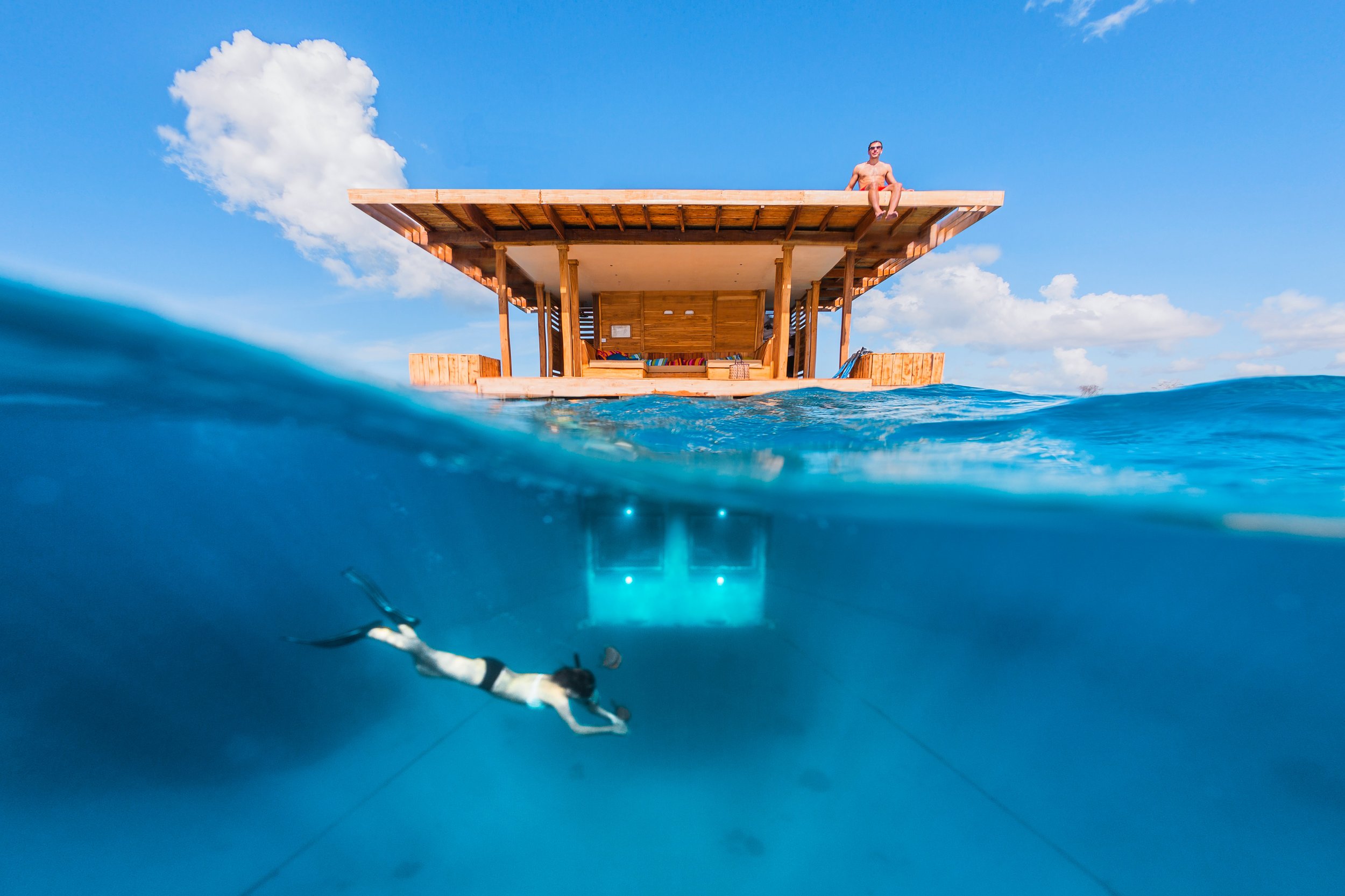
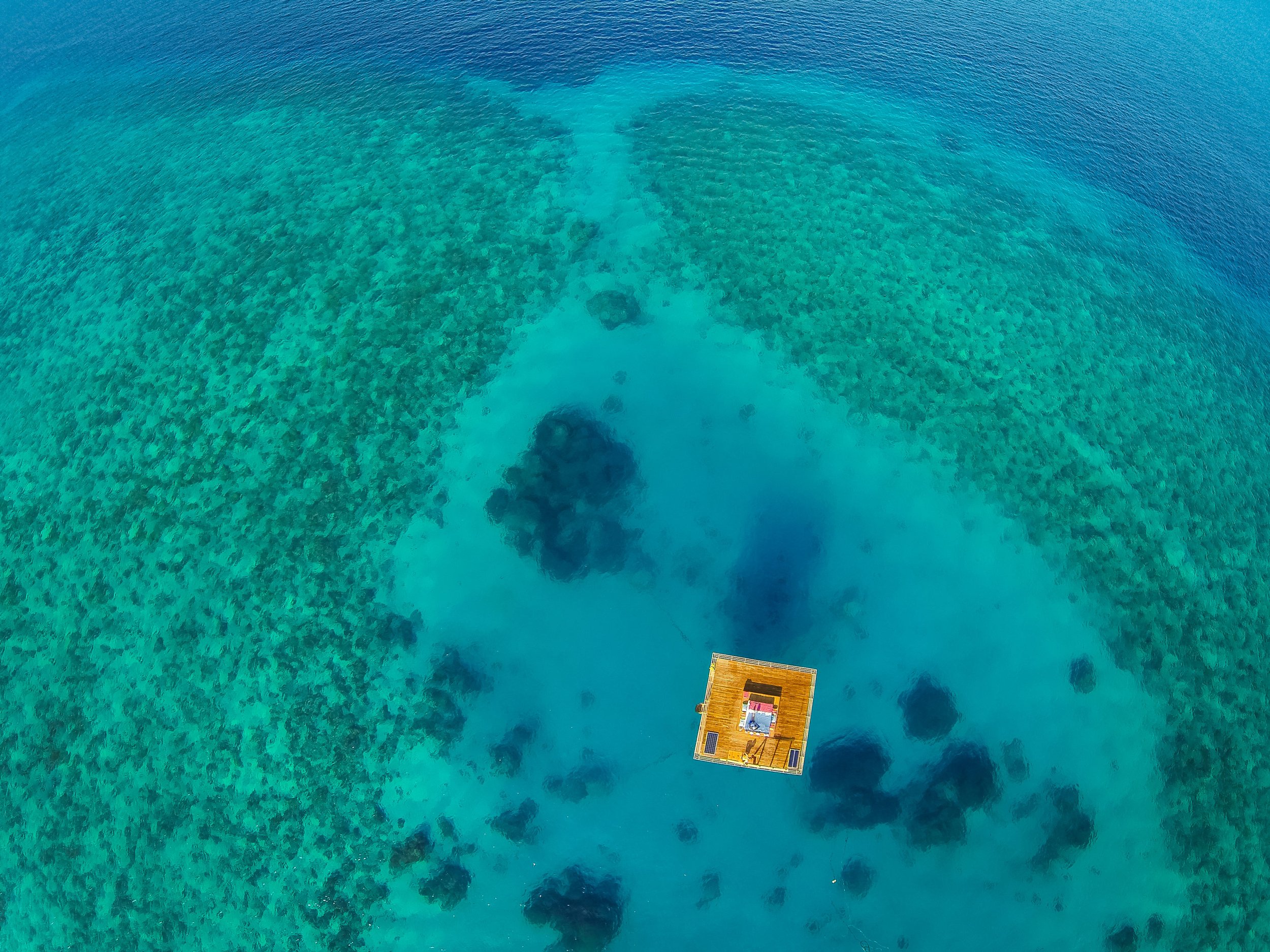
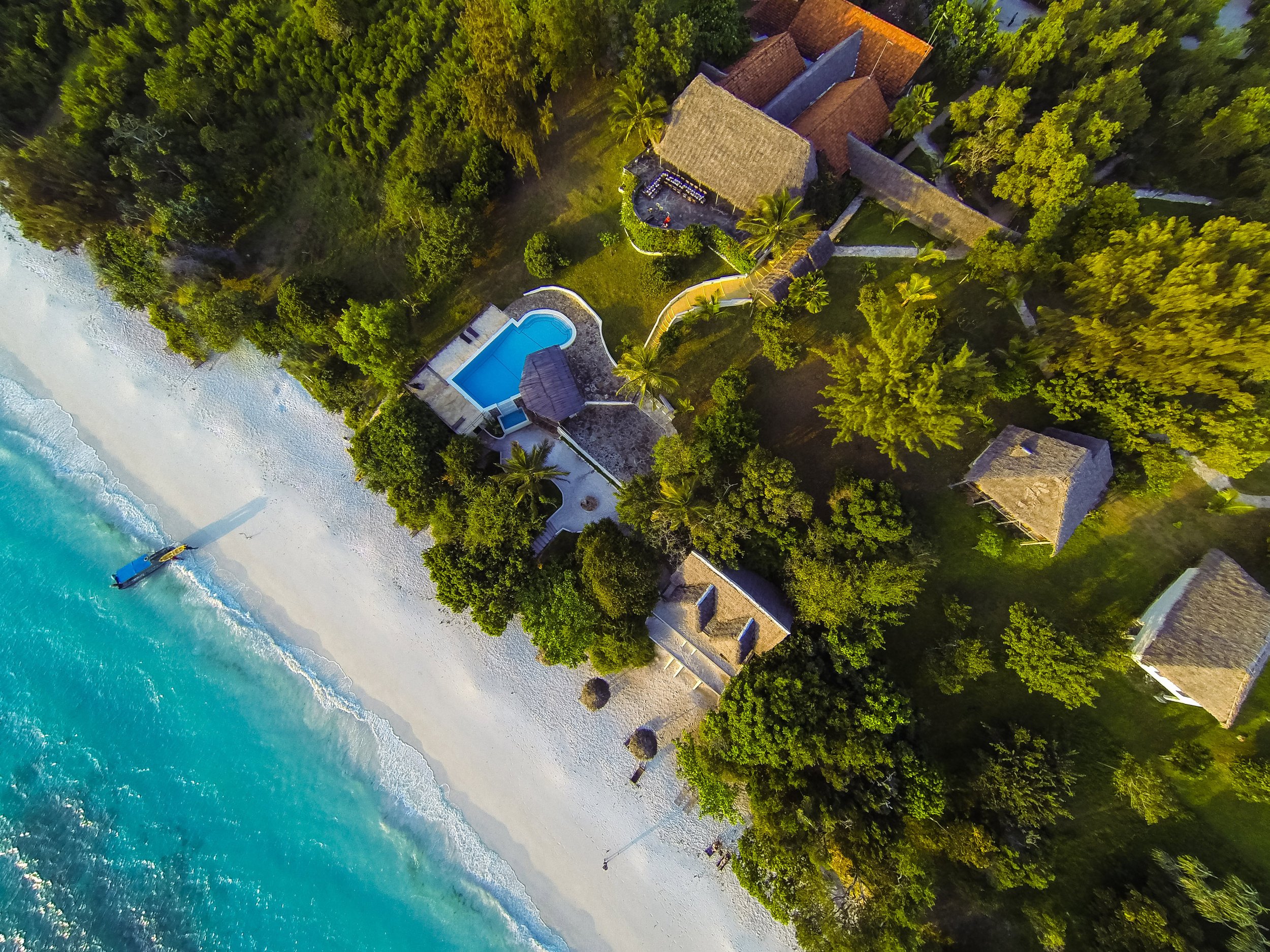
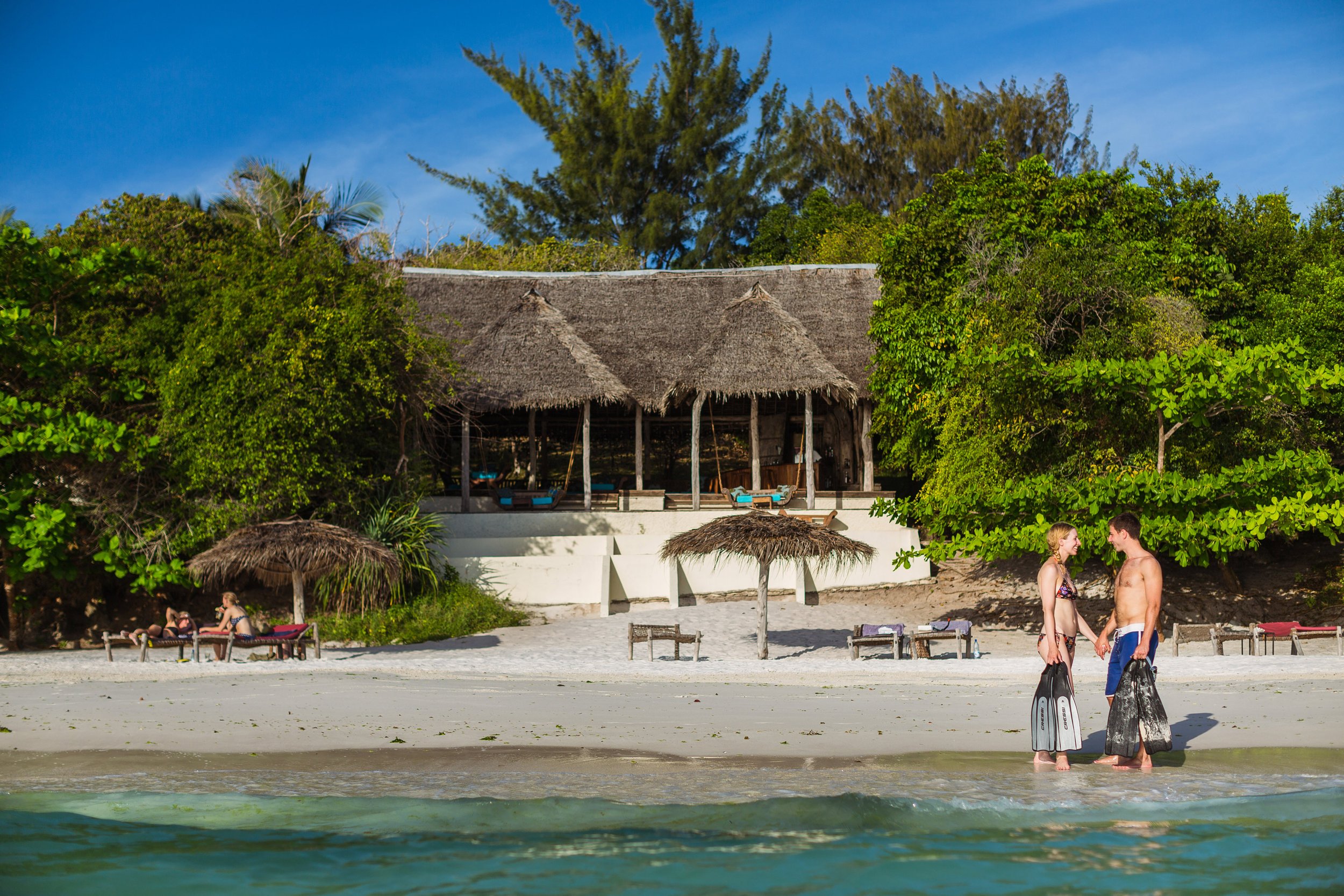
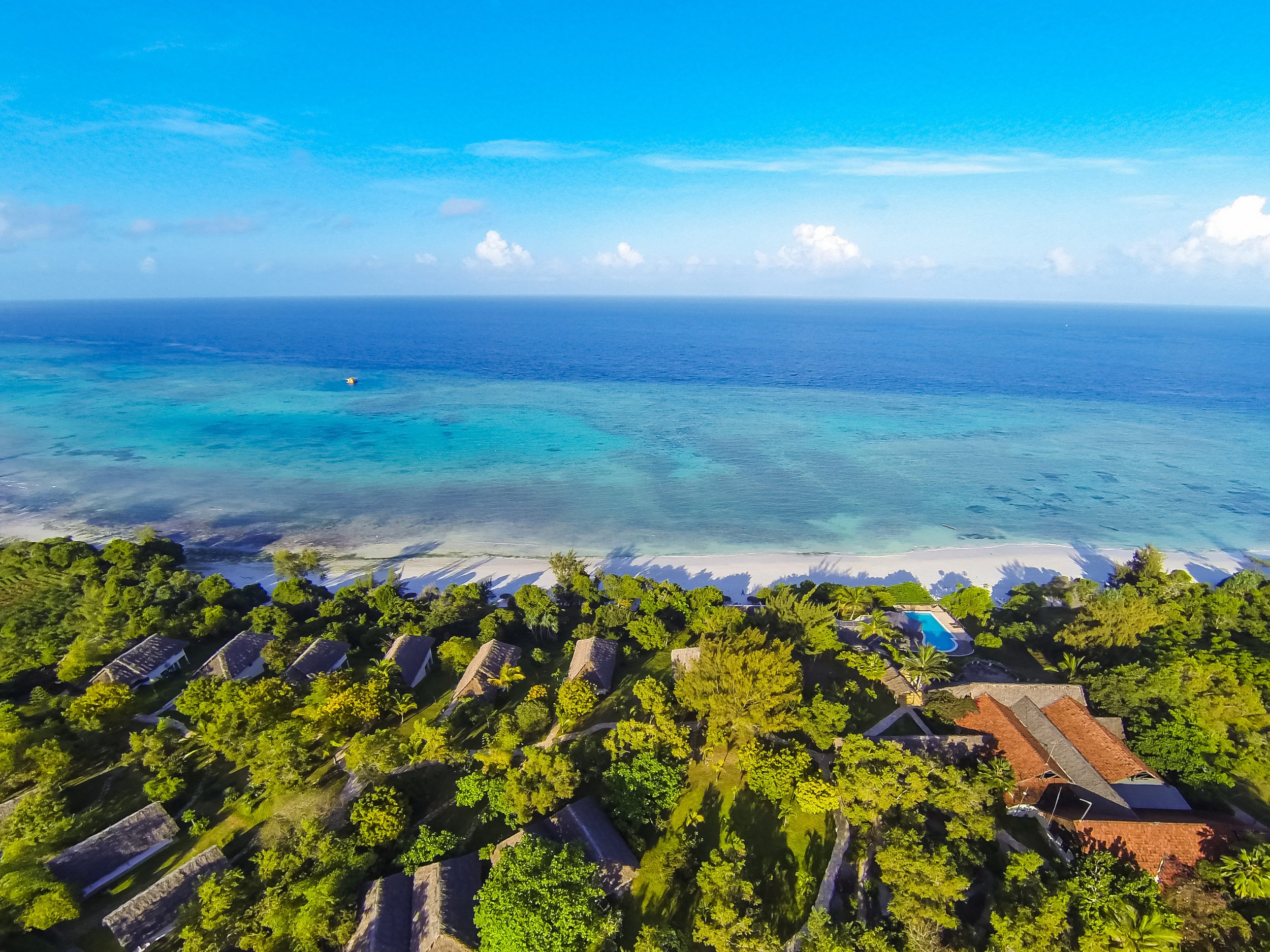
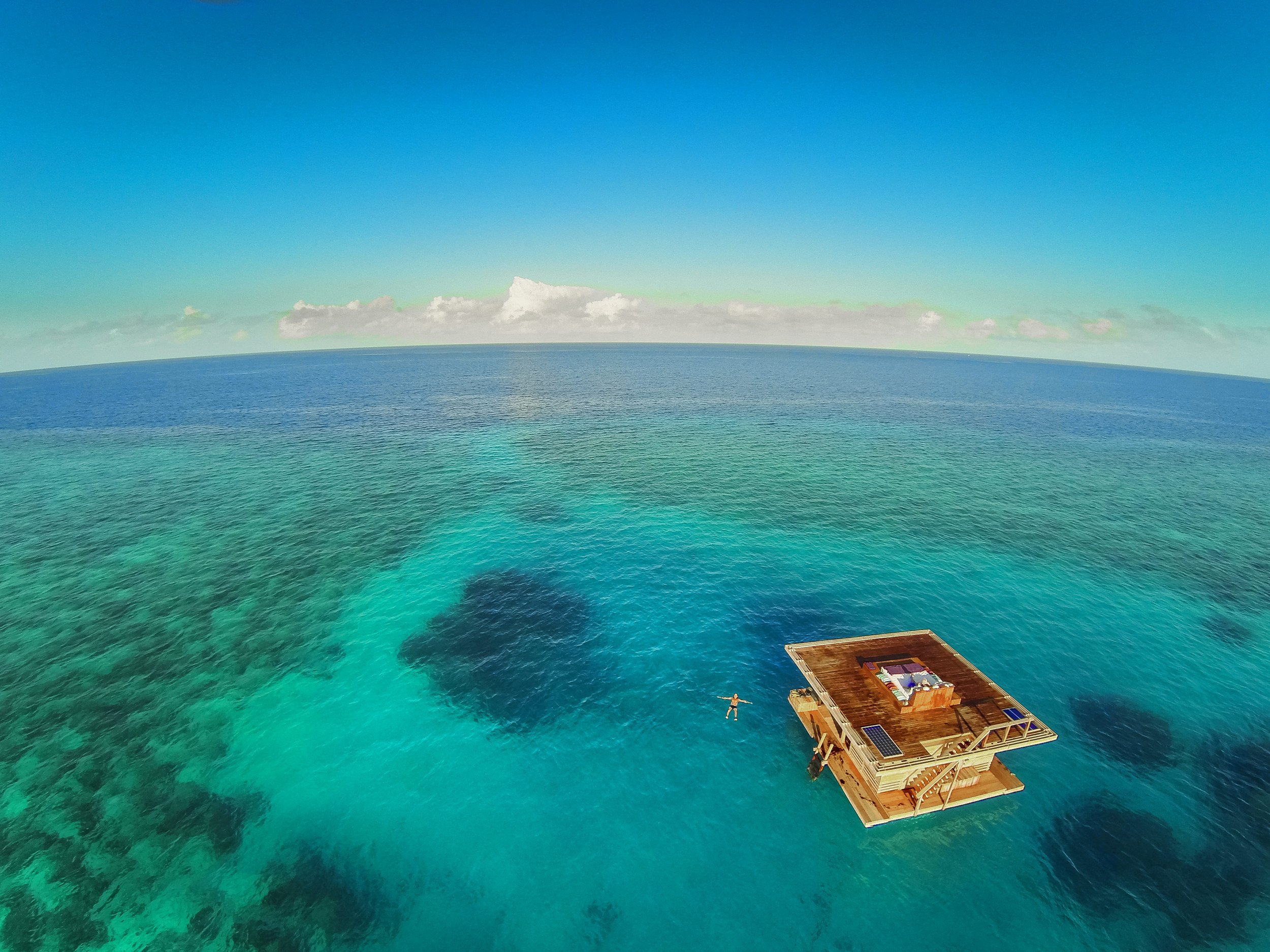
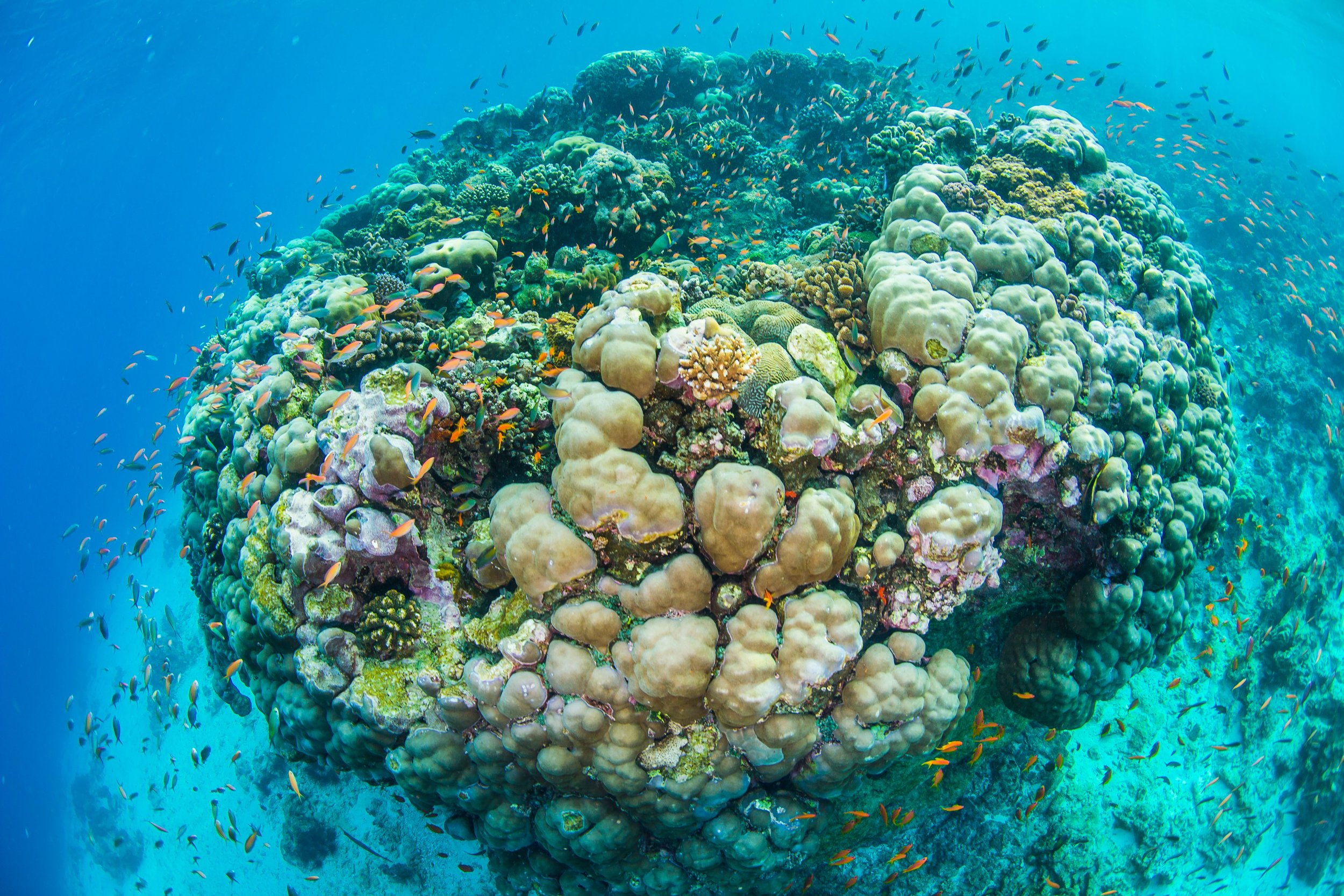
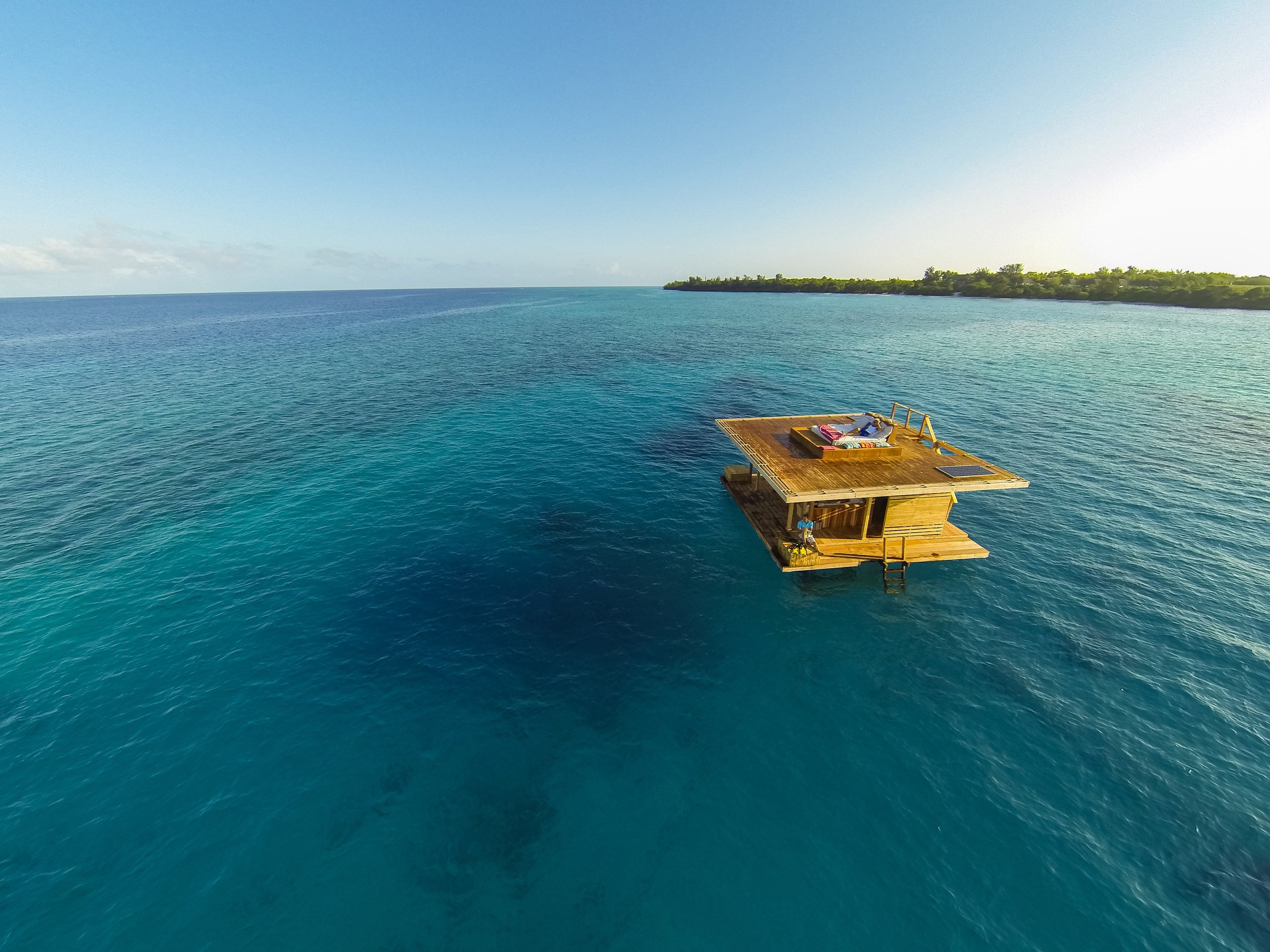
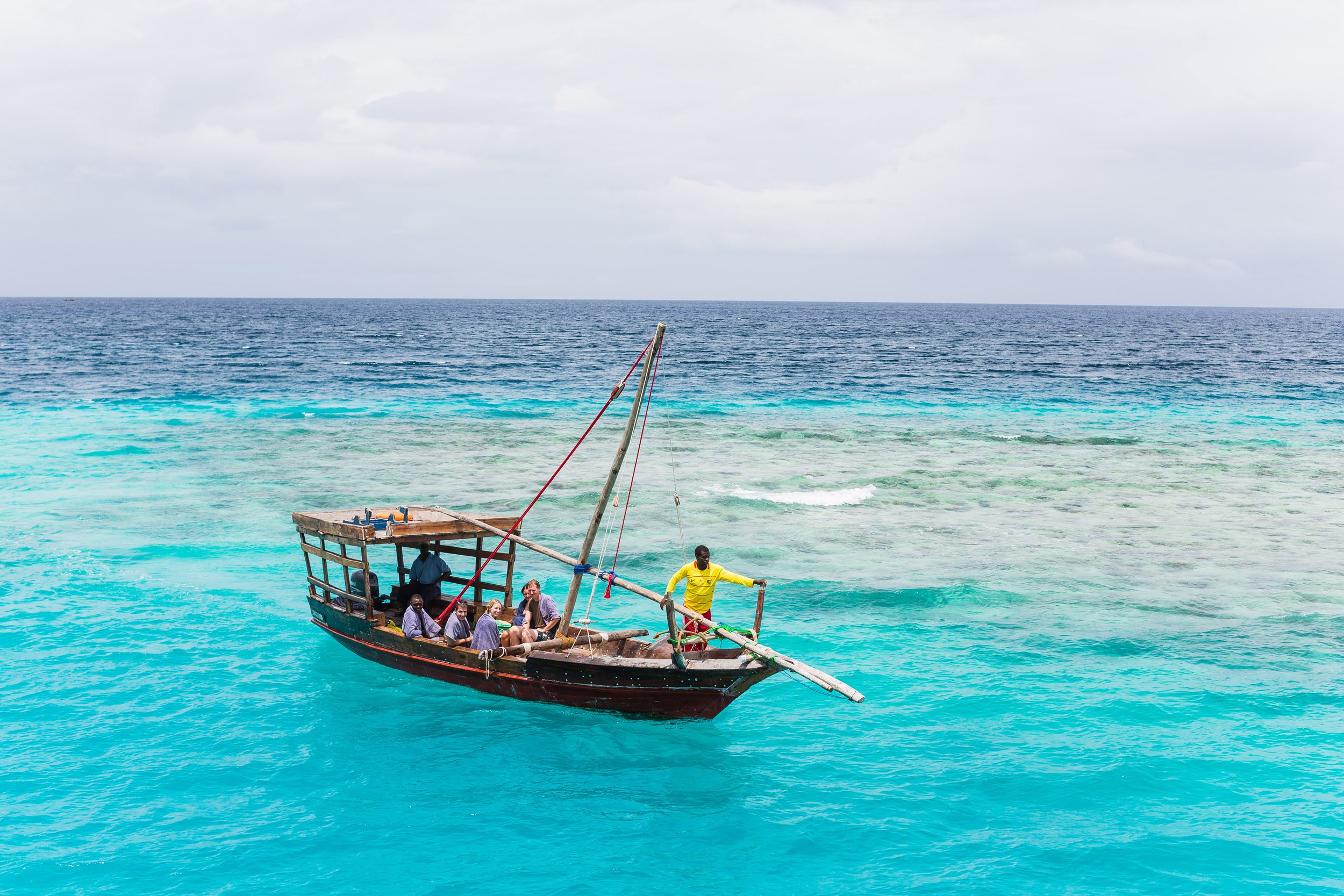
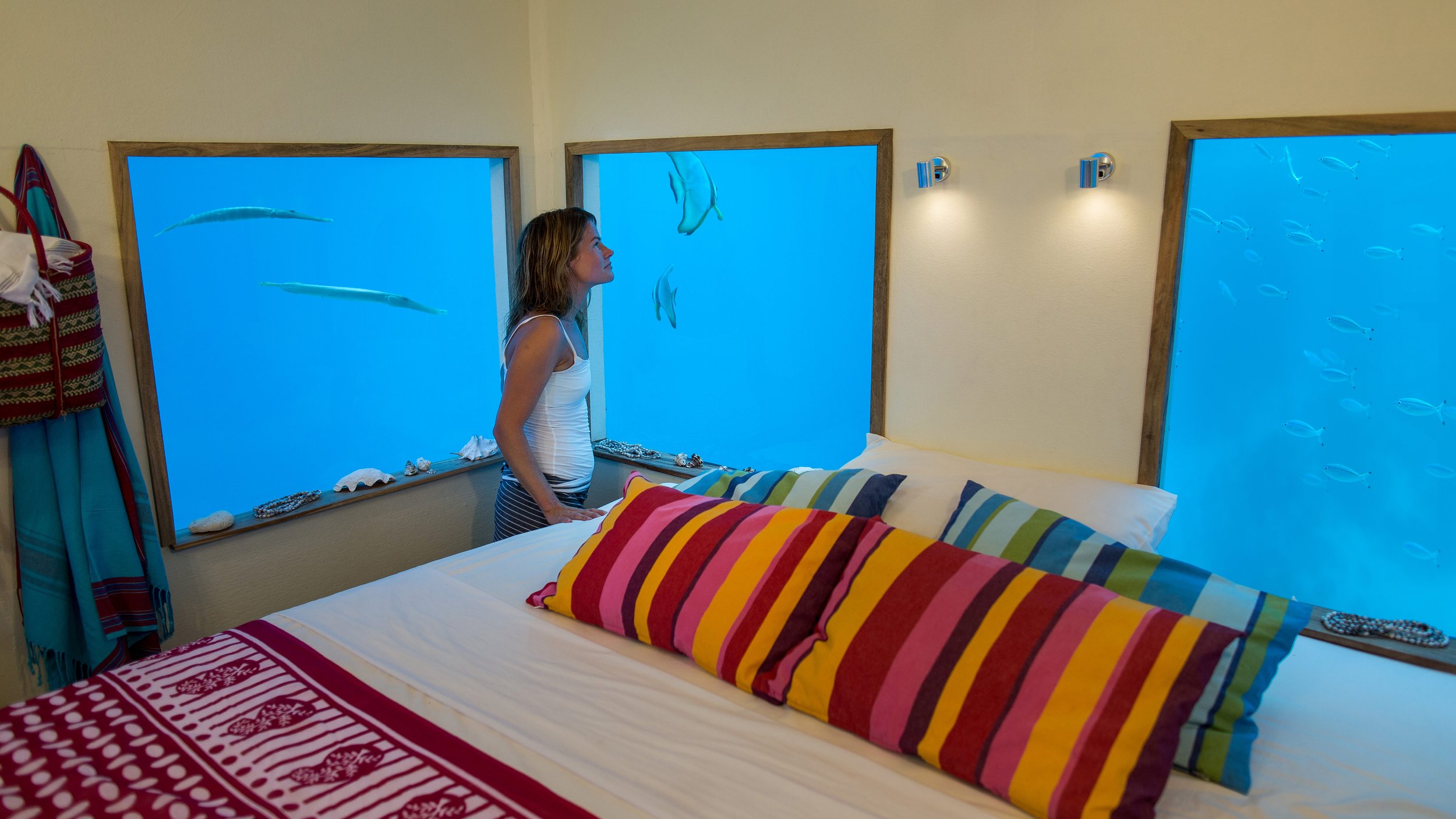
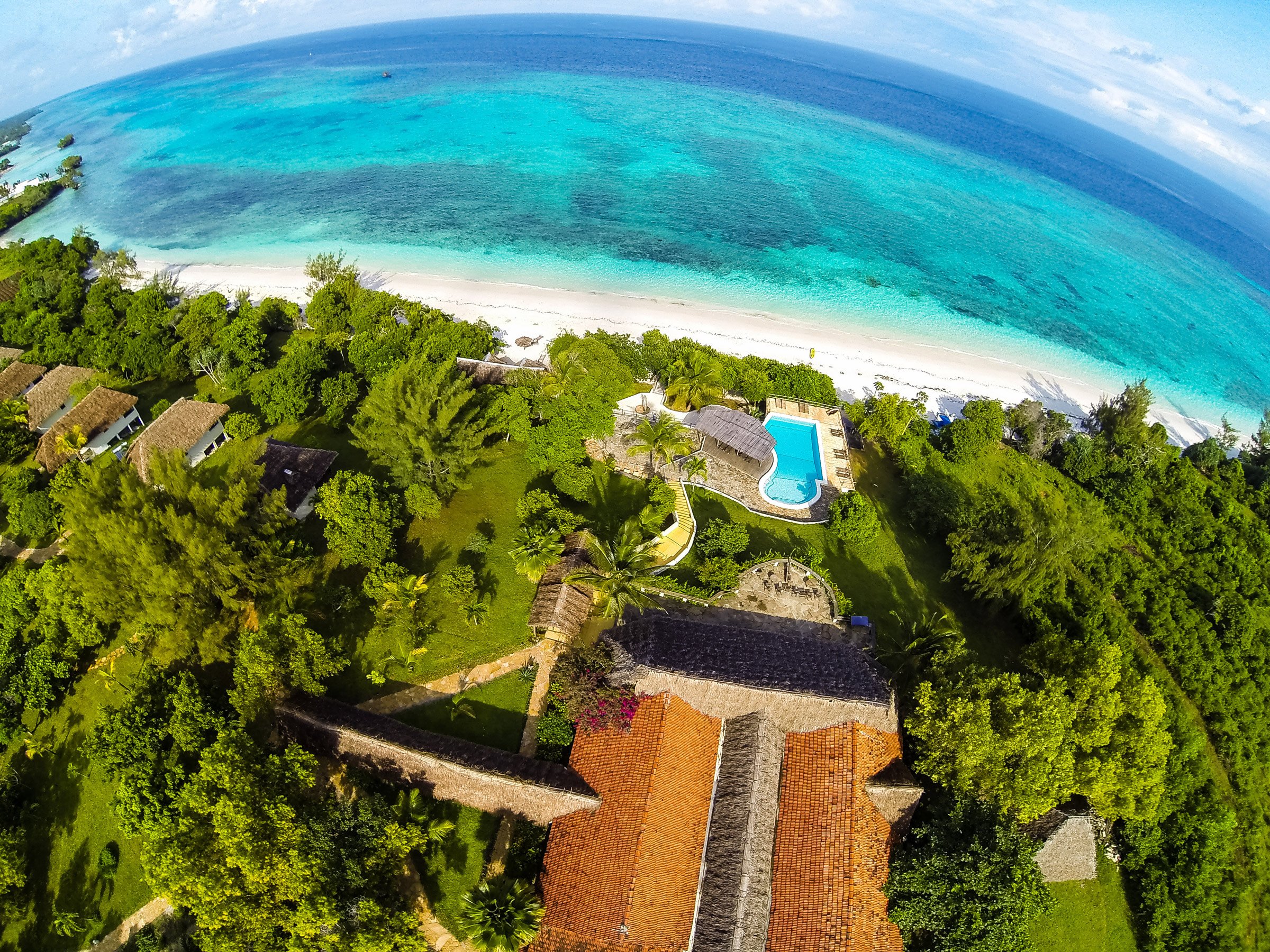
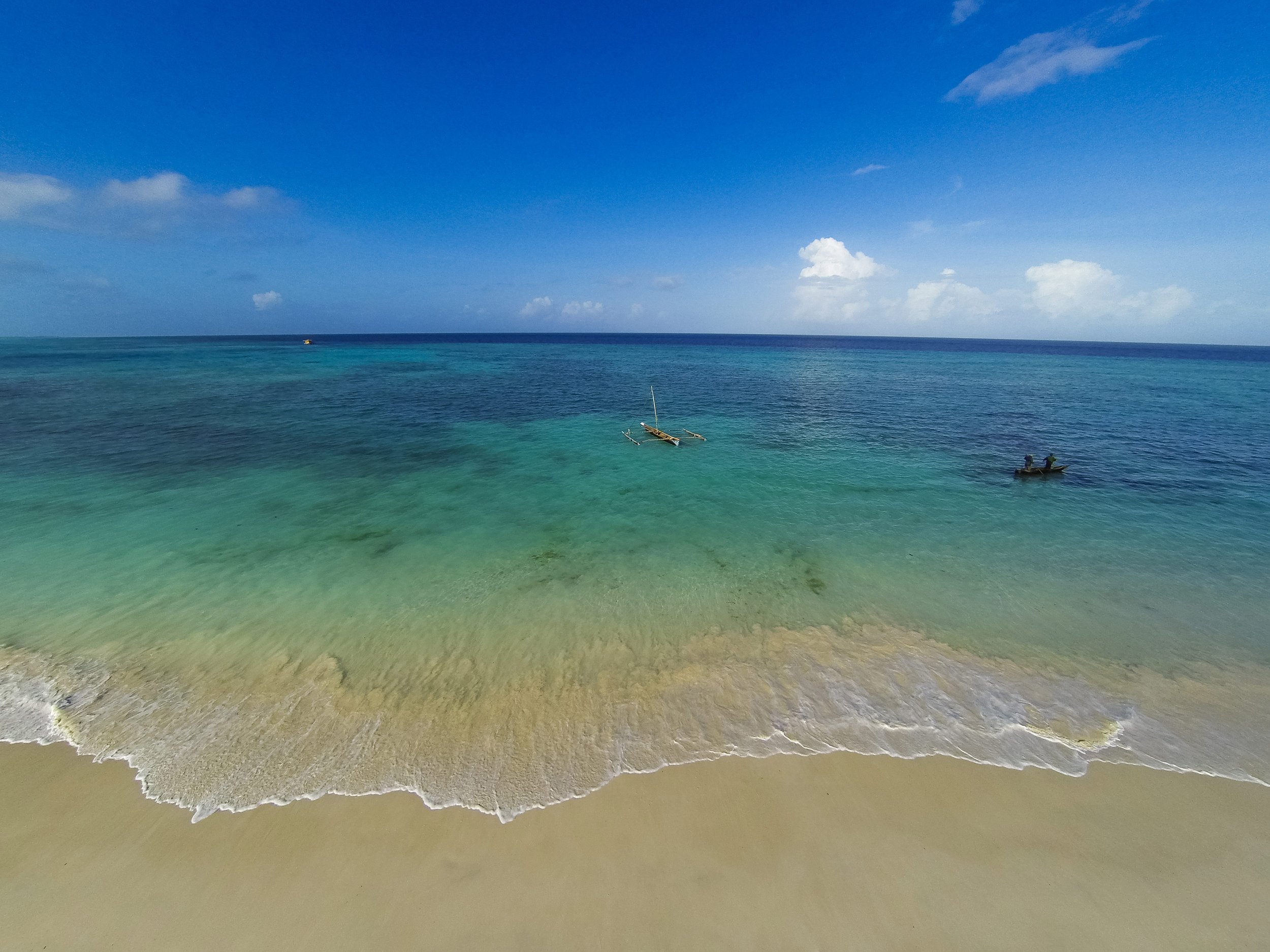

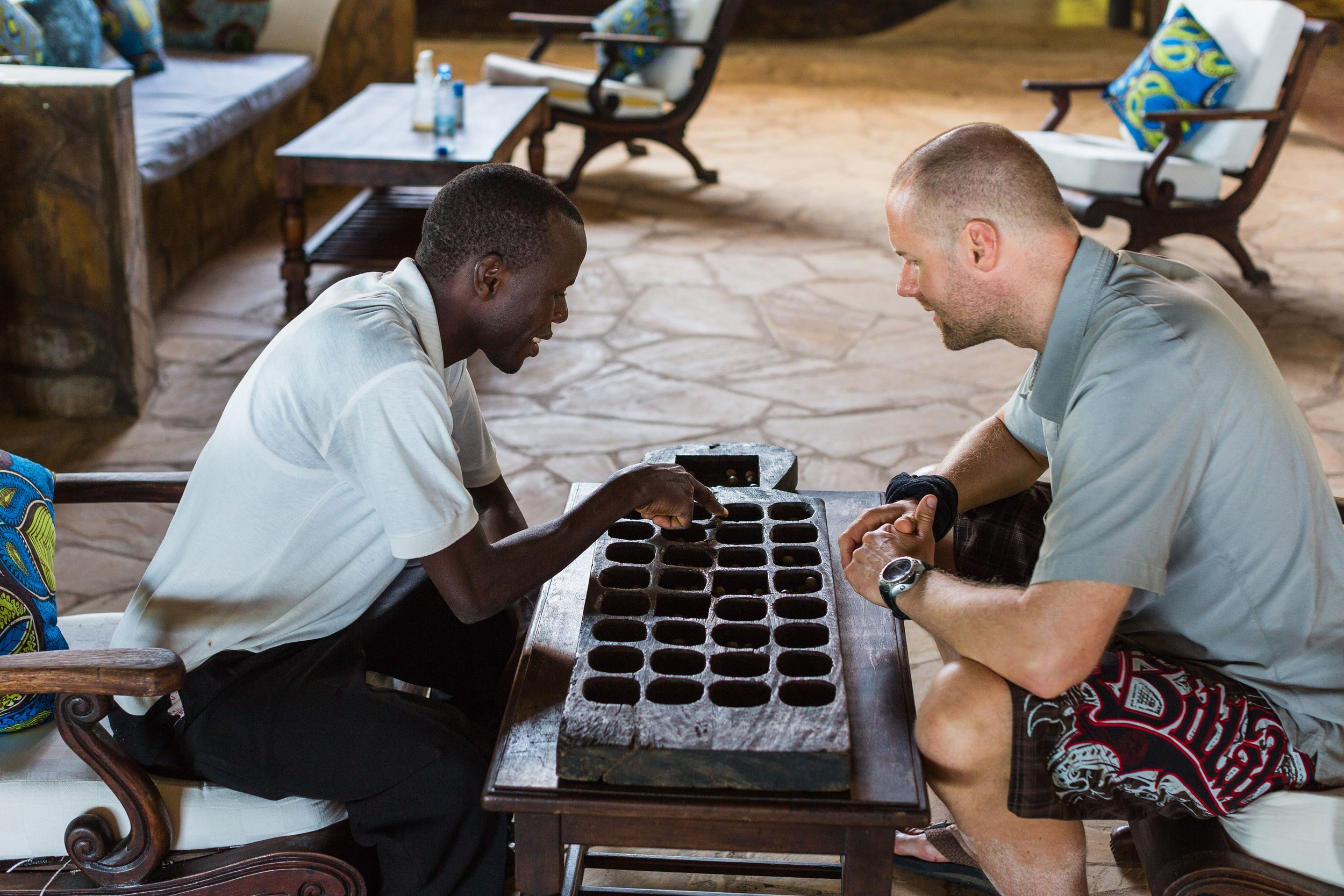
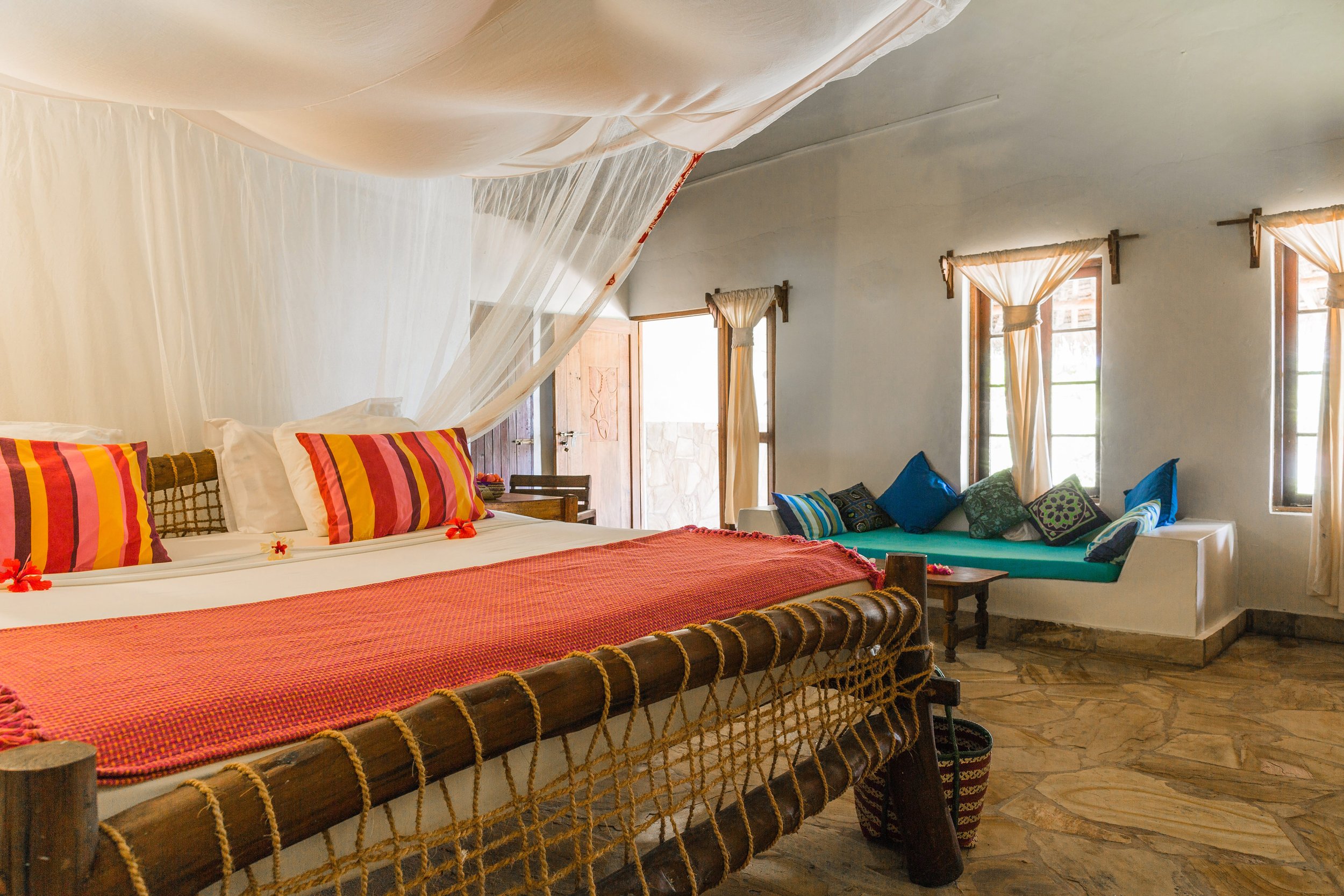
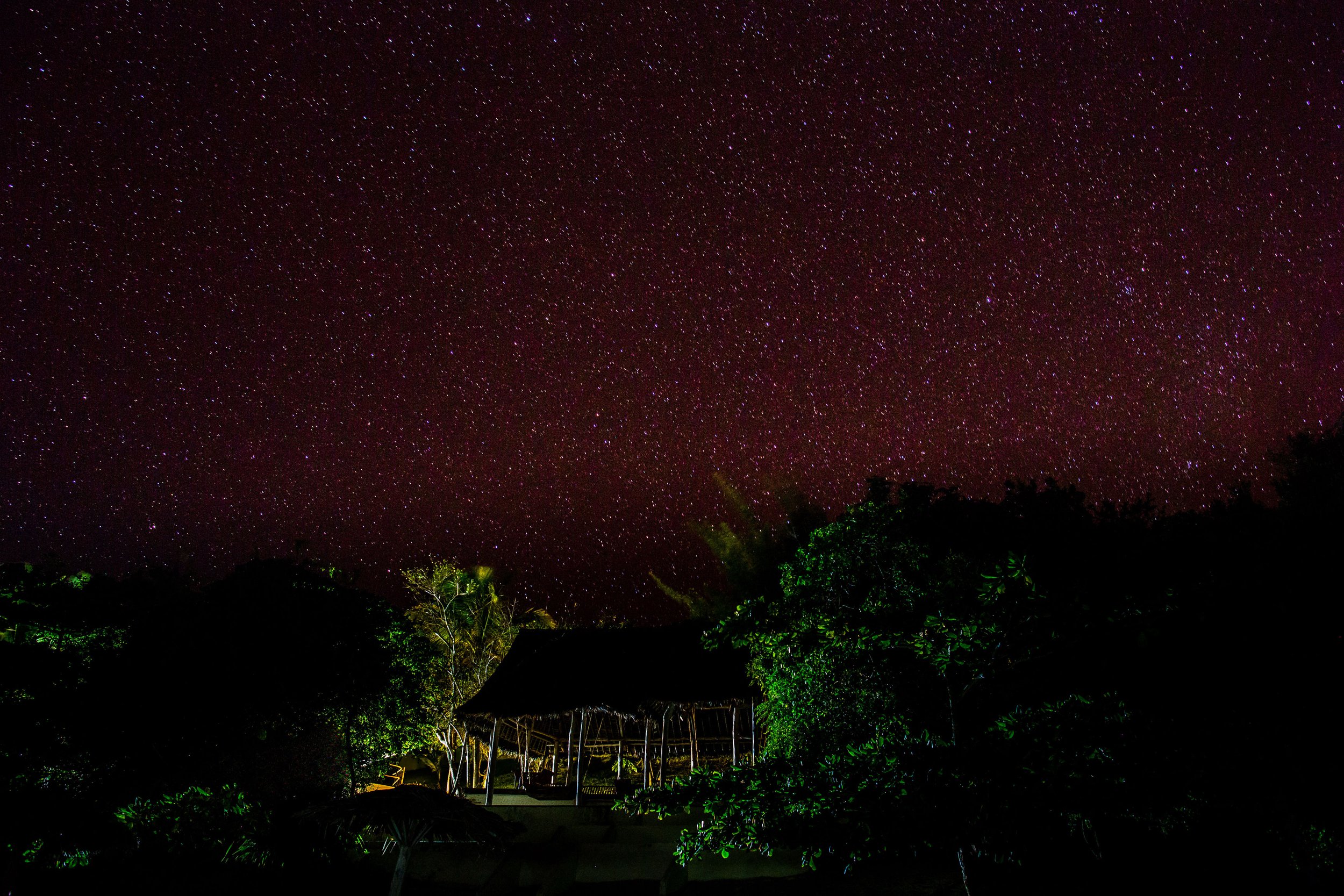
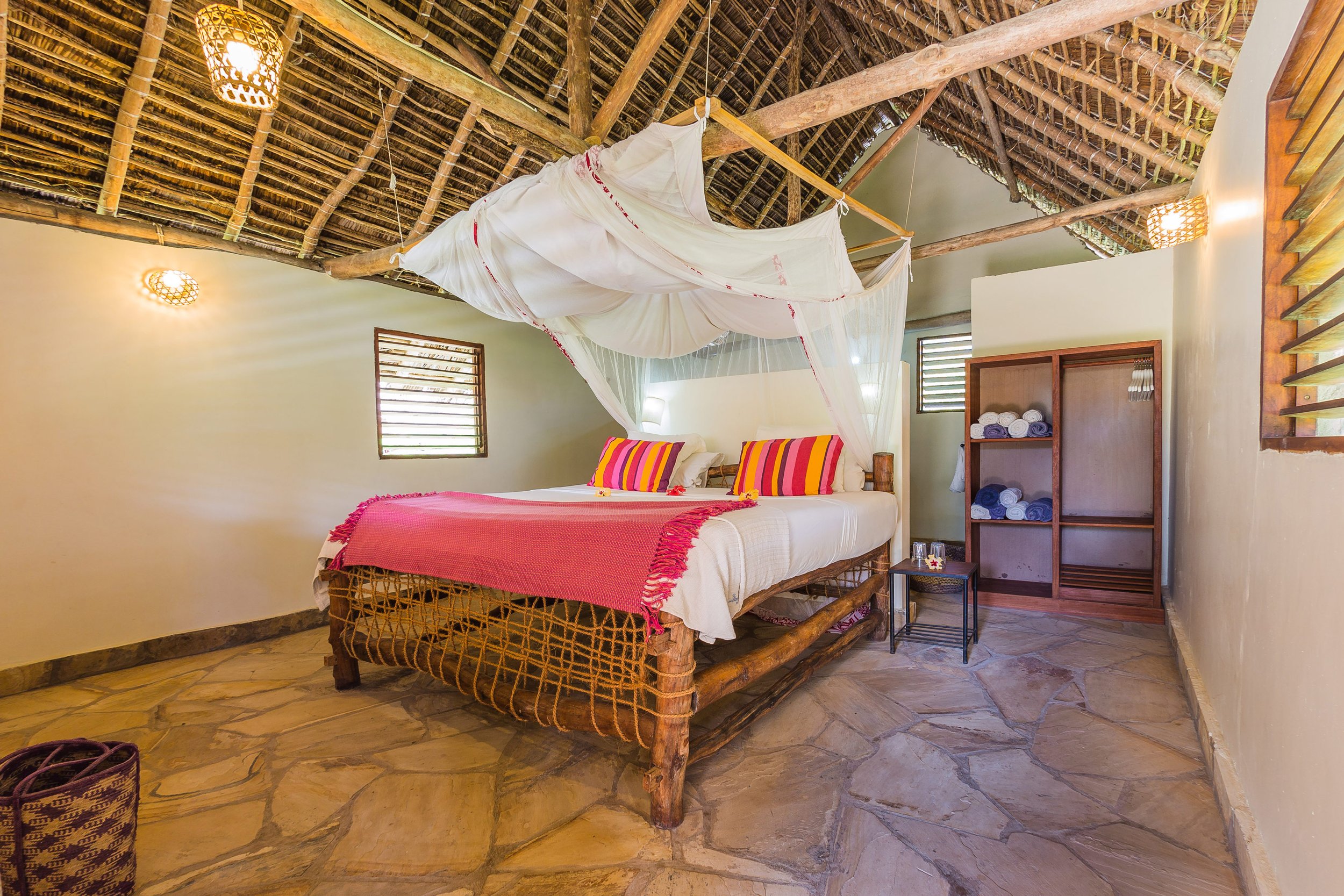
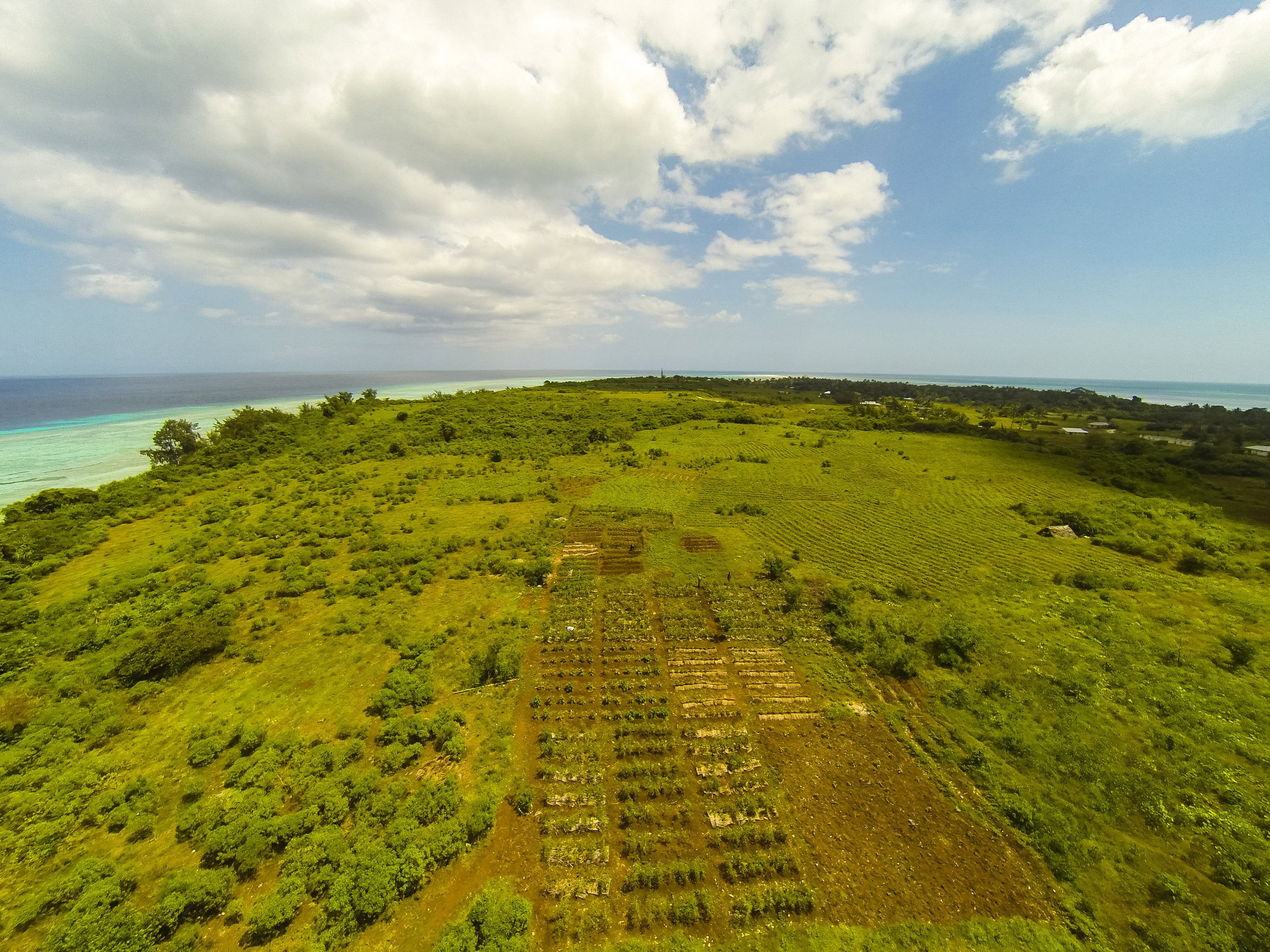
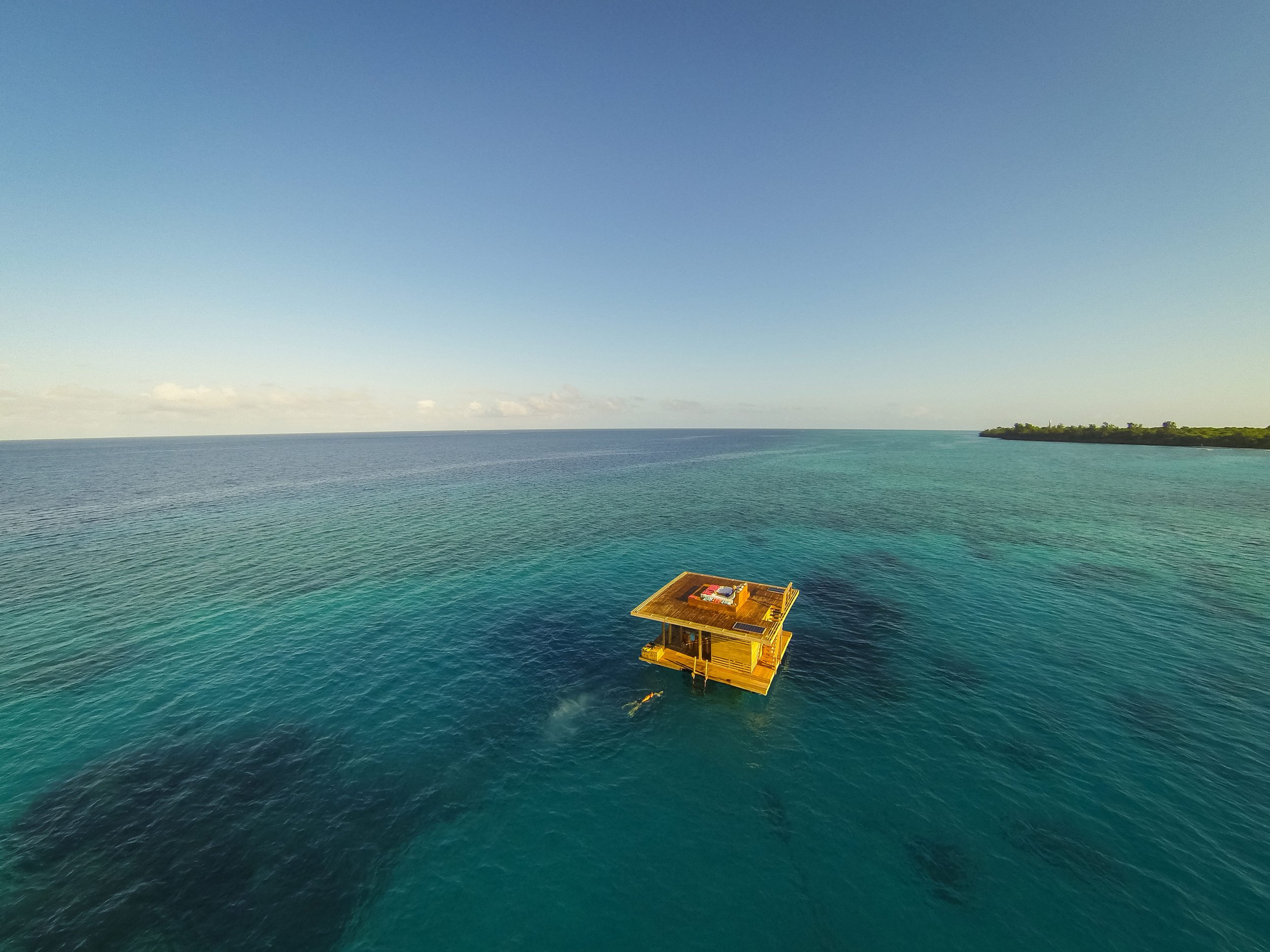
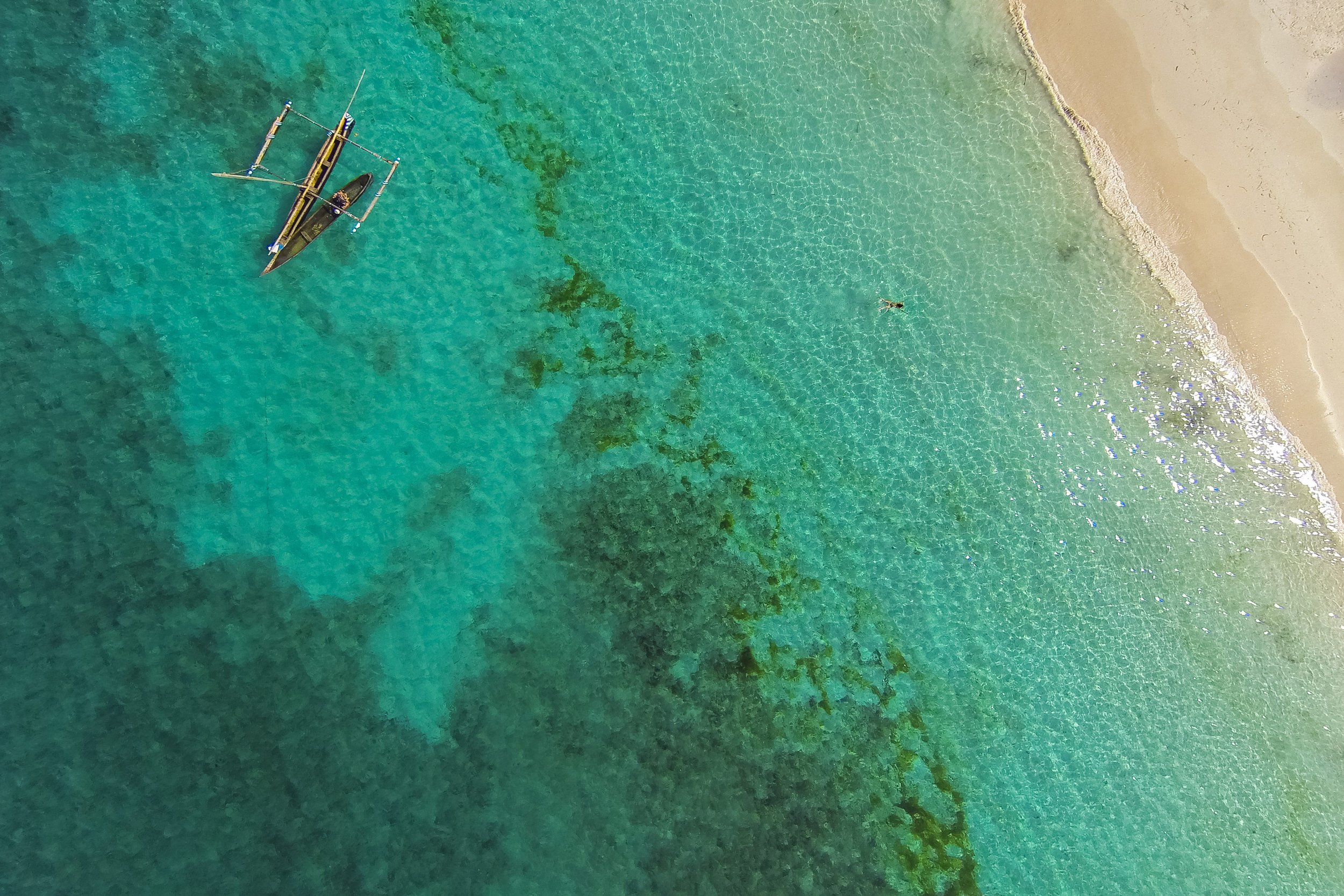
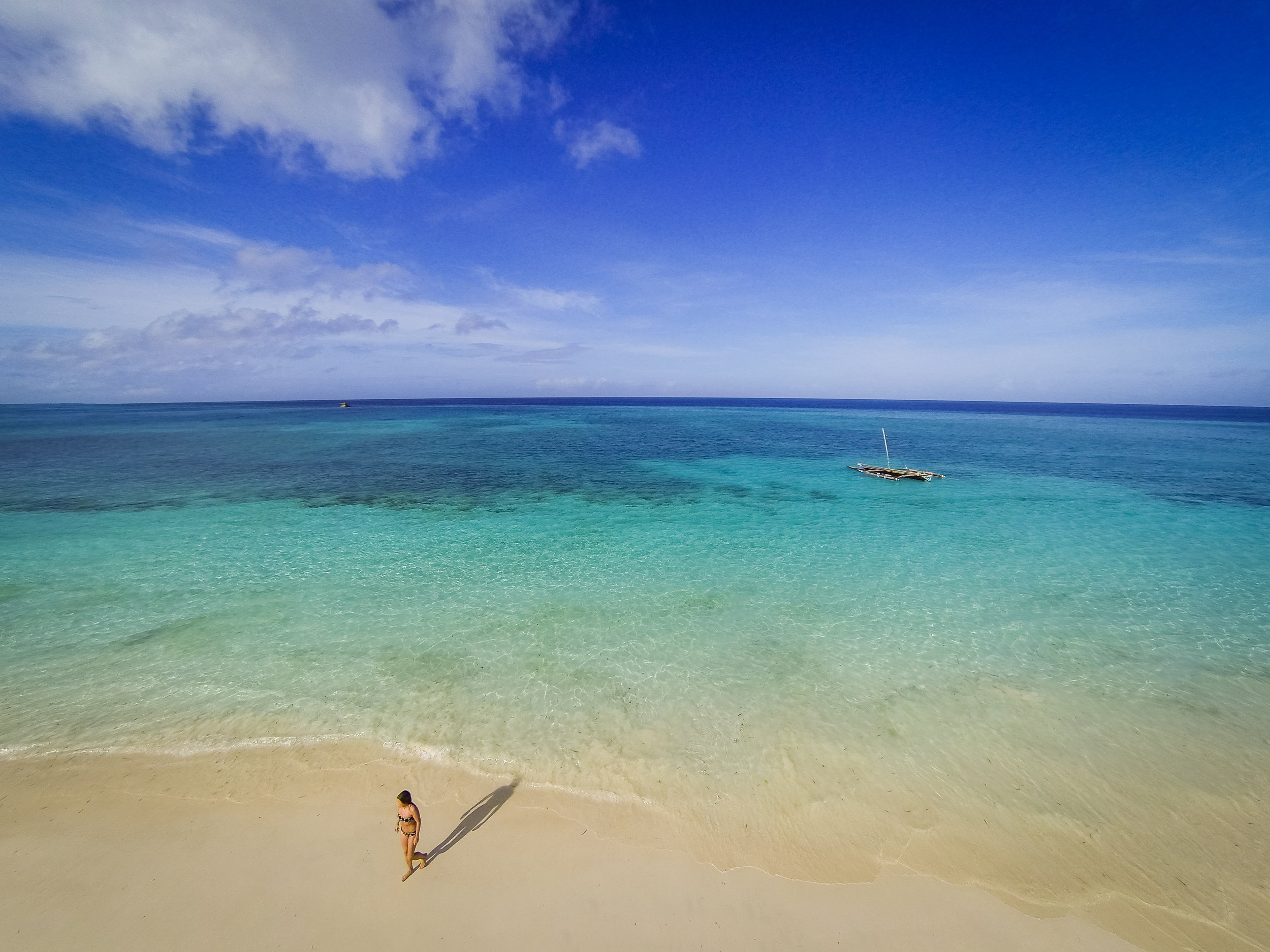
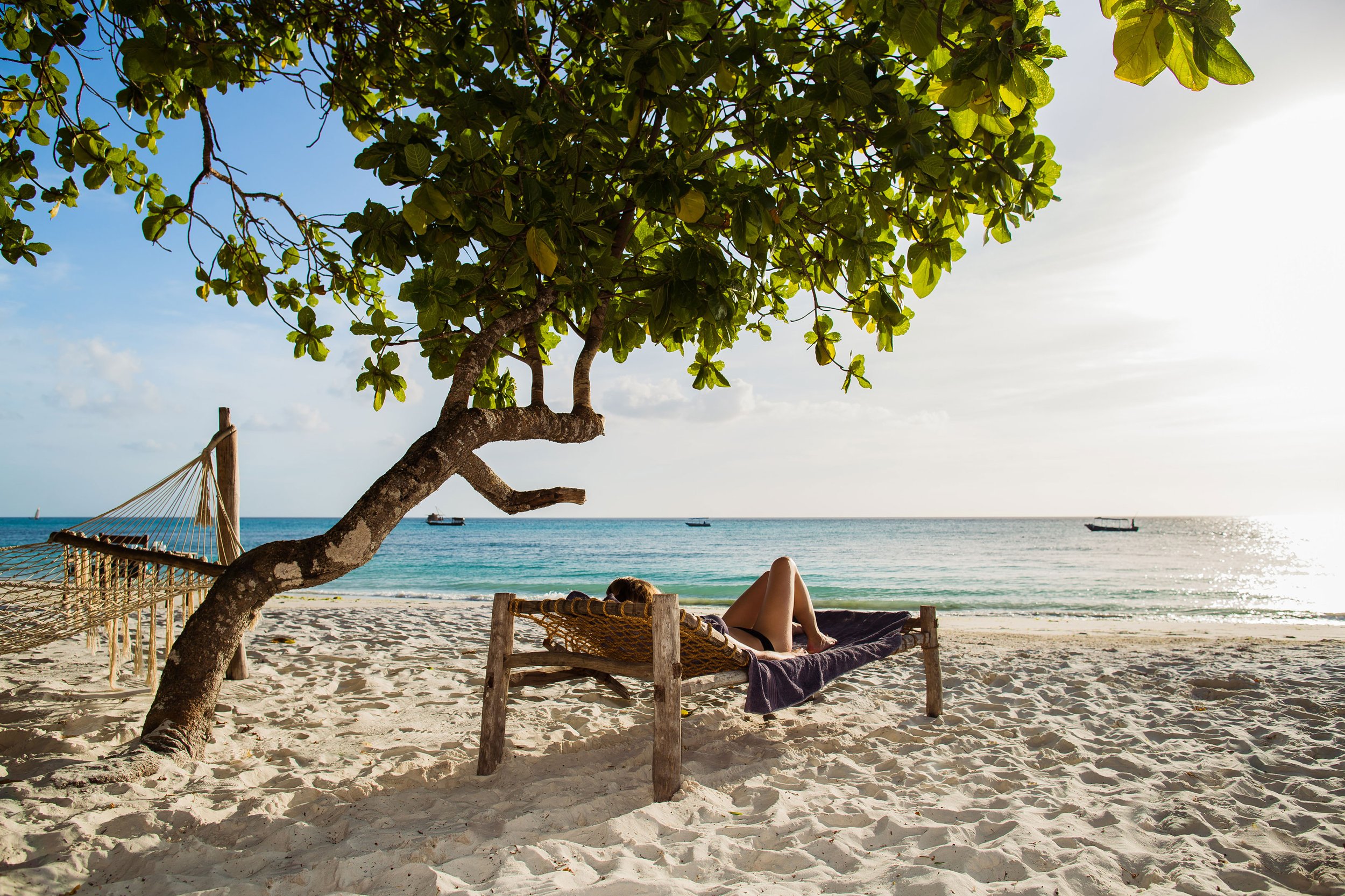
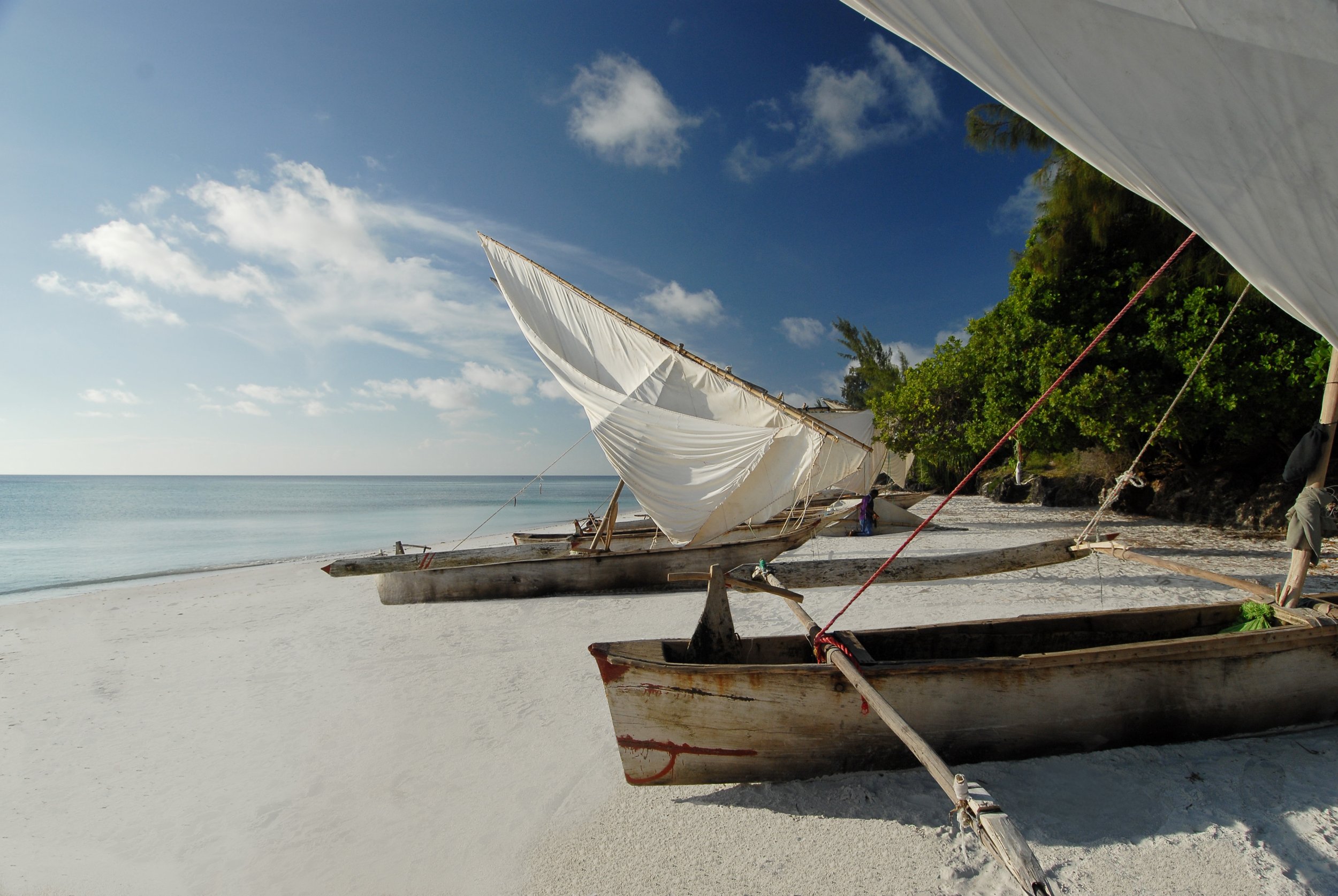
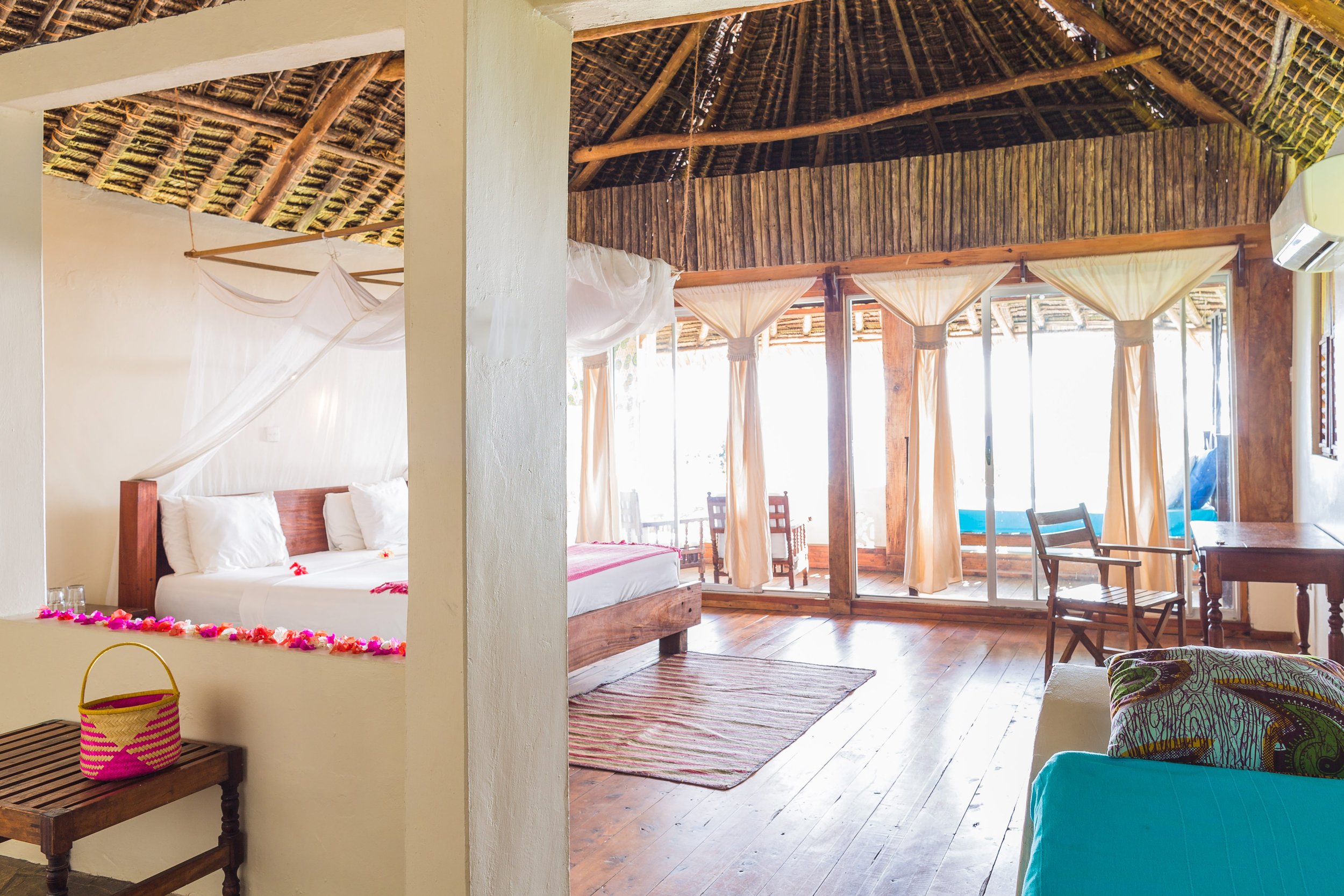
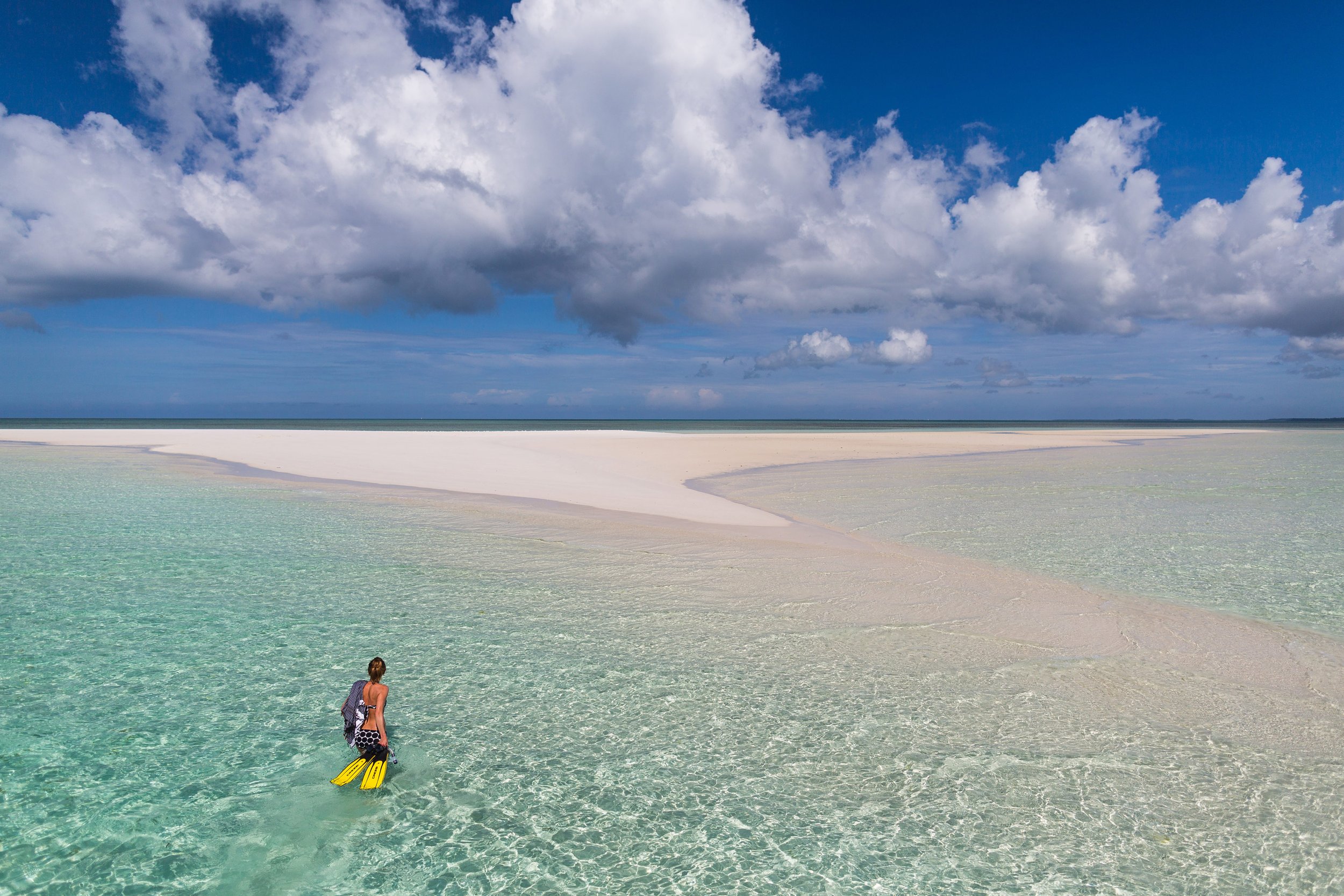
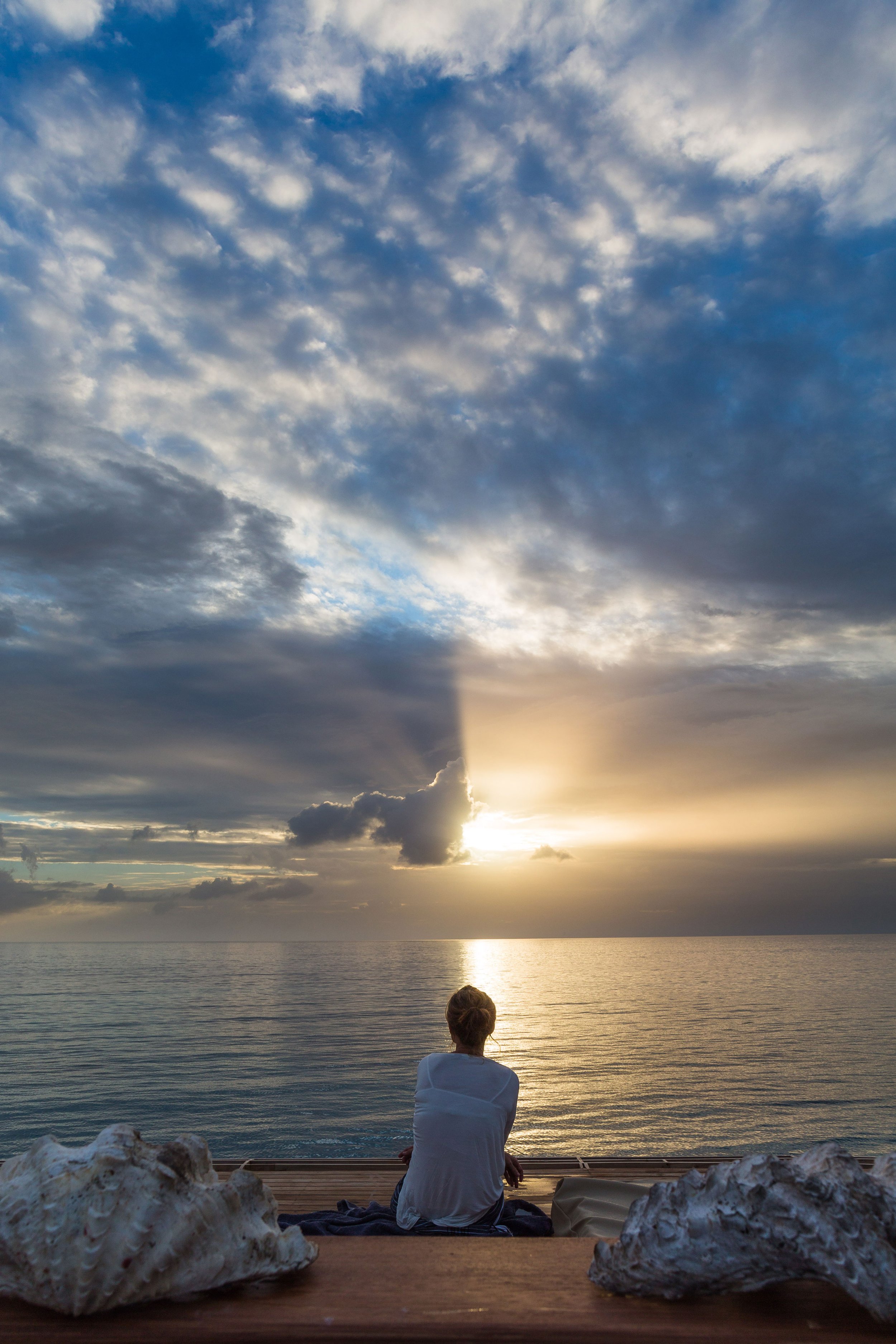
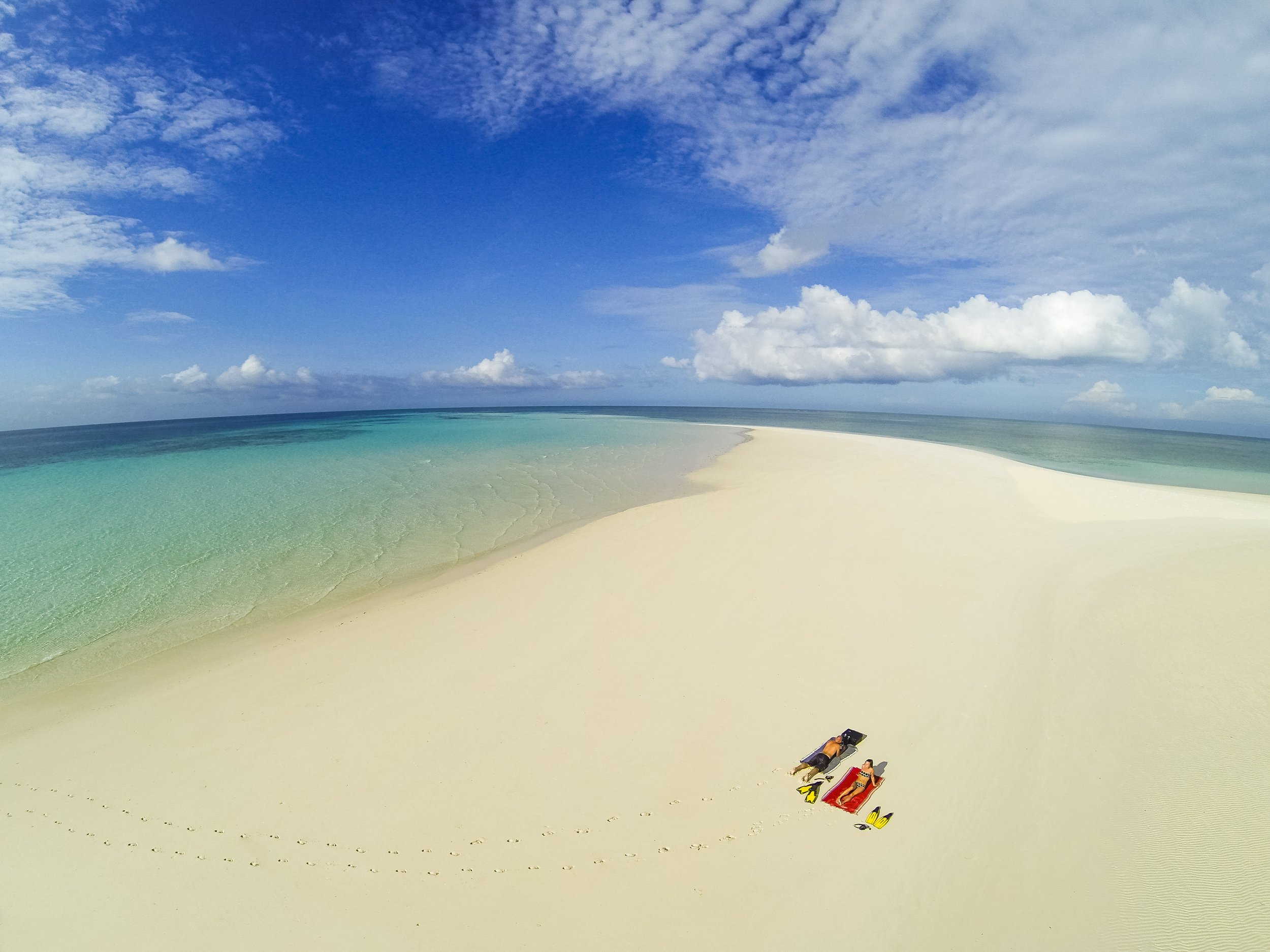
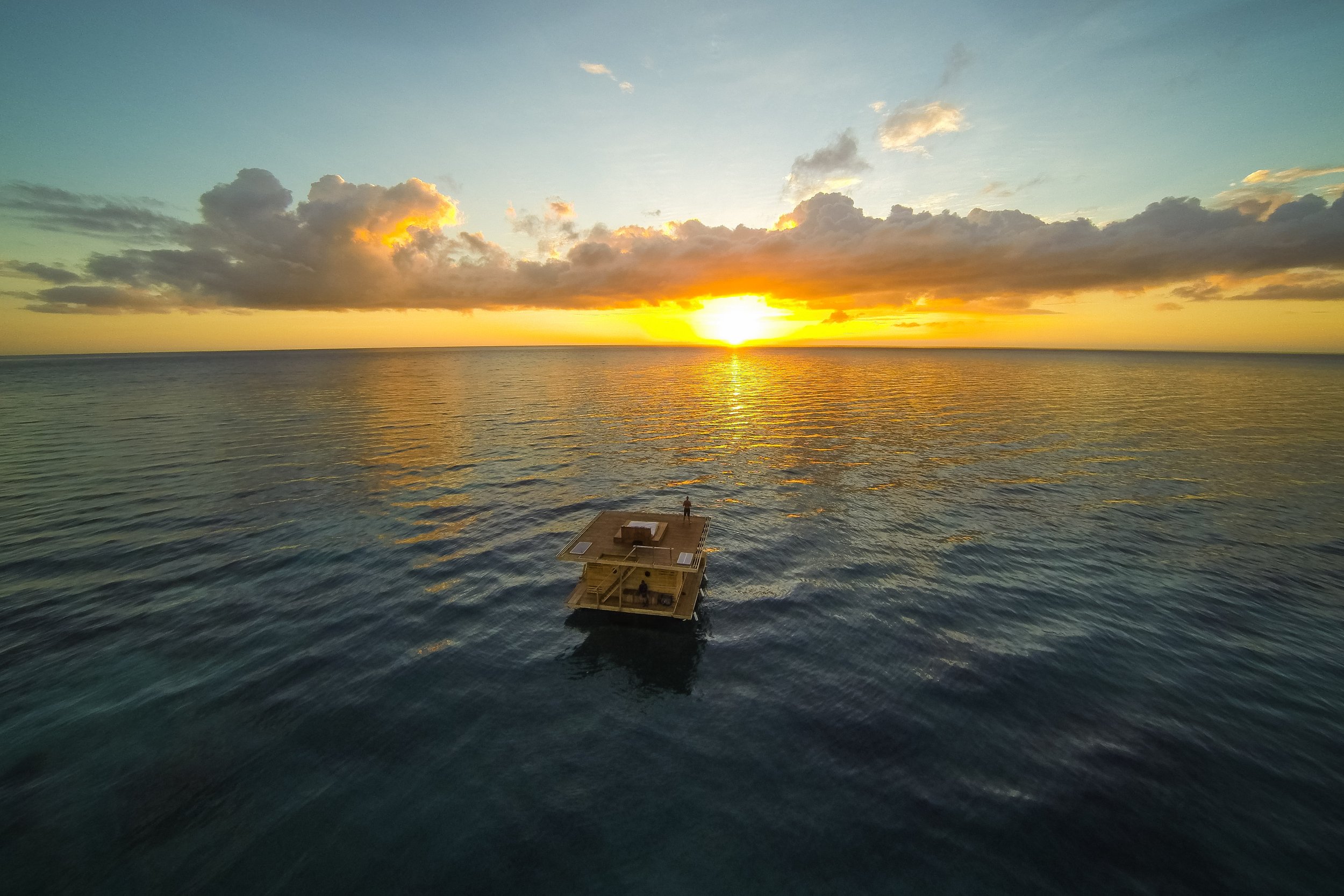
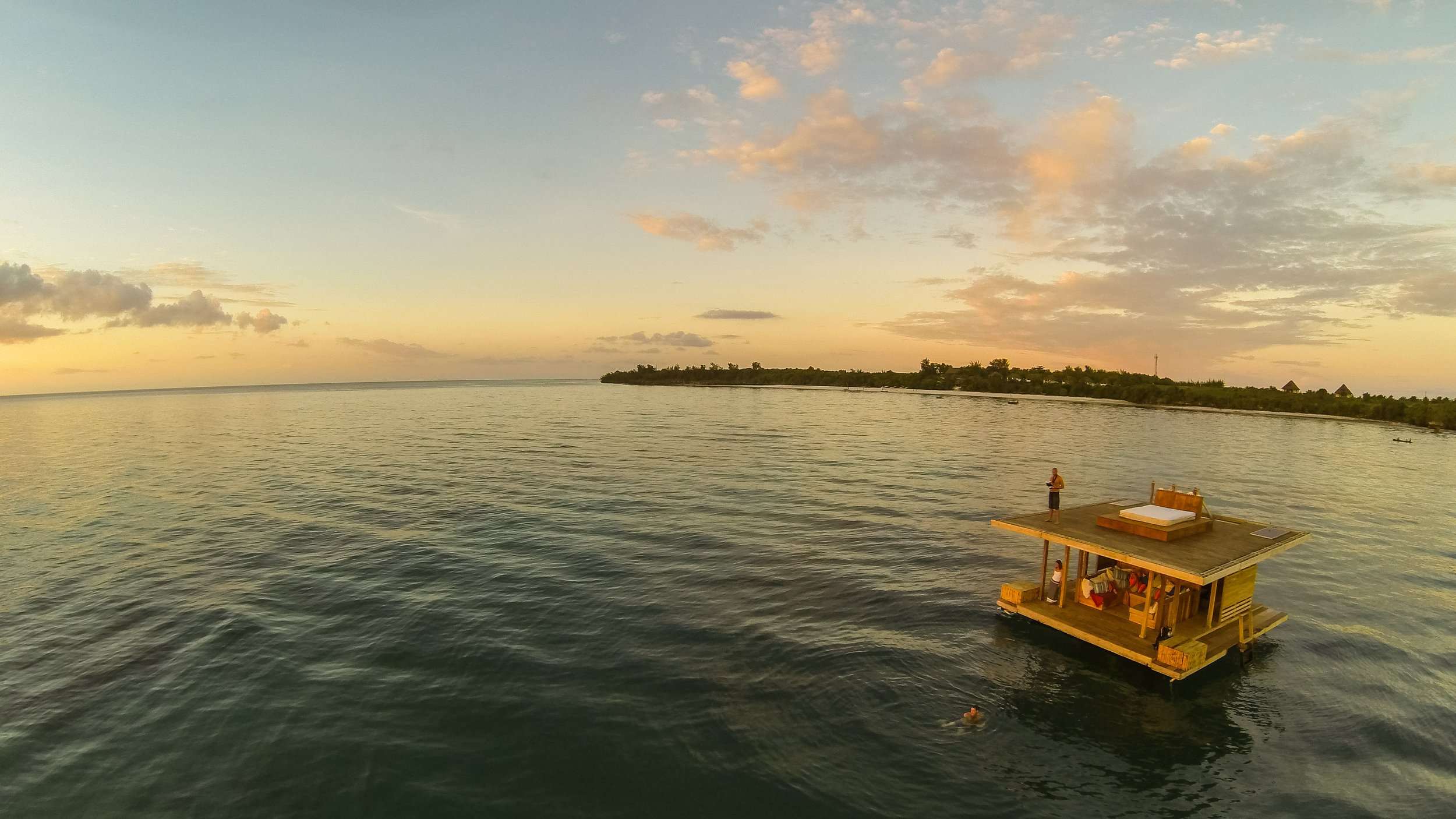
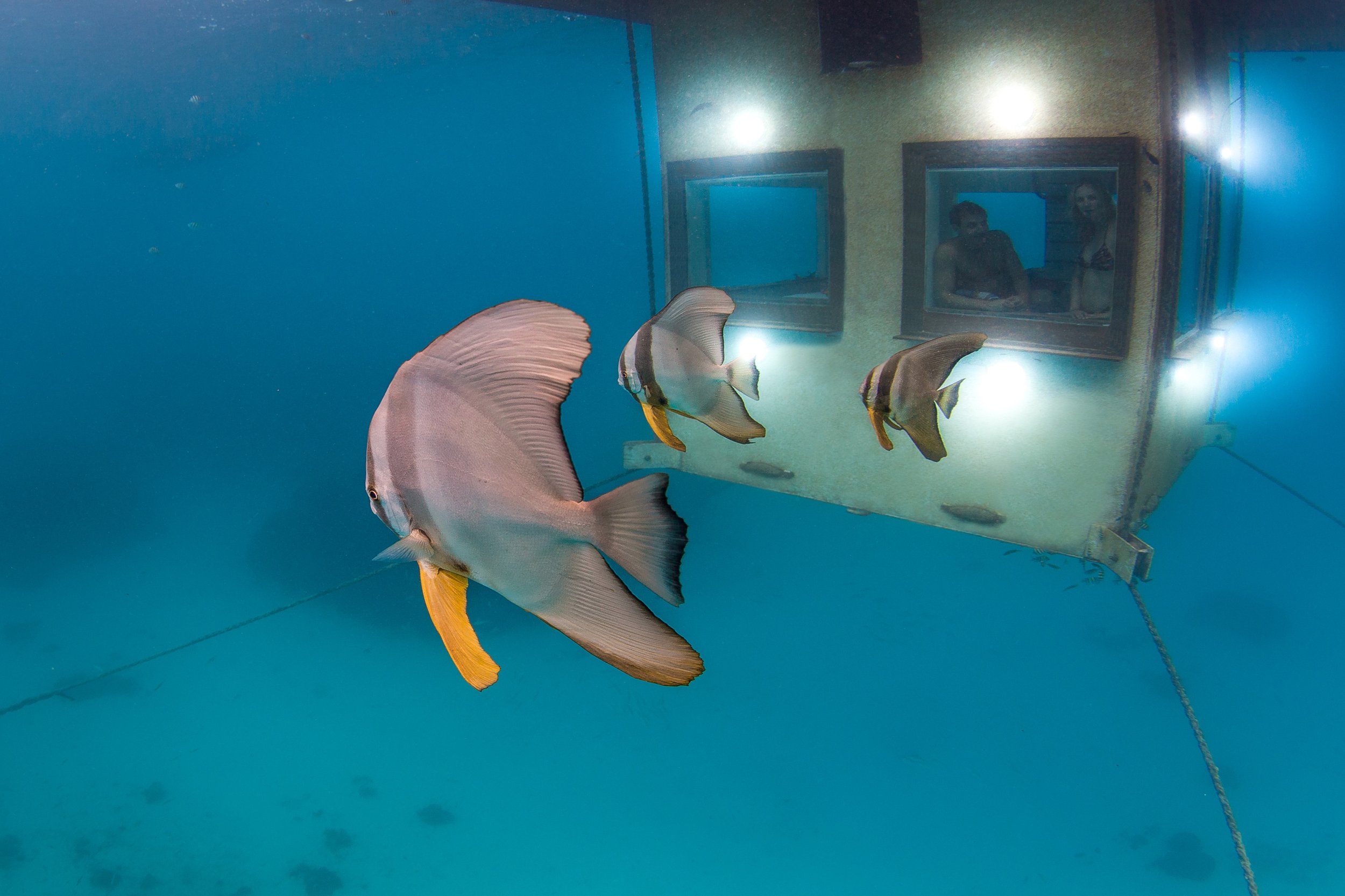
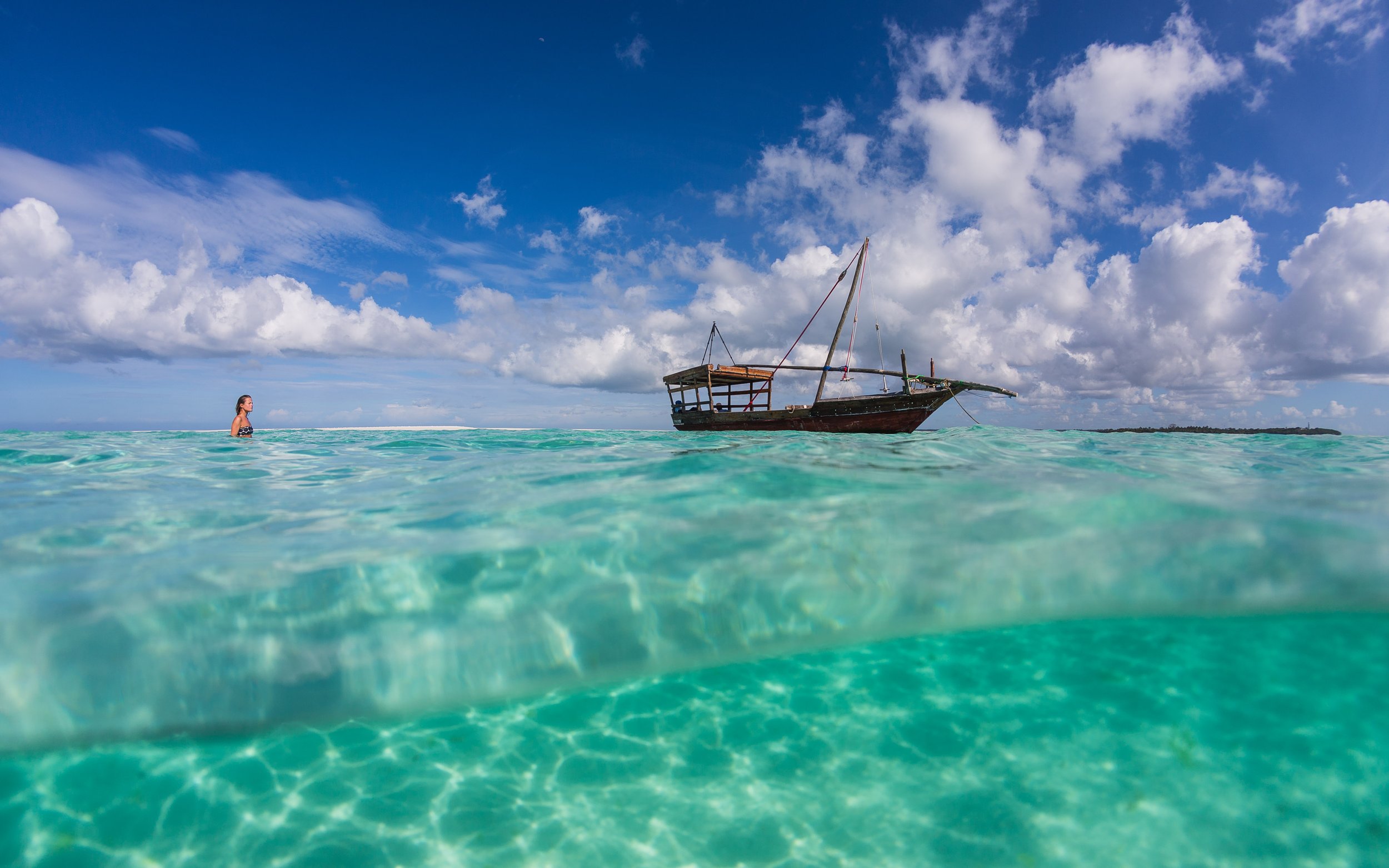
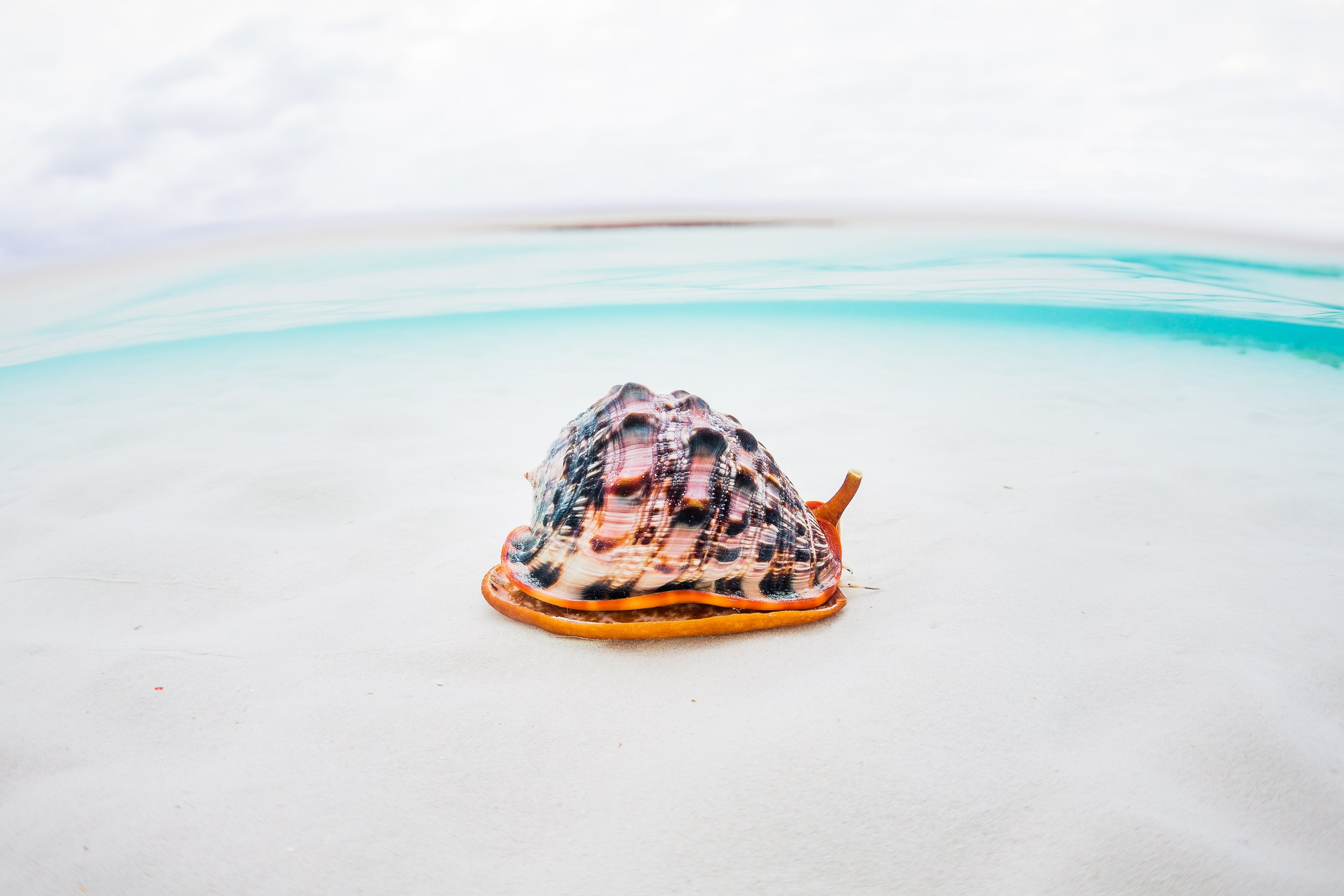
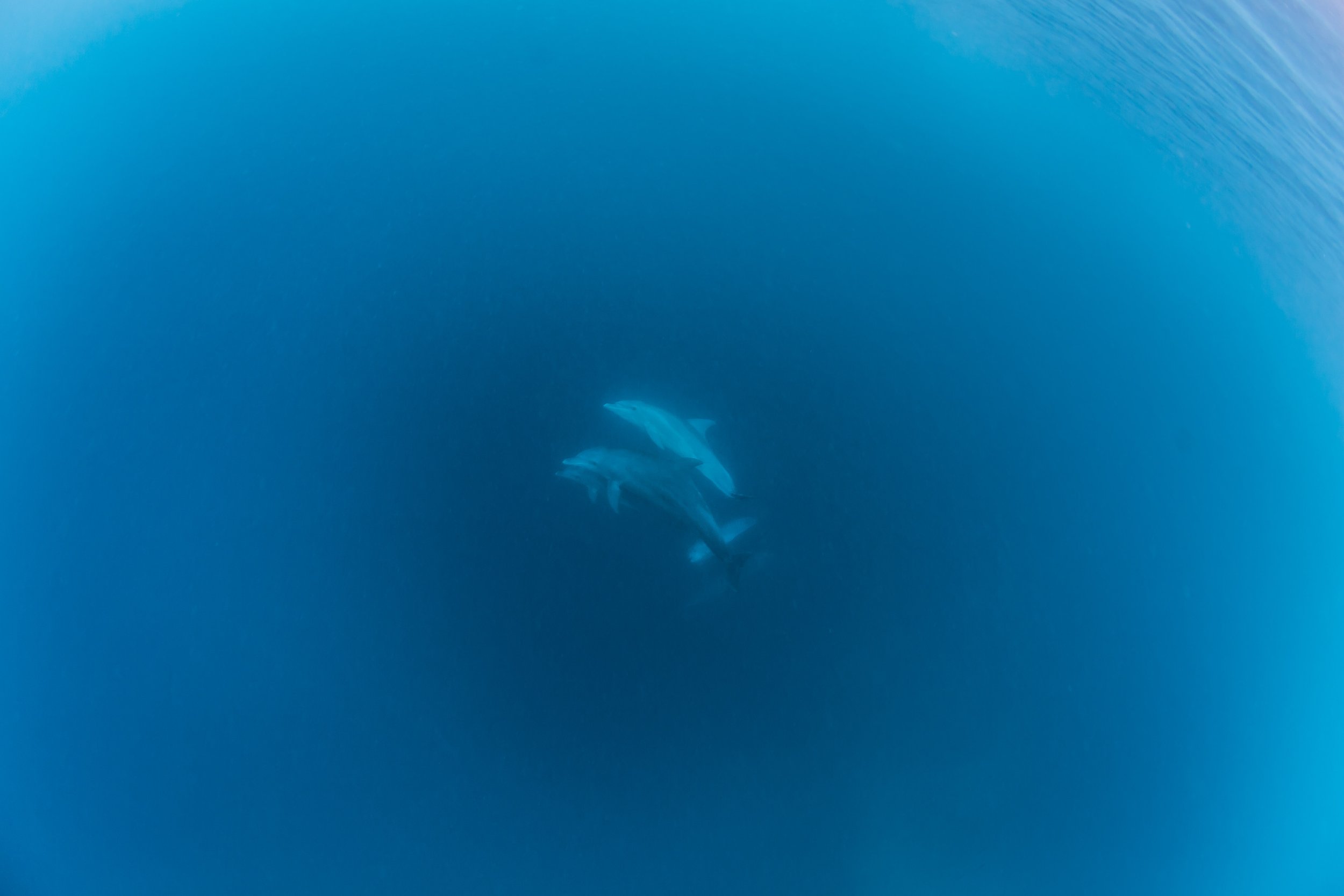
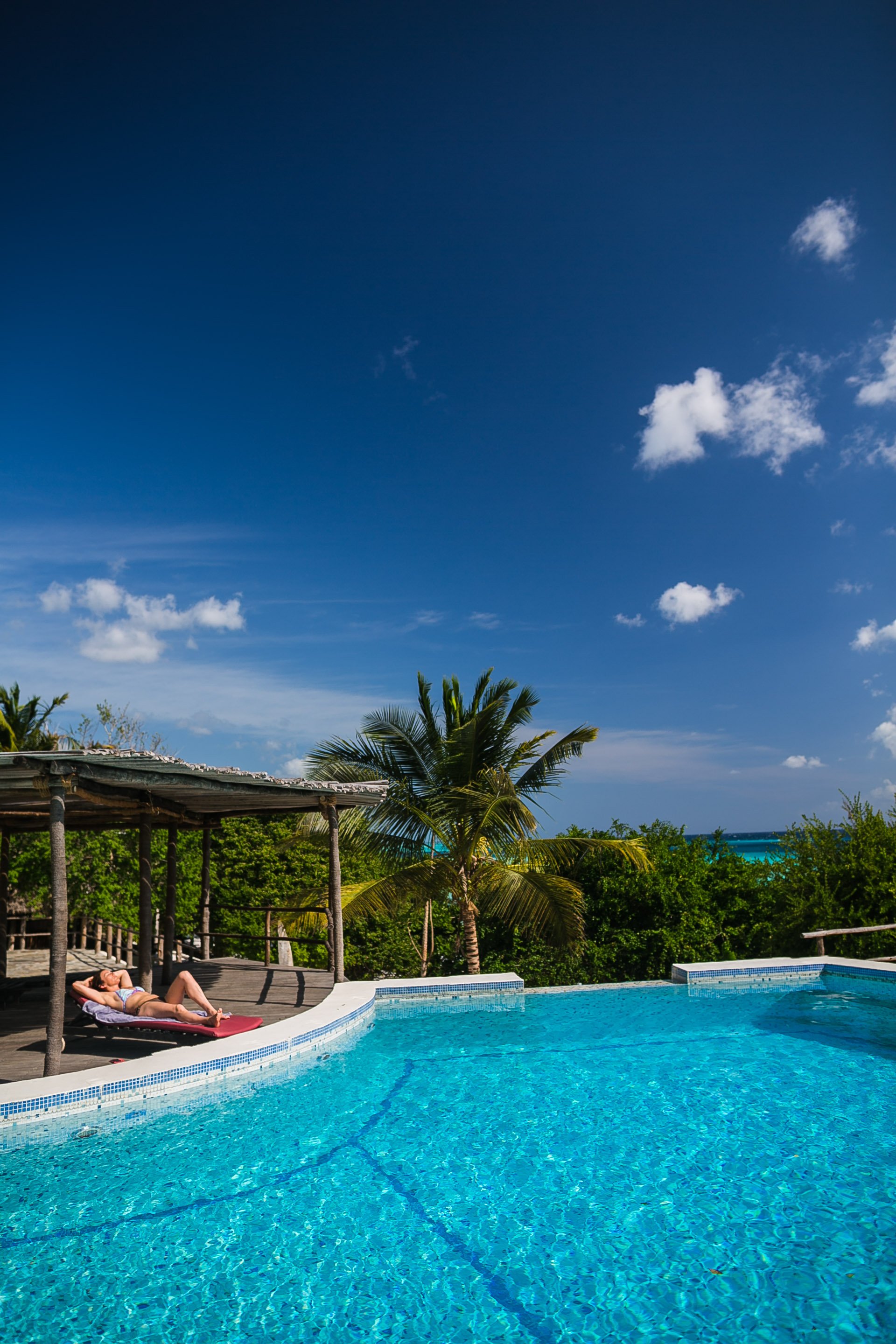
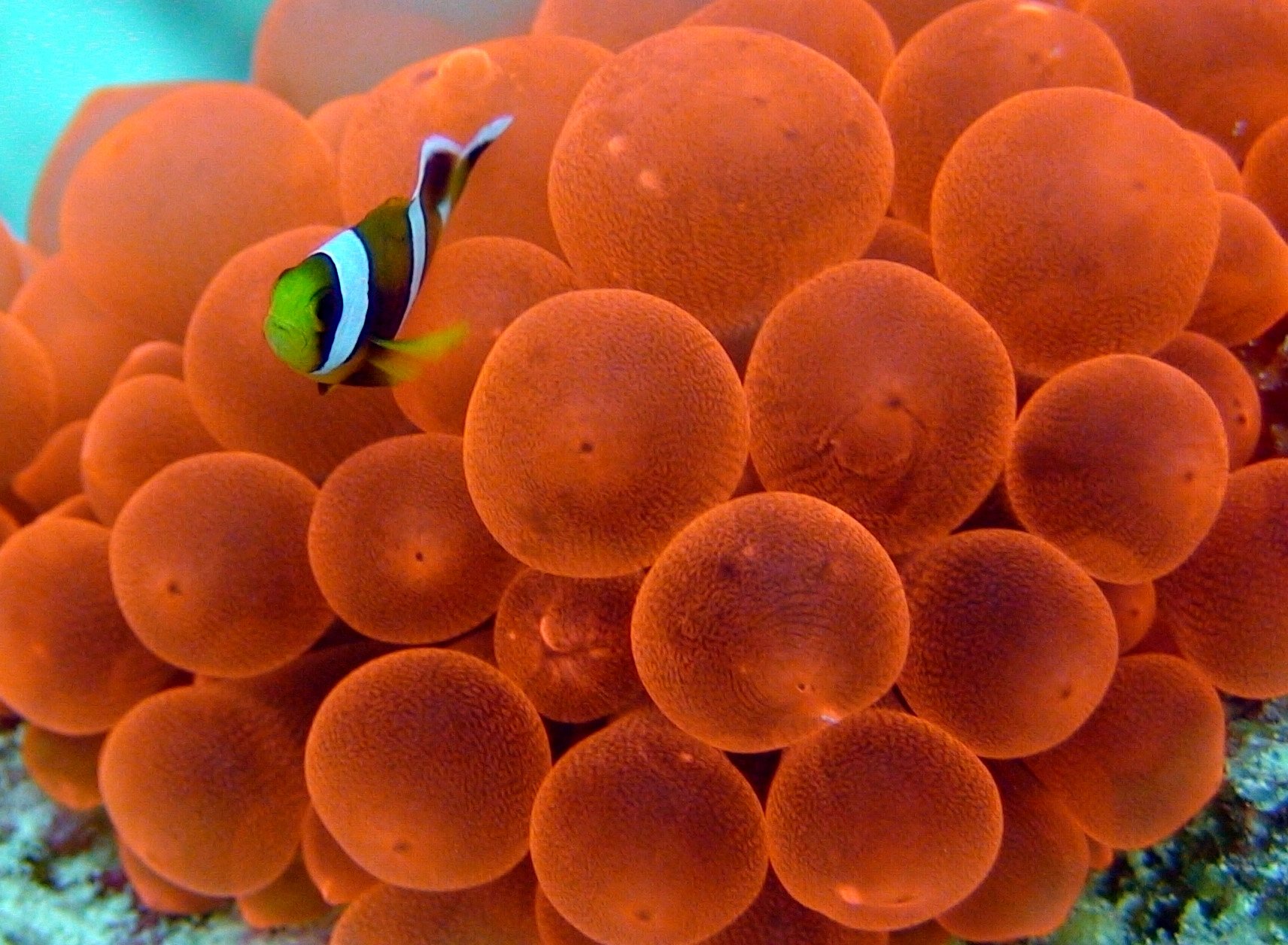
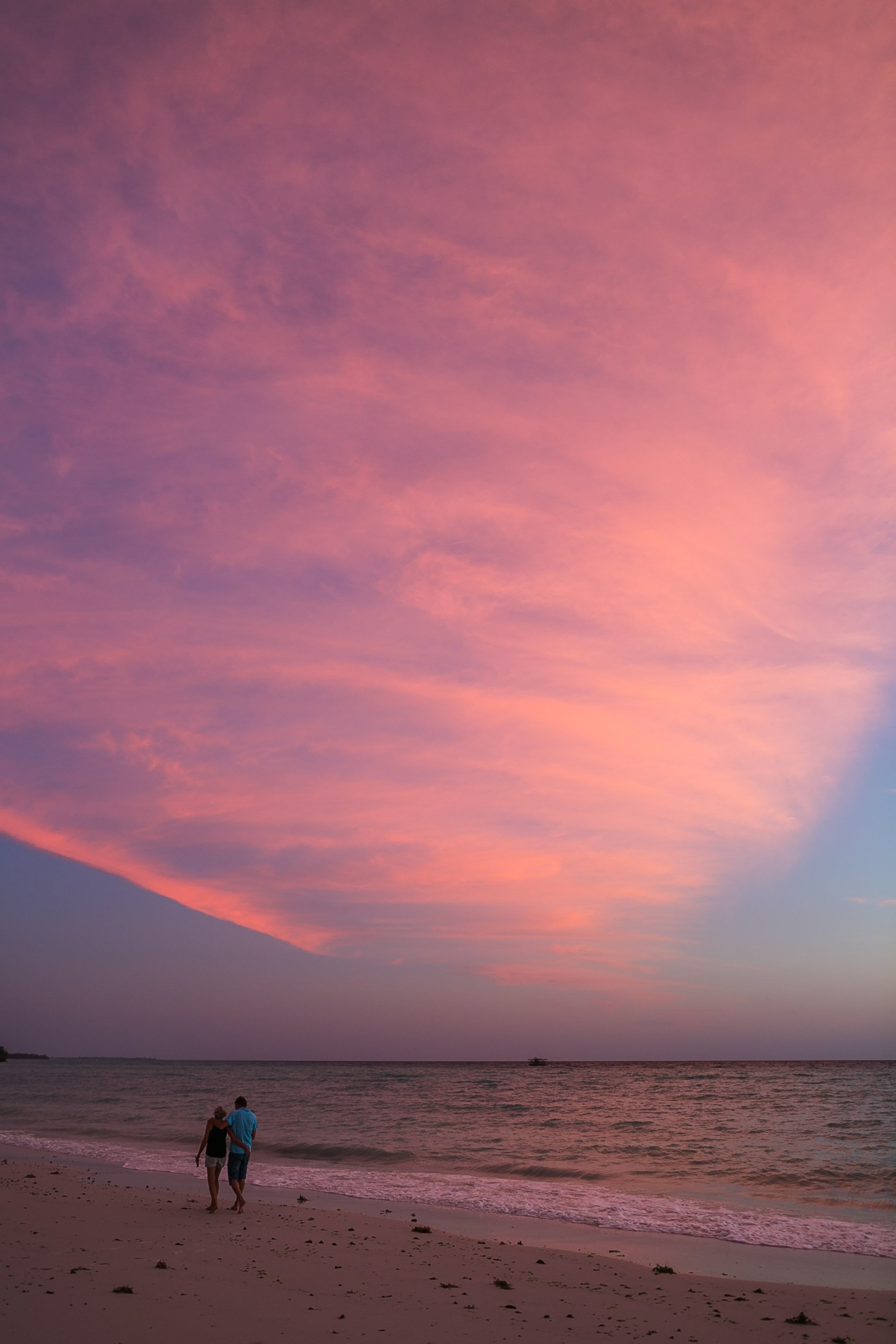

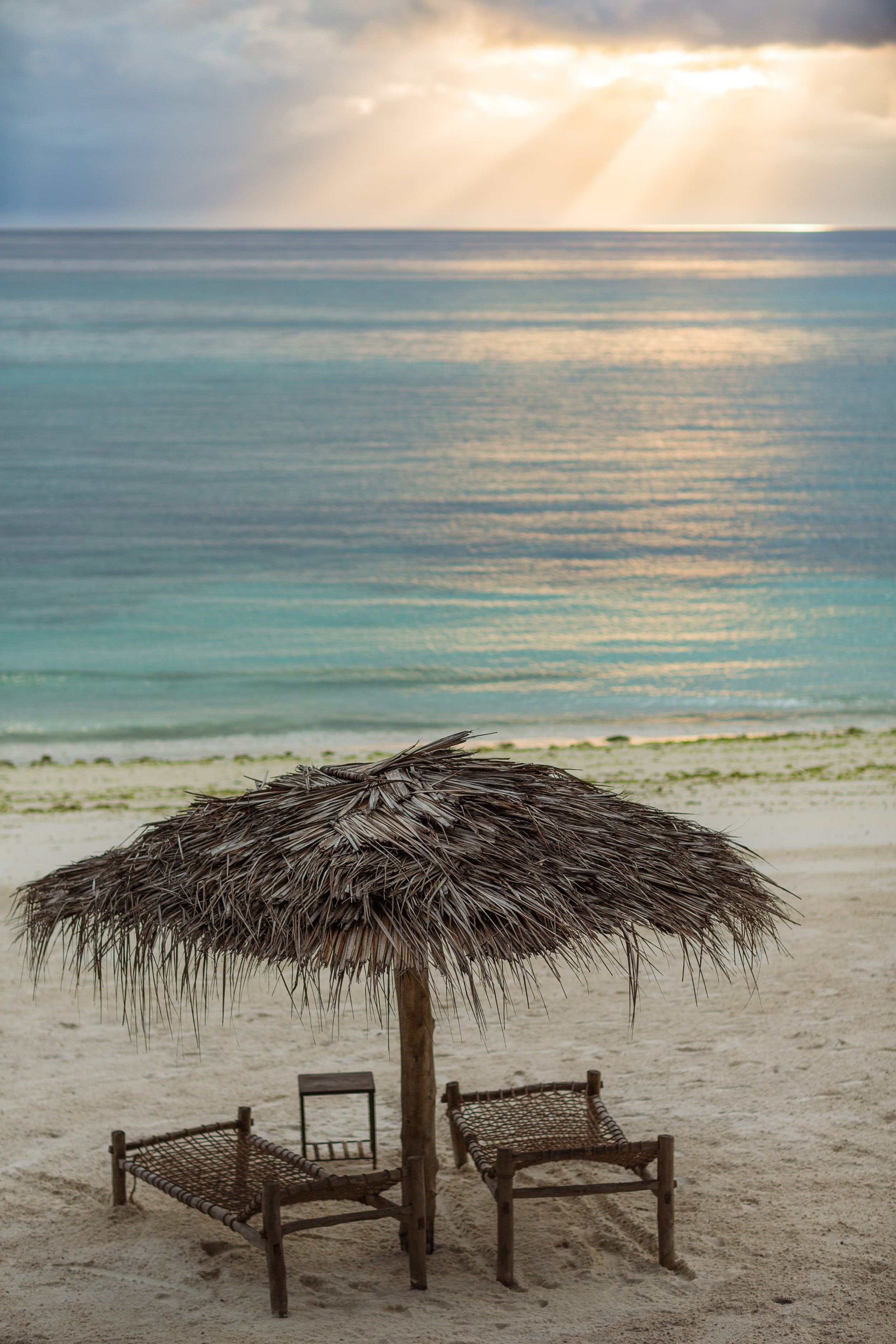

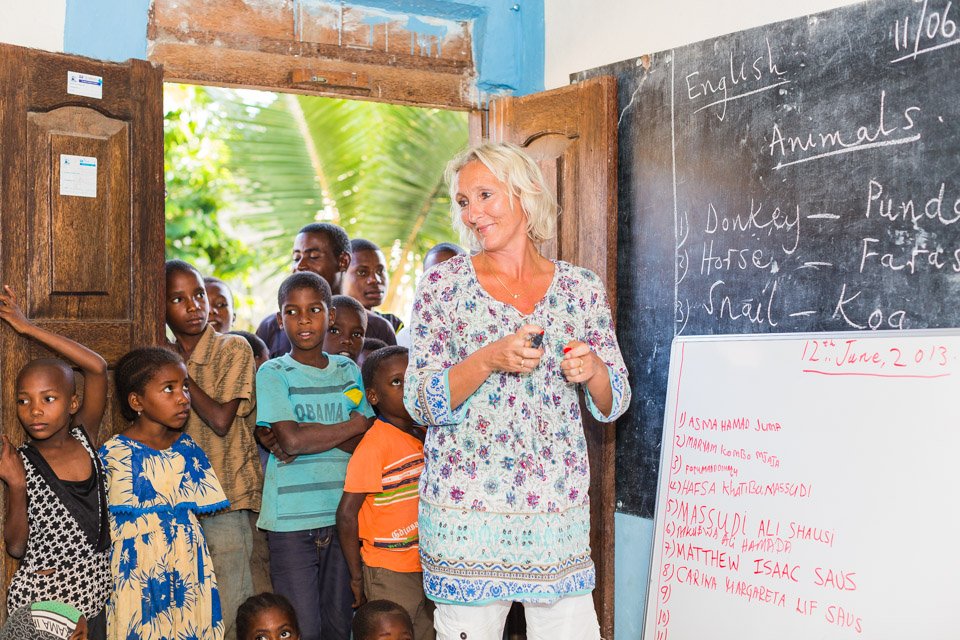
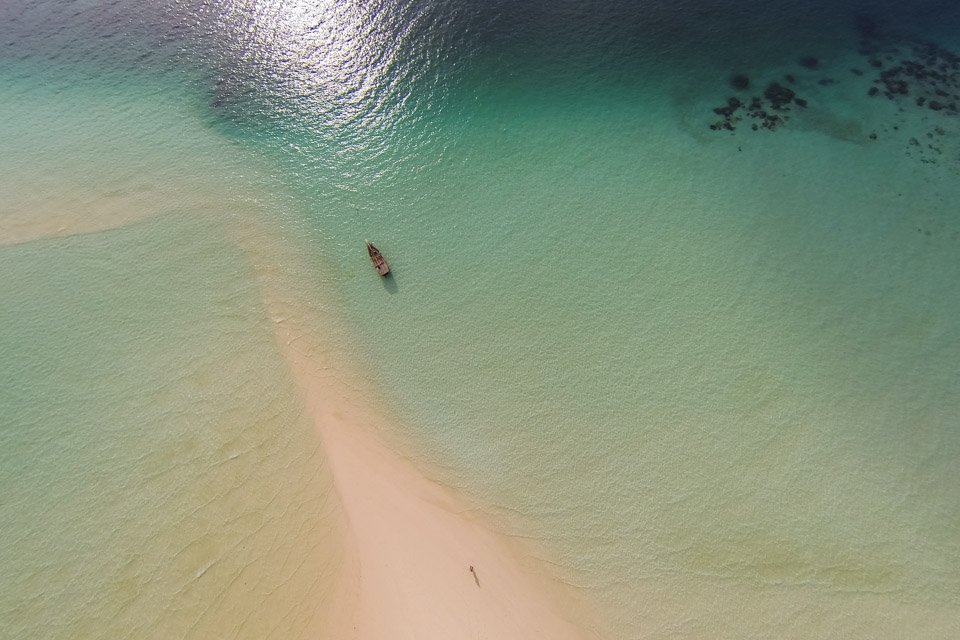
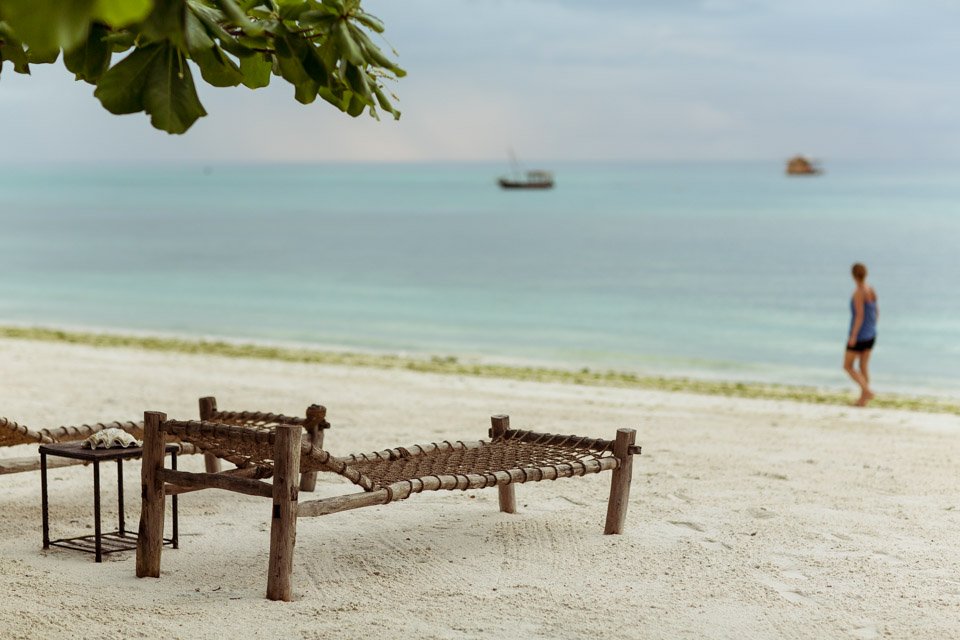
The Personalities
Adventure seekers. Divers & snorkelers. Eco-conscious travelers. Slow travelers. Ocean dreamers. Wildlife enthusiasts.
Moments
Floating over turquoise waters. Sunrise from the floating villa. Snorkeling among coral gardens. Kayaking through quiet coves. Evenings with stars mirrored on the sea. Watching manta rays glide beneath the surface.
Best Visiting Months
The best time to visit The Manta Resort is during the dry season, from June to October, when the waters are calm, visibility for diving is at its peak, and the skies are mostly clear. February to March offers warm waters and quieter crowds, ideal for snorkelers and divers seeking solitude among coral reefs. The surrounding ocean is at its clearest during these months, revealing the rich marine life that makes Pemba a diver’s paradise.
Cost
Why stay
Perched on the turquoise edge of the Indian Ocean, The Manta Resort occupies a remote corner of Pemba Island, part of Tanzania’s Zanzibar Archipelago. The island’s coastline is a mosaic of mangroves, white-sand beaches, and coral reefs, while the interior rises into fertile hills dotted with clove and coconut plantations. Surrounded by a thriving marine ecosystem, the resort offers a rare sense of isolation—where the only horizon is endless water, and the only neighbors are tropical birds and passing manta rays.
The resort’s floating villa is a once-in-a-lifetime experience: a private sanctuary literally above the ocean, suspended over a thriving reef. On land, eco-luxury villas and suites are set among lush tropical gardens, with private decks that catch the sea breeze and reveal panoramic views of Pemba’s coastline. Each space is crafted from local materials—bamboo, teak, and thatch—blurring the line between indoor comfort and outdoor immersion.
Days here are defined by movement between ocean and land. Swim in the crystal-clear waters, kayak through quiet coves, or hike along forested trails that descend to hidden beaches. The combination of geographic isolation, diverse landscapes, and thoughtful design creates a stay that is restorative, adventurous, and intimately connected to the natural rhythms of Tanzania’s northern archipelago.
Why wander
The waters around Pemba Island are a diver’s dream, part of the Zanzibar Archipelago’s protected marine ecosystem. Coral gardens teem with tropical fish, rays, and occasional reef sharks, while underwater visibility reveals the intricate reef architecture. Snorkelers can glide alongside vibrant schools of fish or watch manta rays sweep gracefully beneath the surface.
Above water, explore quiet coves and mangrove channels by kayak, or take sailing trips to neighboring islands. Coastal trails wind through clove and coconut plantations, offering glimpses of local life and island flora.
Adventure extends beyond the shore. Guests can join conservation programs, tracking sea turtles, assisting with coral restoration, or participating in reef cleanups. For families and explorers alike, Pemba offers both play and reflection, a chance to move between adrenaline-filled adventure and slow, meditative connection with the ocean.
Indulge in
Fresh seafood, tropical fruits, and local spices come together in intimate meals served on private decks or under open skies. Ocean-inspired cocktails, freshly baked breads, and simple yet elegant island fare ensure every meal is a sensory delight. Private dining experiences on the floating villa or beaches turn every sunset into a celebration.
Getting There
Fly into Pemba Island Airport (PMA) via Zanzibar or Dar es Salaam, followed by a short speedboat transfer to the resort. The journey itself is part of the experience—traversing turquoise waters and passing quiet islets before arriving at the secluded sanctuary.
WILD INITIATIVES
The Manta Resort is deeply committed to conservation and sustainable practices. Coral reefs are protected through monitoring and restoration programs, marine life is respected, and energy-efficient systems minimize environmental impact. The resort sources food locally where possible, reduces single-use plastics, and involves guests in educational programs about marine conservation. Each stay supports the health of Pemba’s ecosystems, ensuring the island remains a thriving sanctuary for both people and wildlife.
*Images property of THE MANTA RESORT

Pole Pole Bungalows
TANZANIA
Pole Pole Bungalows
TANZANIA
Pole Pole Bugalows
mafia, tanzania
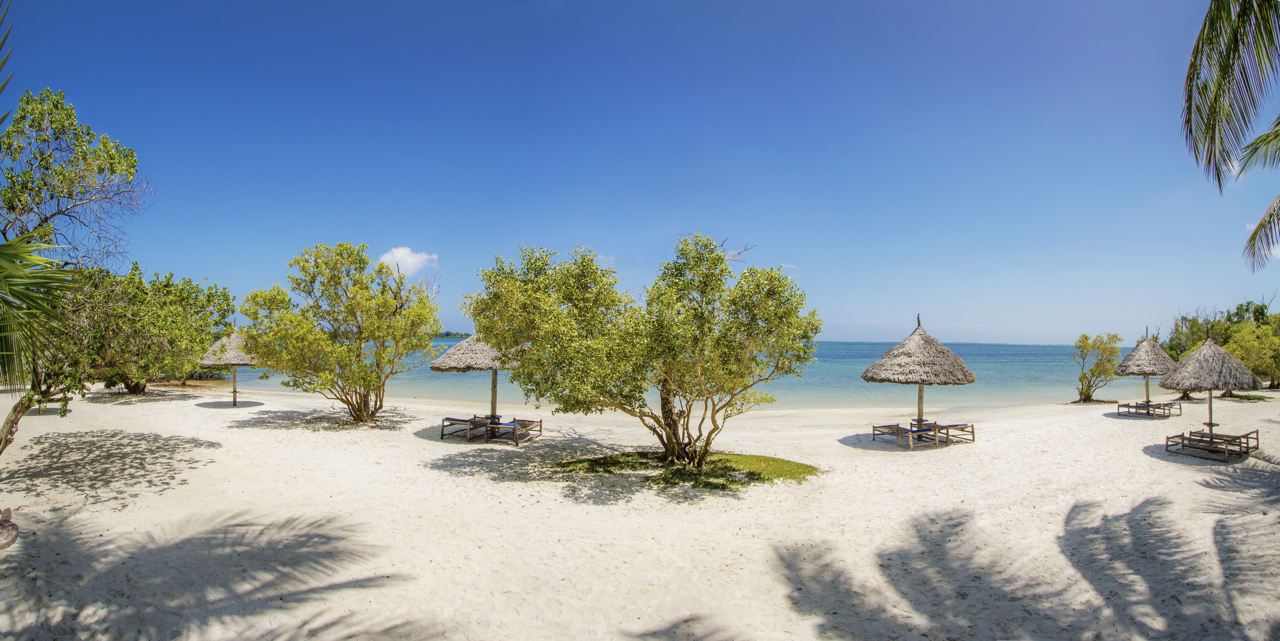
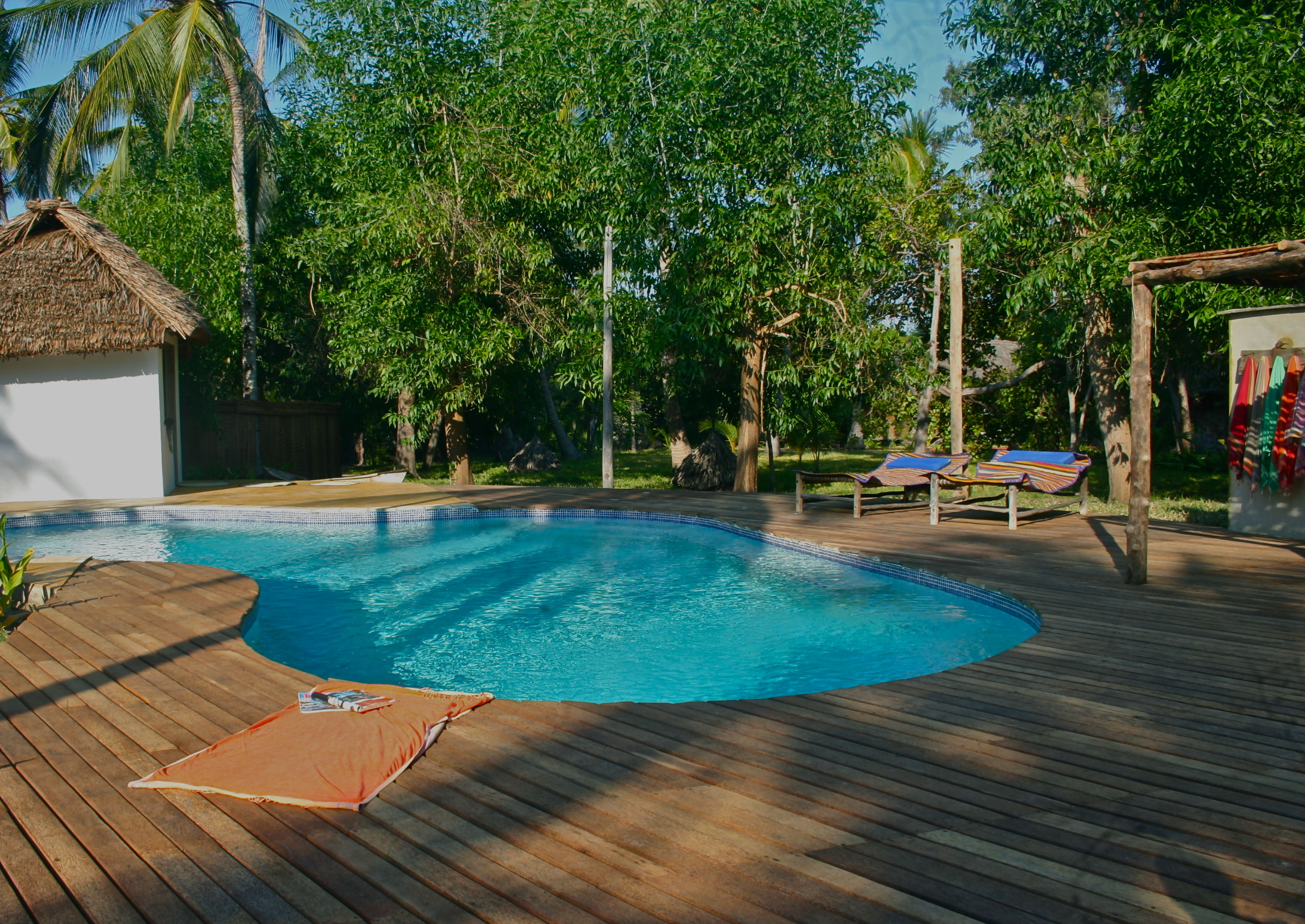
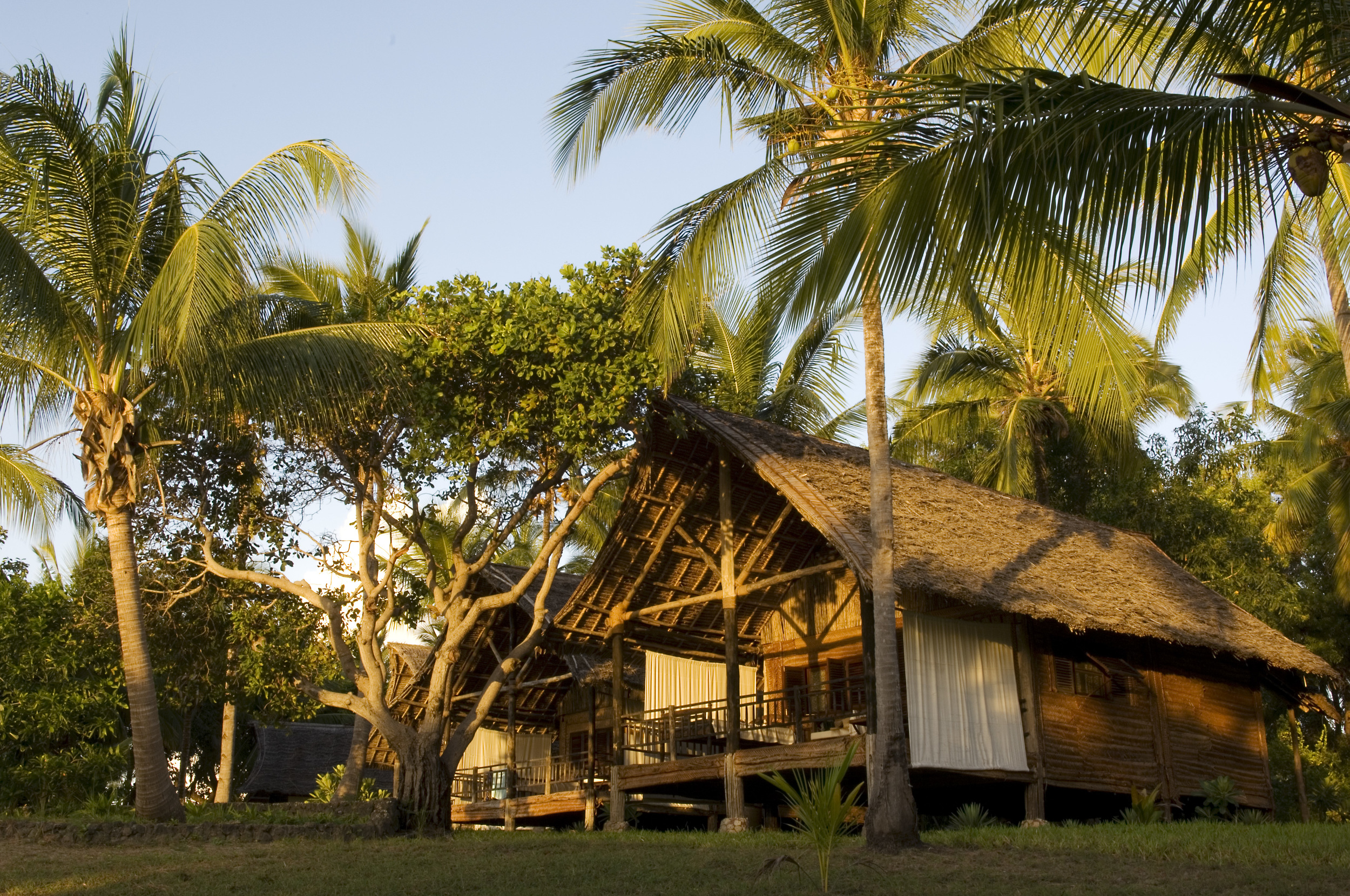
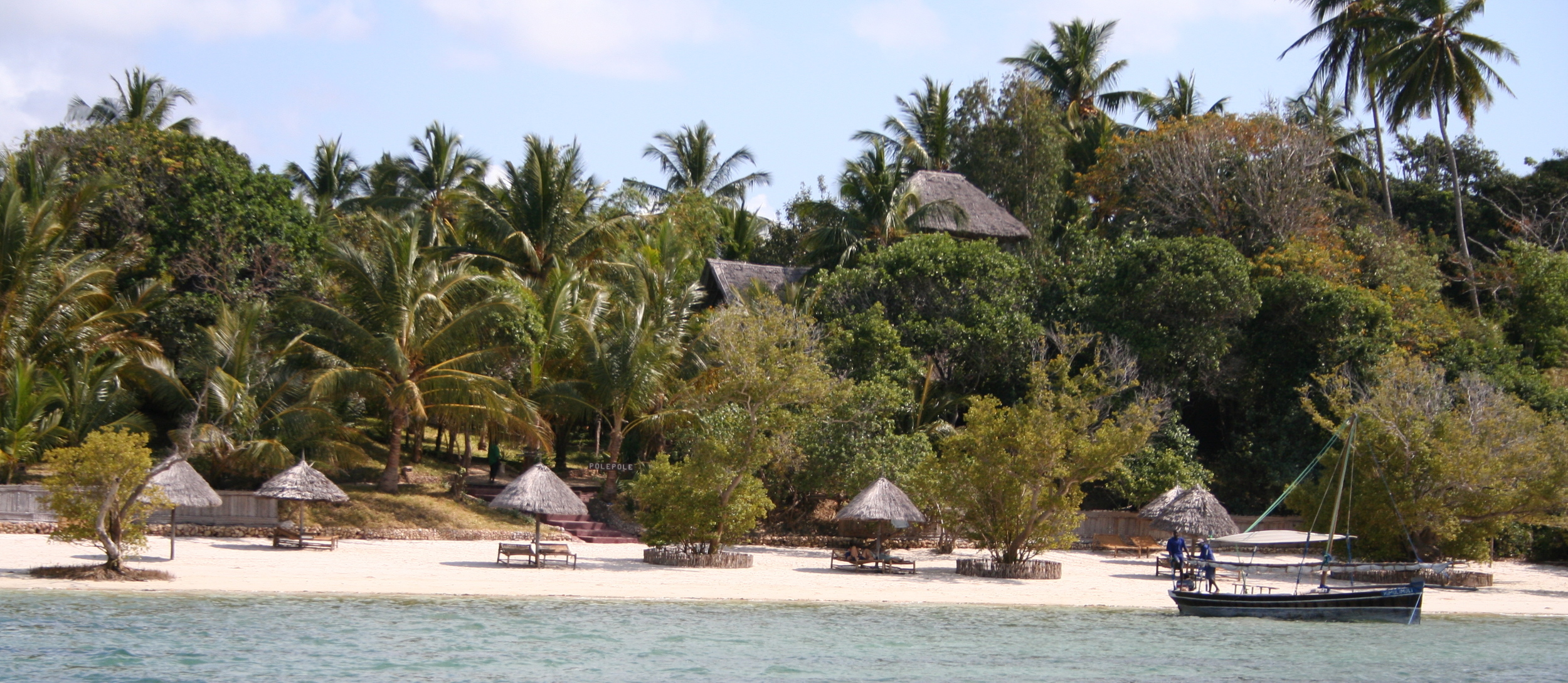
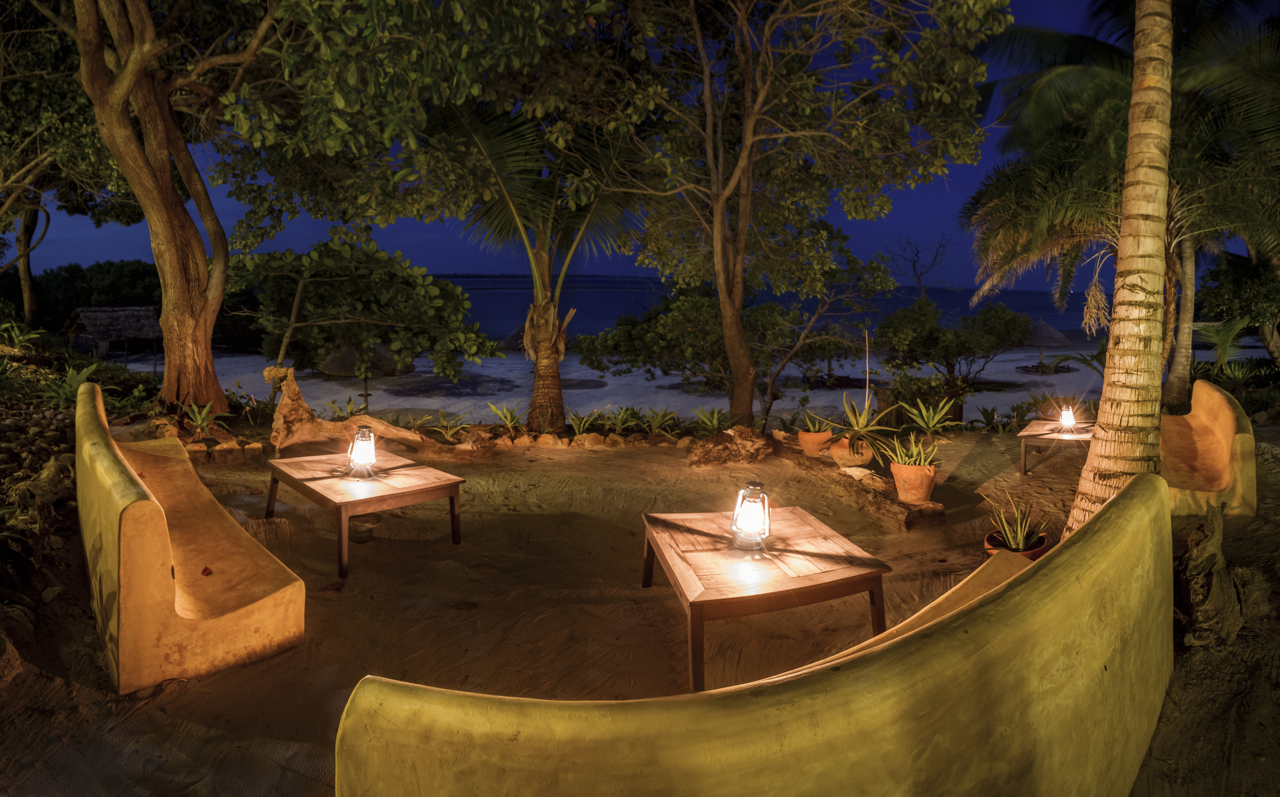
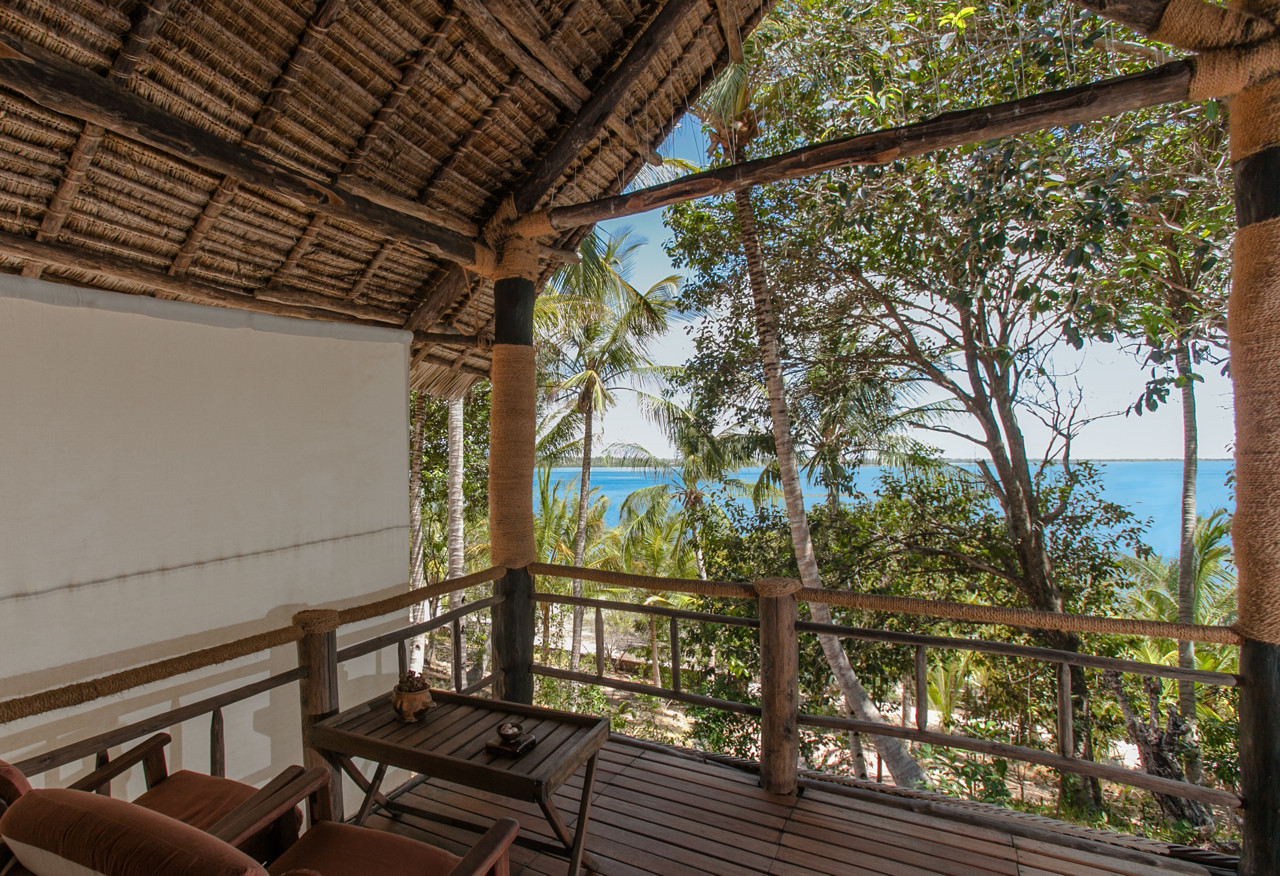
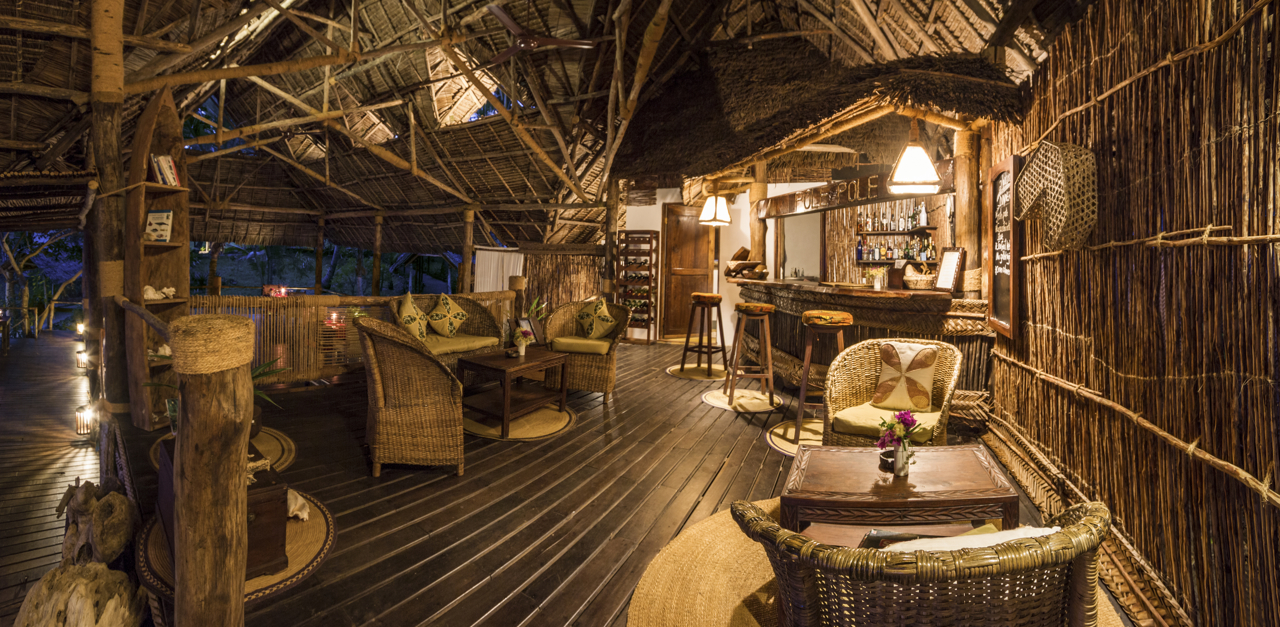
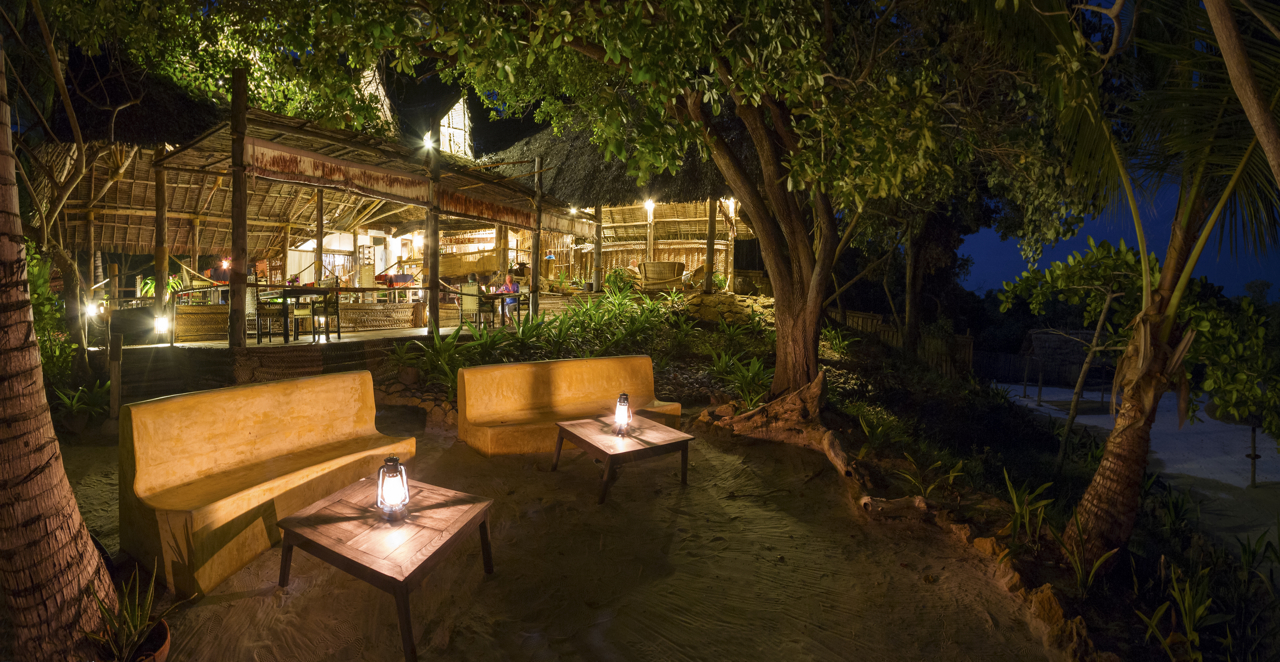
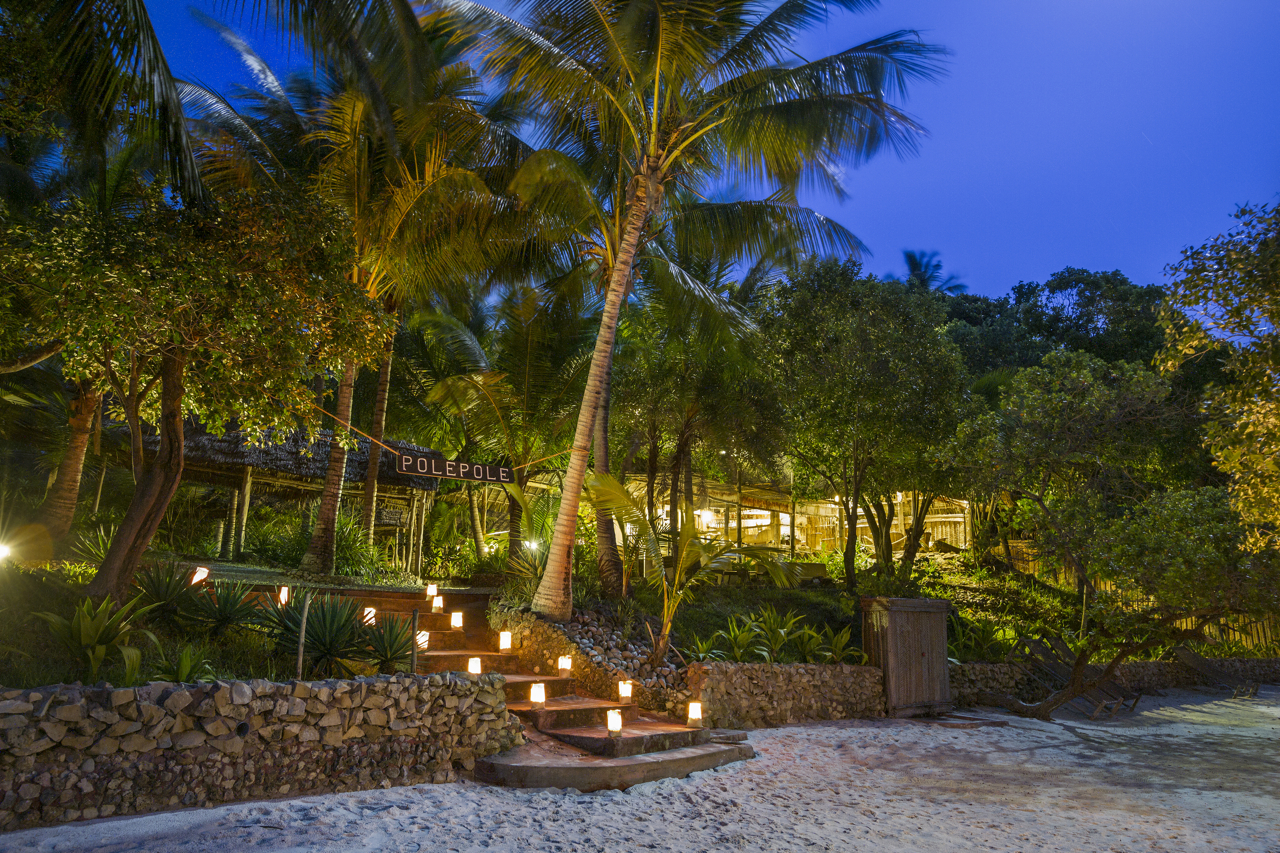
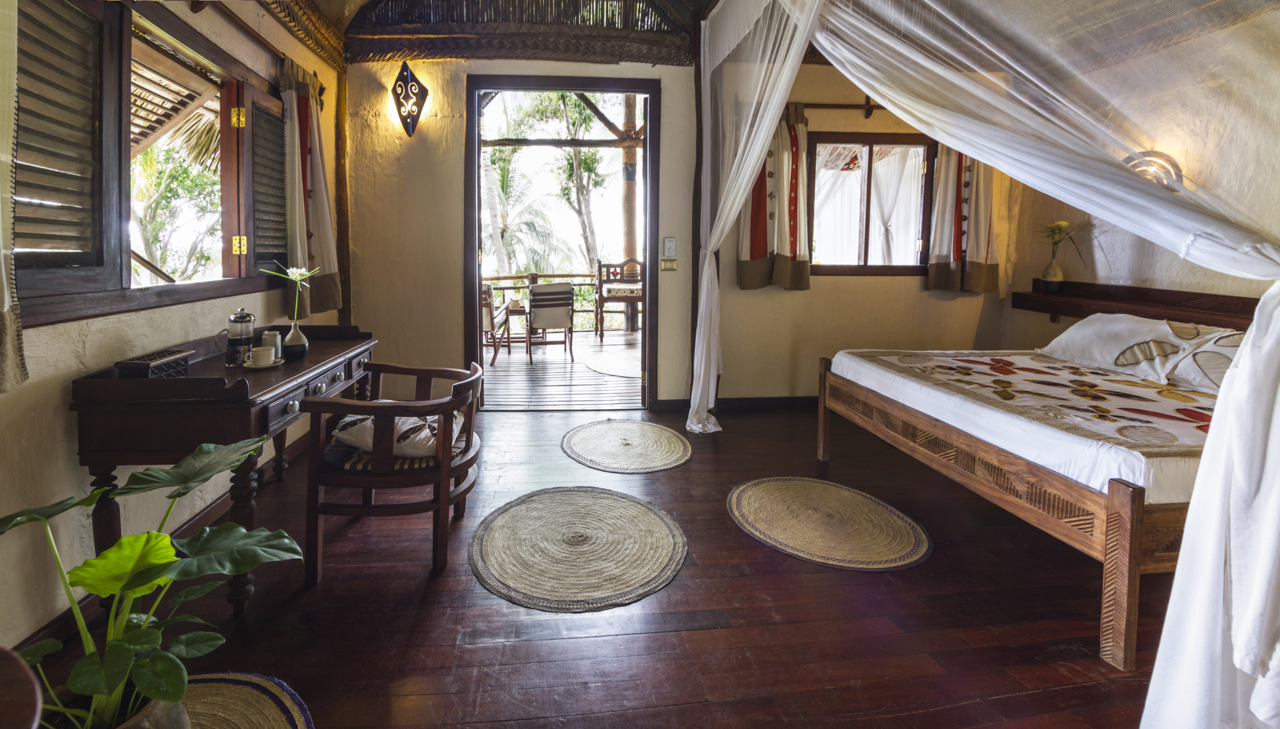
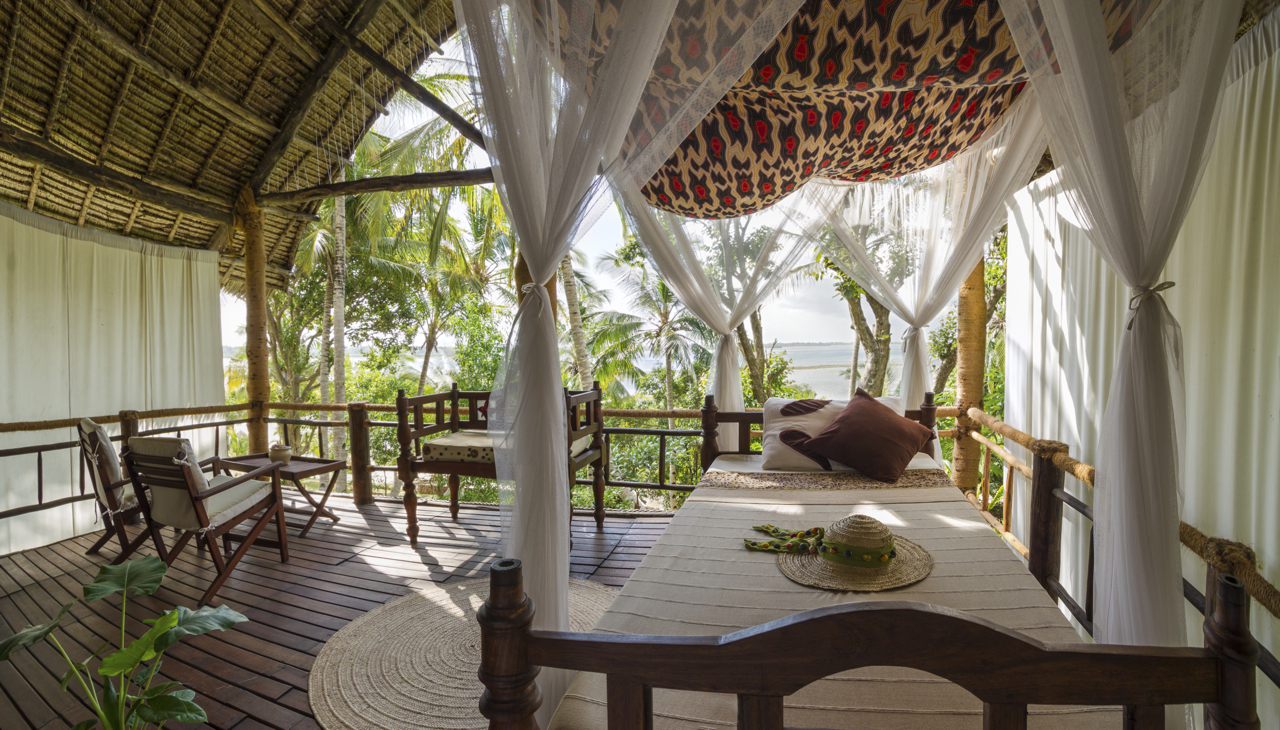
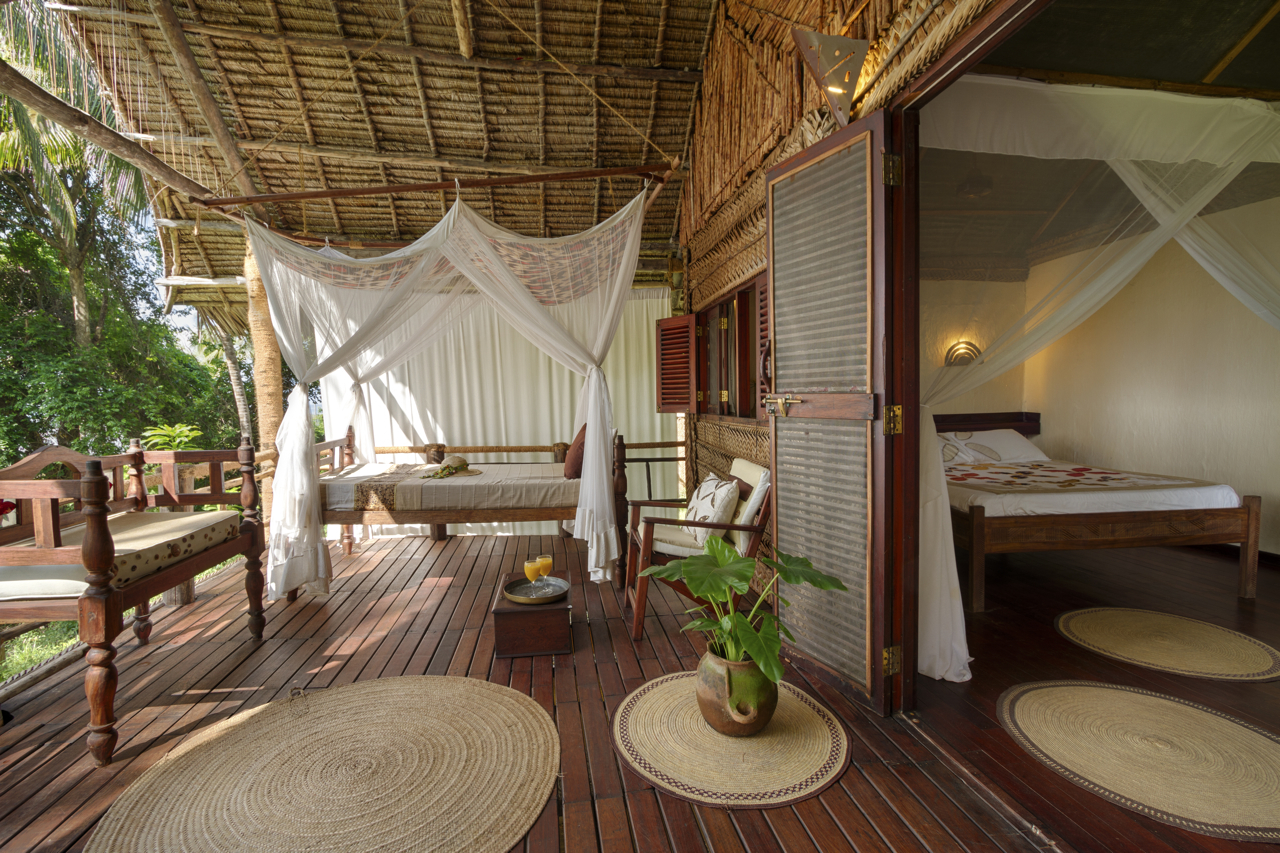
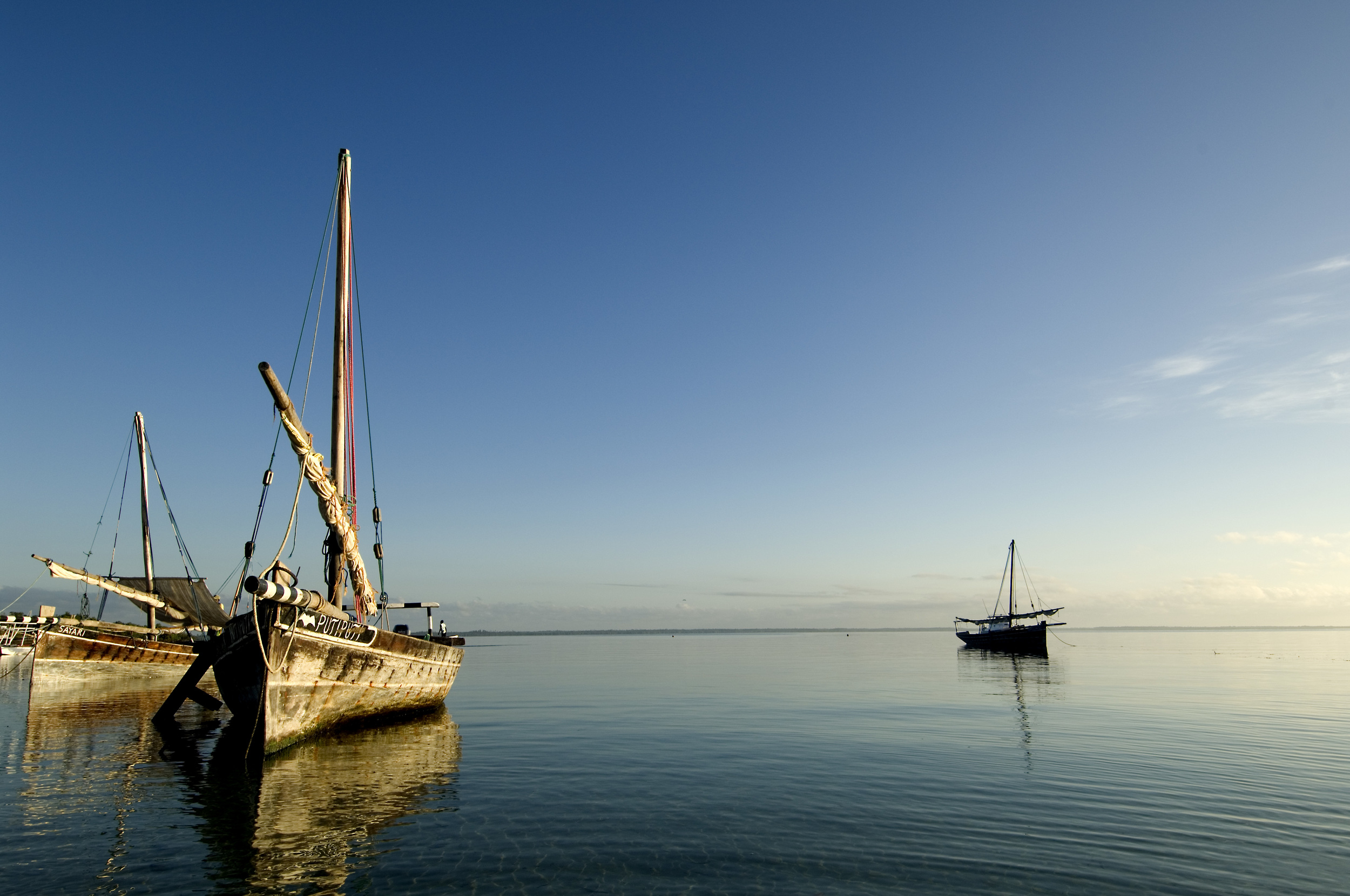
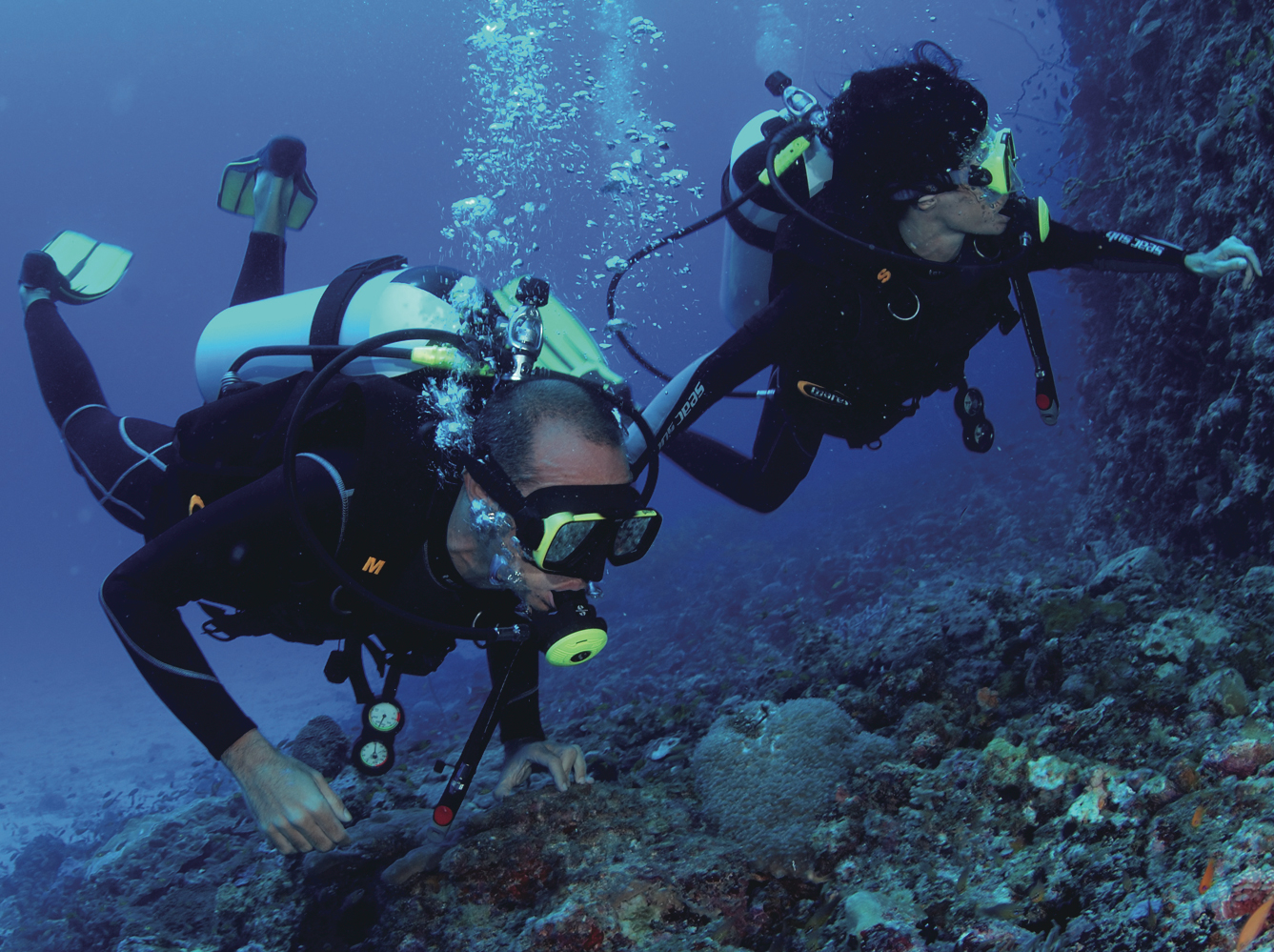
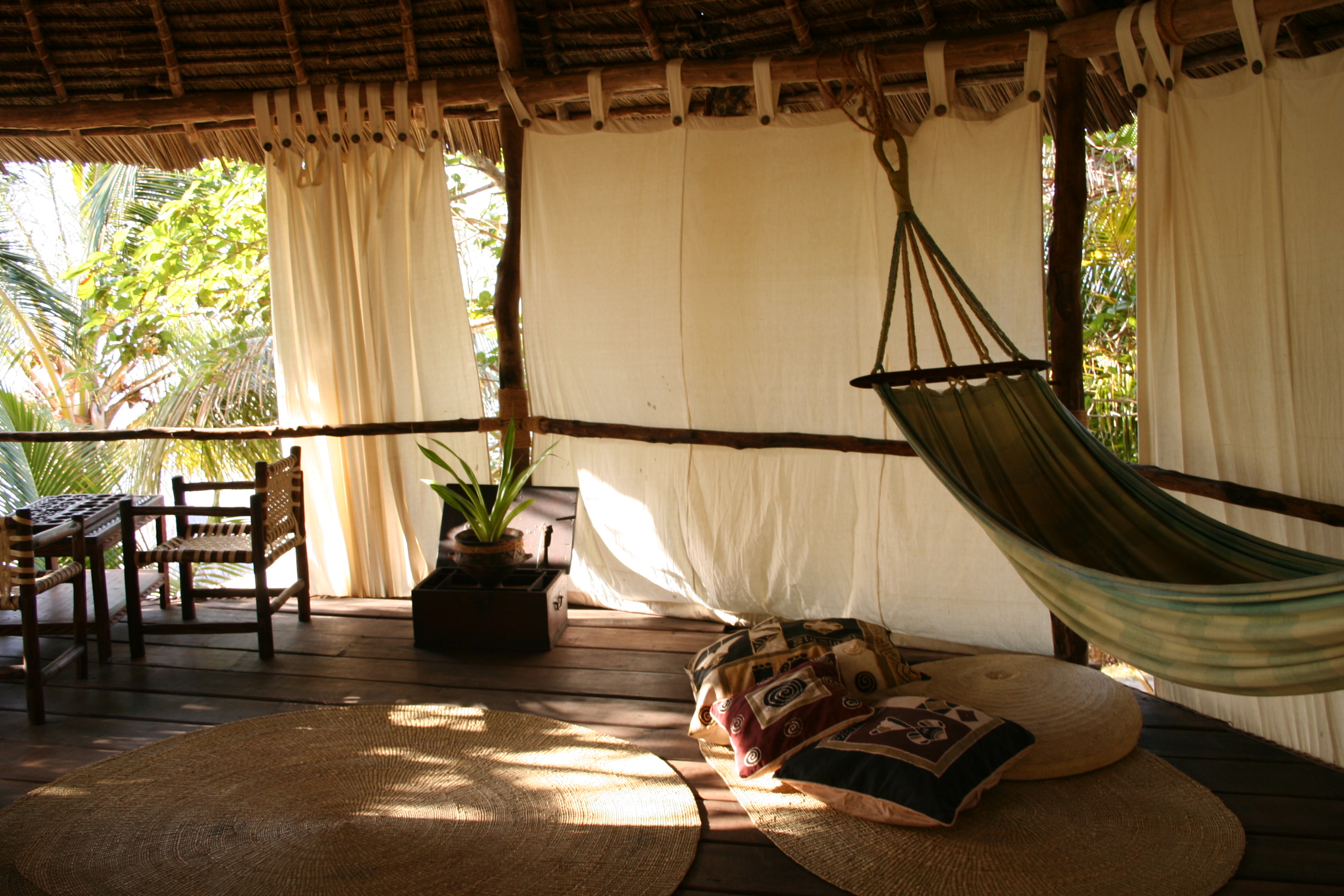
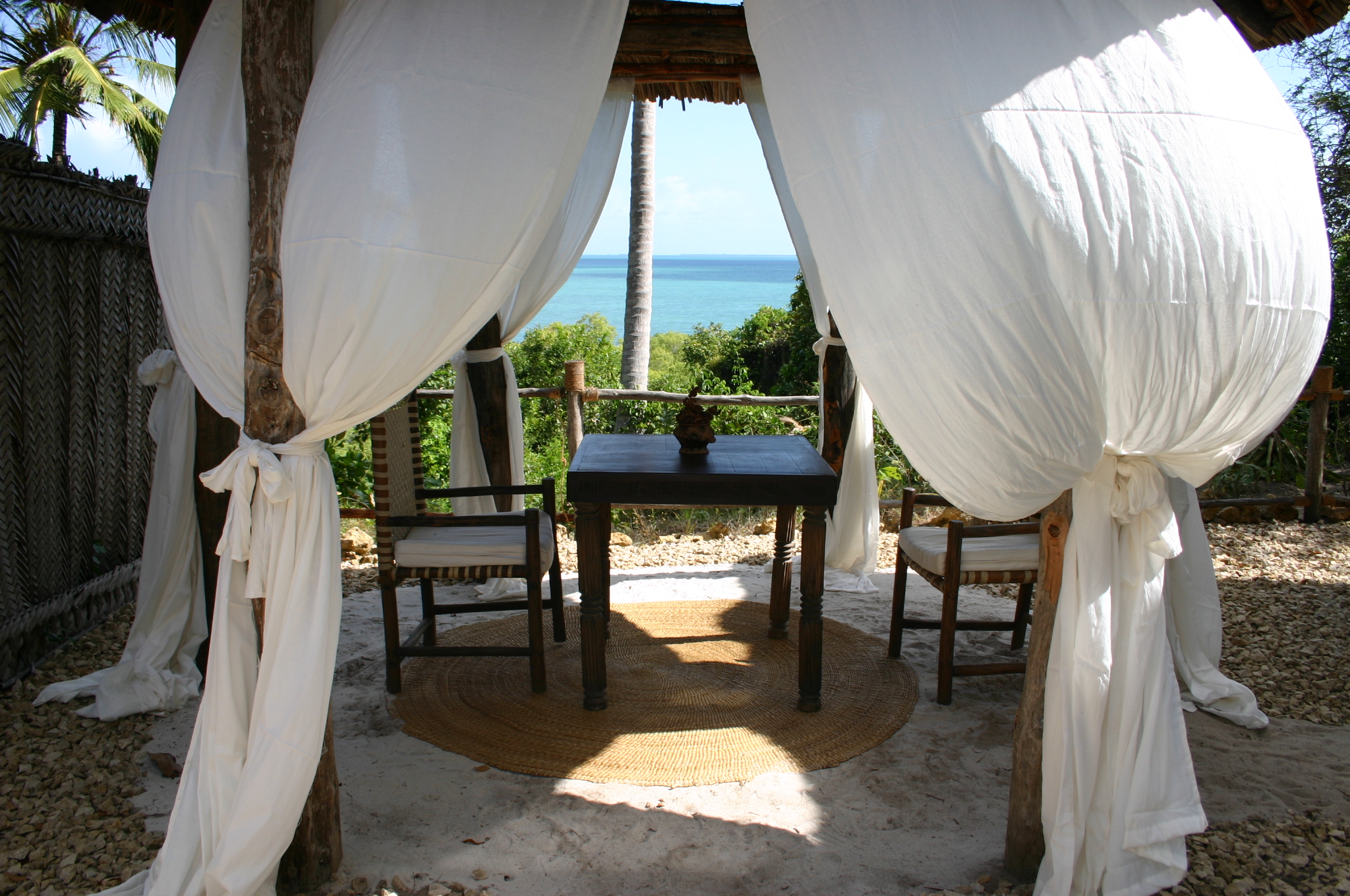
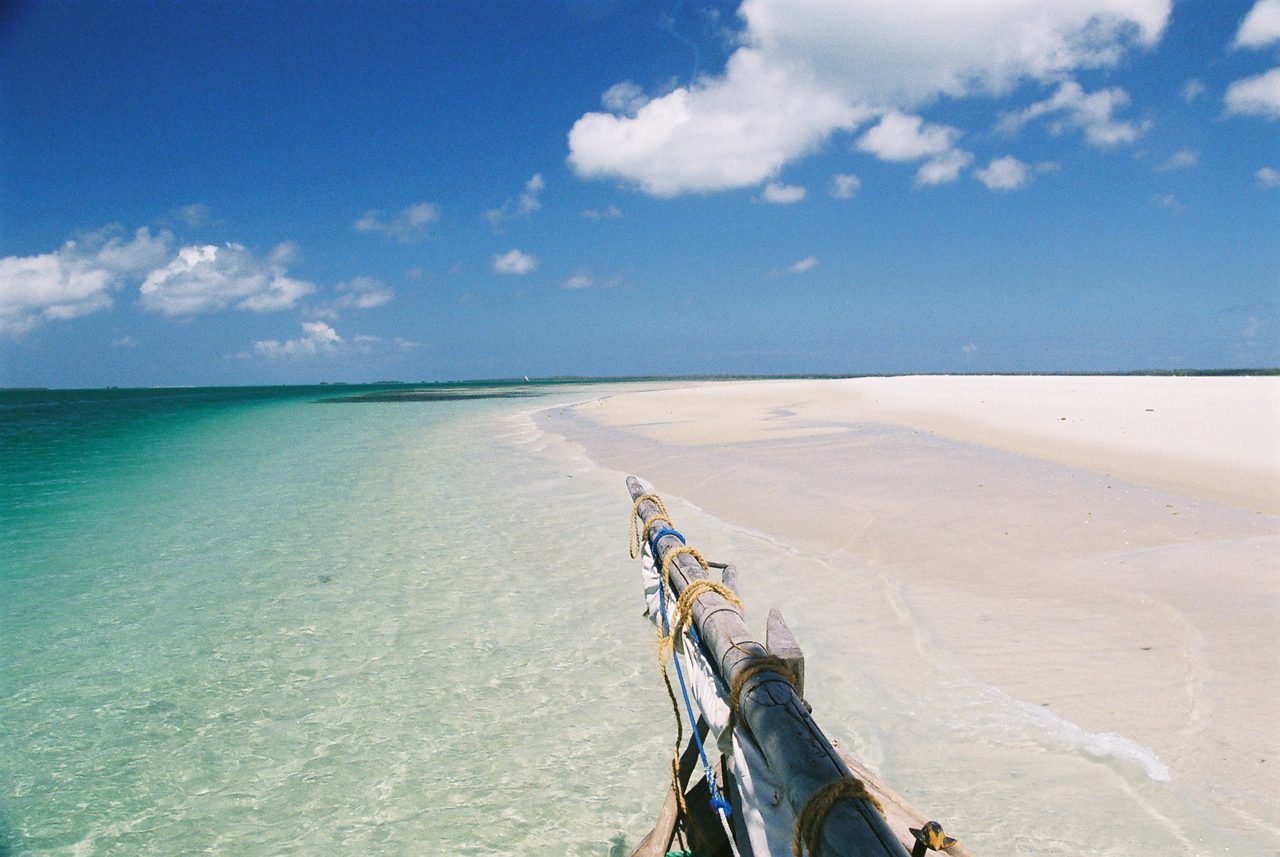
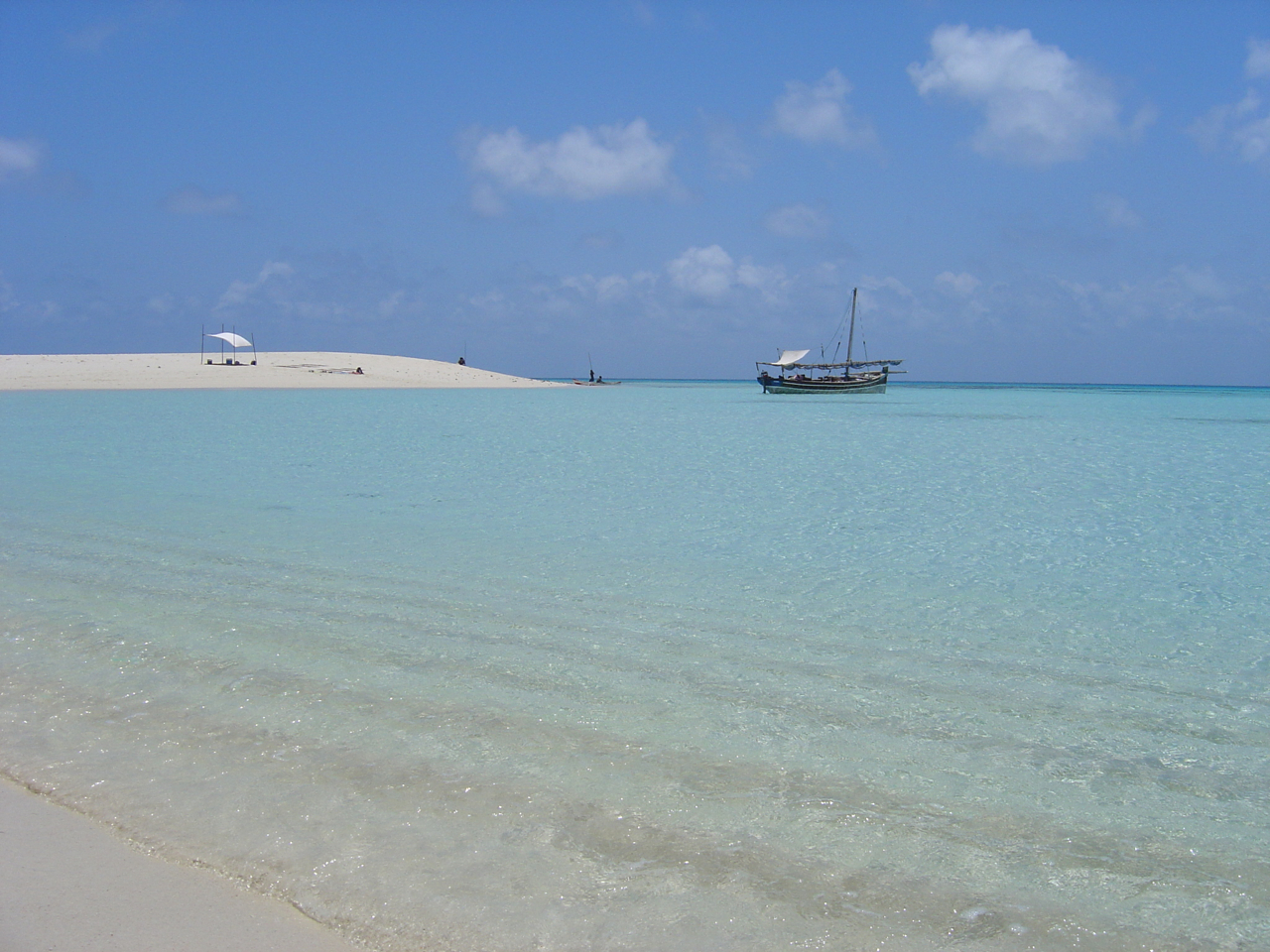
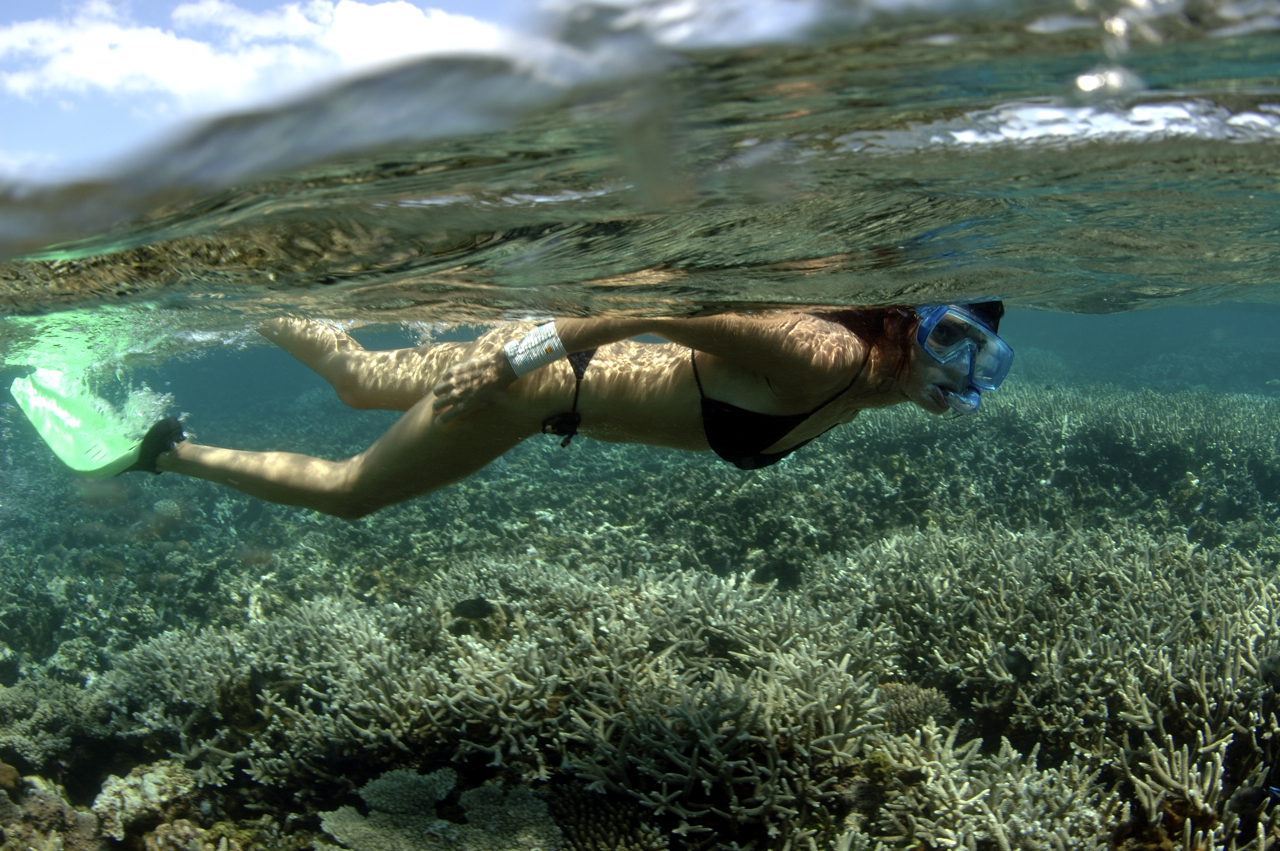
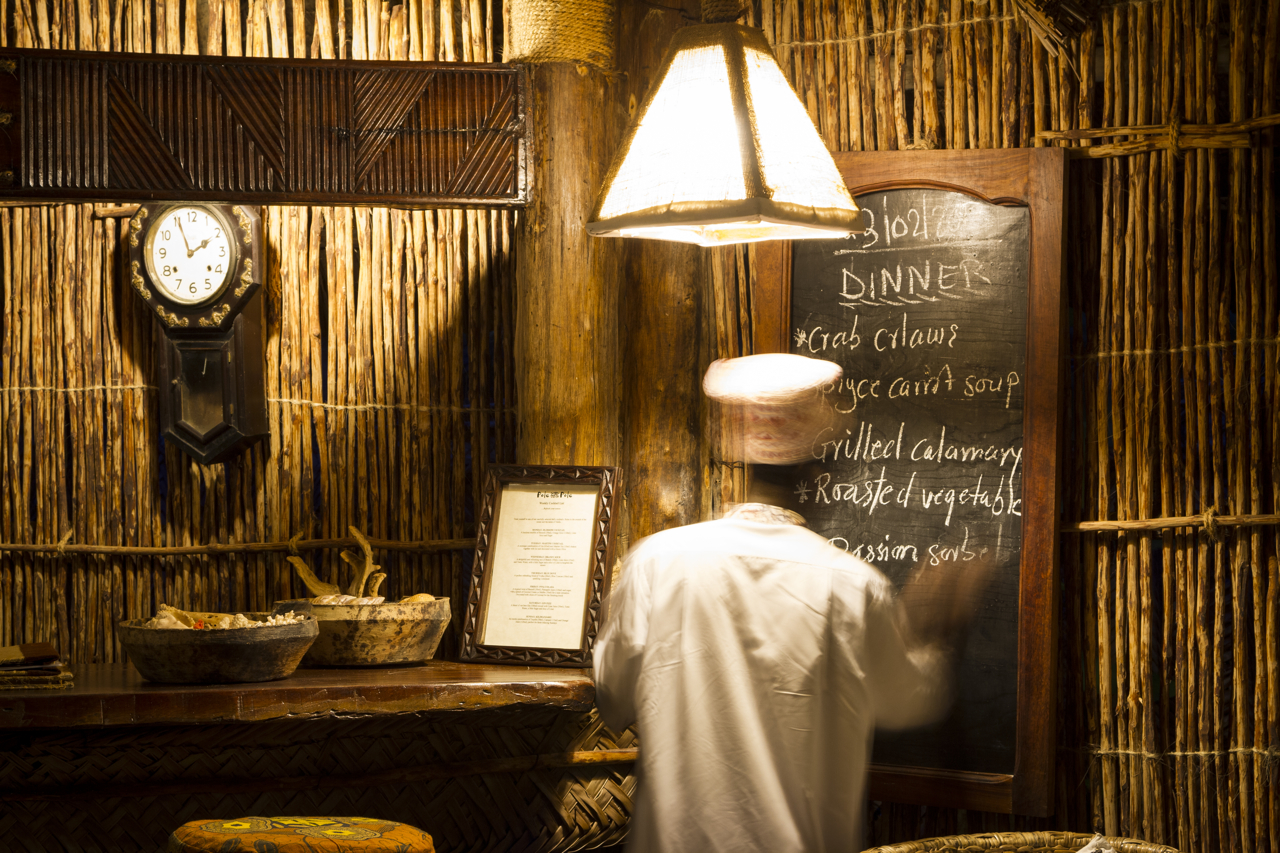
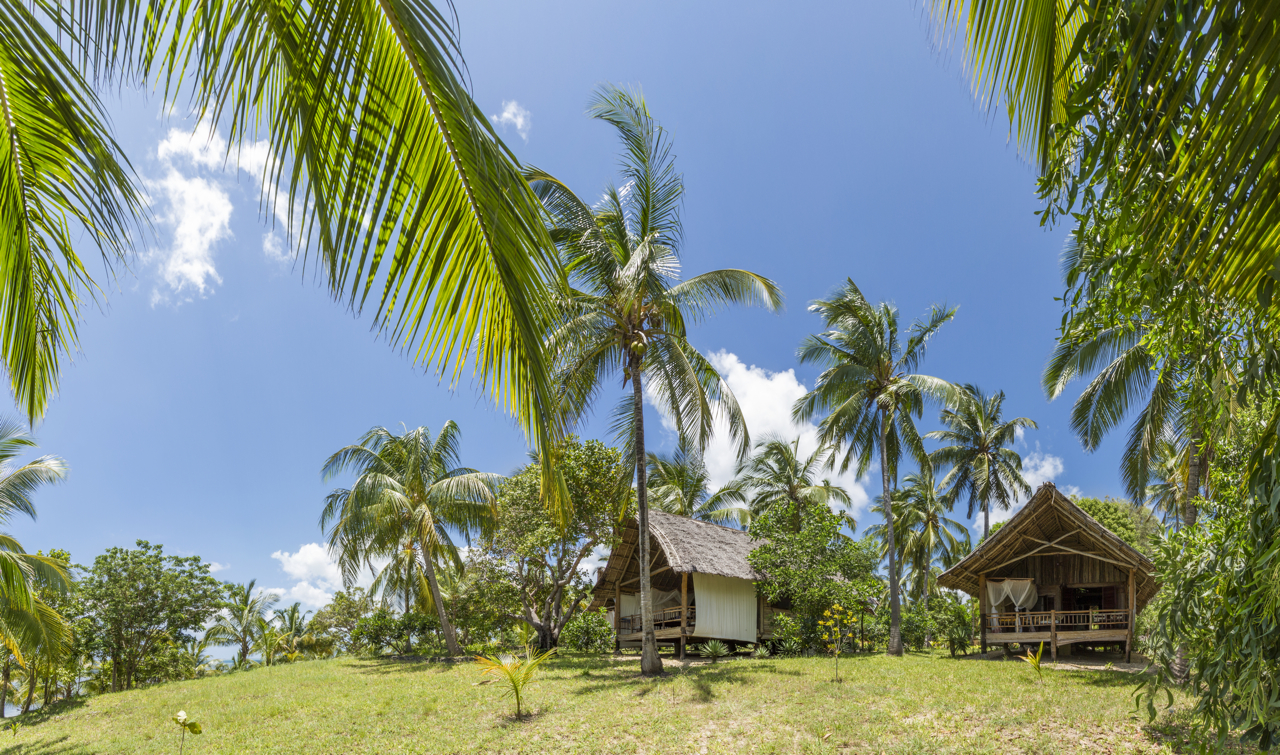
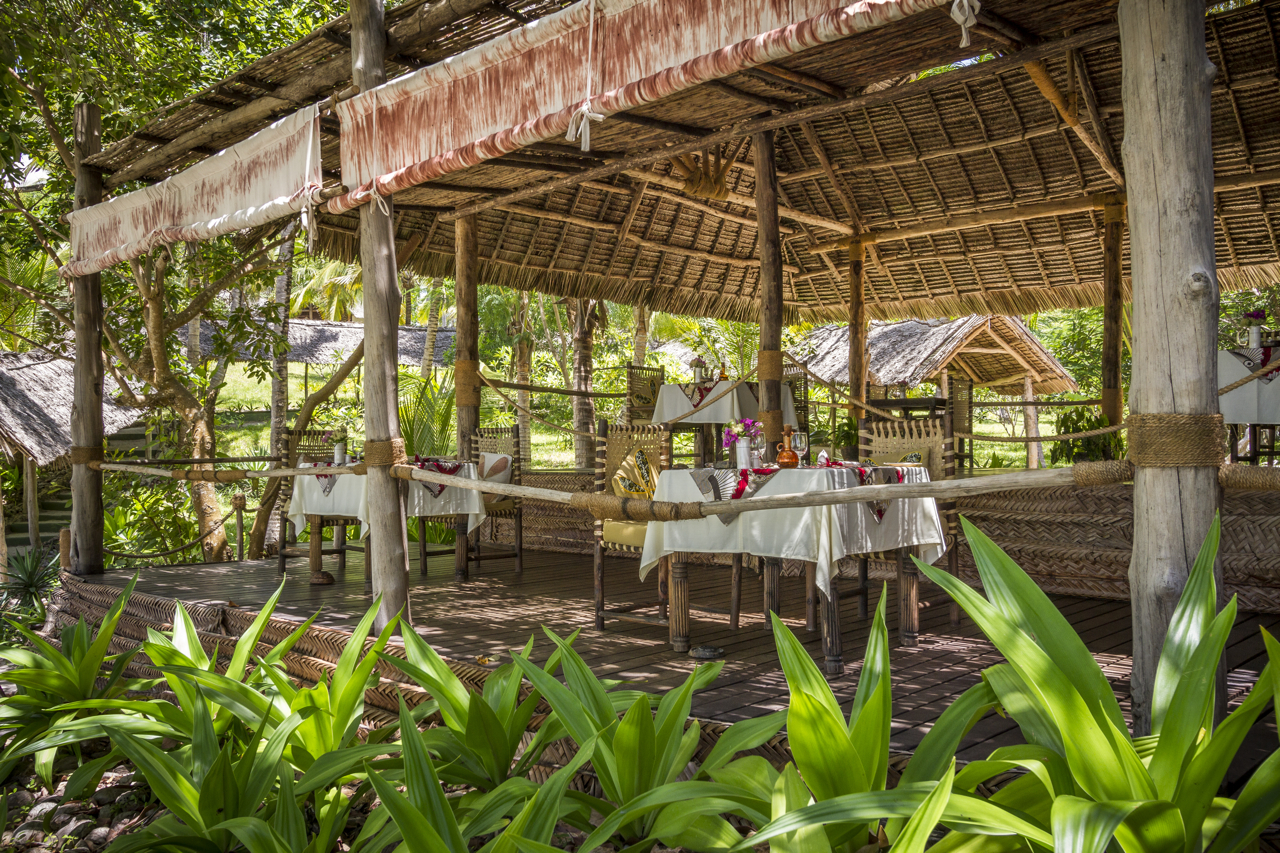
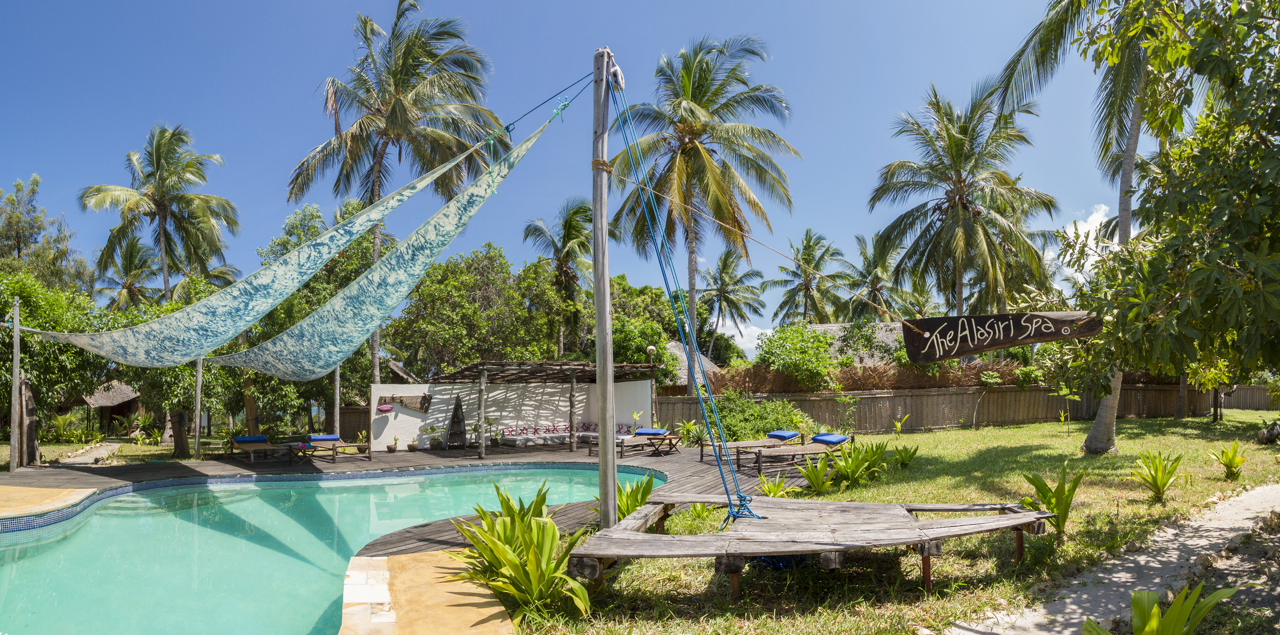
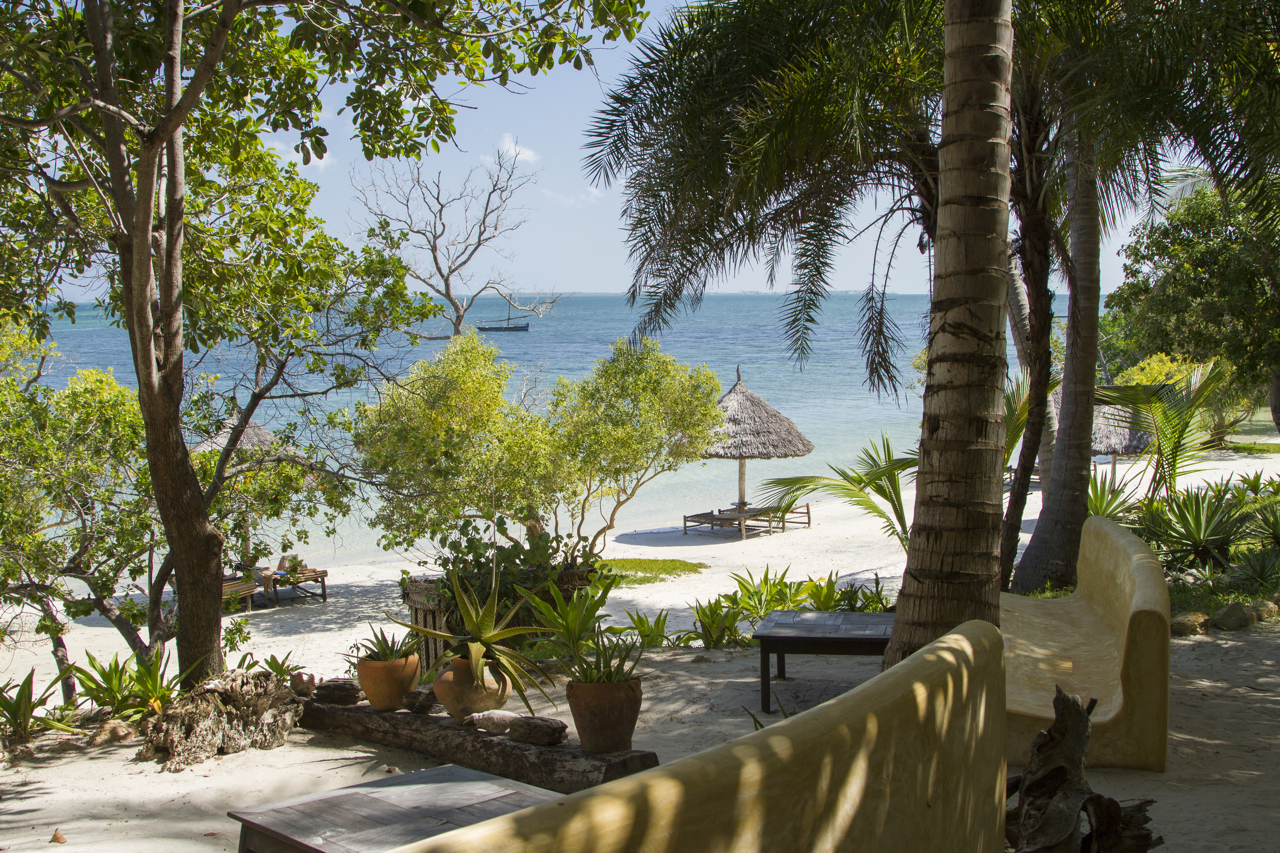
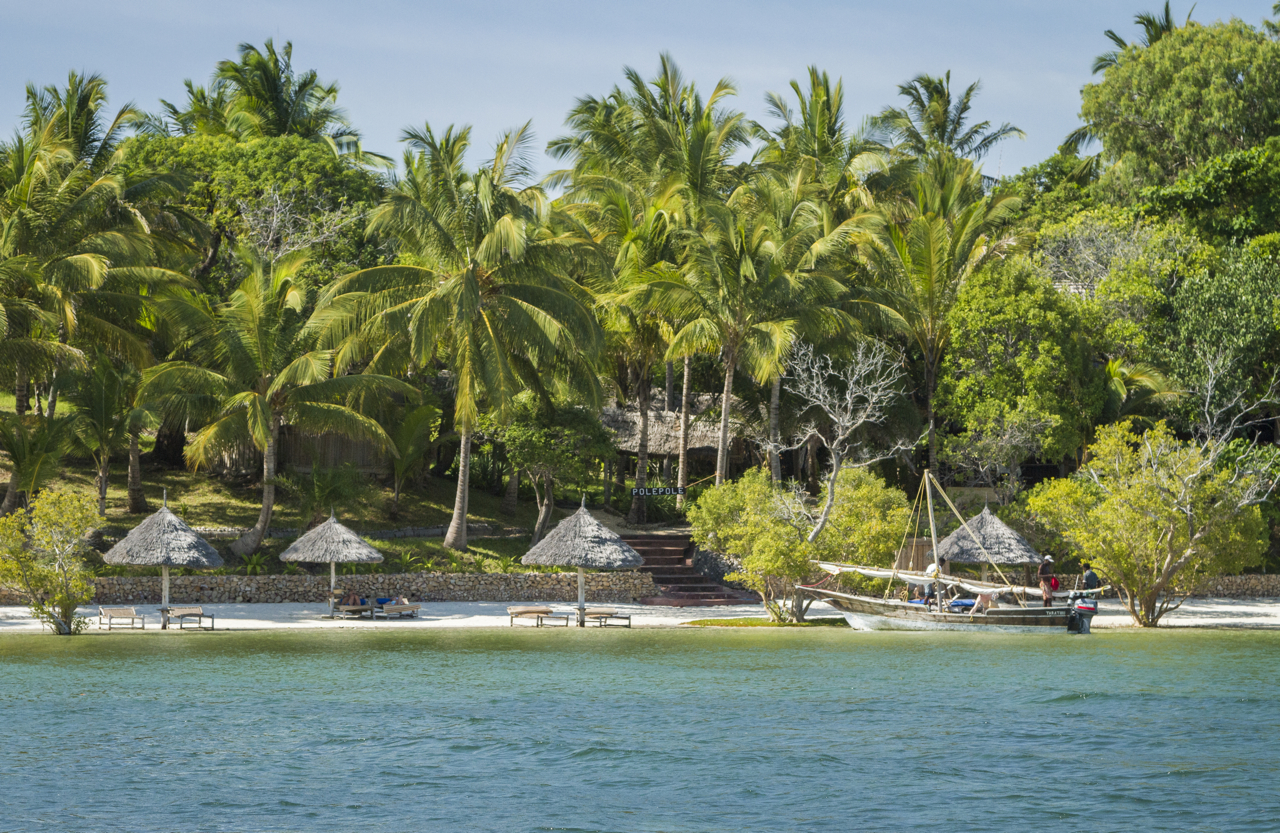
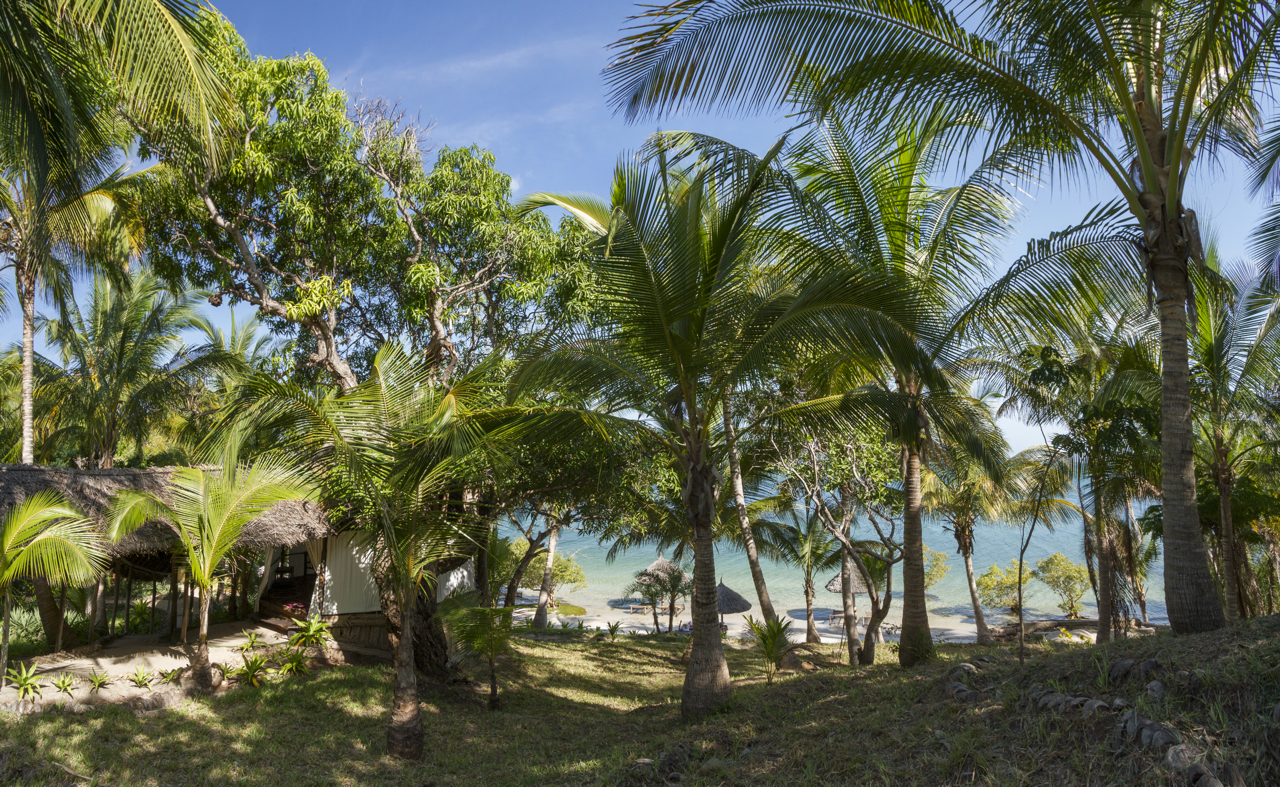

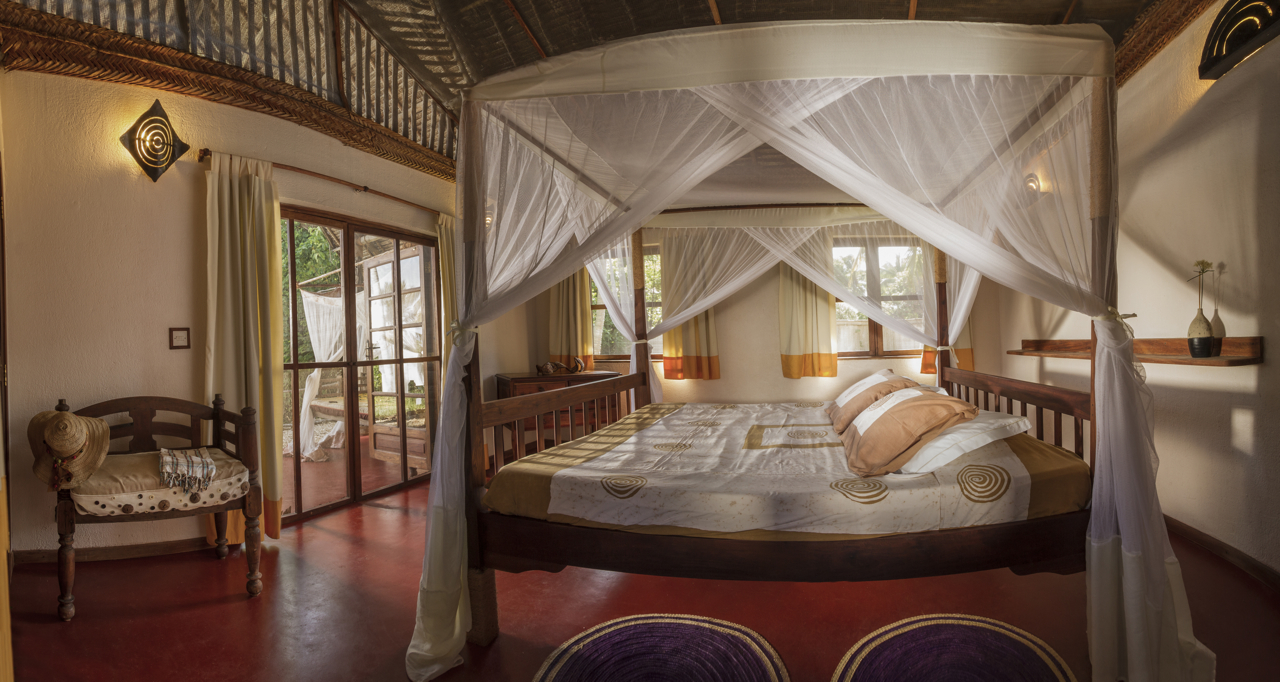
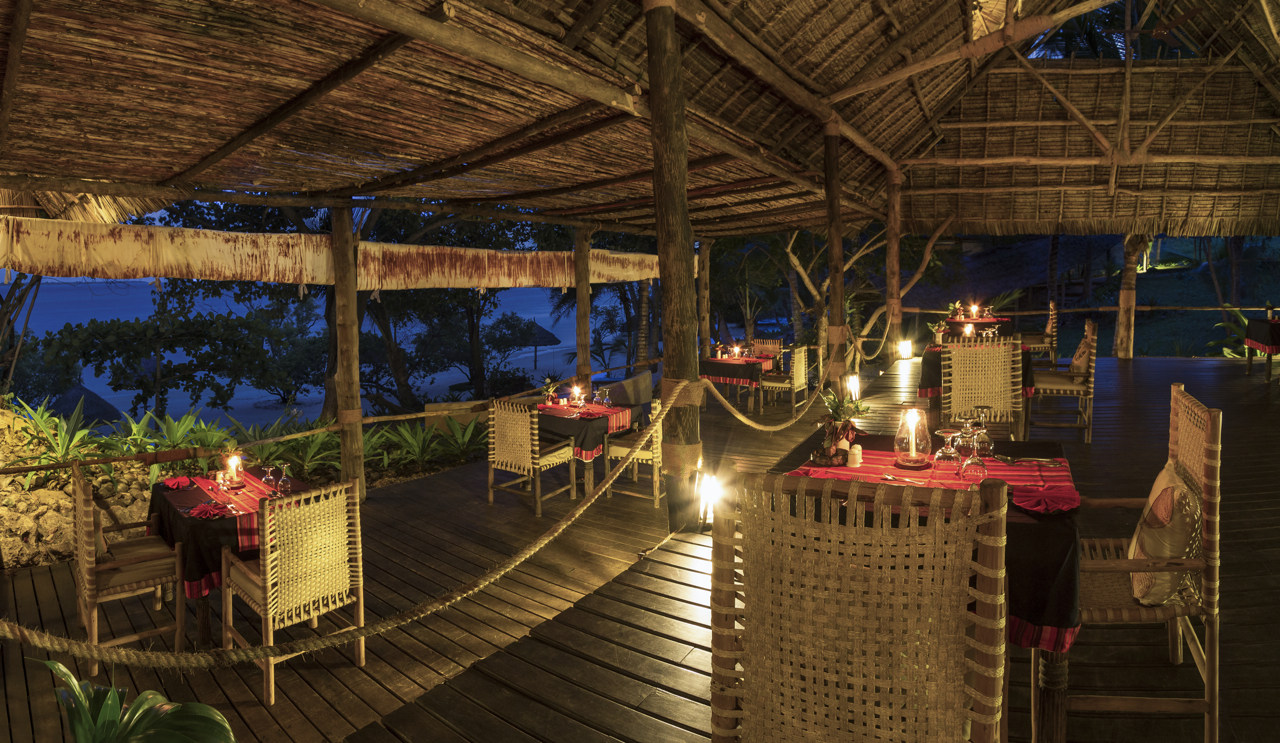
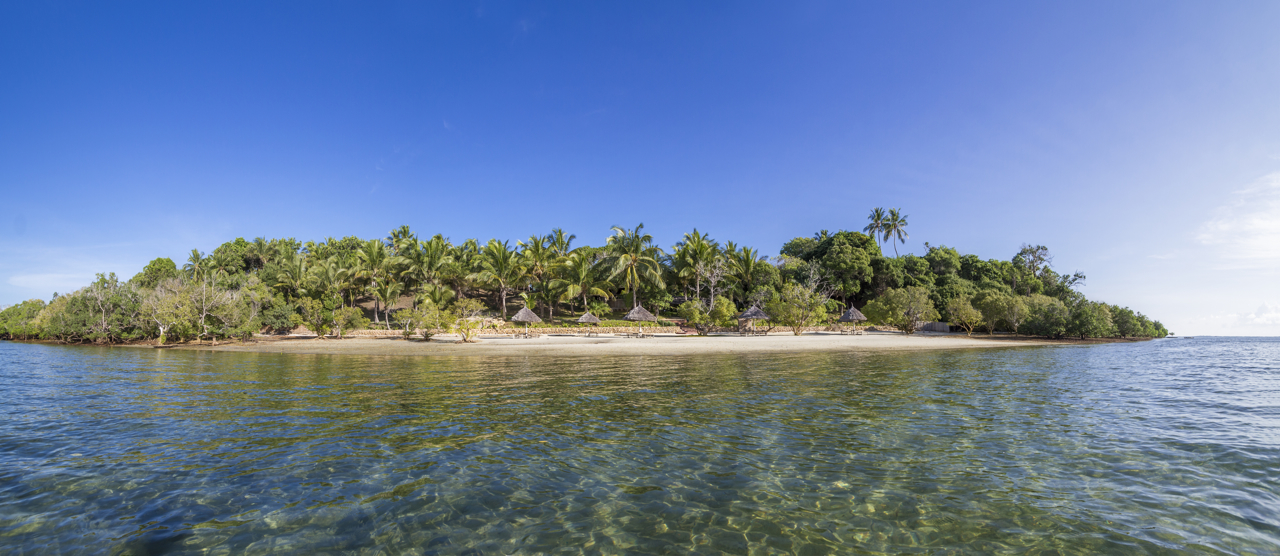
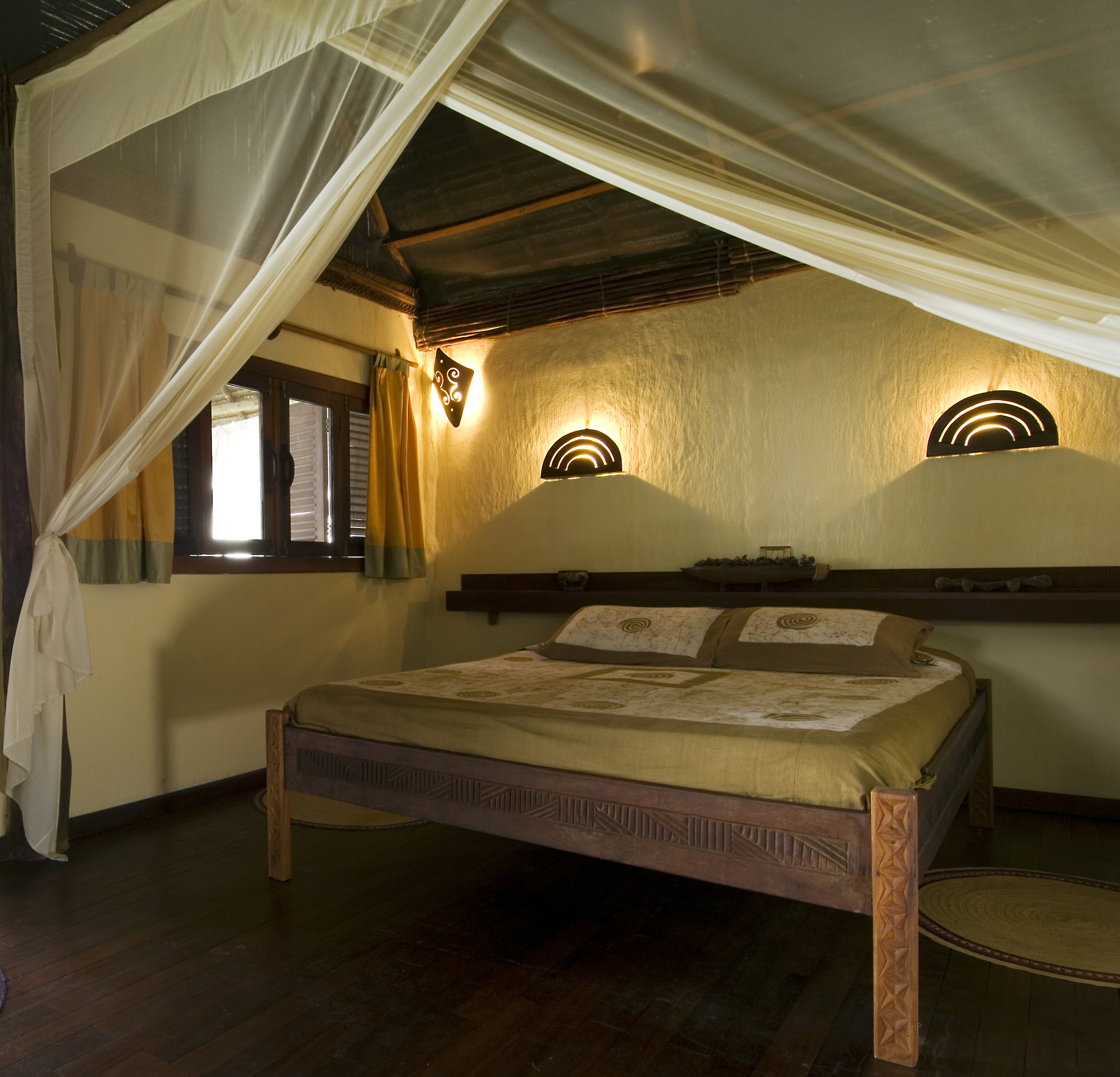
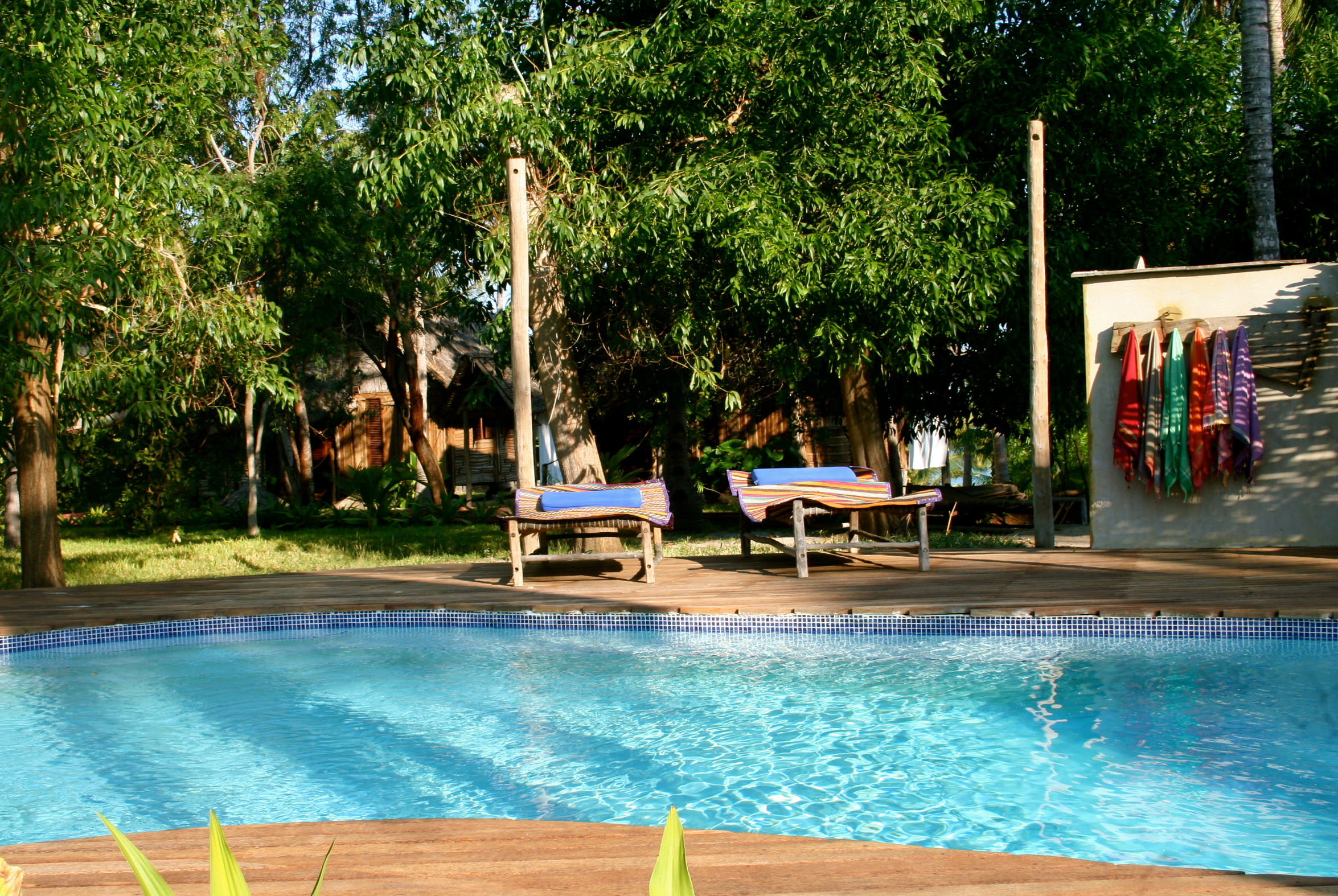
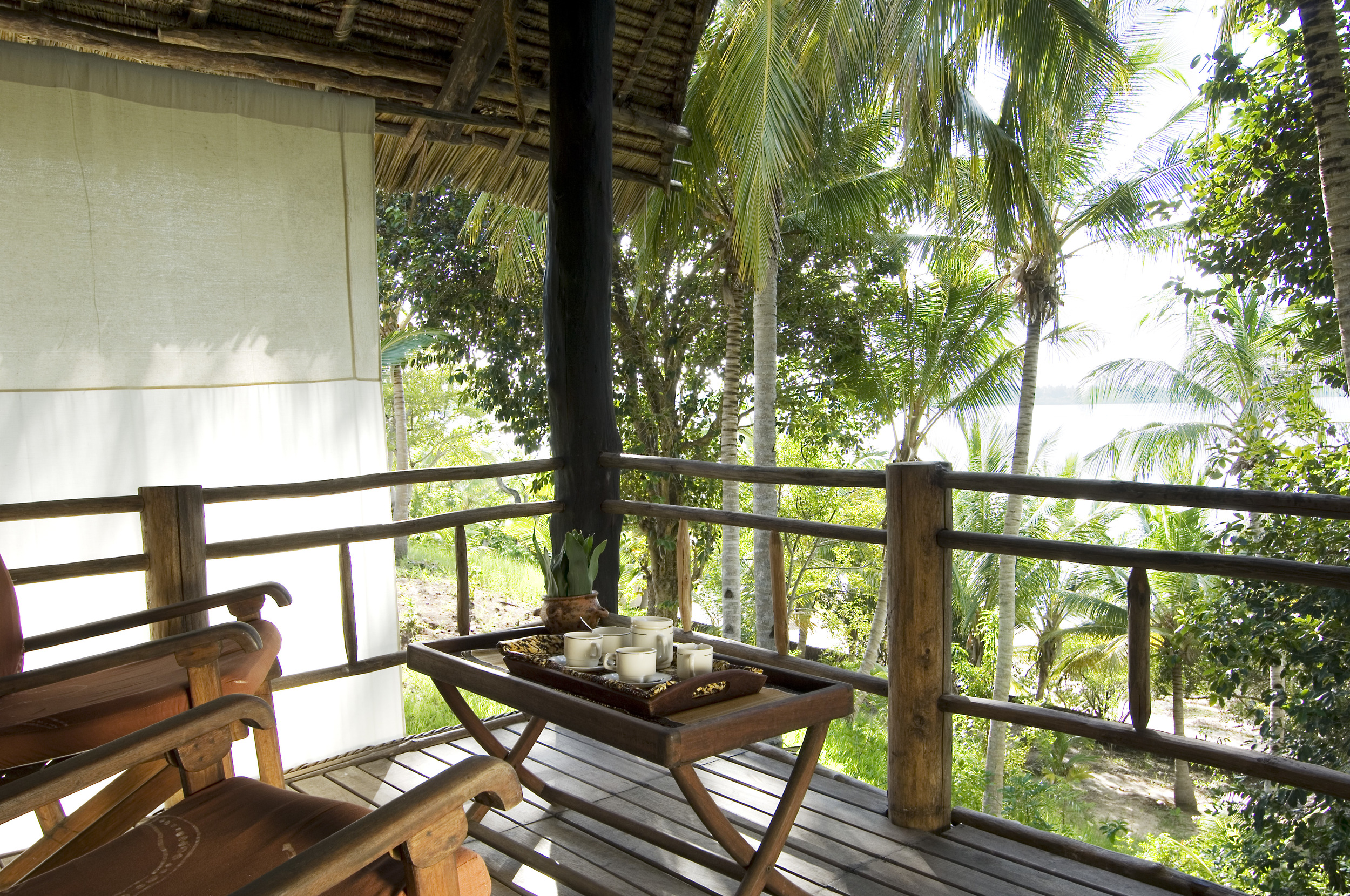
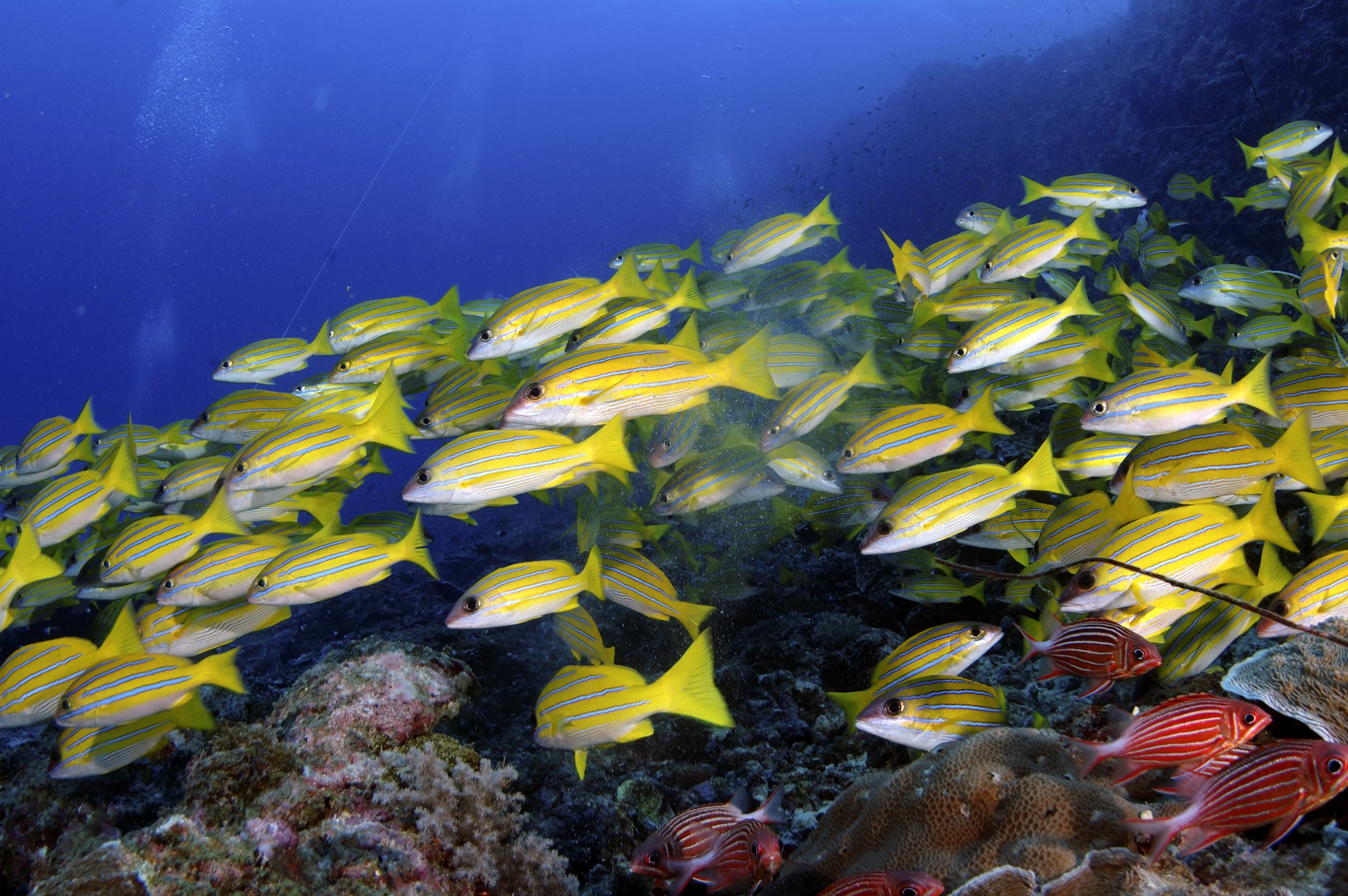
PERSONALITIES
Divers. Honeymooners. Castaways. Tiki Lovers.
MOMENTS
Being greeted with a fresh coconut water. Unlimited marine world. Room service ’sun downer’ to enjoy on the verandah while watching the sunset. Sleeping at the sound of the waves.
BEST VISITING MONTHS
Best time to visit is June to October and December to February.
Best time for diving is September to March.
COST
WHY STAY
Pole Pole Bugalows is located on the southeast coast of the Mafia Island Marine Park, Tanzania. Sitting right on the beach and surrounded by a garden of coconut palms, this quickly paints a perfect picture for any Tiki lover.
There are seven luxury bungalow suites to choose from, all of which have spectacular views of the Chole Island and Indian Ocean. Relax on the large private verandas, complete with day-beds and coffee tables and let the time stand still.
WHY WANDER
Mafia Island is a Marine Park and is well known in the diving community as one of the best places for underwater adventure. Take advantage of the Pole Pole offer of 4 free dives when staying for at least 4 nights. If diving is not for you, snorkeling offers an equality exciting experience.
Take a day and visit the Maribani Sand Bank, only appearing during low tide. Sail to the inhabited Chole Island to see ruins of old Arab buildings or the Juani Island to see ruins of the ancient city of Kua. While at Juani, make sure to swim in the Blue Lagoon.
If you are visiting between October and March, make sure to take a short boat trip to swim with whale sharks.
INDULGE IN
Fresh coconuts. Swahili food with an italian twist. White snapper cooked over a fire of coconut husks. Ginger cookies.
GETTING THERE
Mafia Island is approximately 50 km off the Tanzanian coast, about 30 minutes by air from Dar es Salaam and 45 minutes from Zanzibar Island. Pole Pole is 20 minute away from Kilindoni, the main village and airstrip and the transfer is included in the accommodation cost.
*Images property of Pole Pole
BOOKING INFO

Chumbe Island Coral Park
TANZANIA
Chumbe Island Coral Park
TANZANIA
Chumbe Island
tanzania
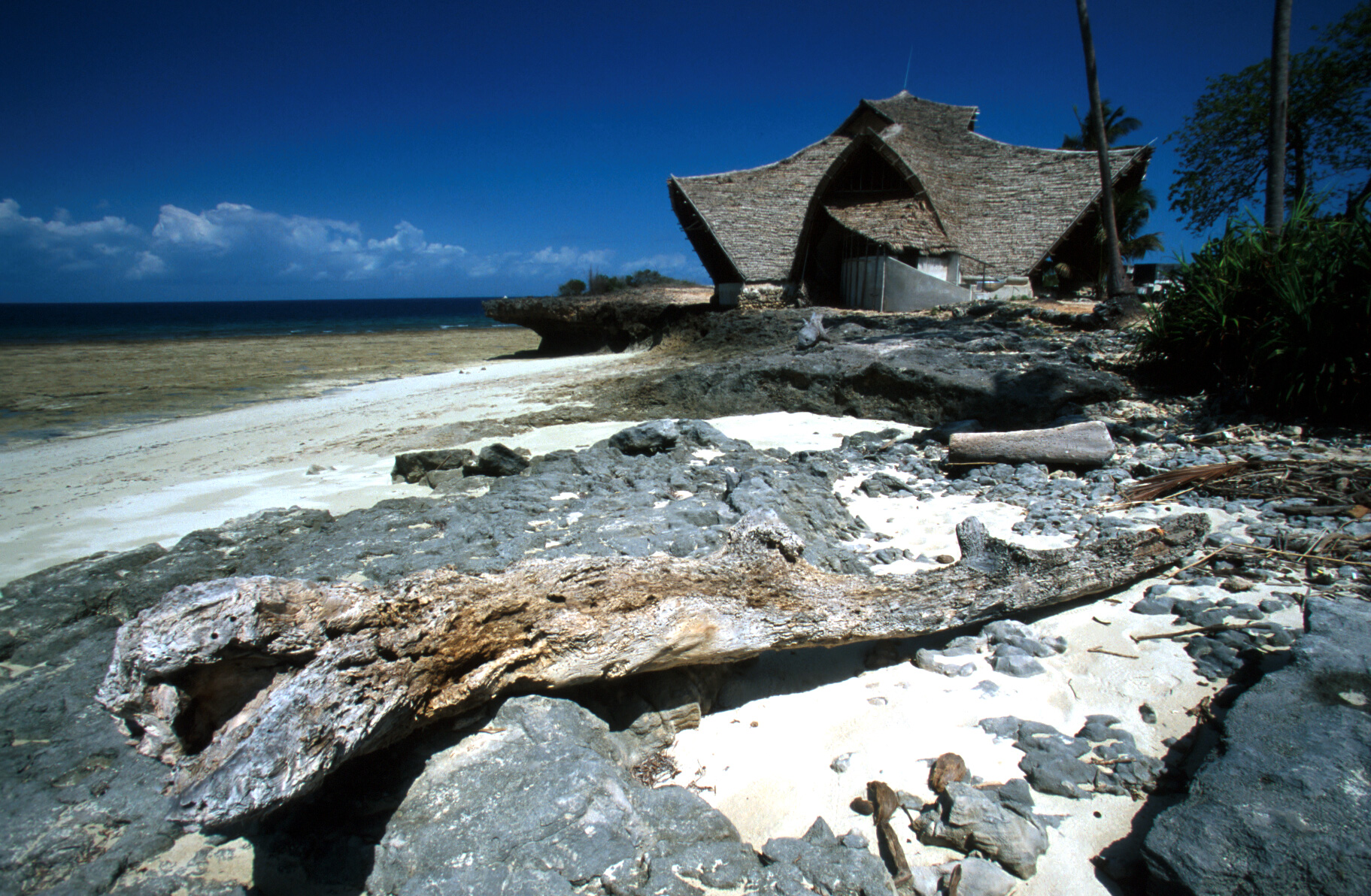
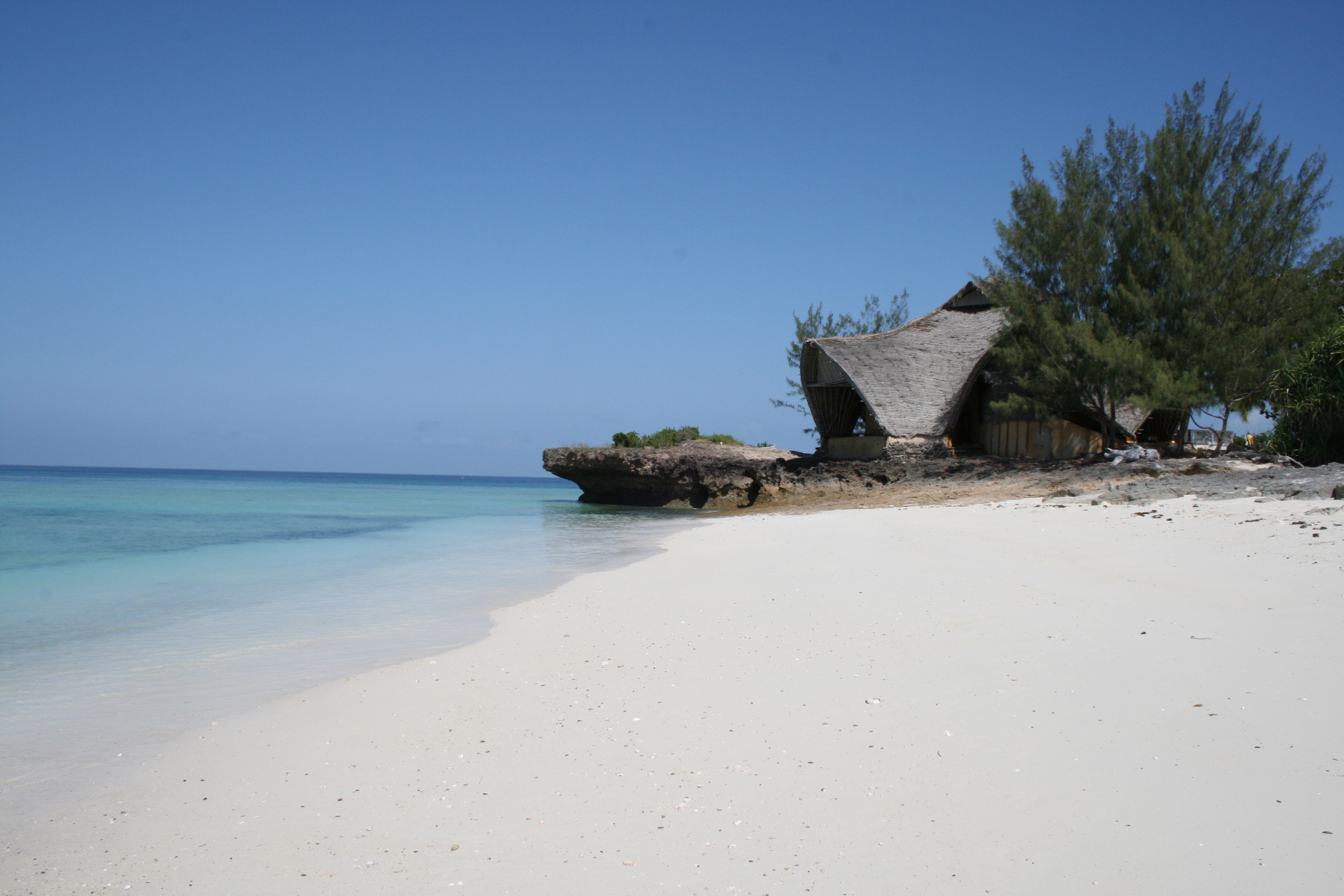
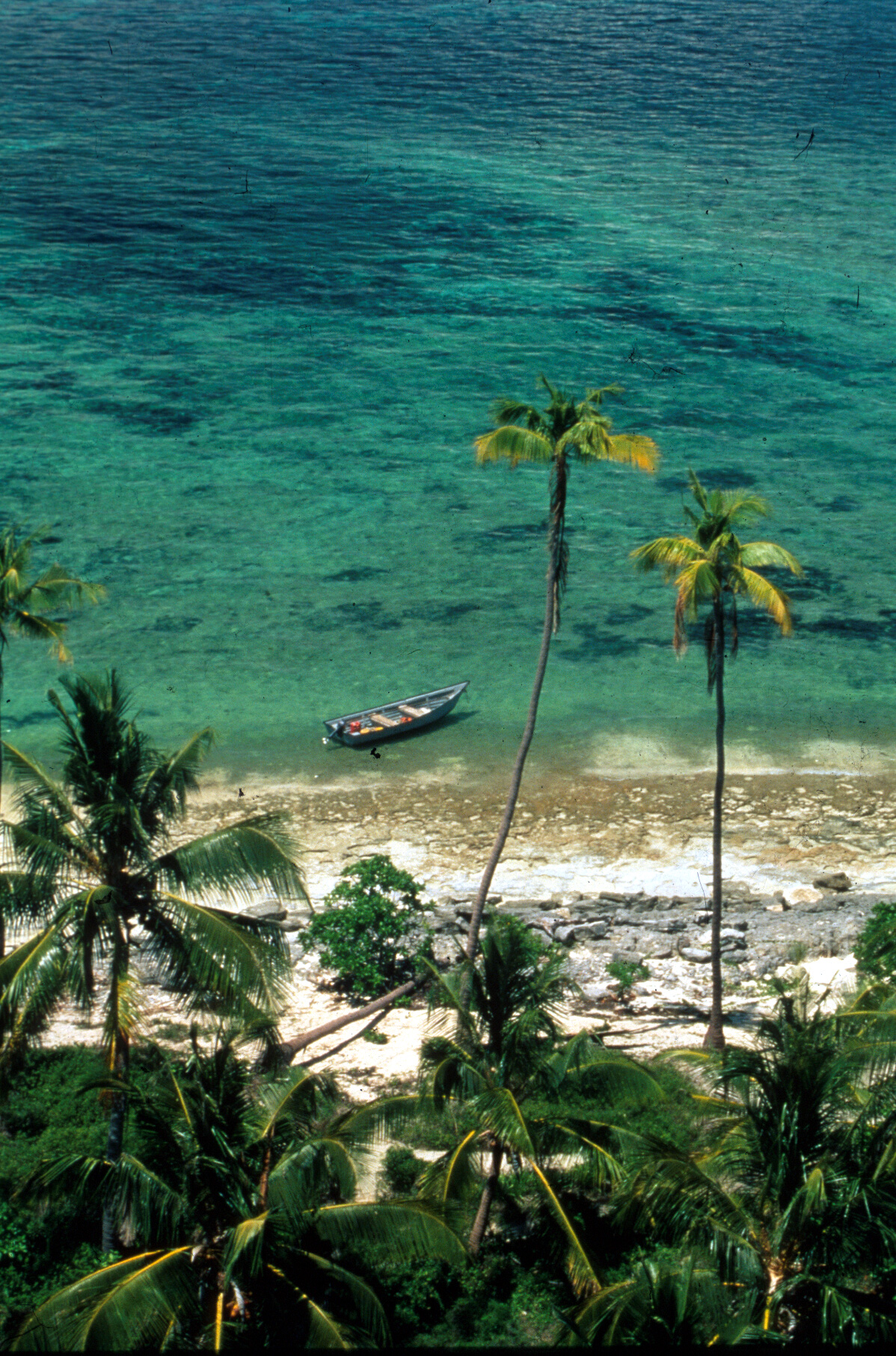
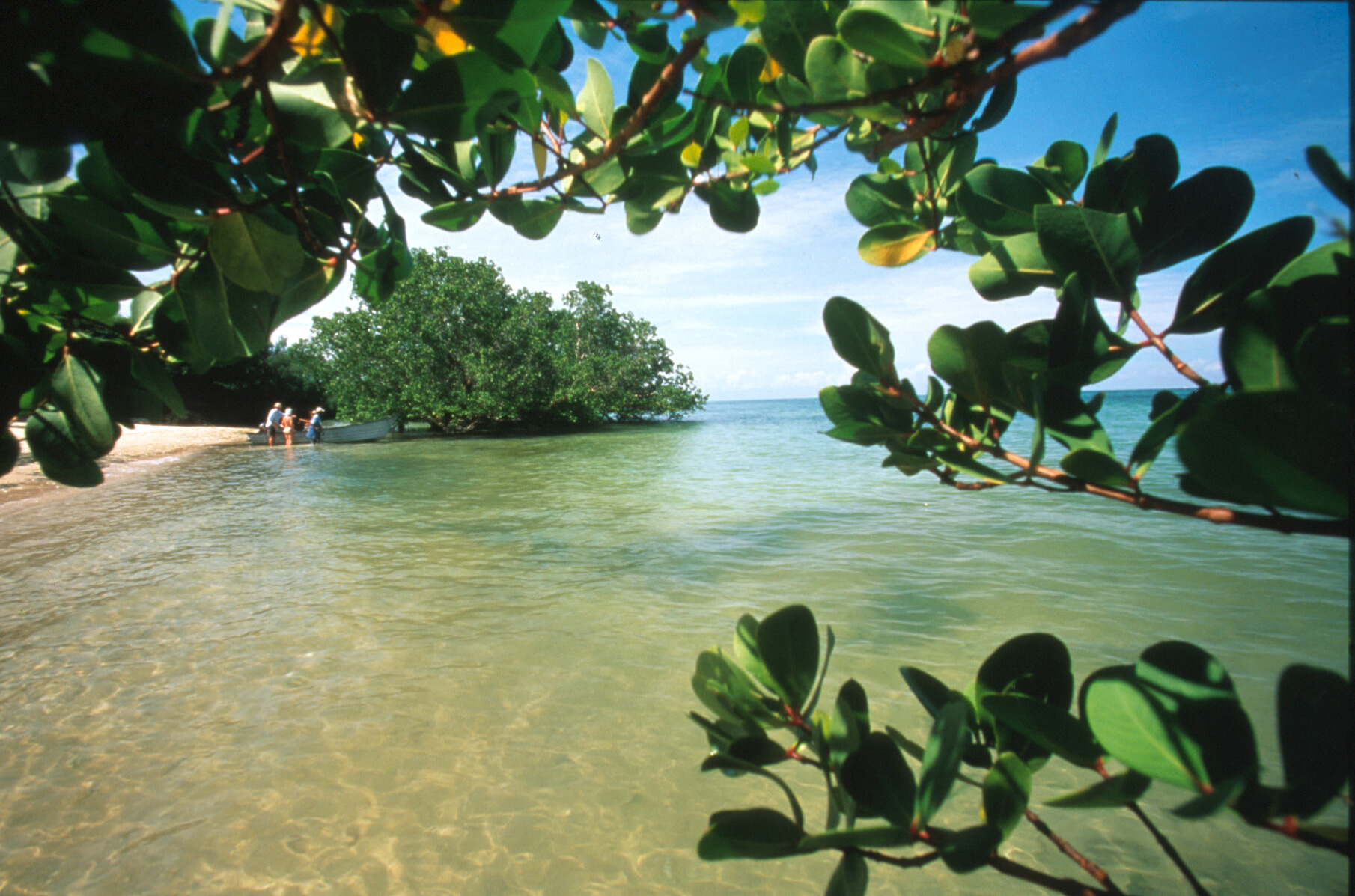
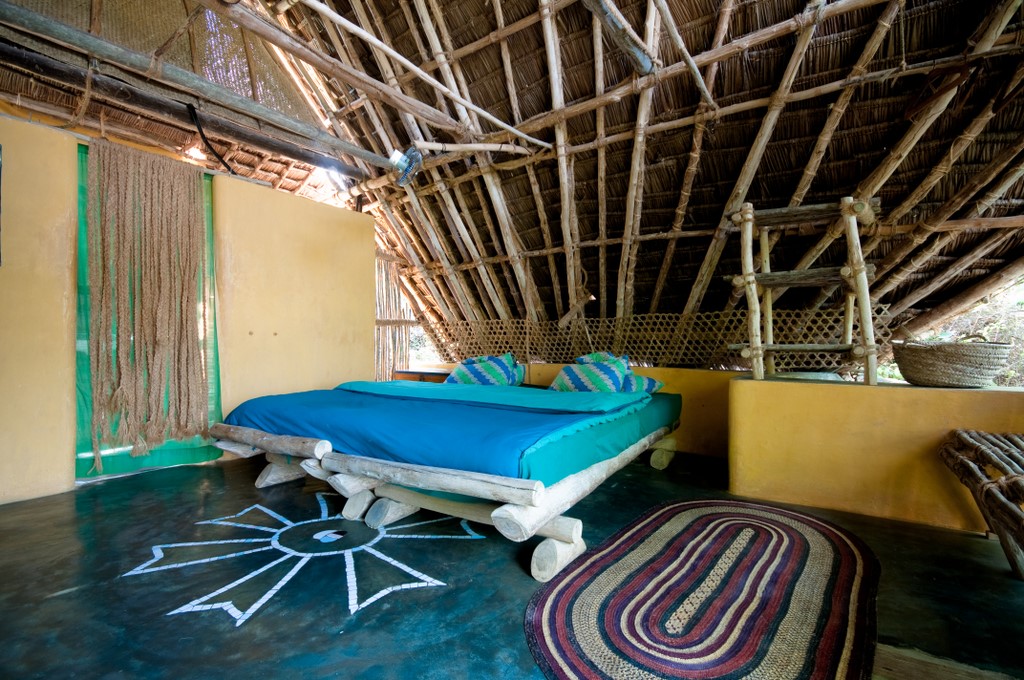
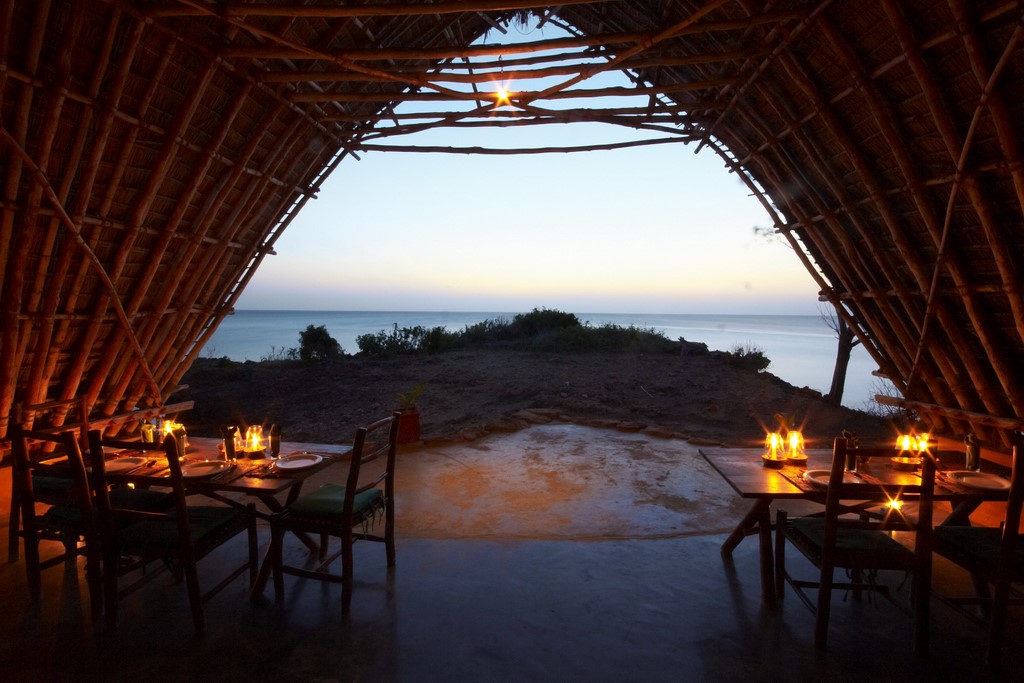
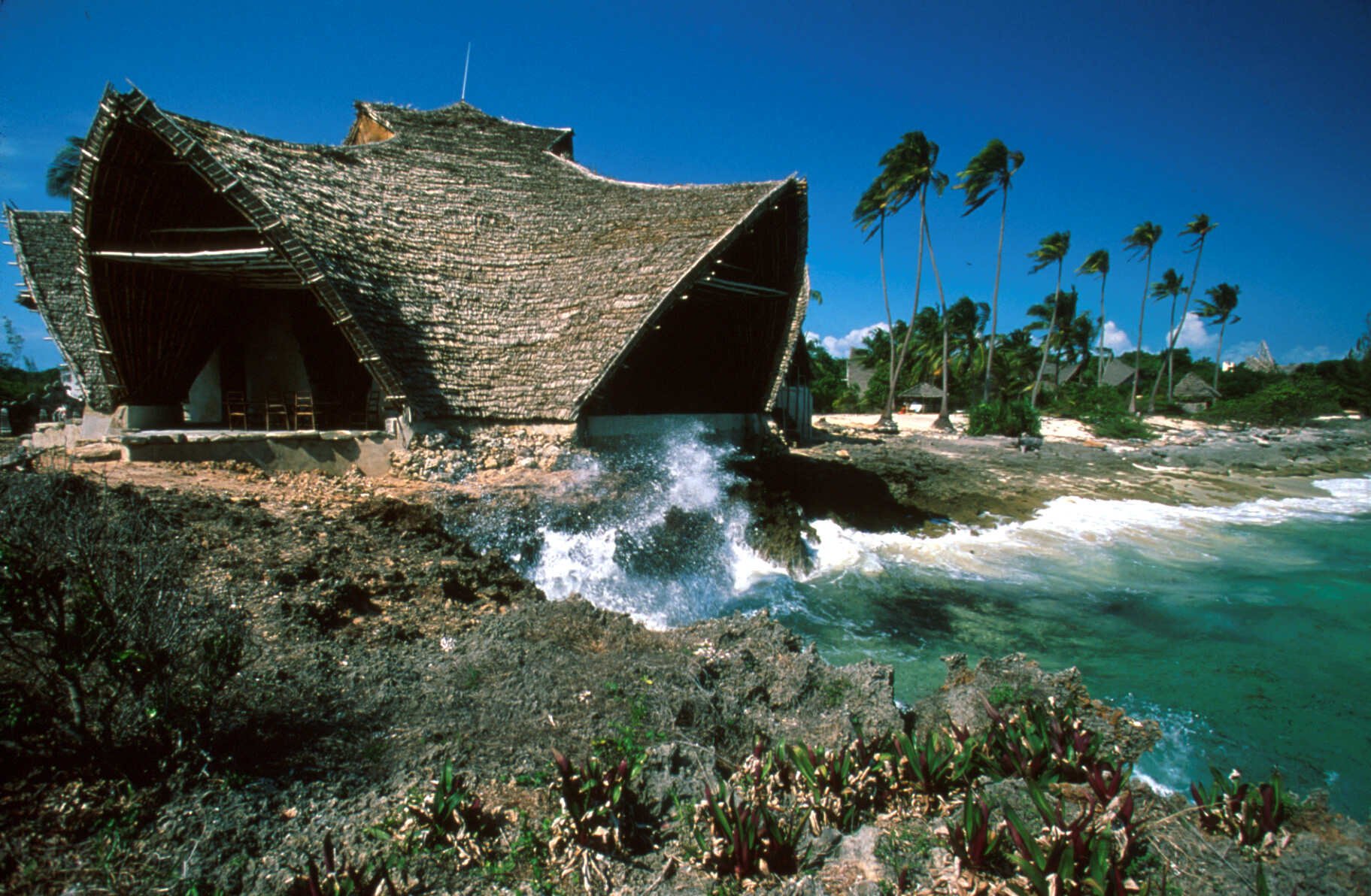
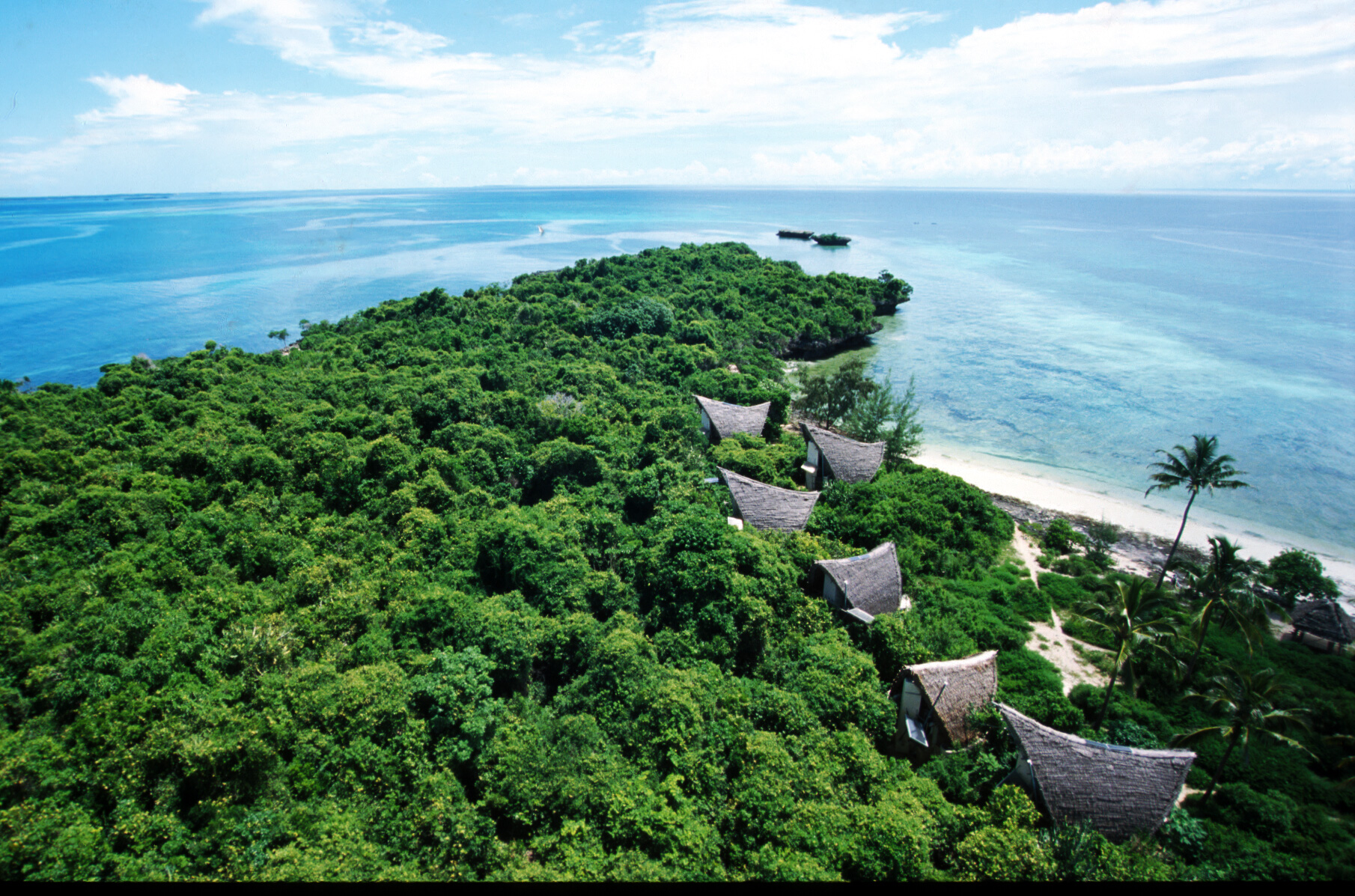
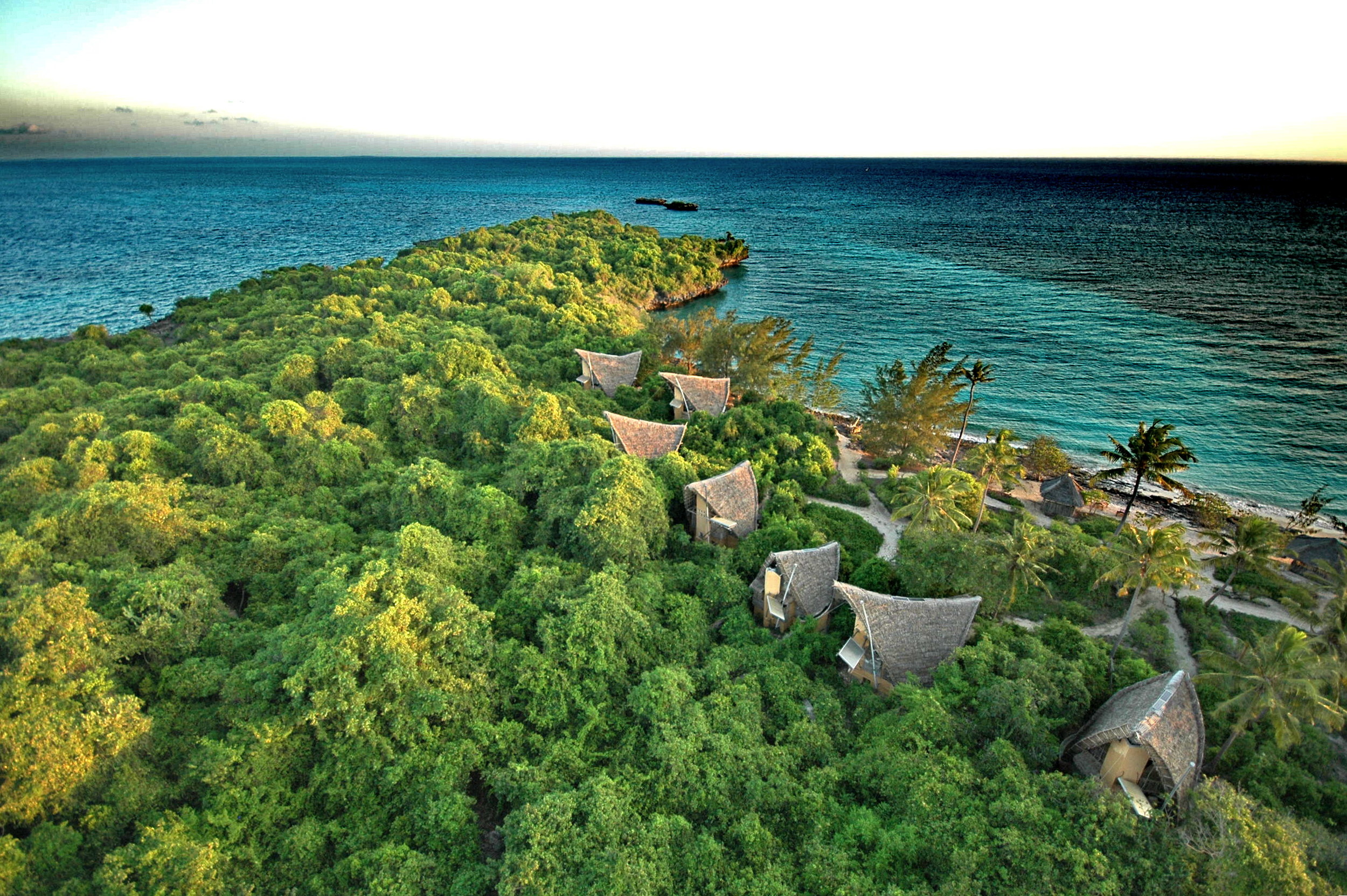
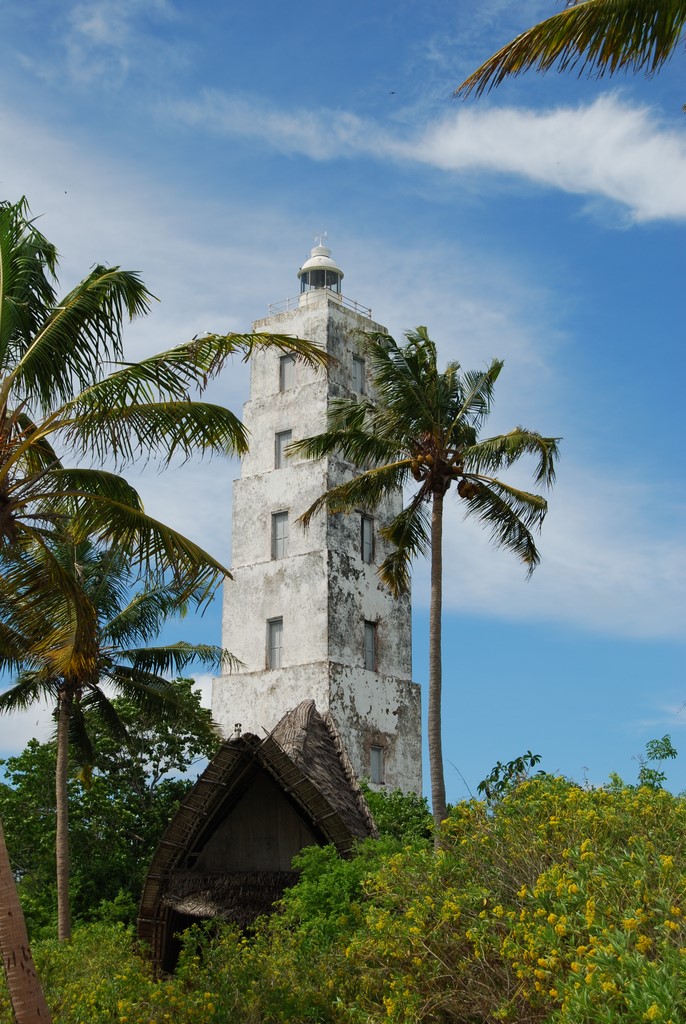
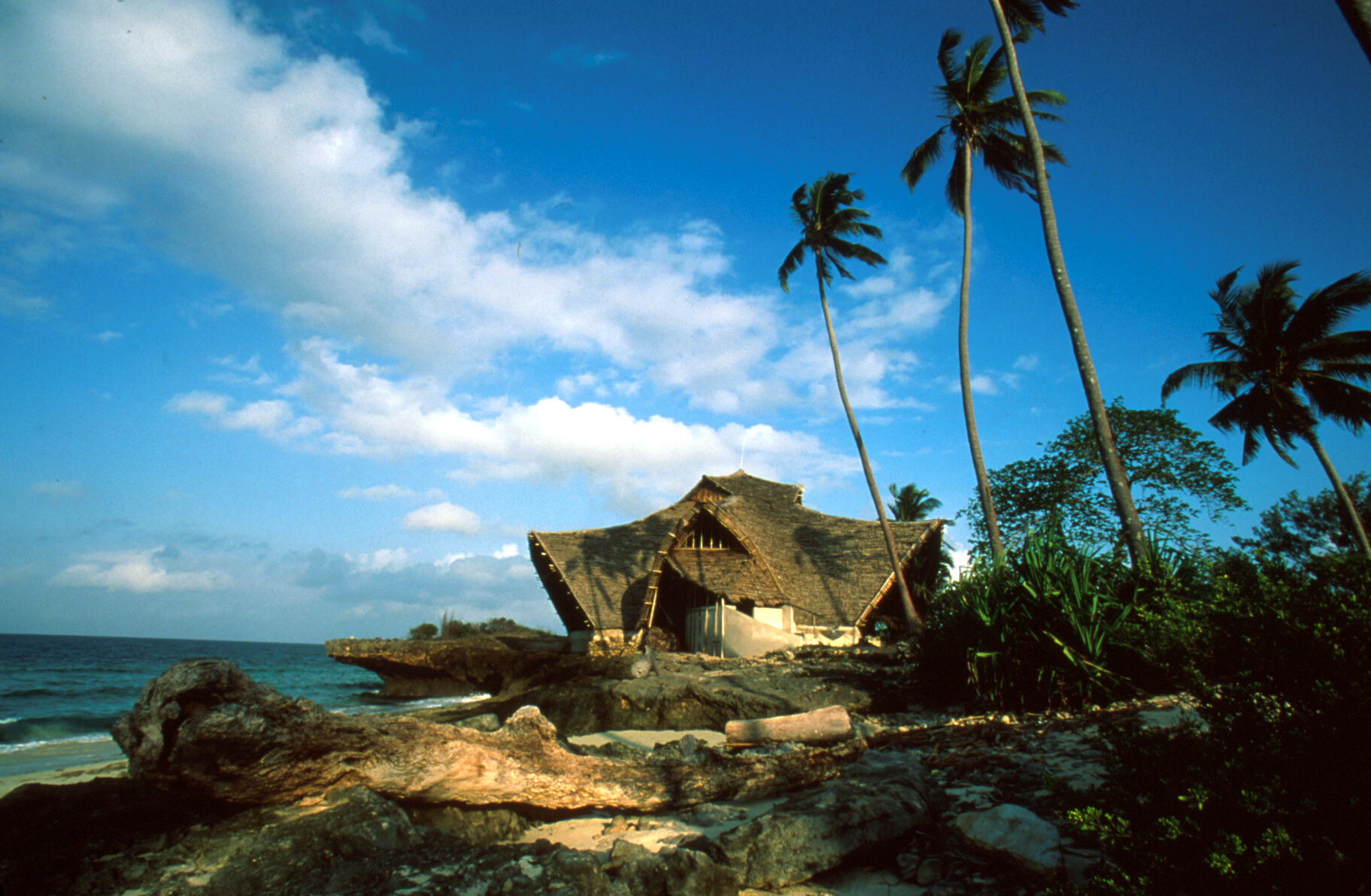
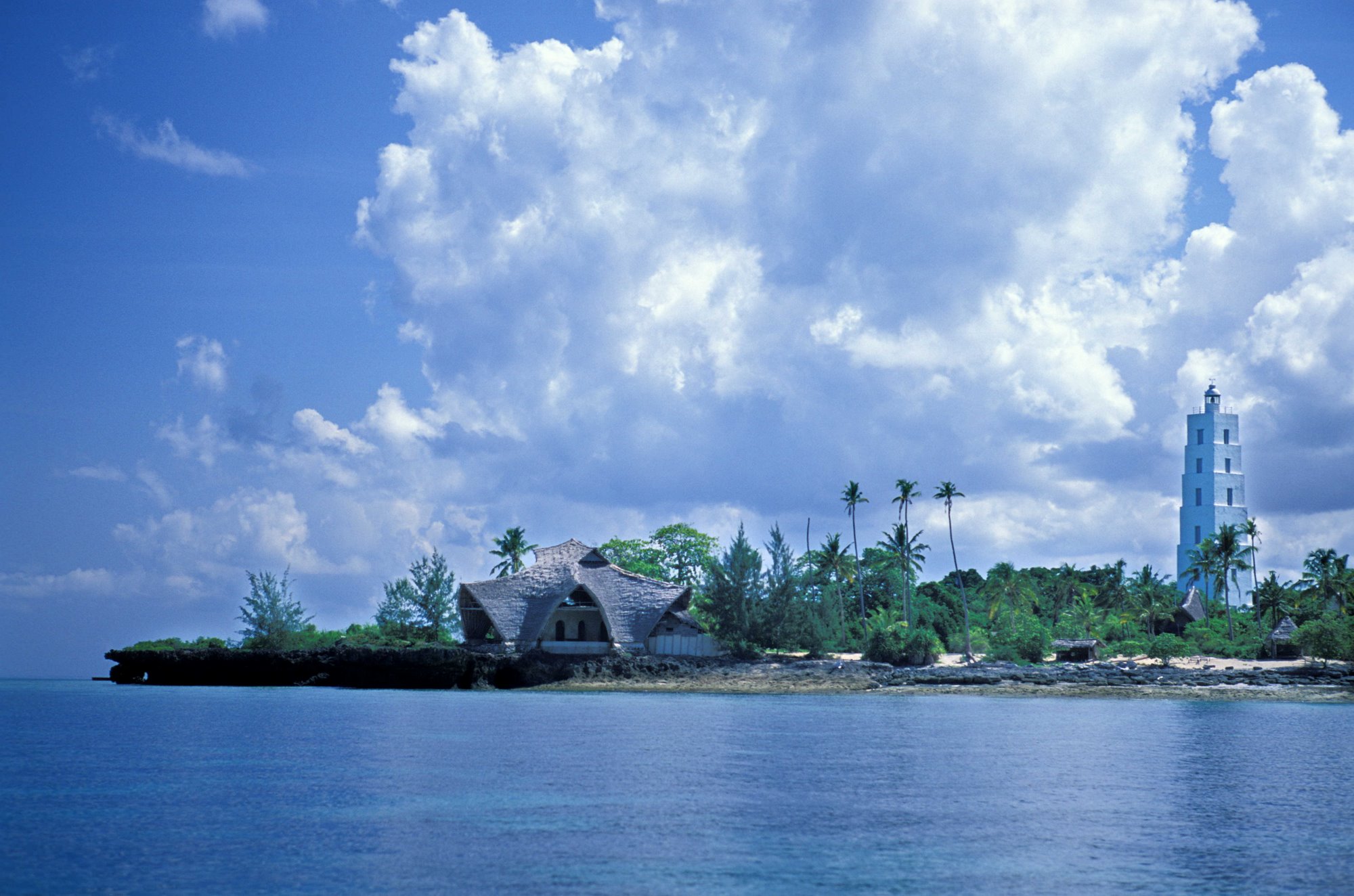
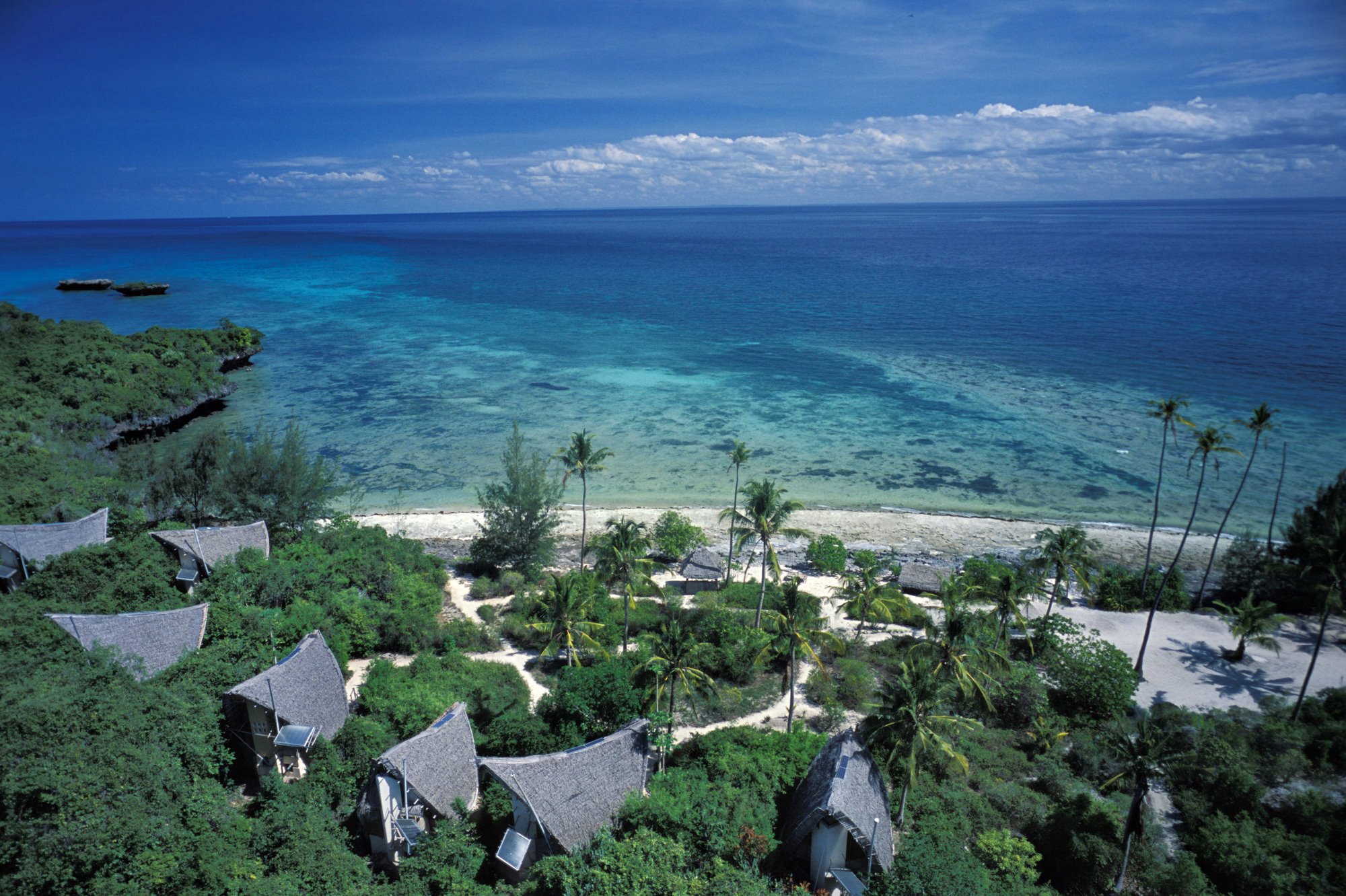
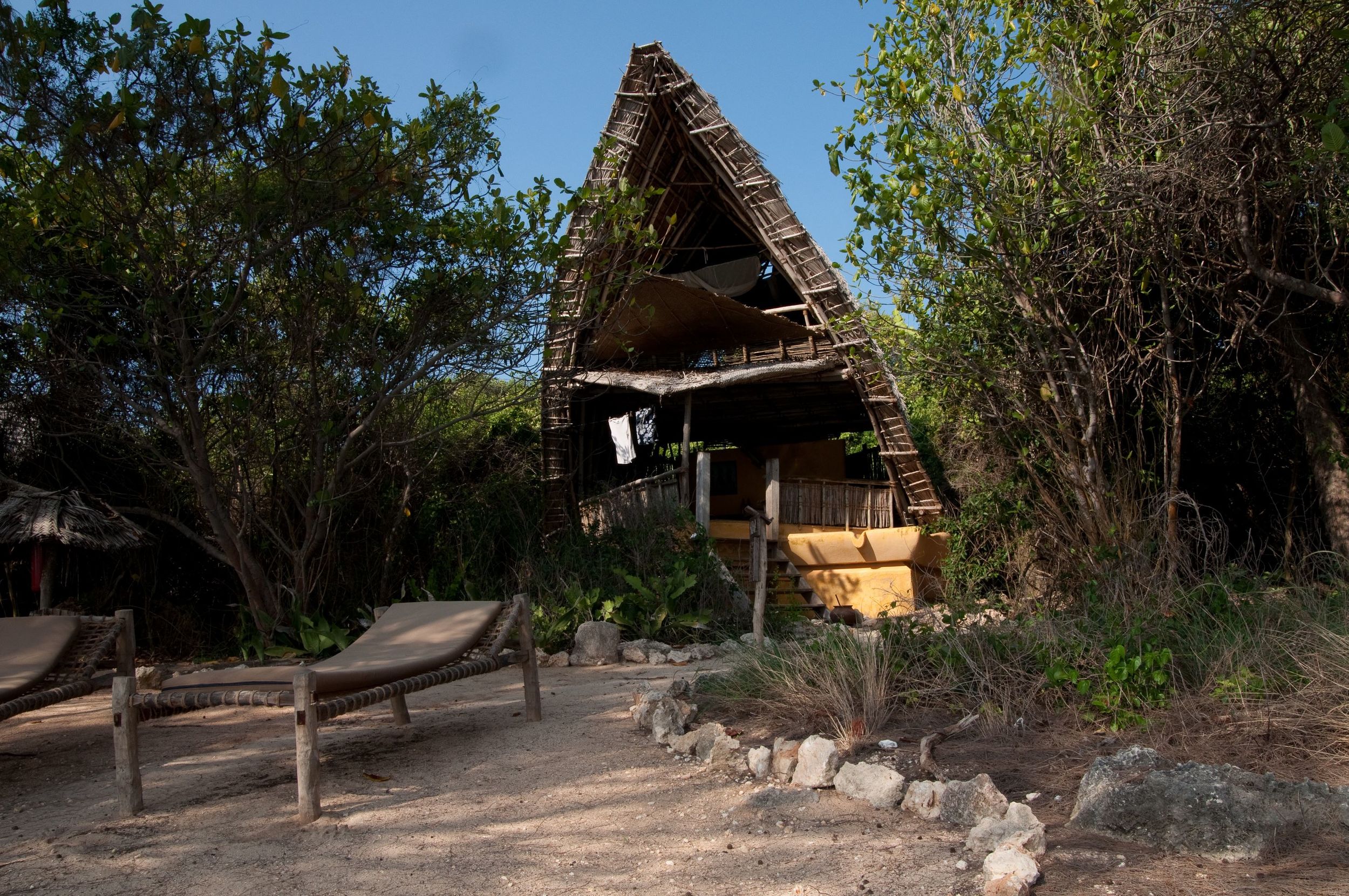
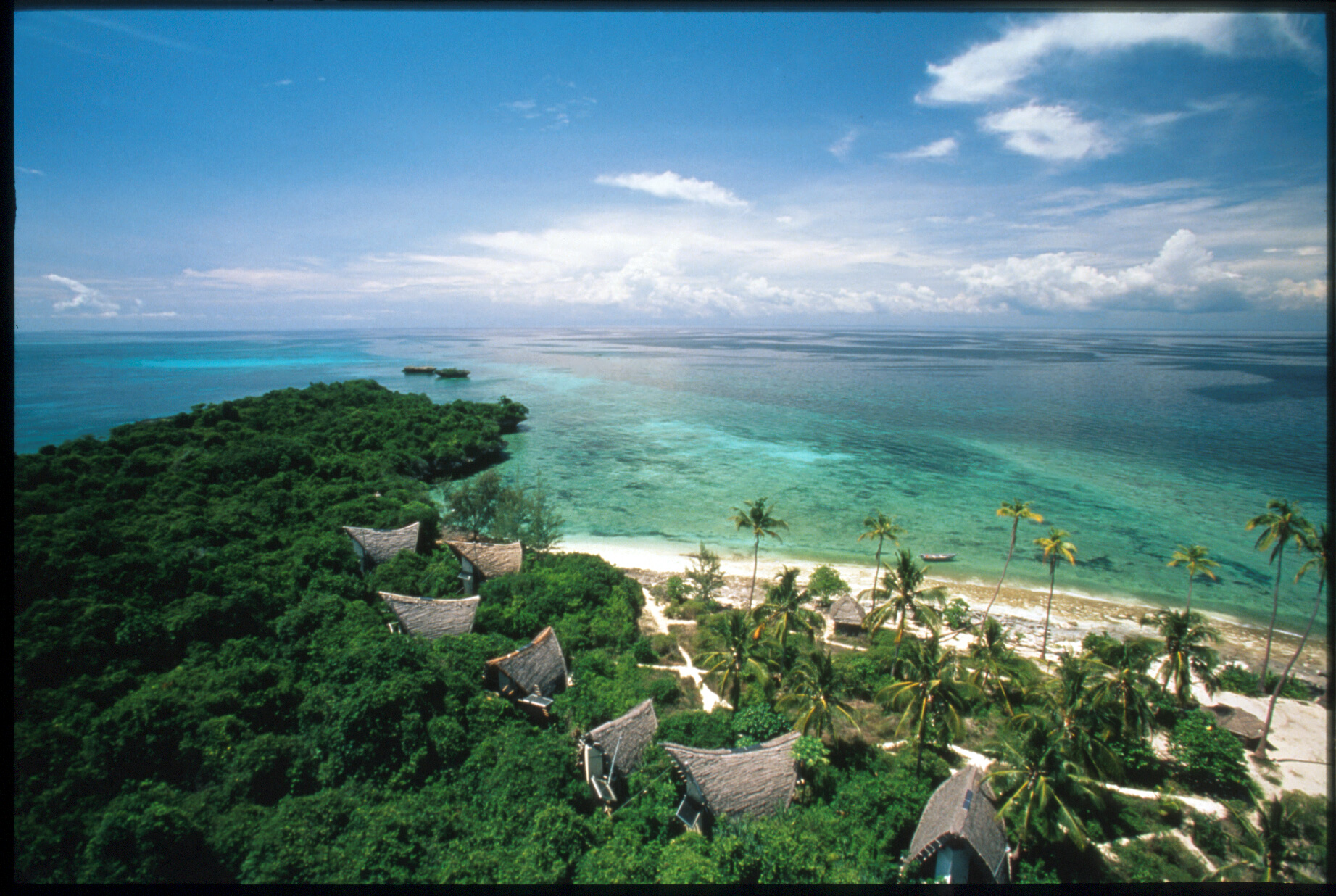
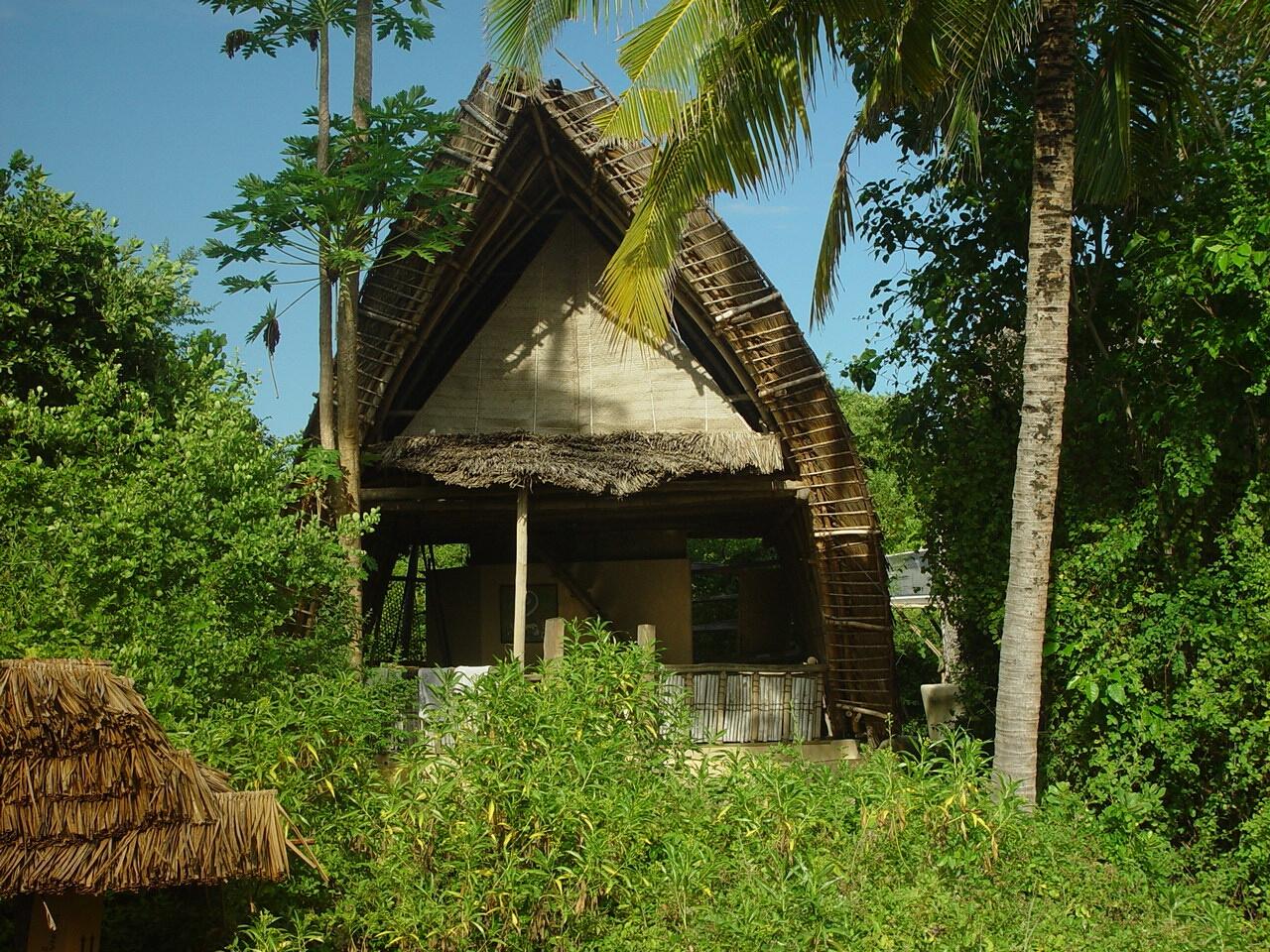
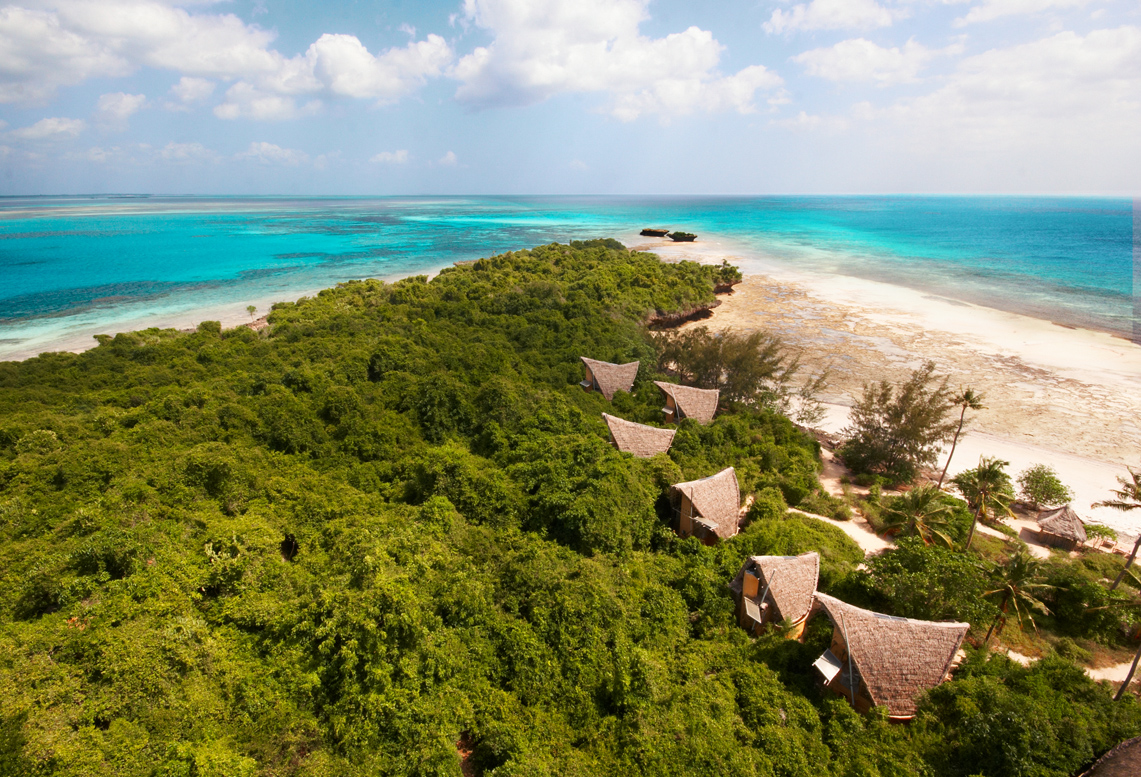
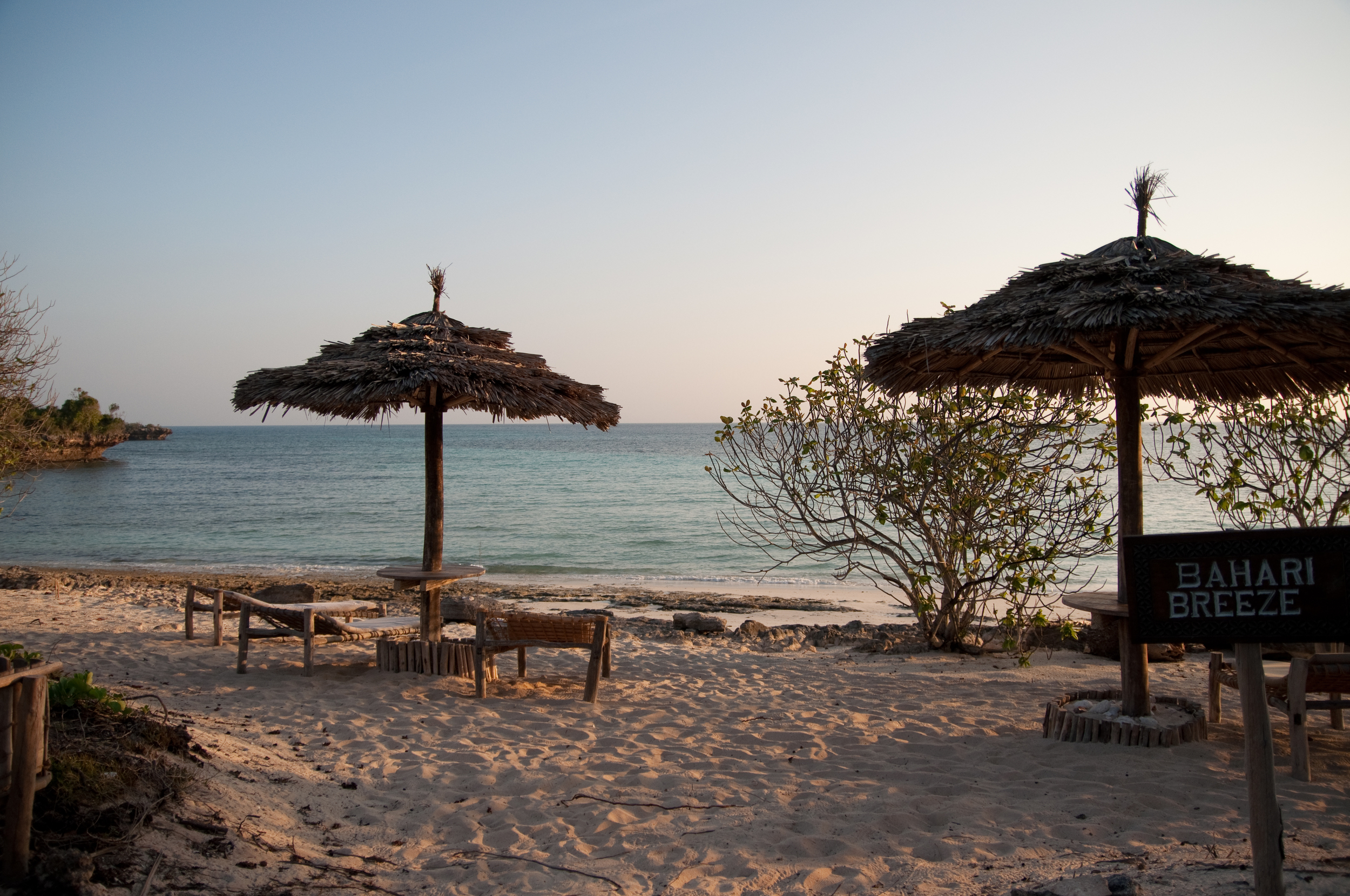
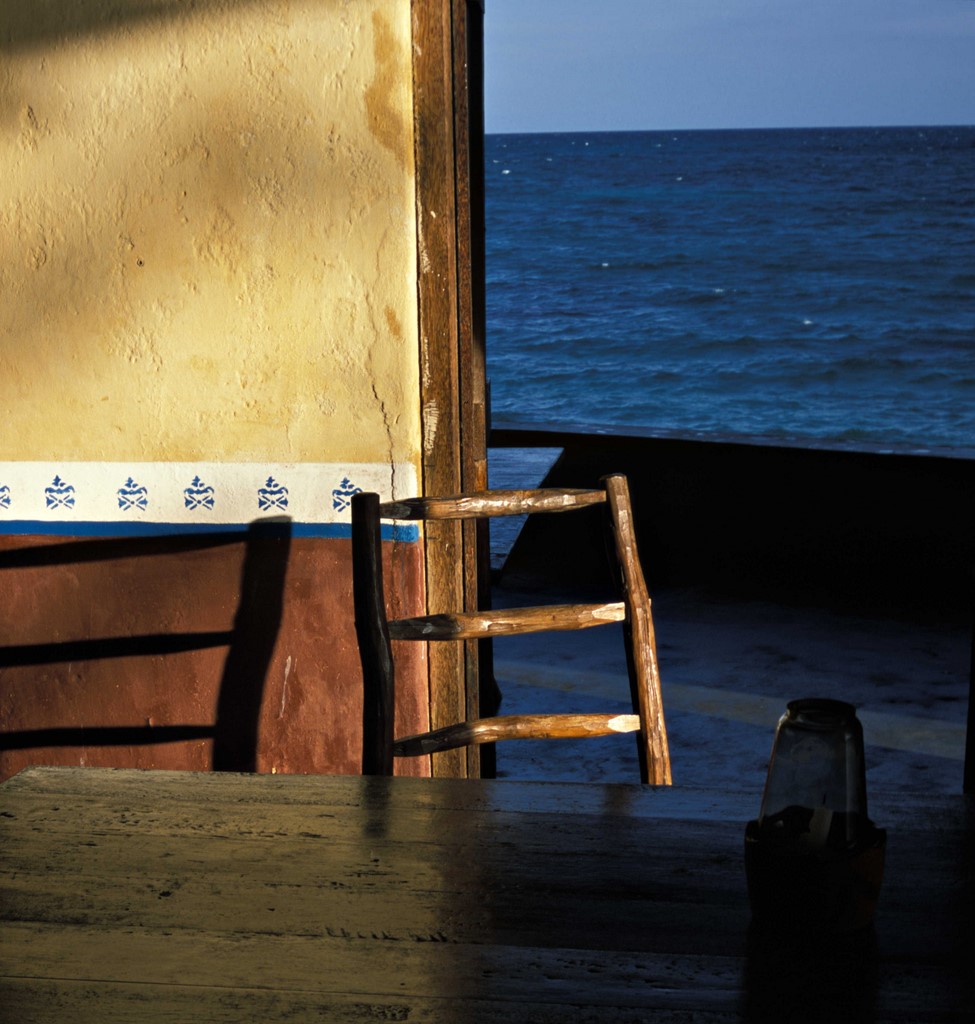
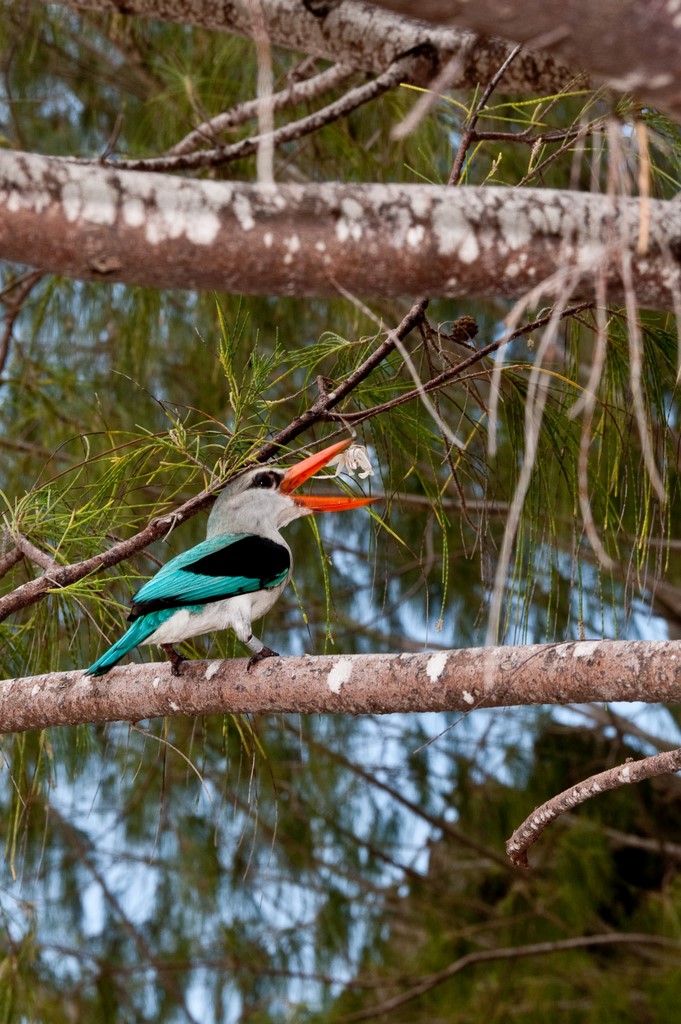
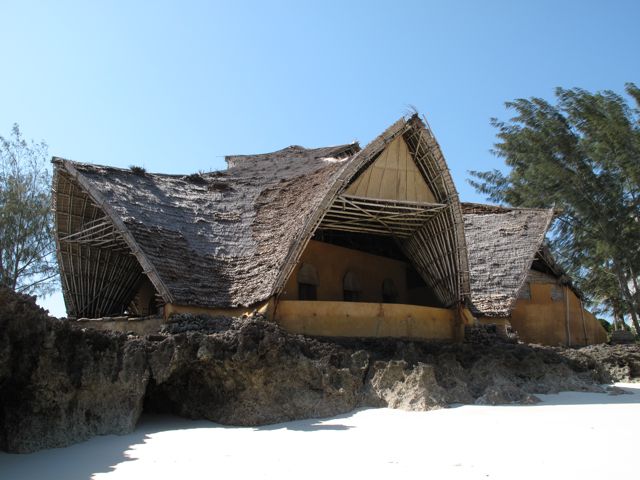
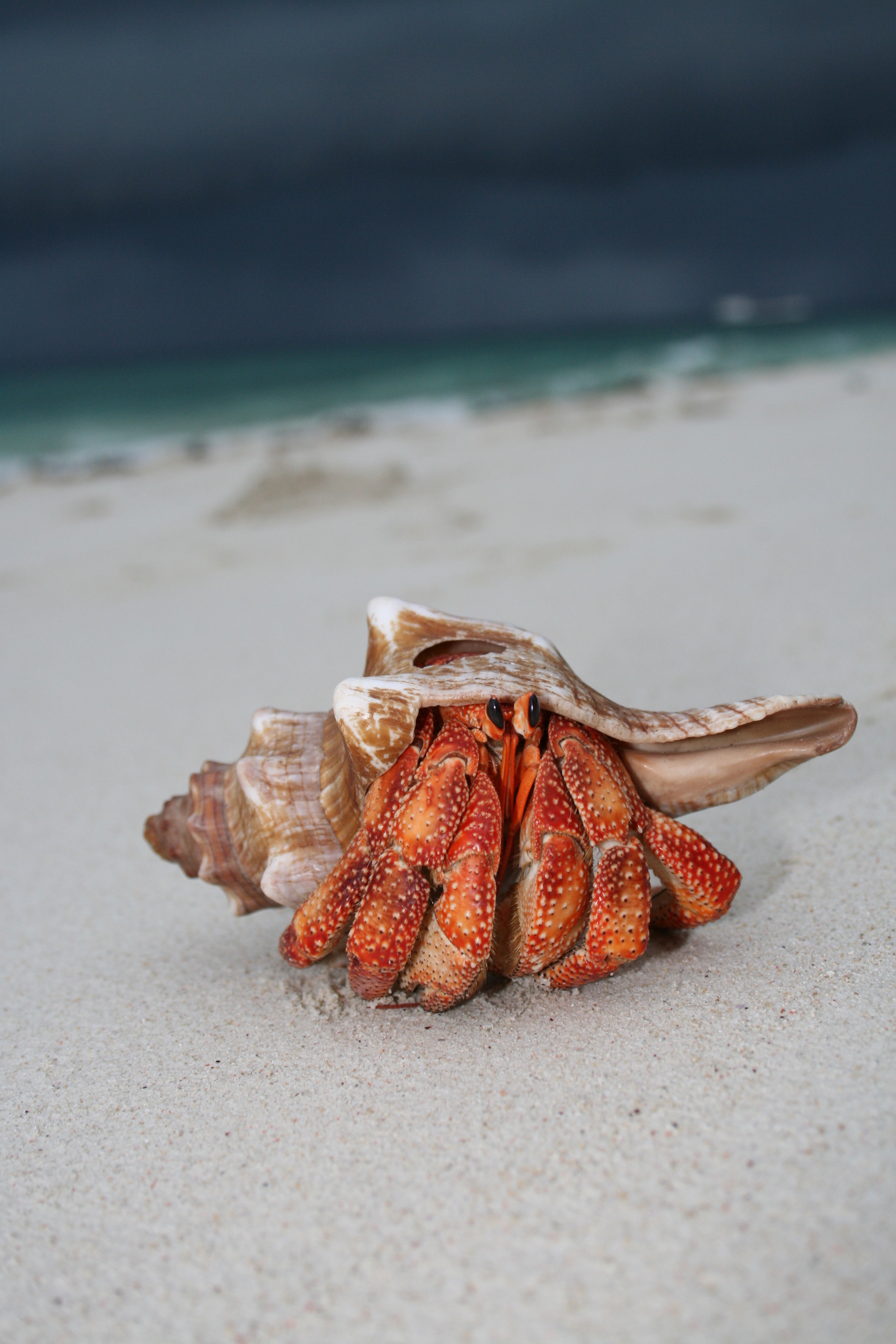
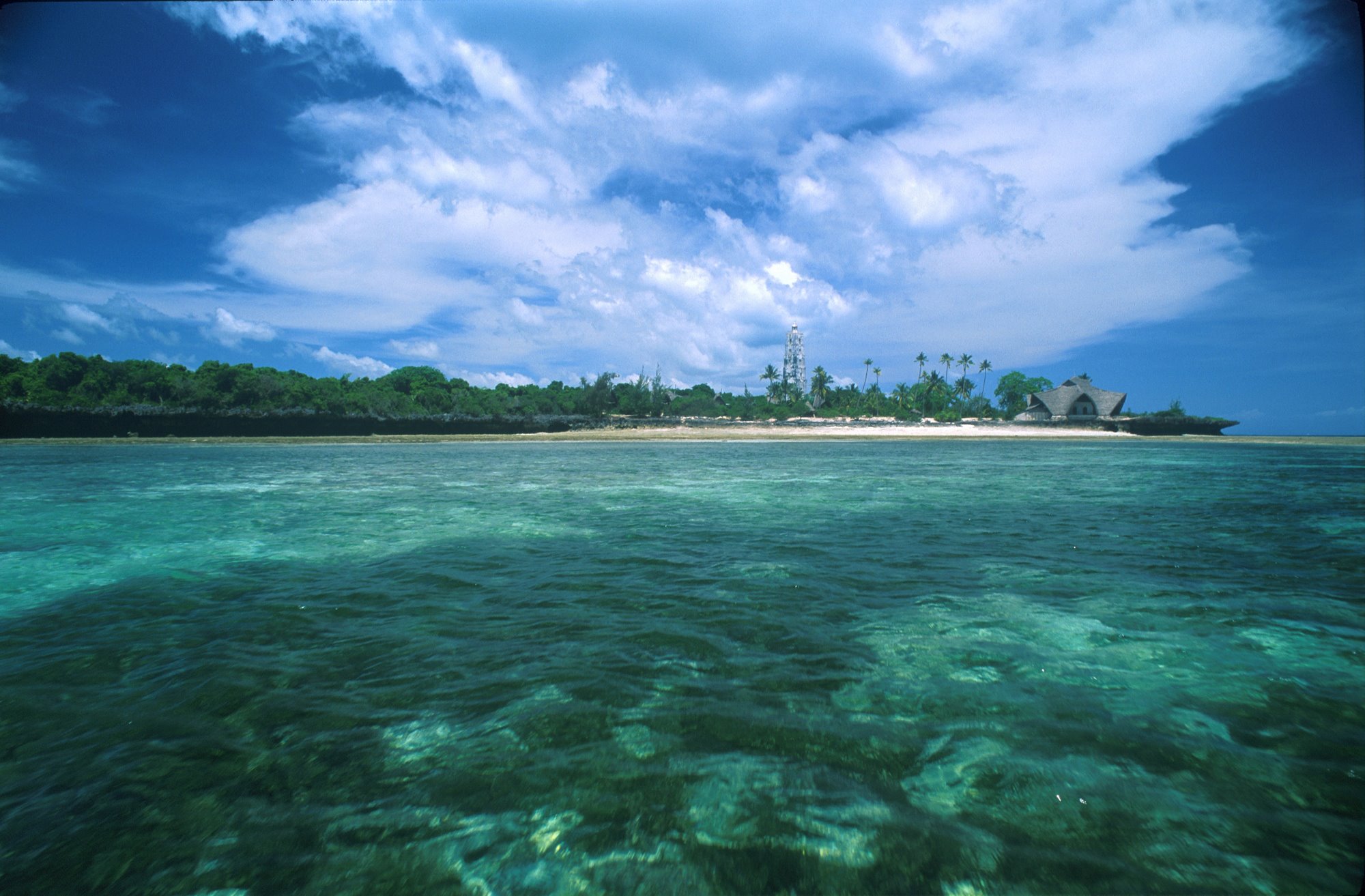
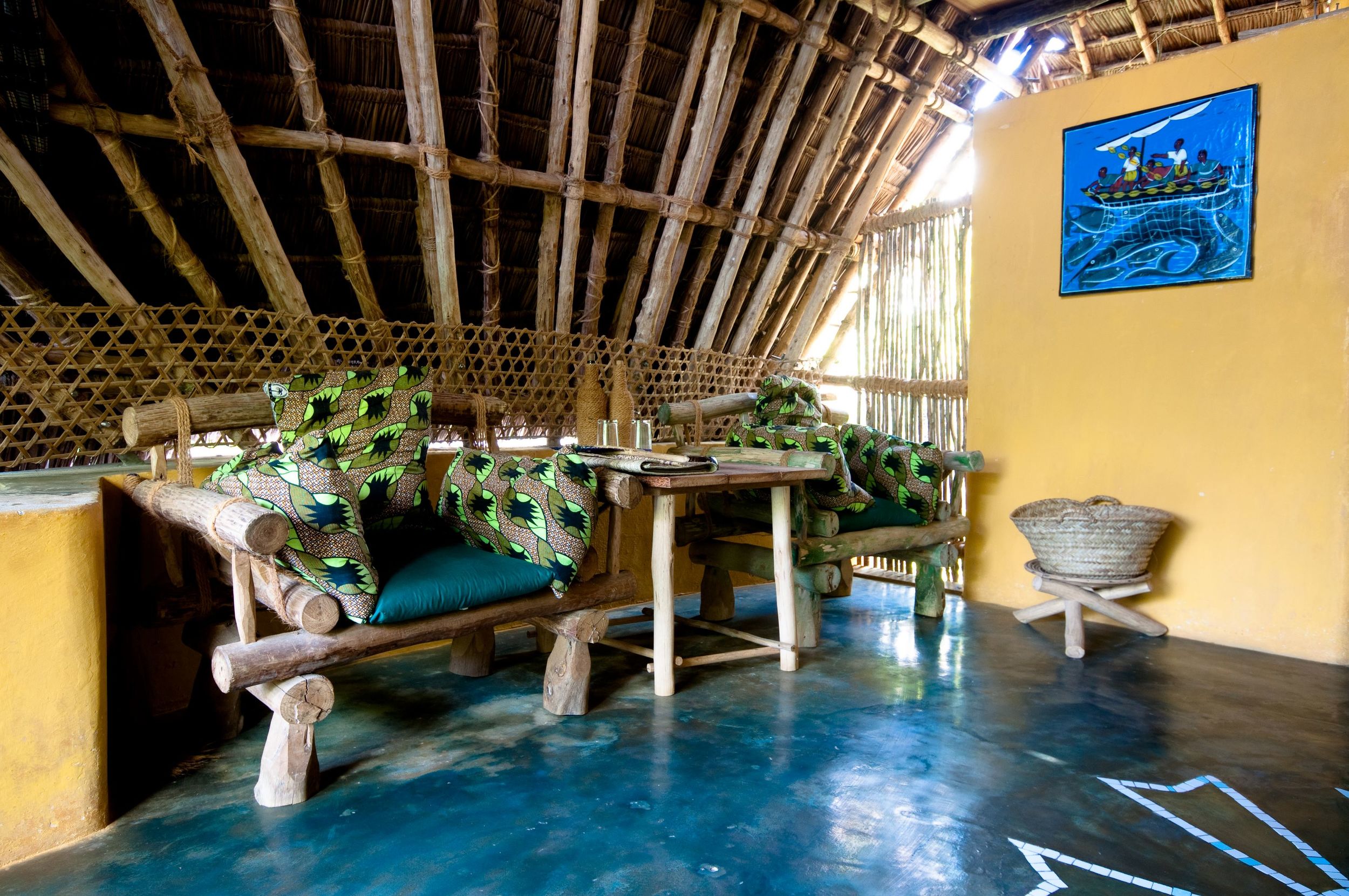

PERSONALITIES
Honeymooners. Leisure divers. Escapees. Ecotourists.
MOMENTS
Eco Paradise. Ancient coral reefs. Outdoor candlelight dinners overlooking the ocean. Spotless beaches. A holiday you feel good about.
COST
WHY STAY
Chumbe Island is a private island retreat near Zanzibar, Tanzania. This unique tiki destination is surrounded by the Indian Ocean and a lush tropical jungle.
Stay in one of seven eco bungalows, designed to provide both privacy and a sense of freedom of living in the open. The rooms are steps away from a pristine white sand beach, which you can see from your bed. Enjoy being able to stroll from your bungalow hammock to the warm tropical ocean in under 30 seconds.
WHY WANDER
Chumbe Island Coral Park is a private nature reserve that includes a protected coral reef sanctuary and a forest reserve. Besides the rich marine environment, there are multiple nature trails and historical ruins for you to discover. Swim with gentle gigantic sea turtles and colorful fish. Take a night nature walk to look for coconut crabs. Enjoy being stranded on this one of a kind tropical island.
INDULGE IN
Fresh fish, caught in a sustainable way. Zanzibarian, Arabic, Indian and African cuisine.
GETTING THERE
Fly into Zanzibar City and take a 30 minute boat to Chumbe.
GREEN FACTOR
Solar power. Rain water collection. Natural breeze. Chumbre has created a non-profit organization for engaging schools and villages and educating them about the protection of the coral reefs.
Photos property of CHUMBE ISLAND
BOOKING INFO

Zuri Zanzibar
TANZANIA
Zuri Zanzibar
TANZANIA
ZURI ZANZIBAR
tanzania
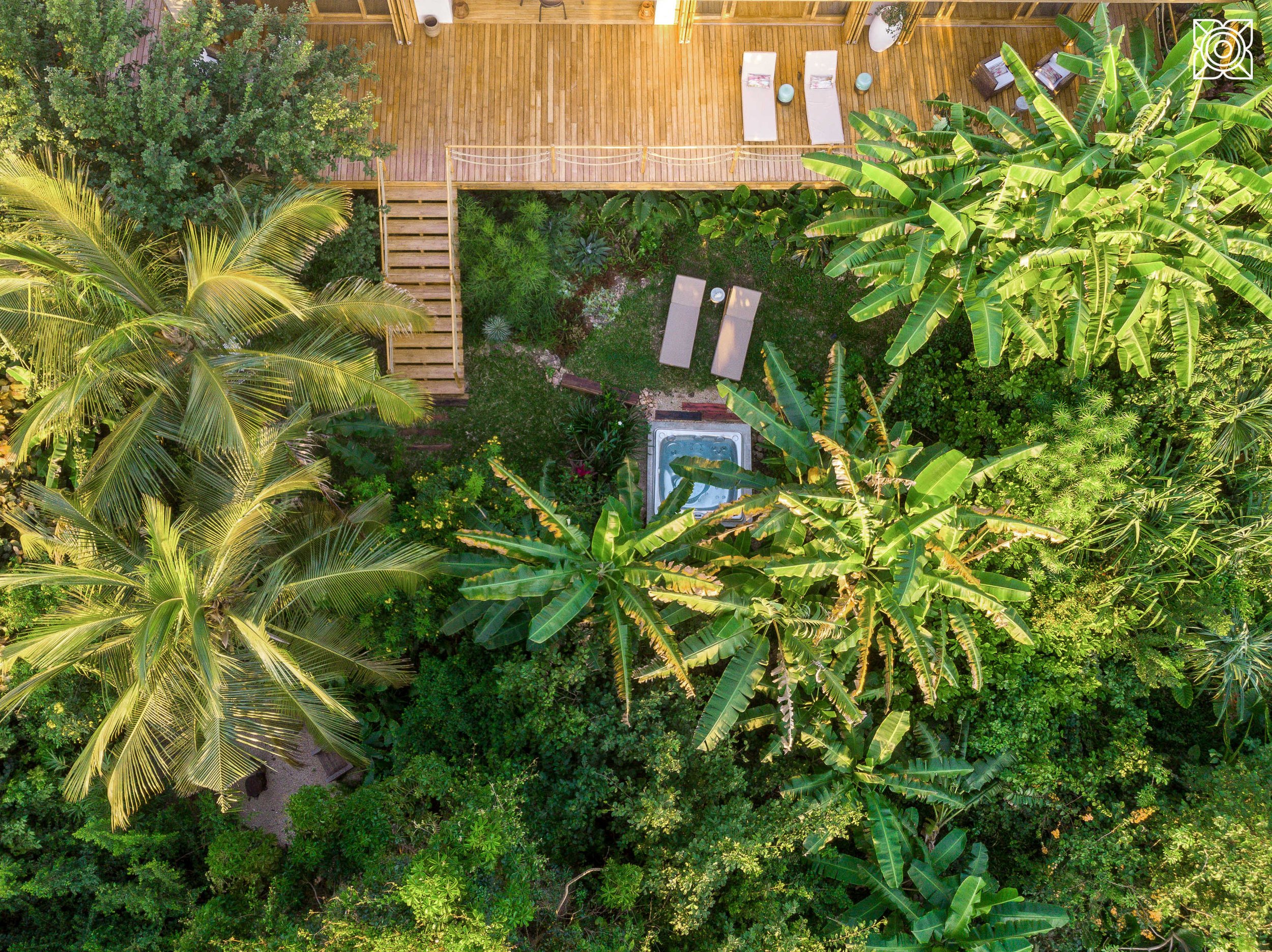

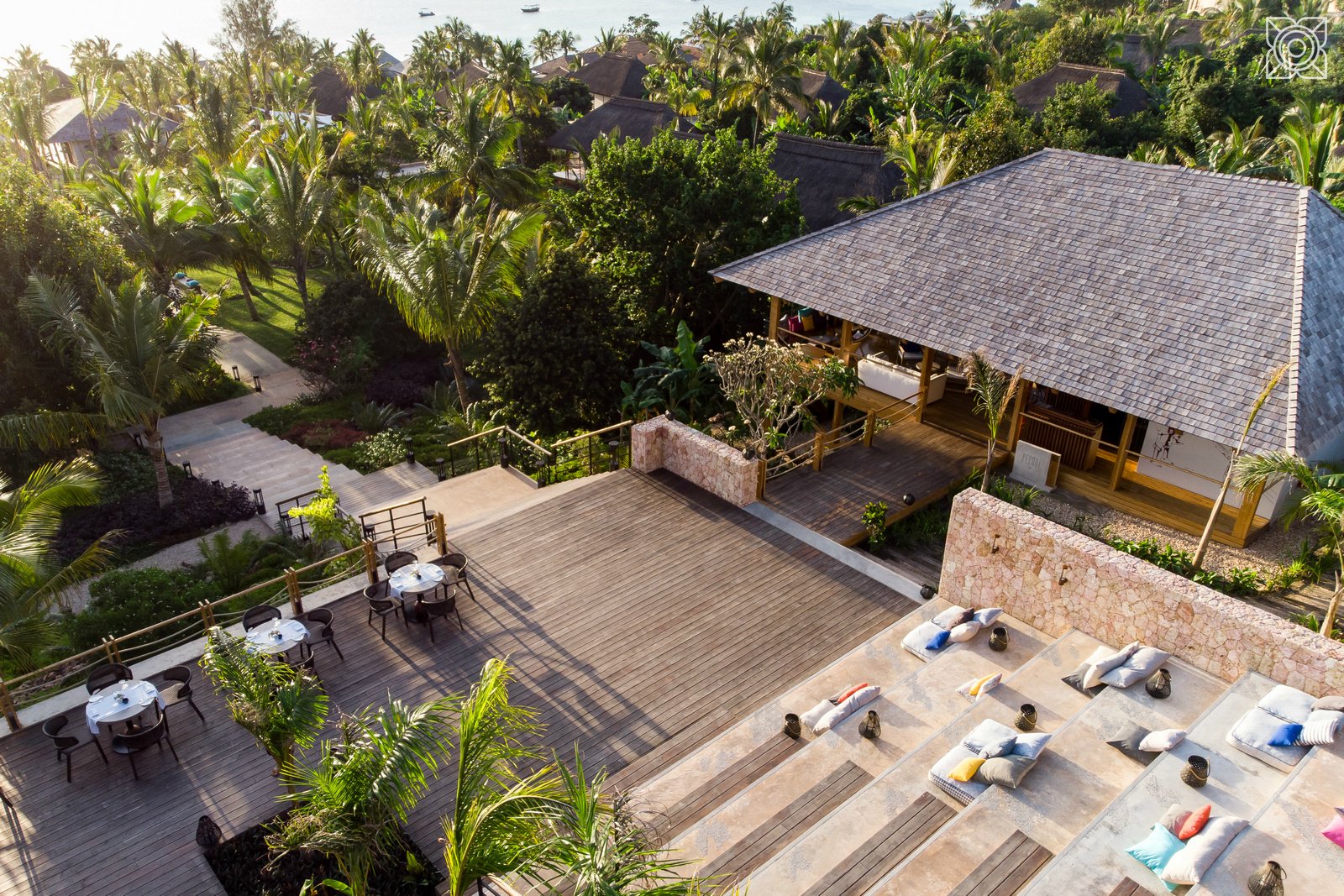
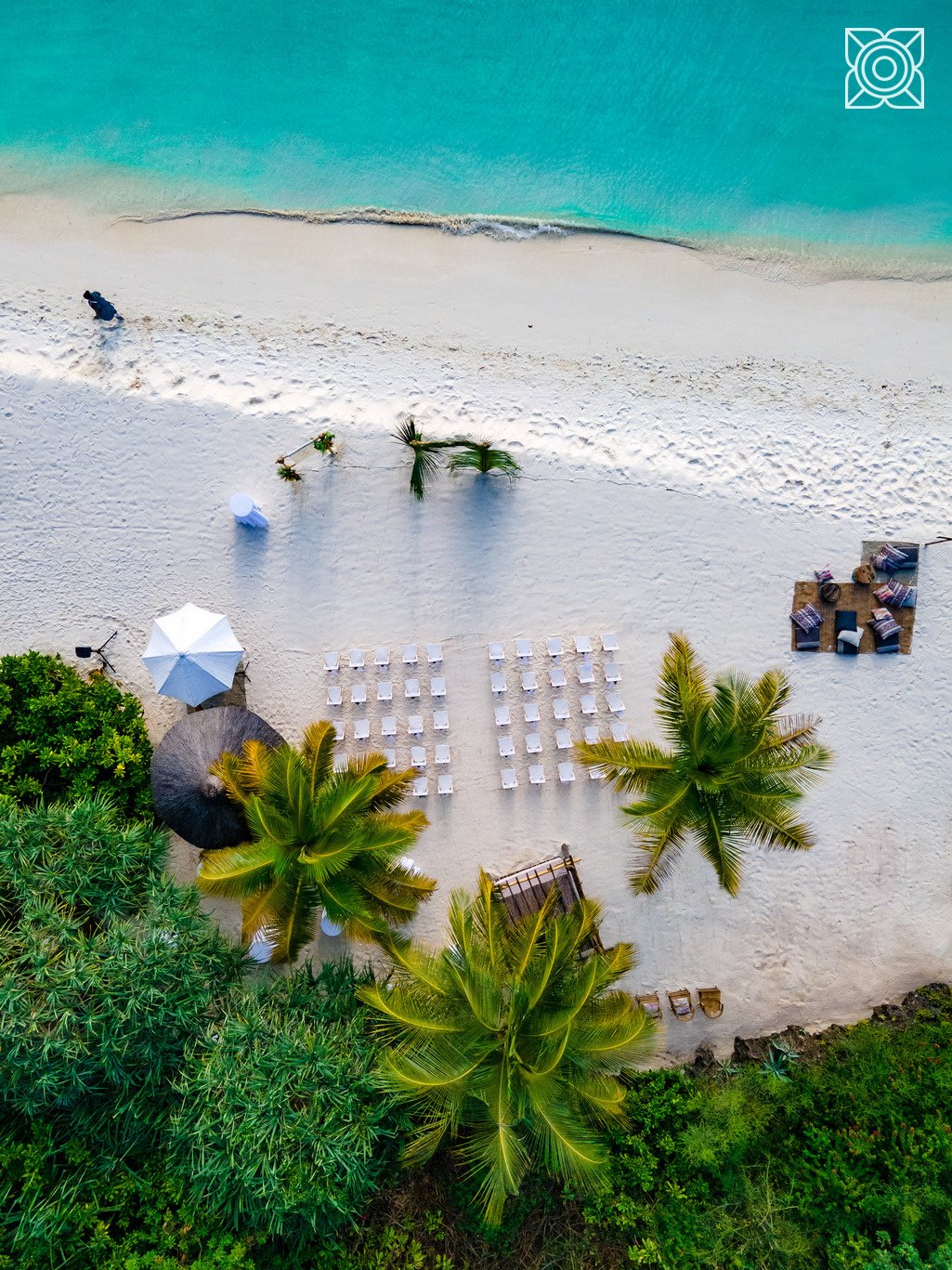
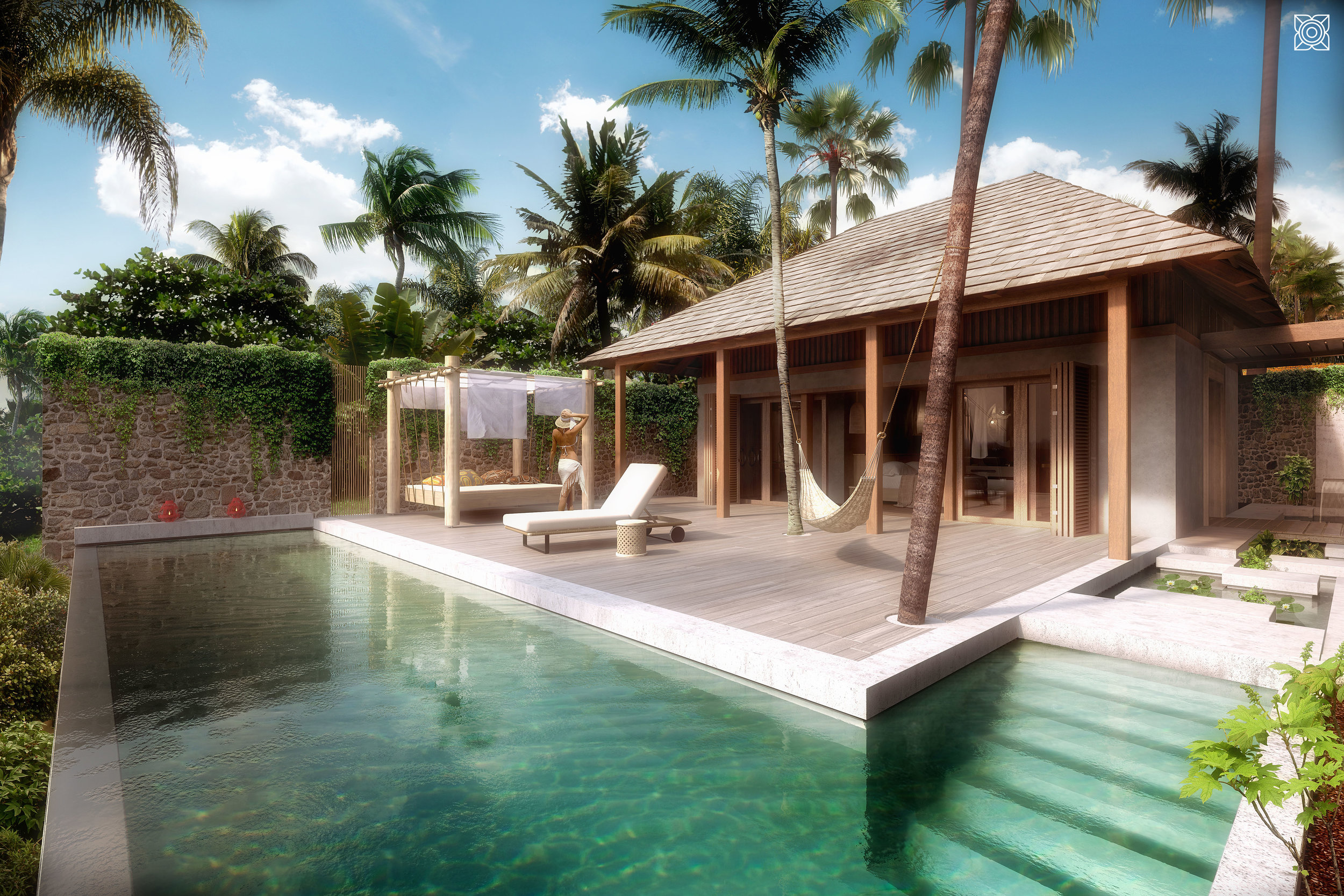
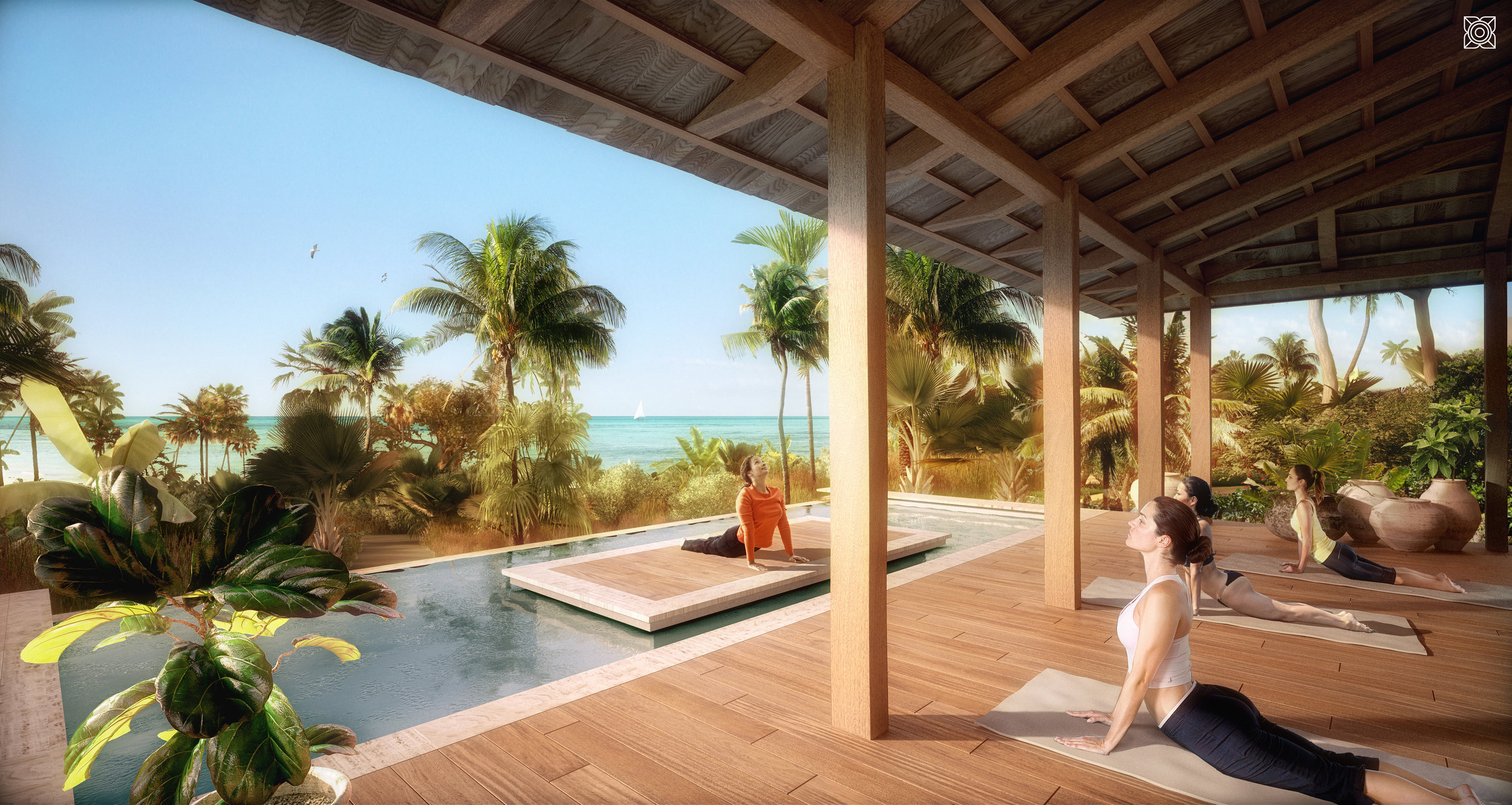
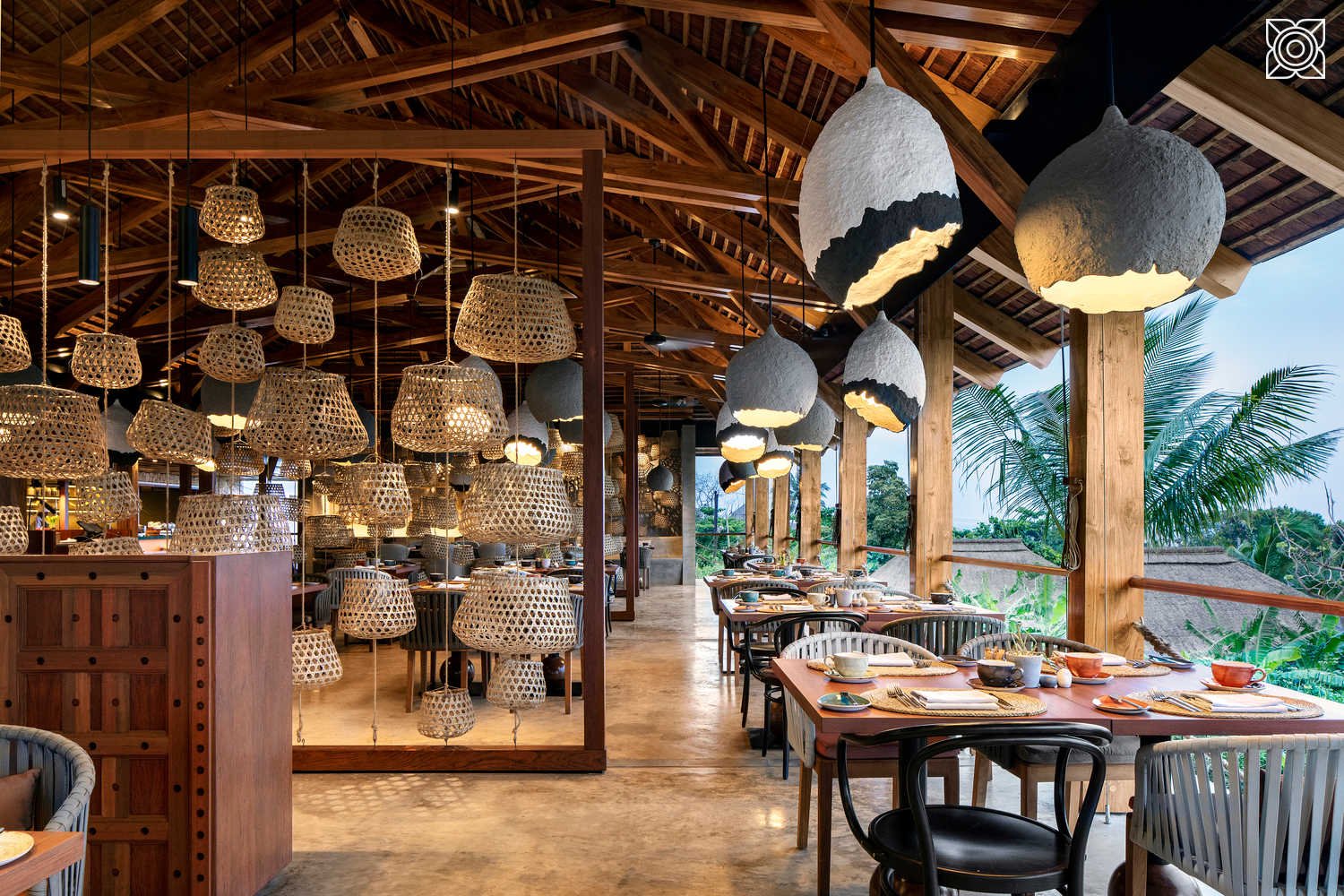
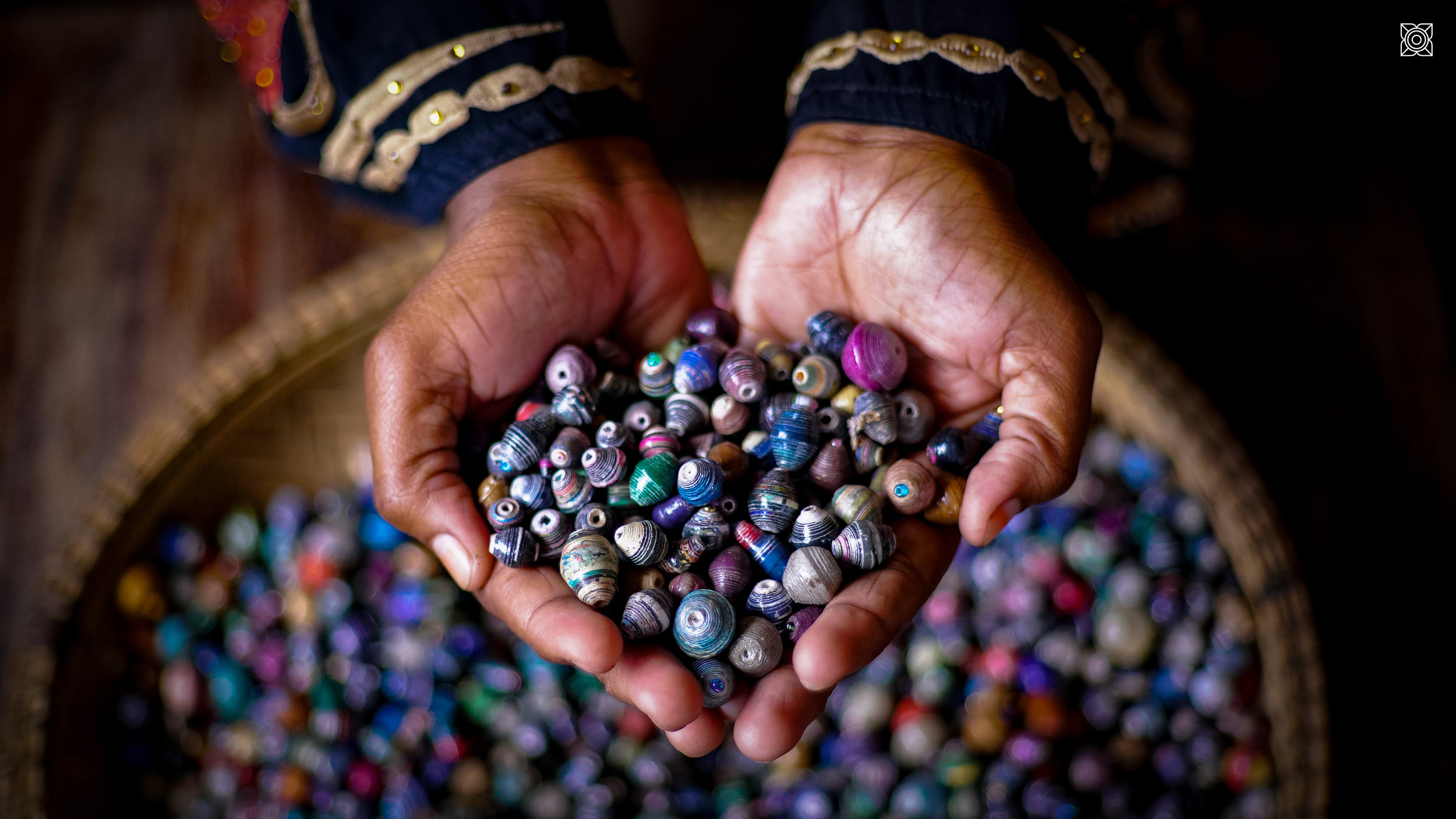
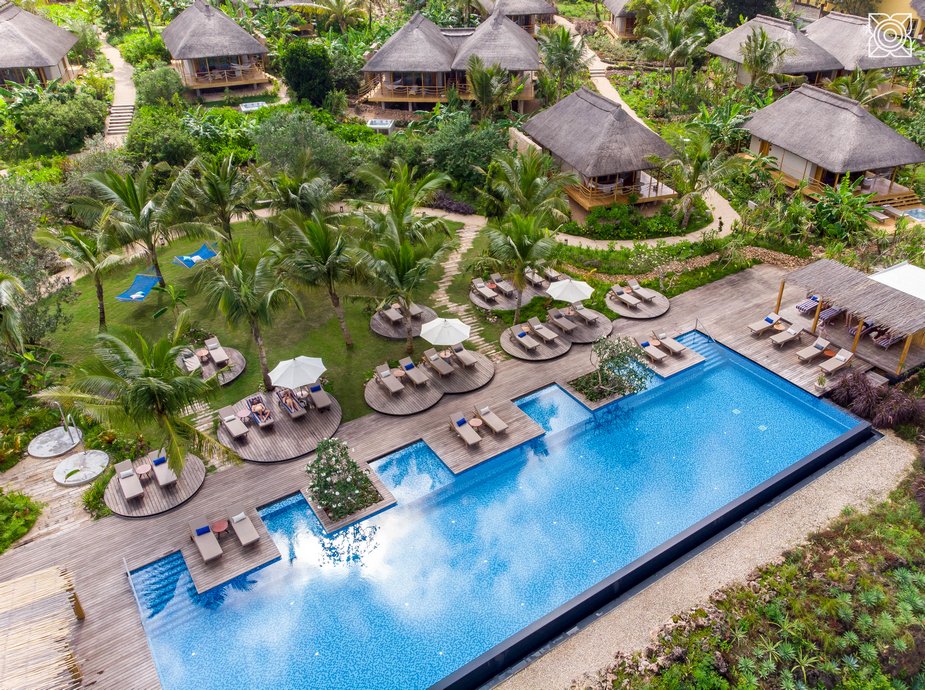

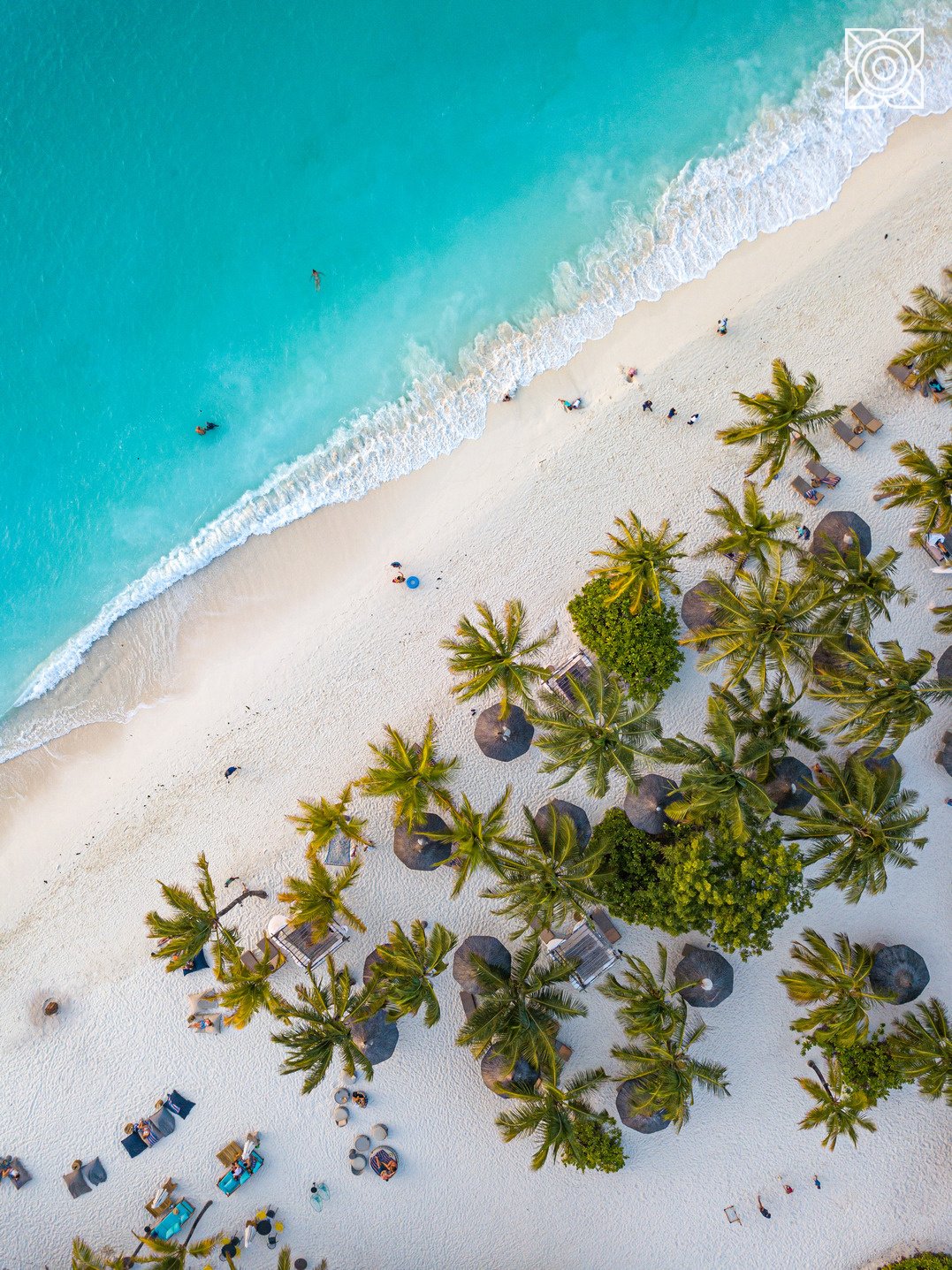
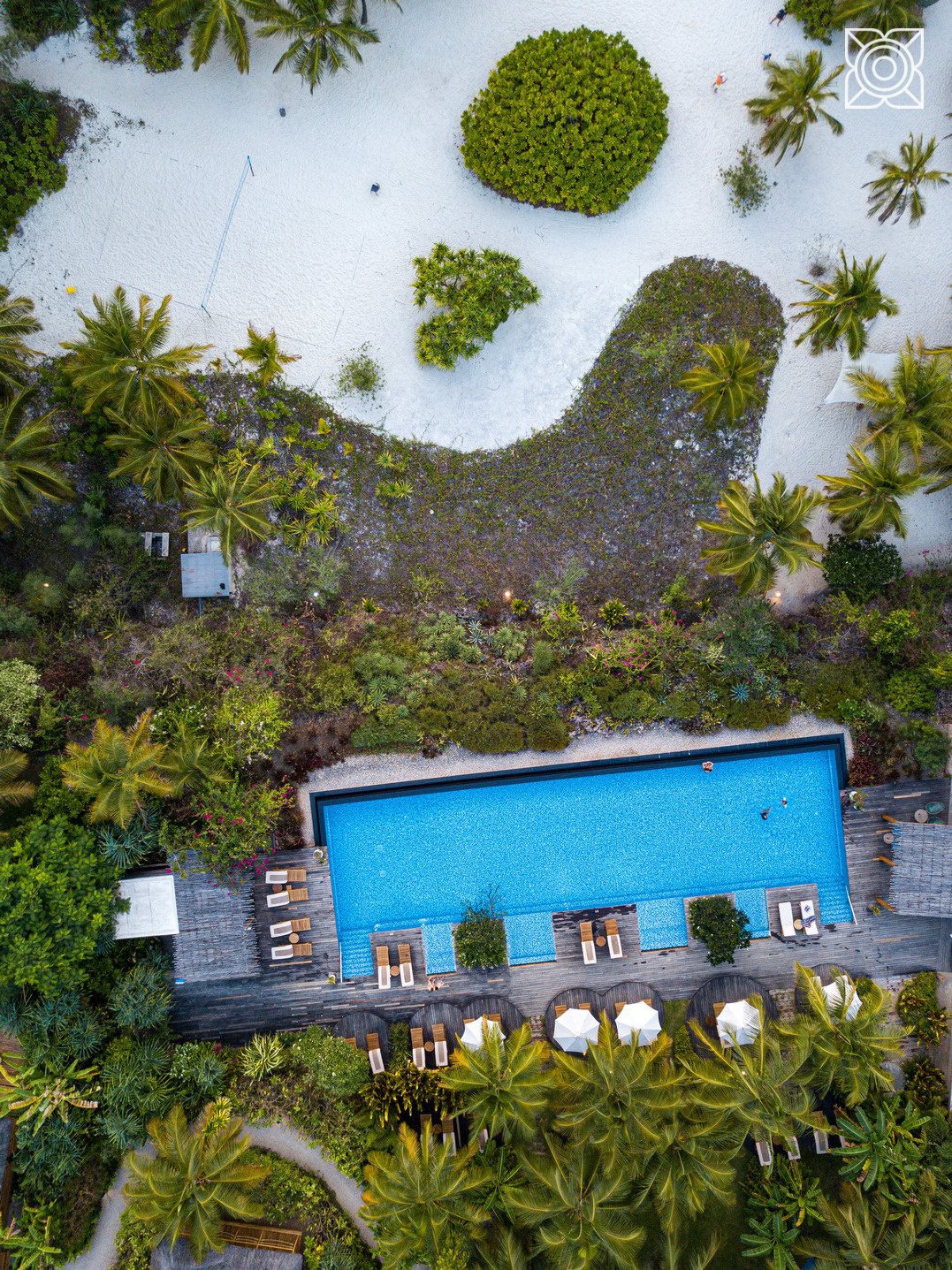
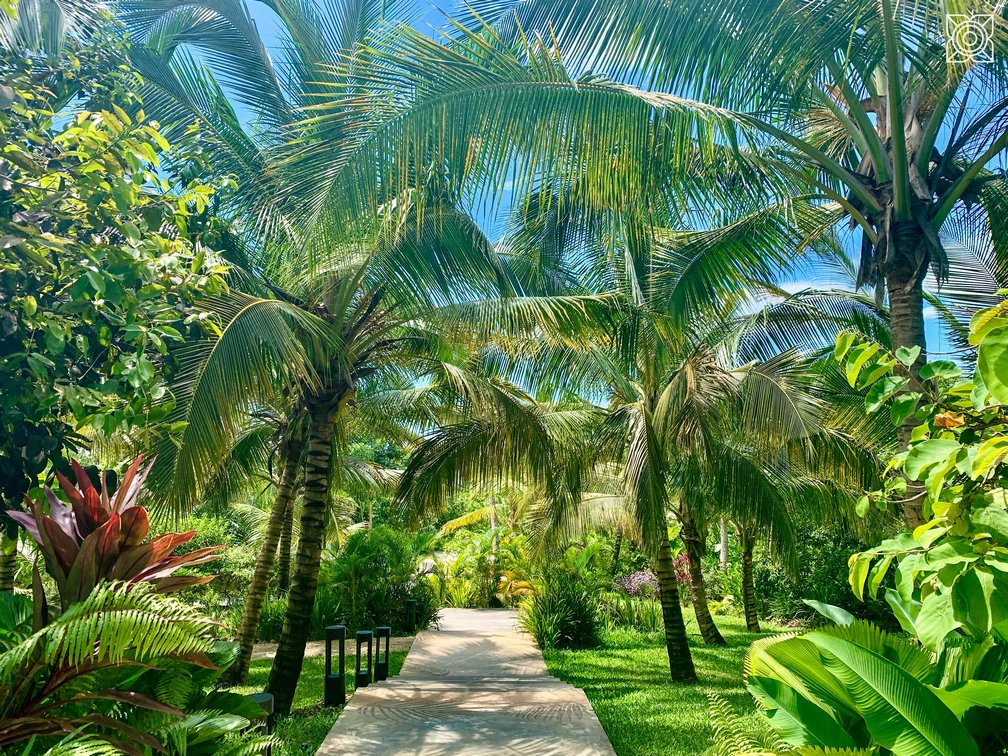
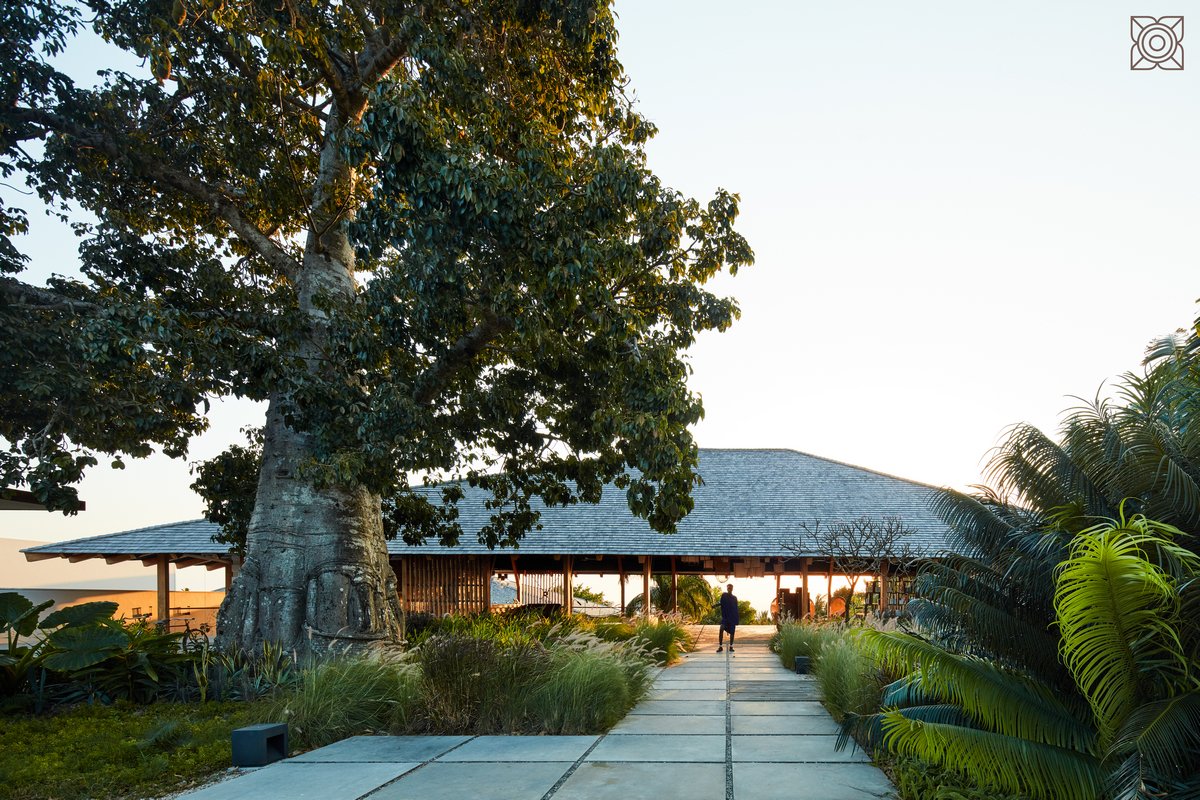
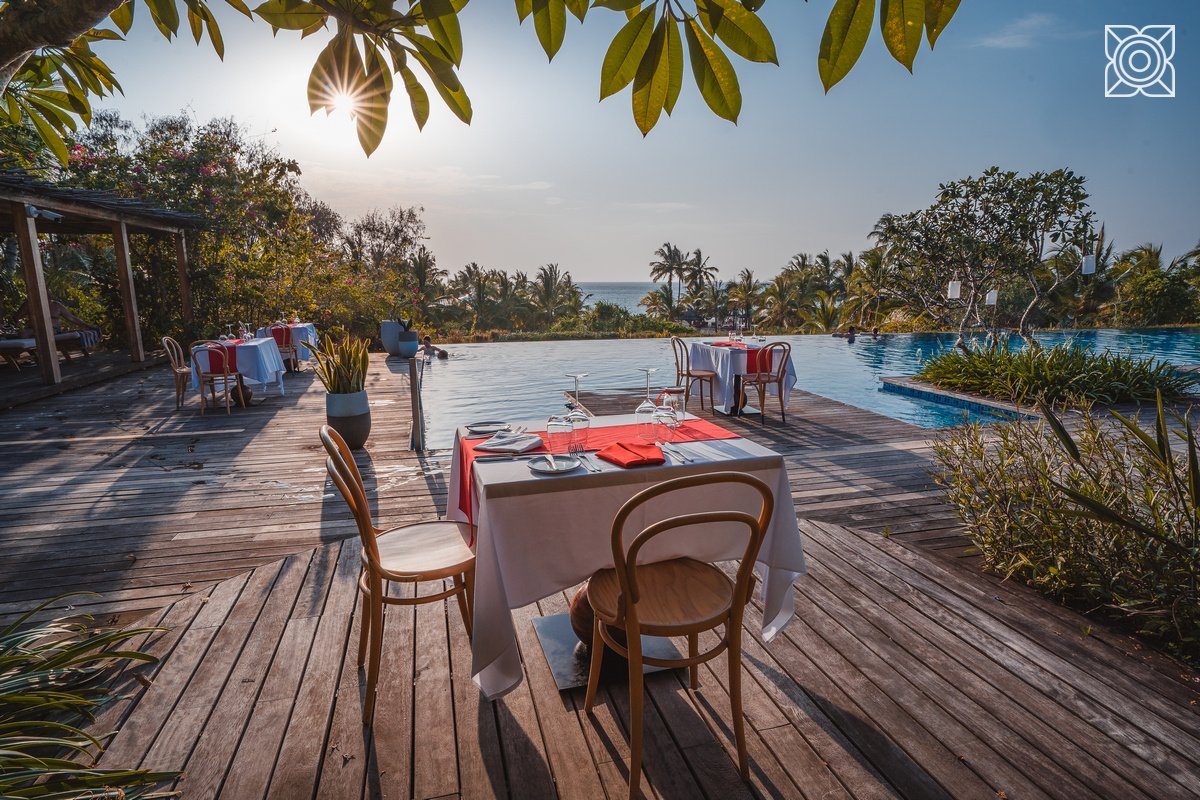
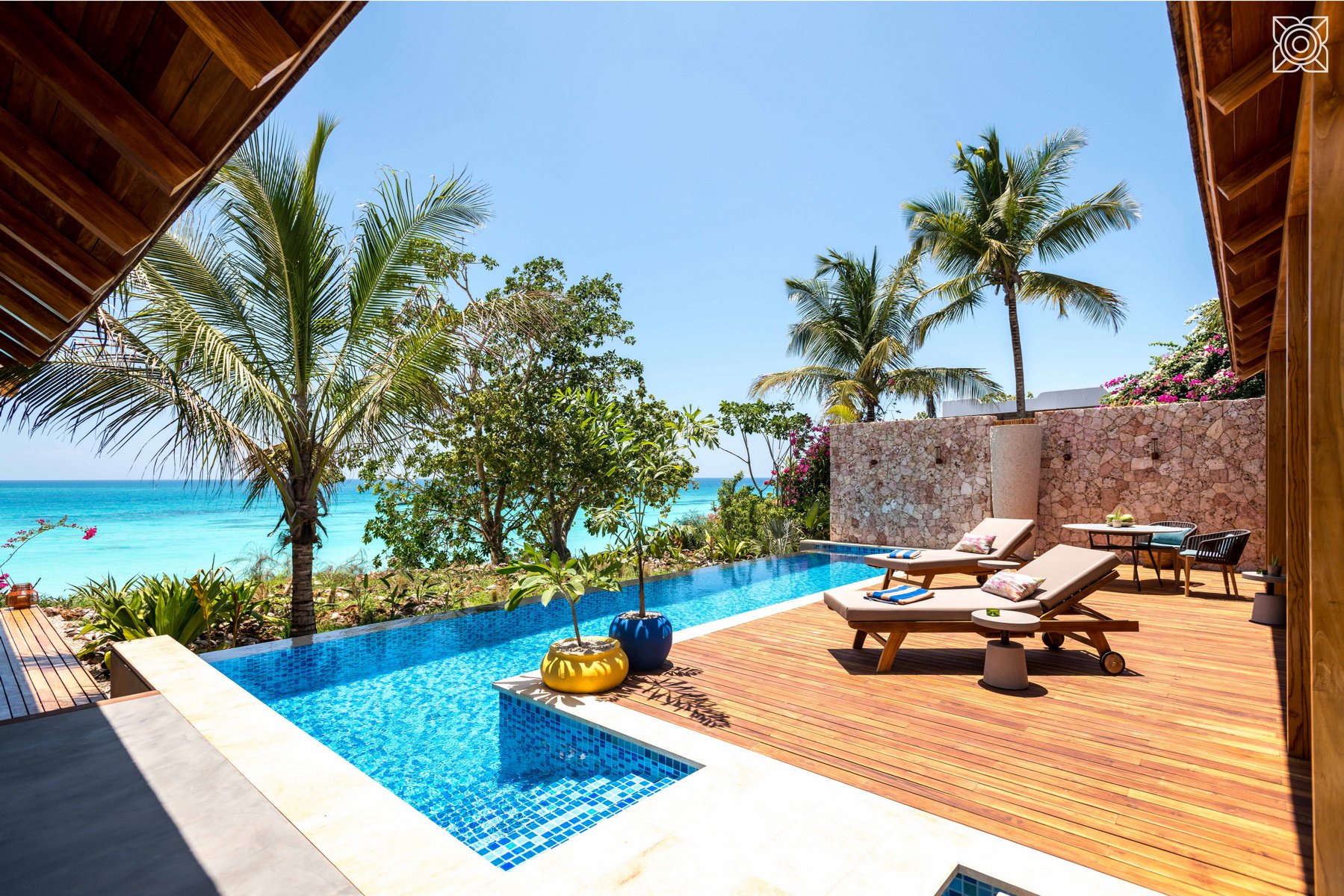
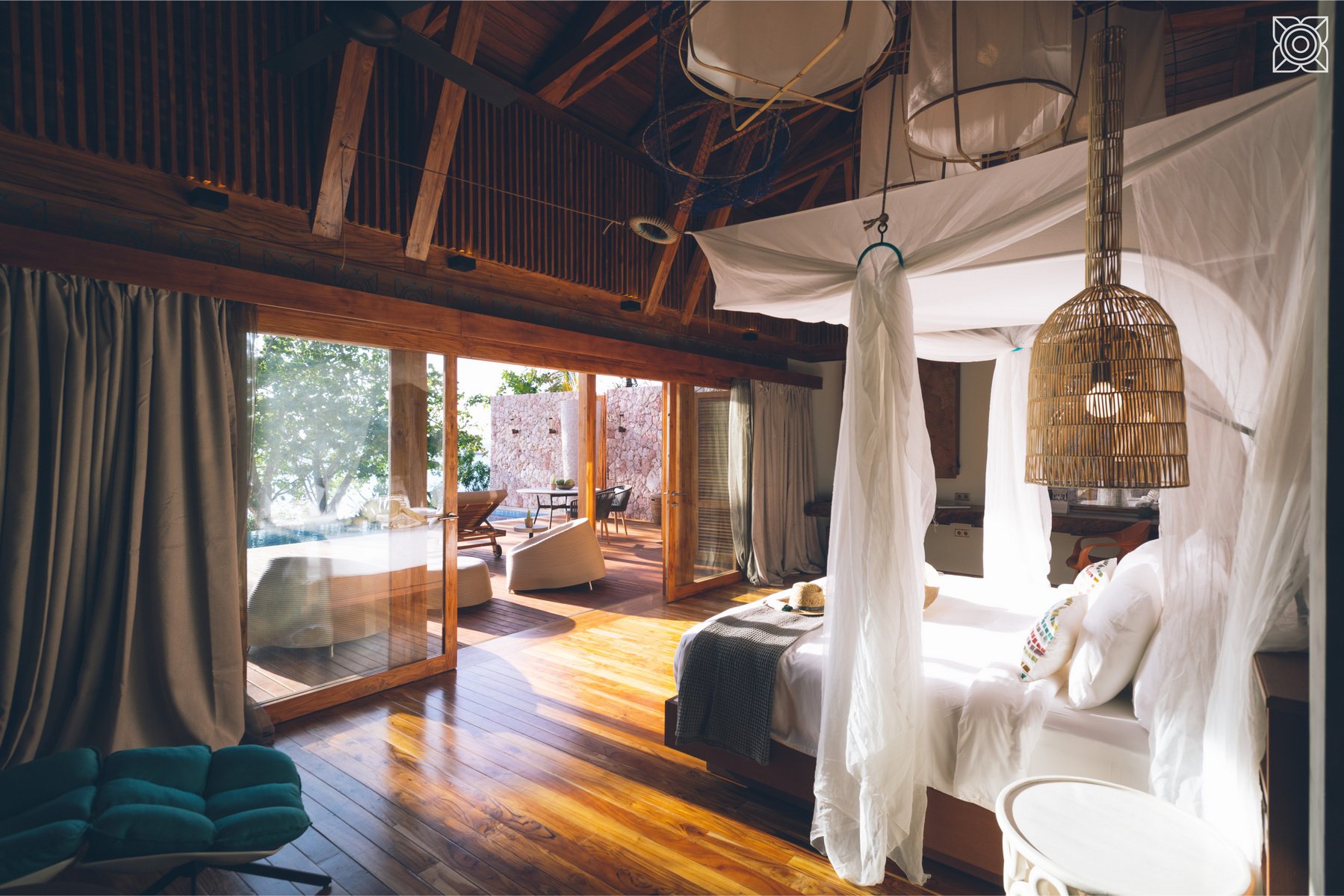
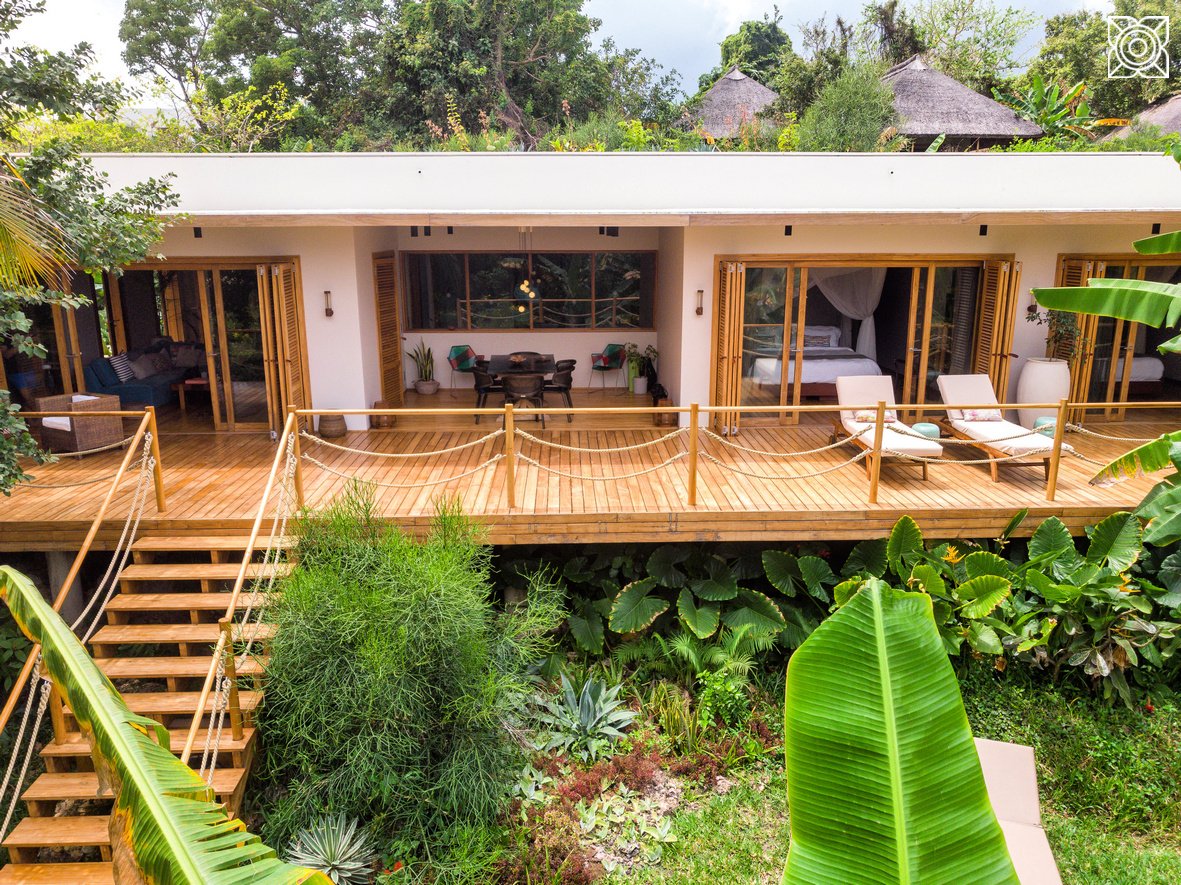
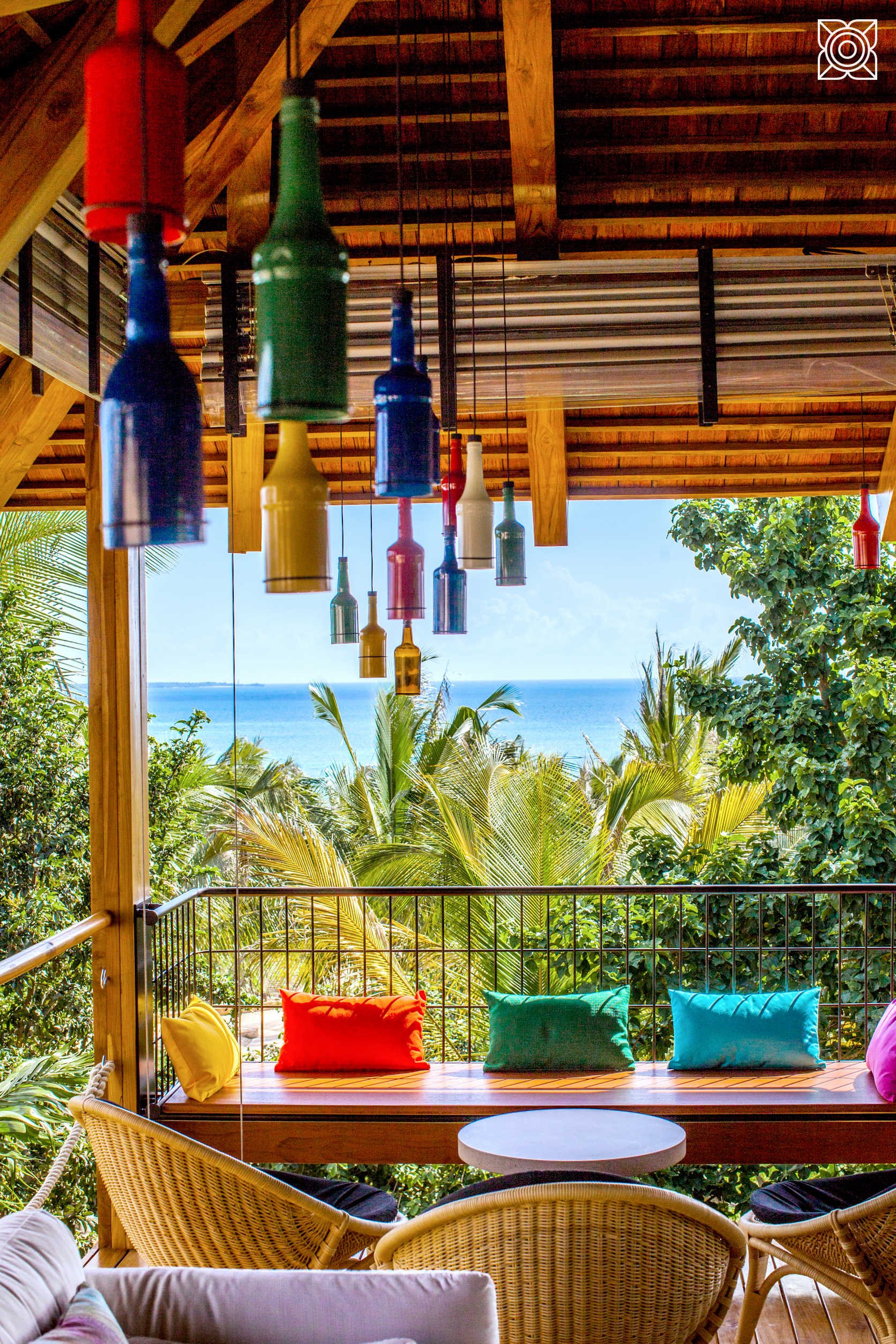
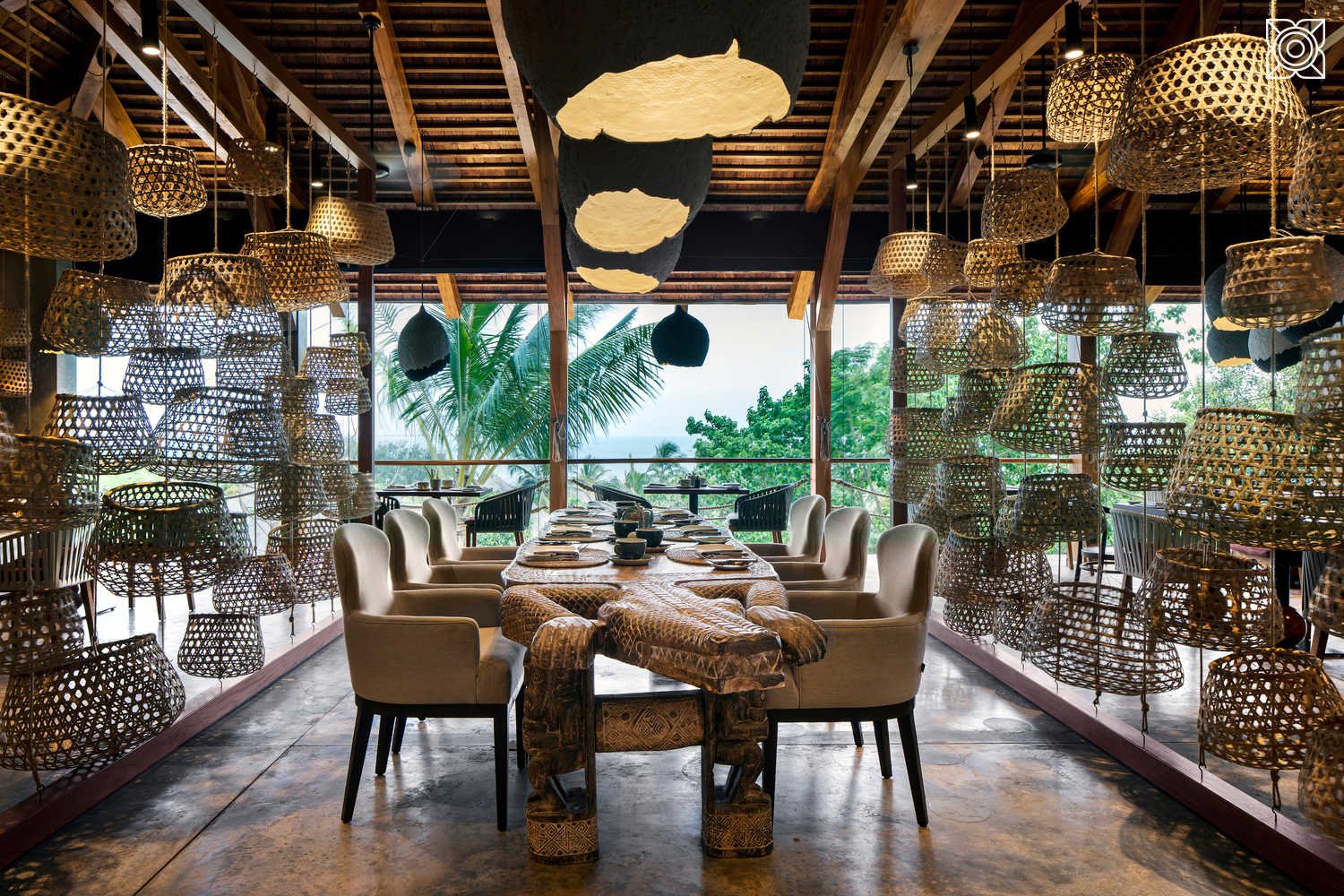
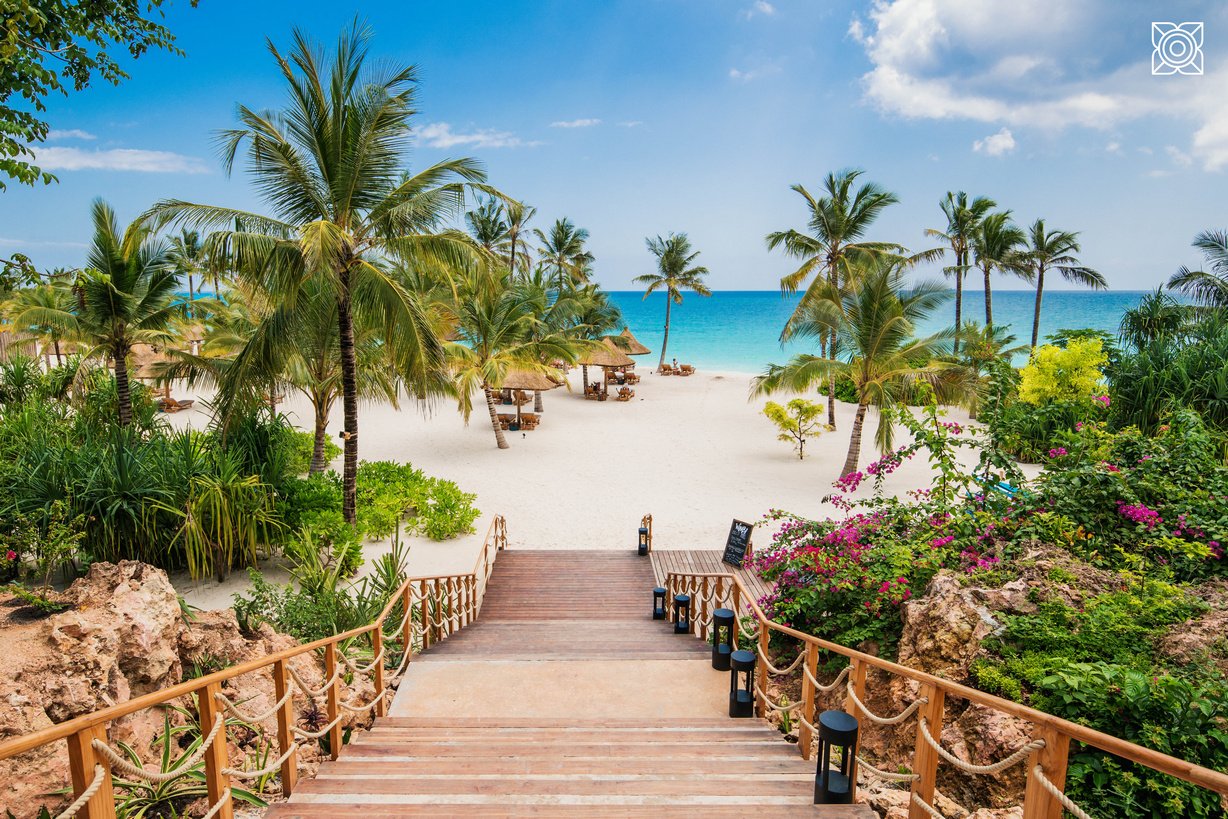
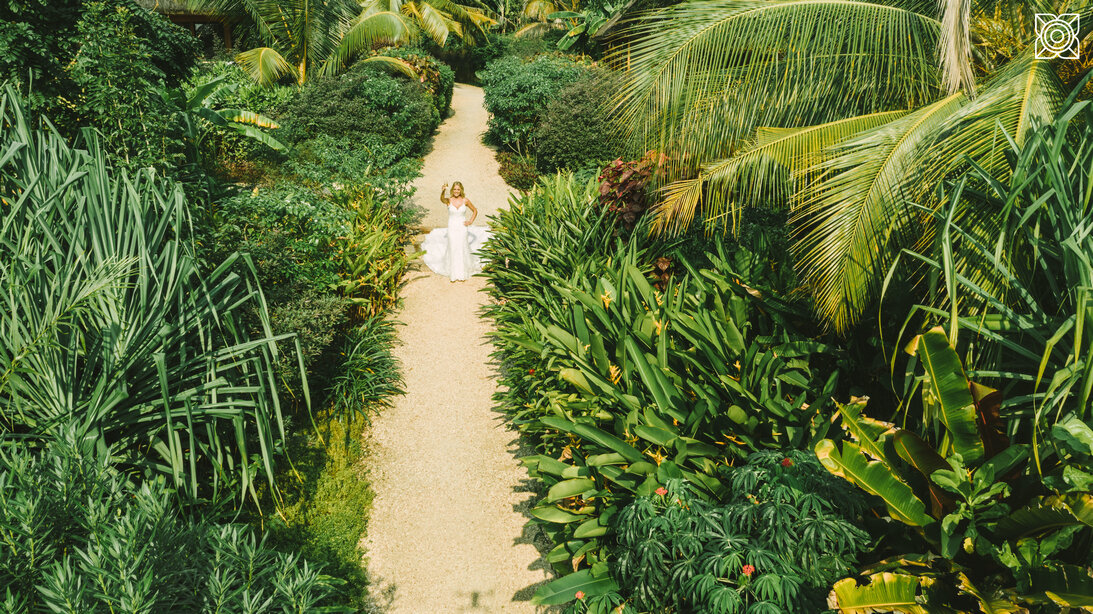
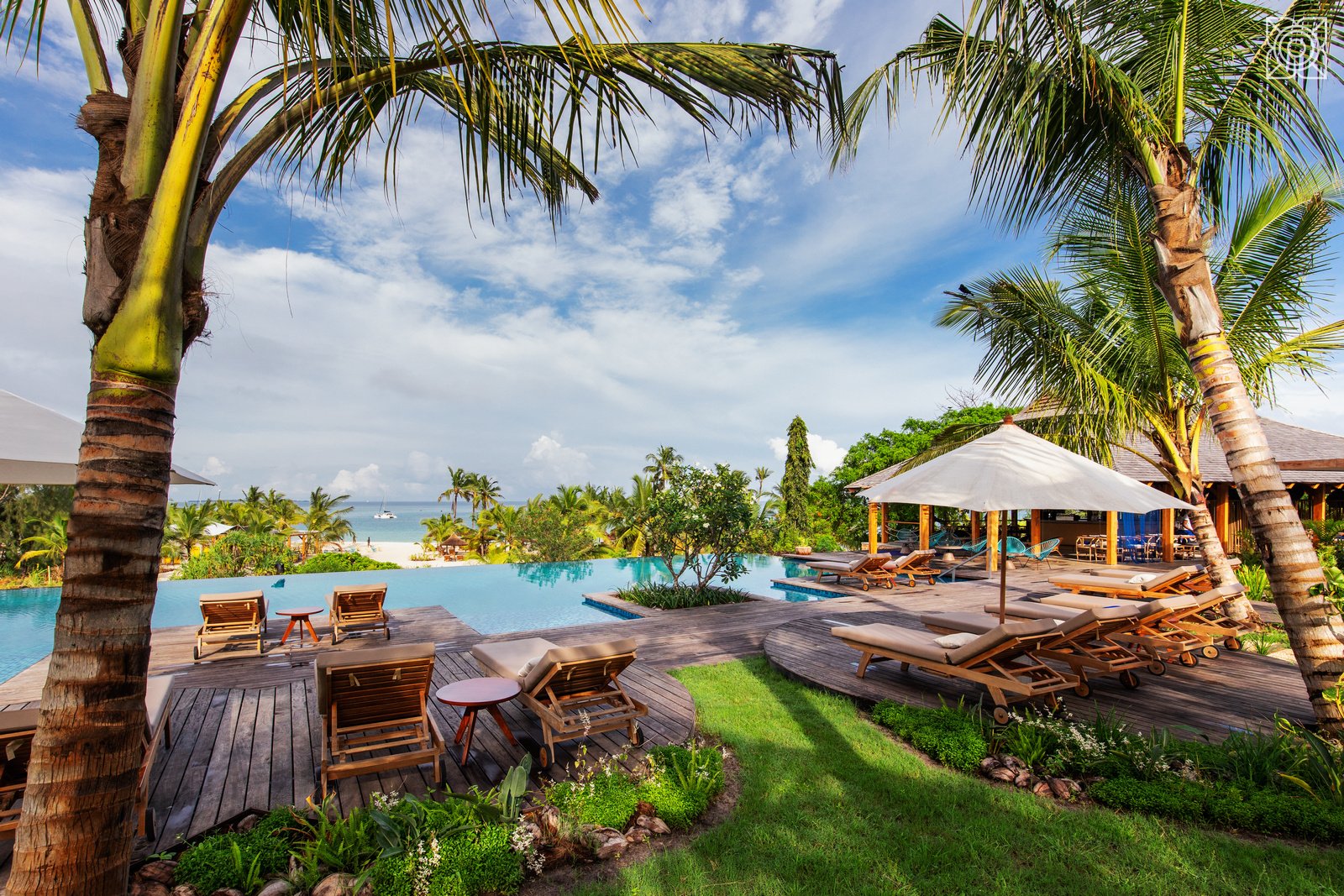
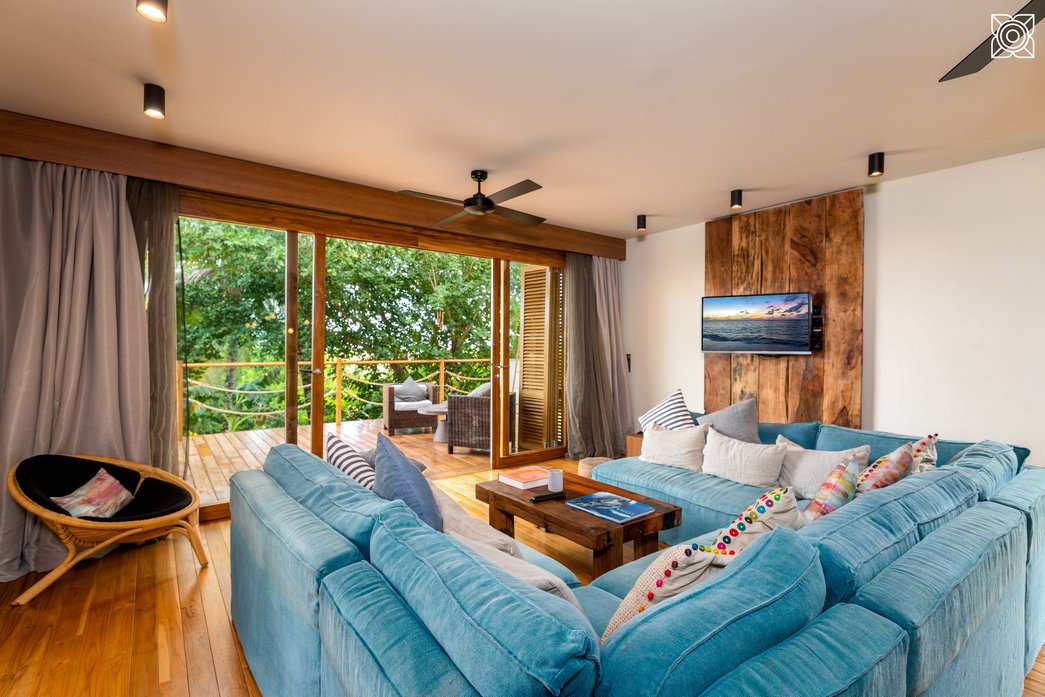

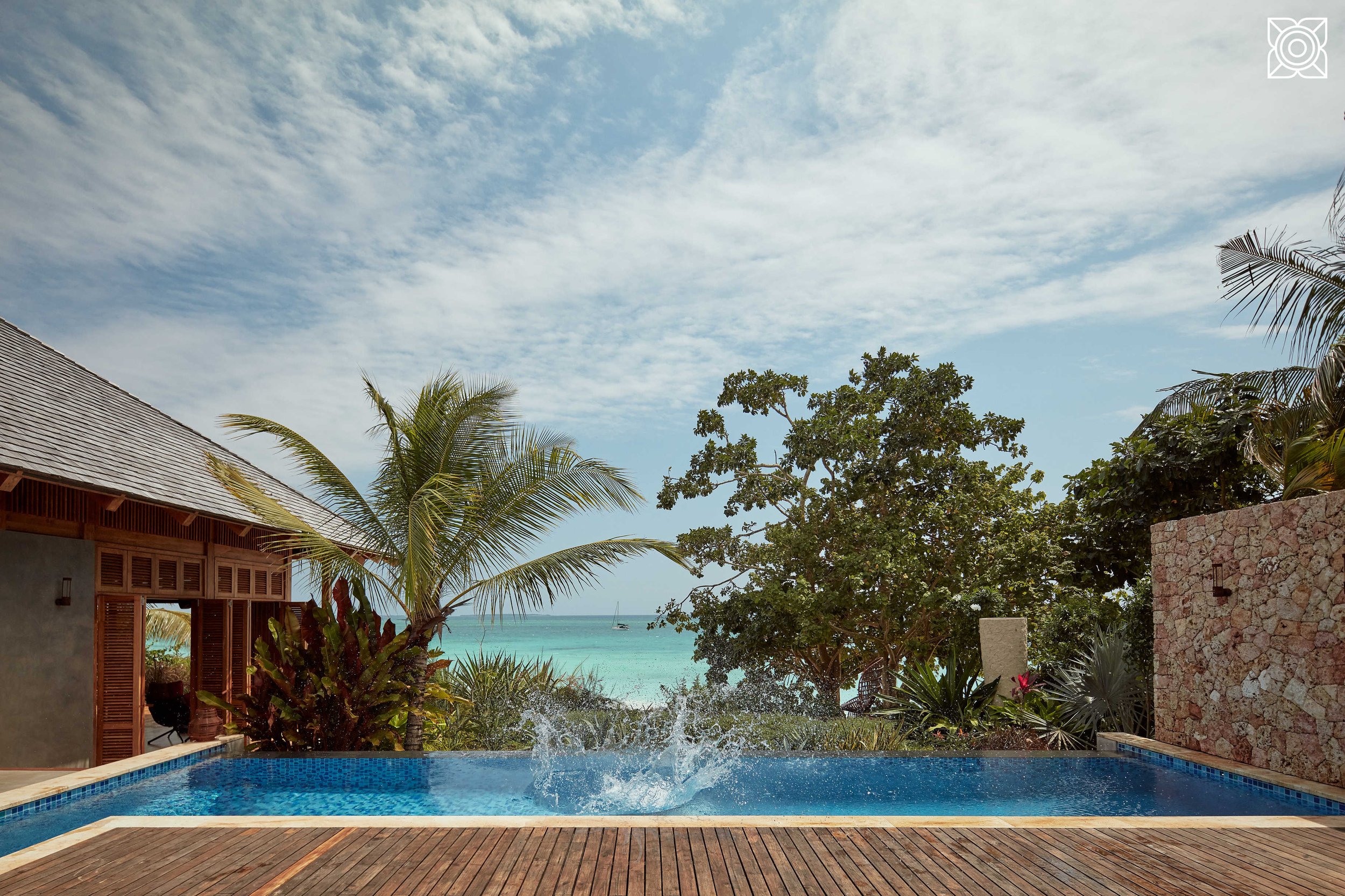
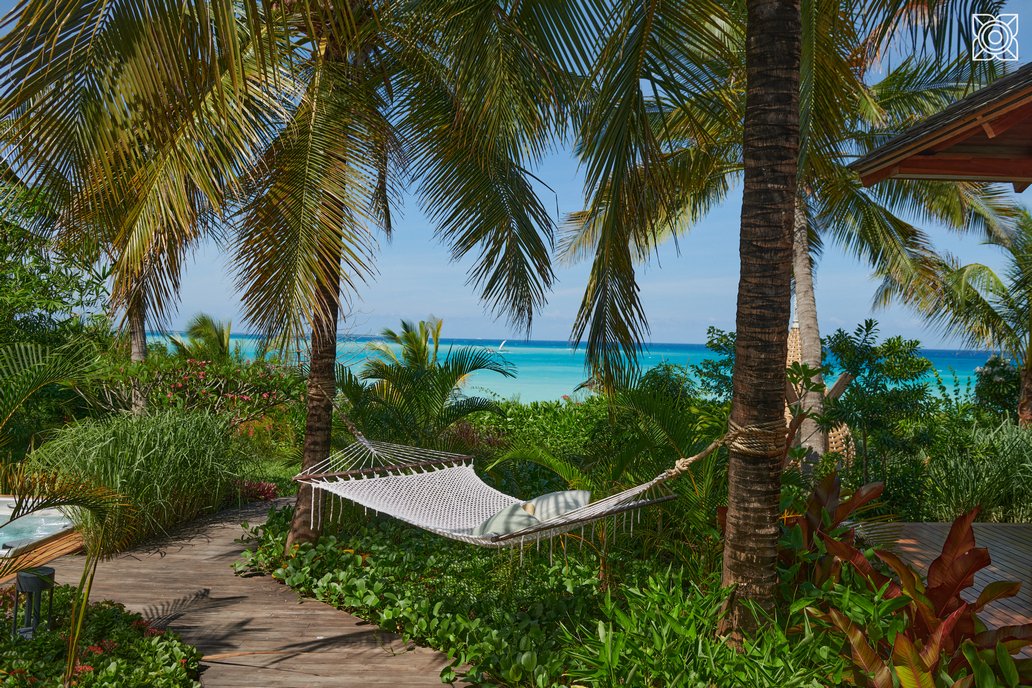
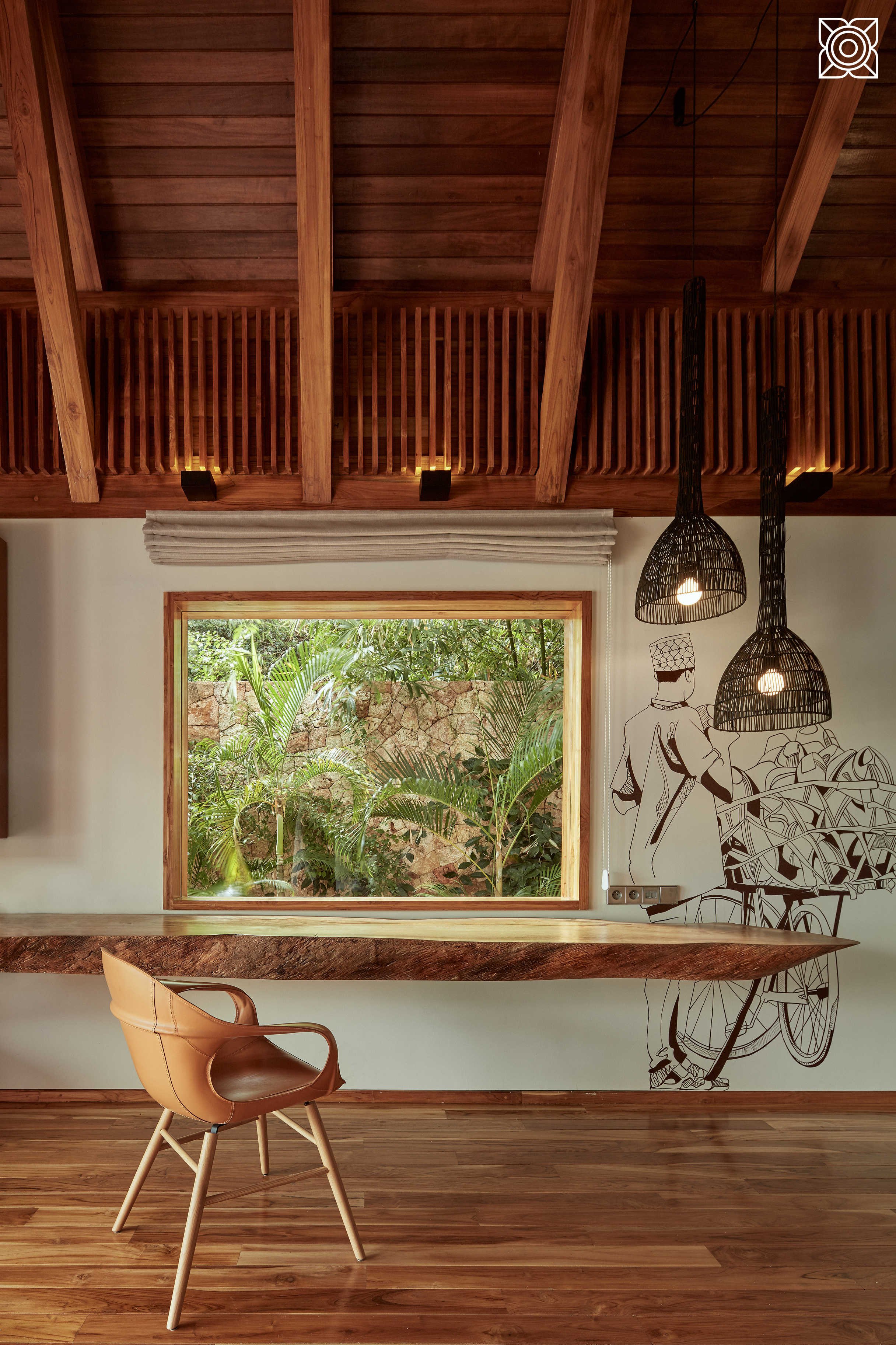
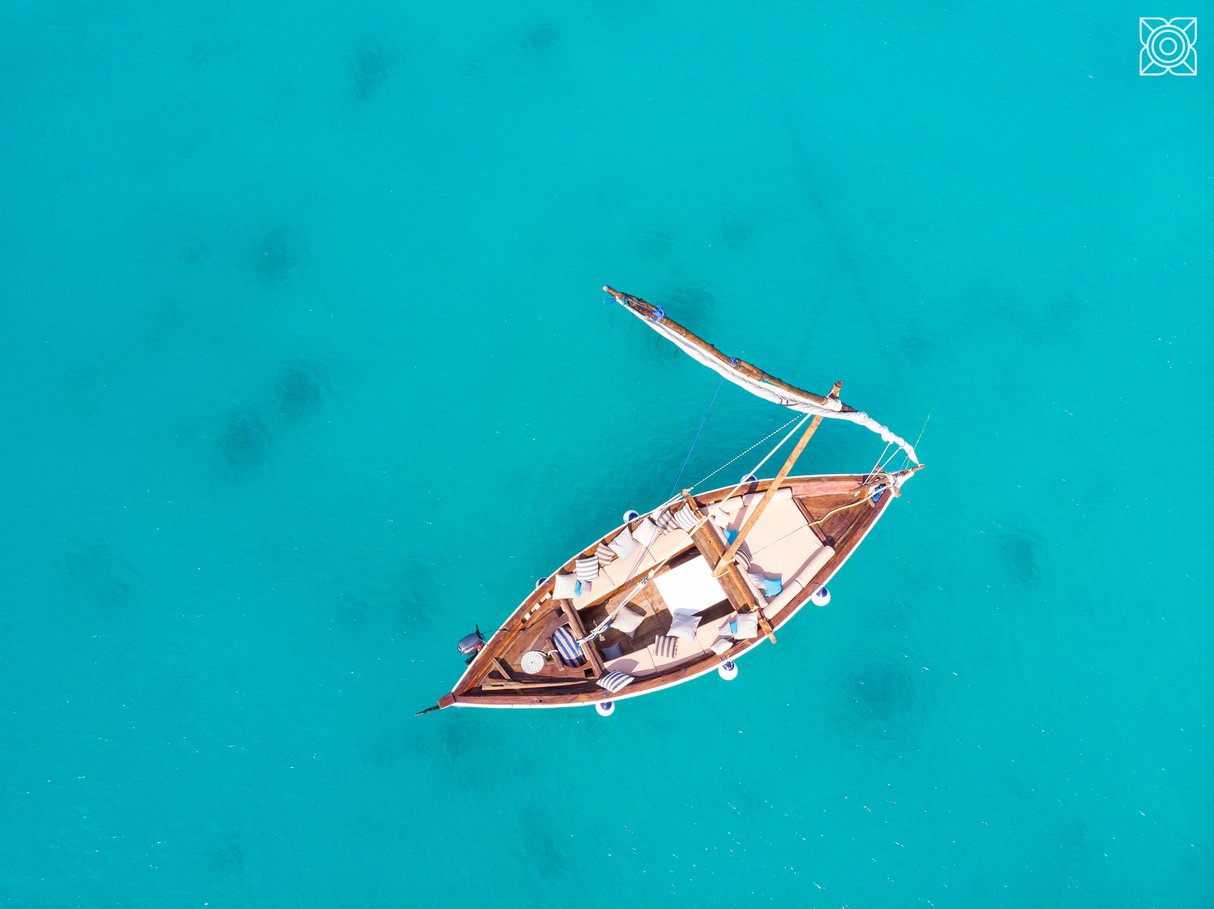
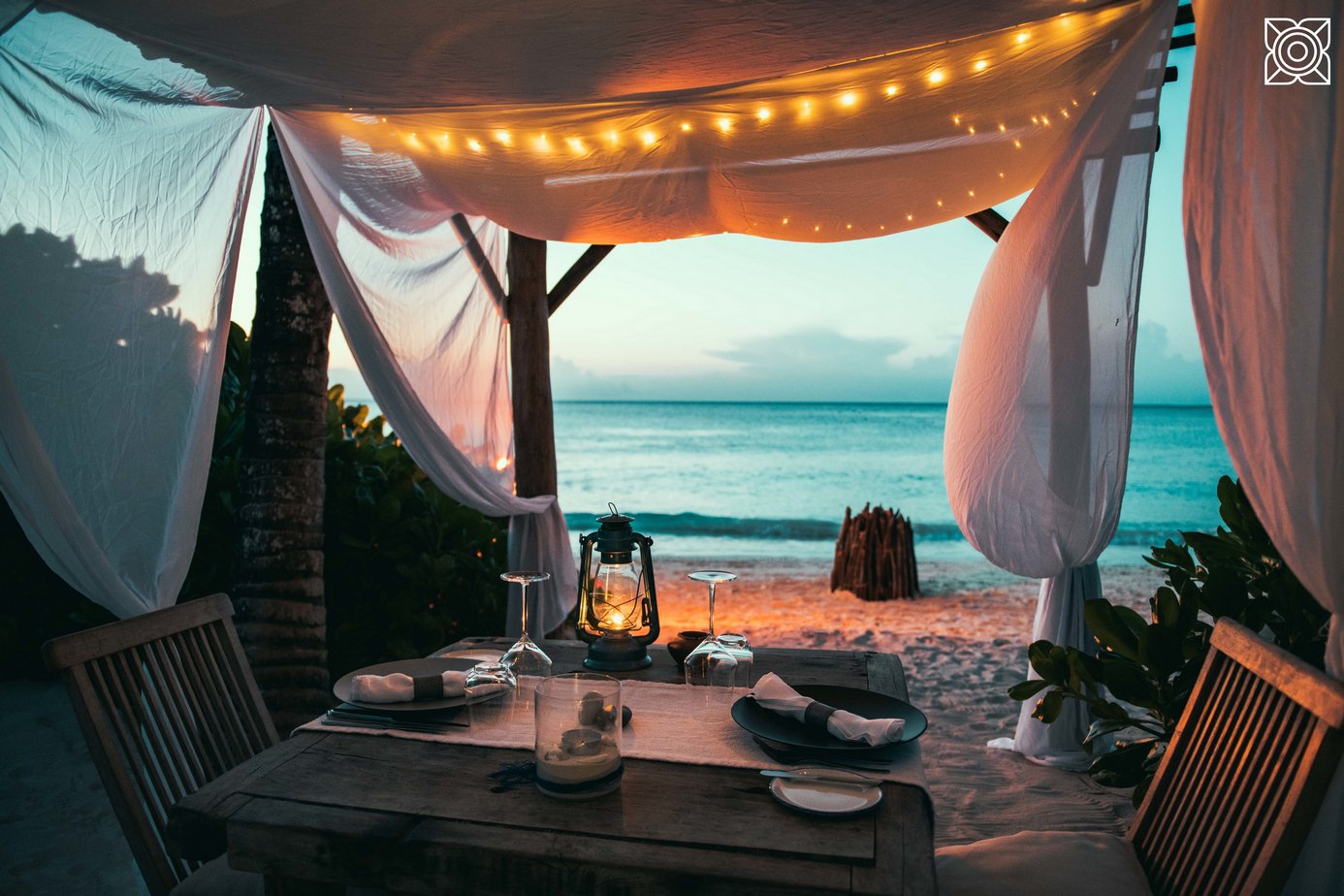
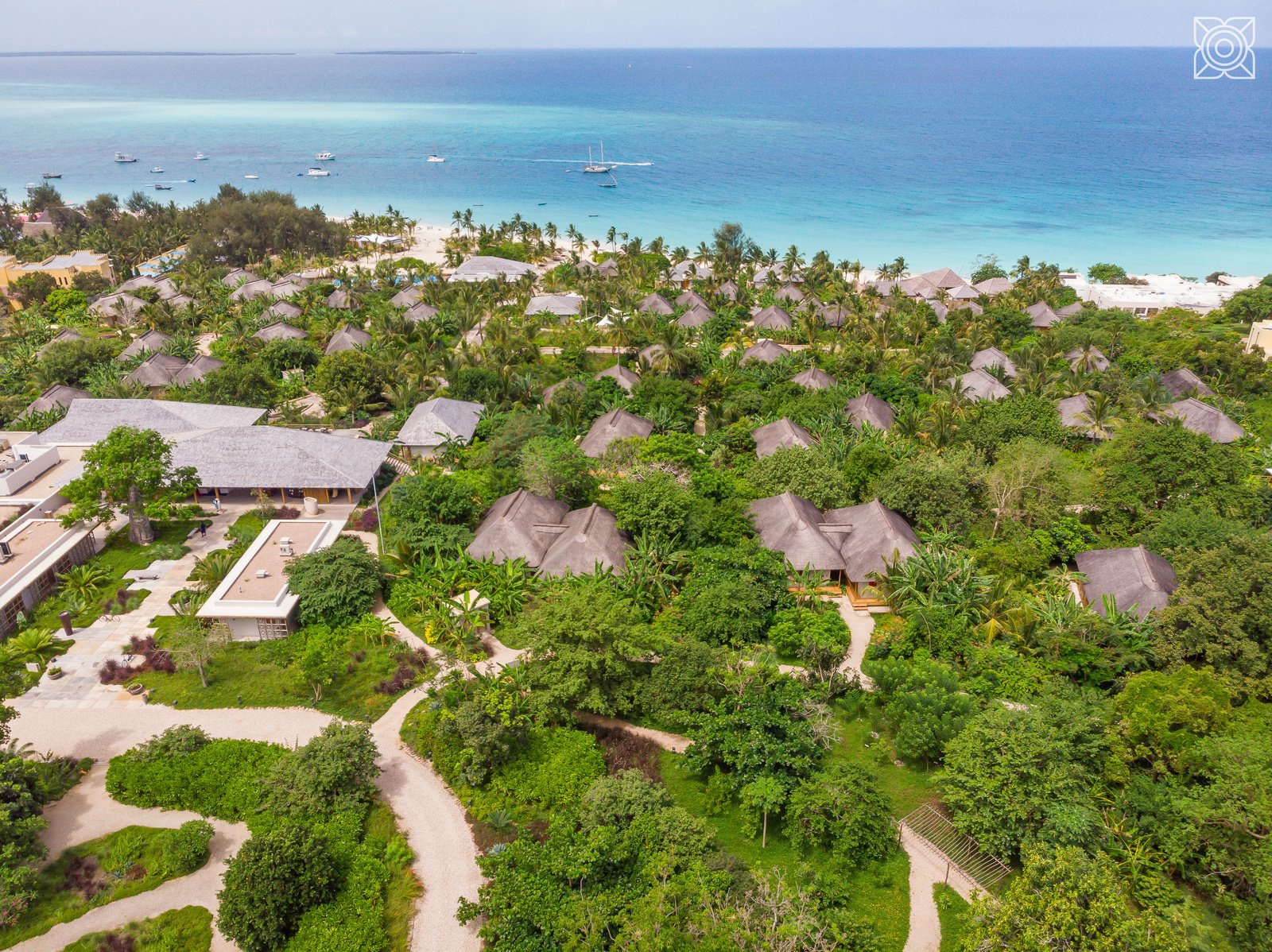
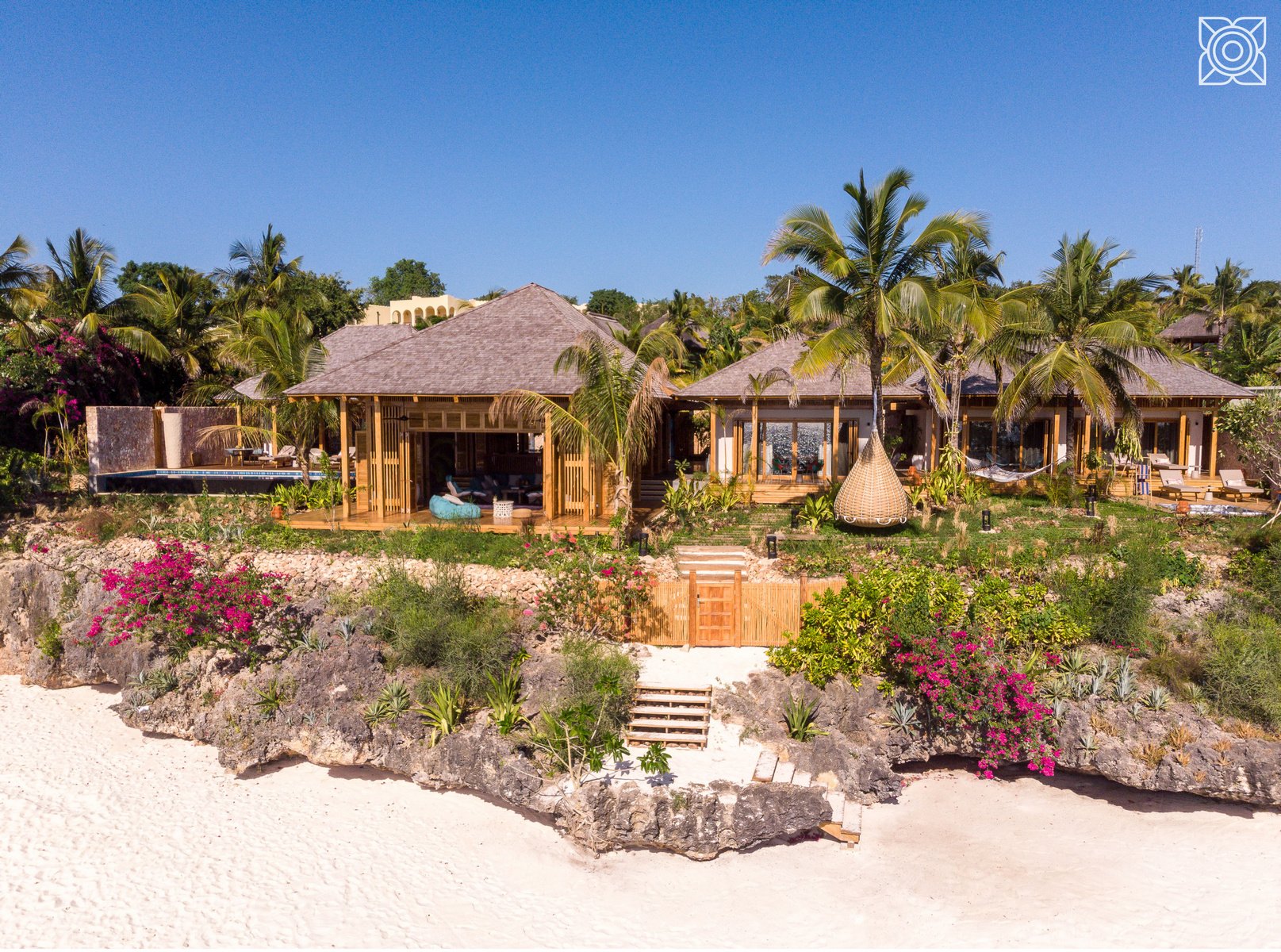
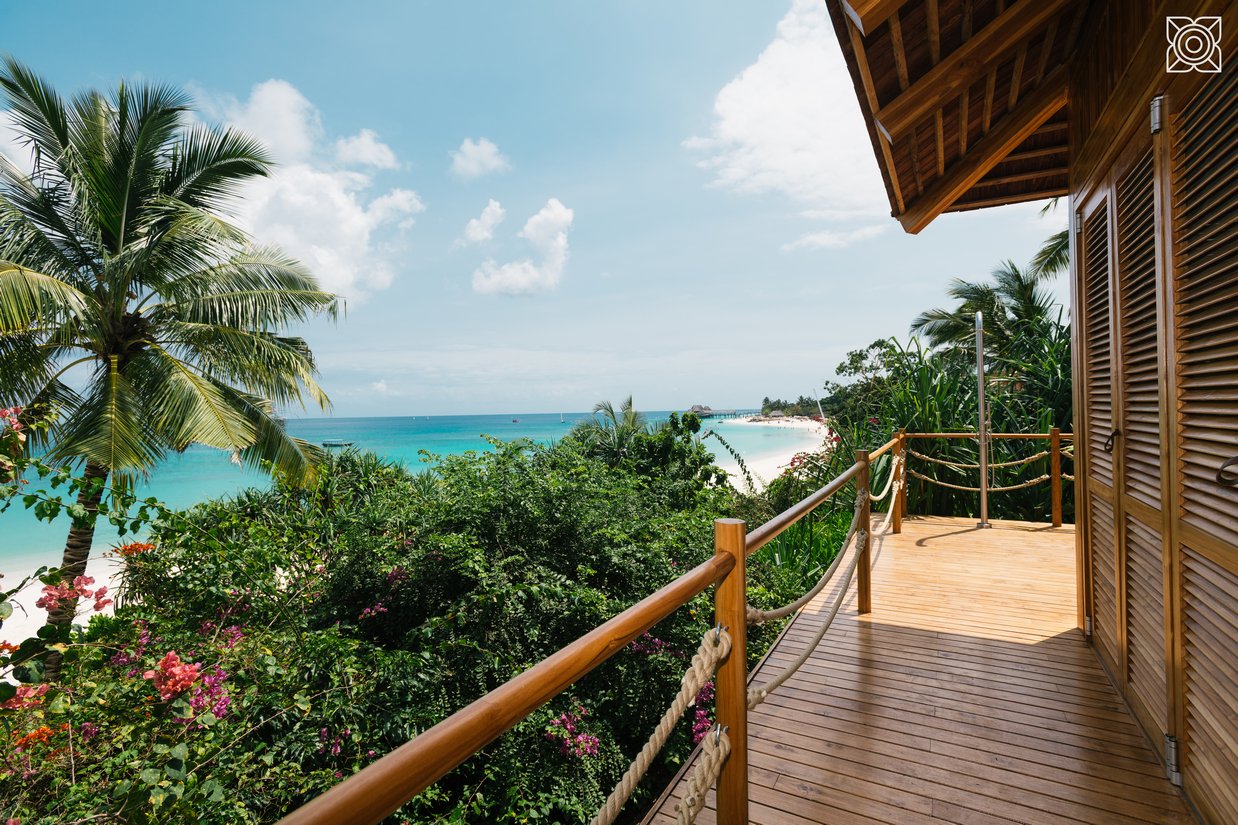

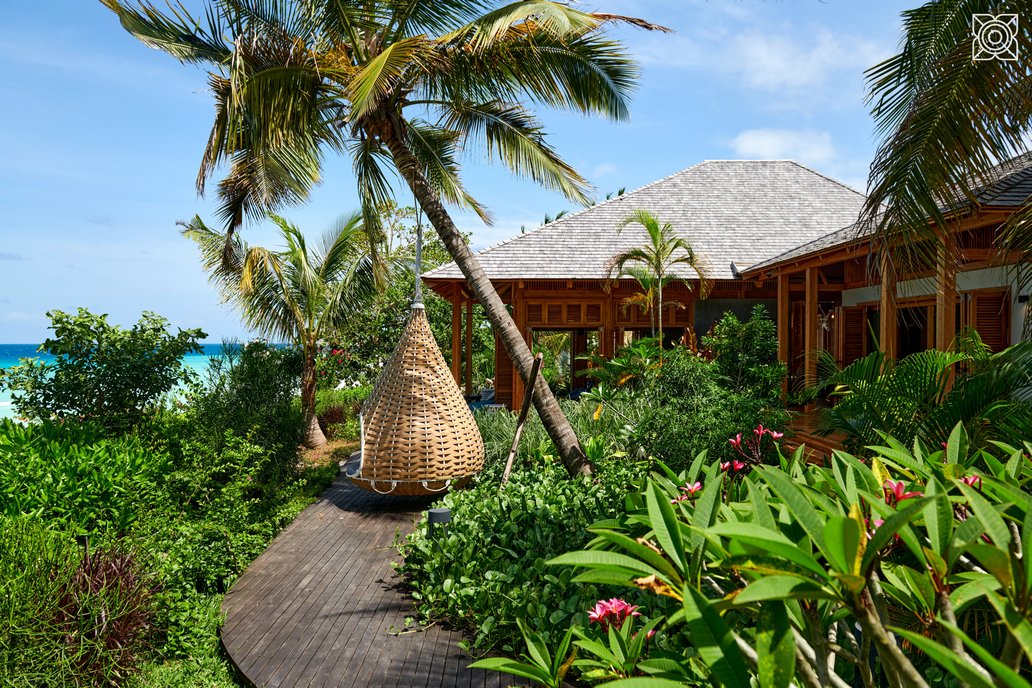


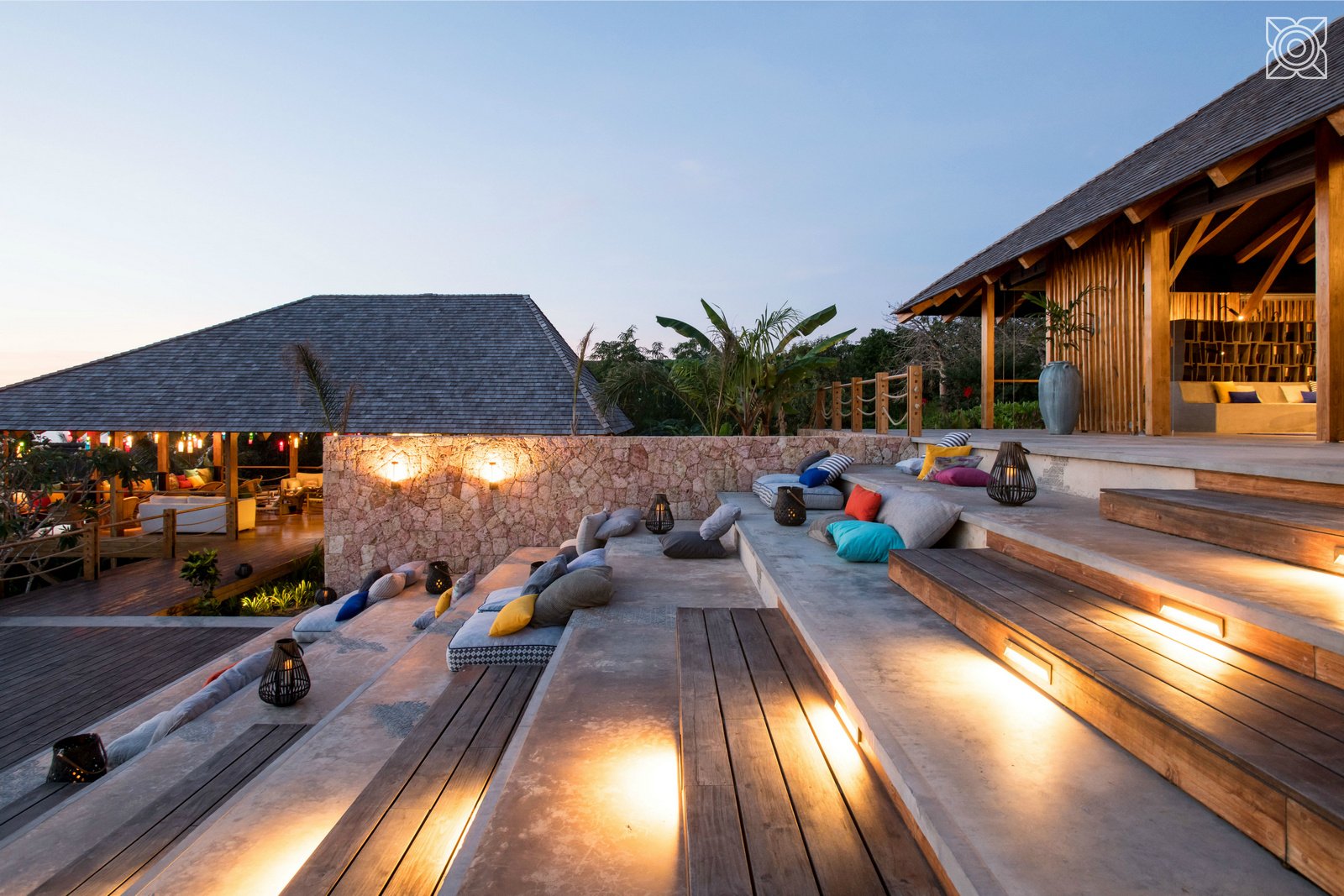
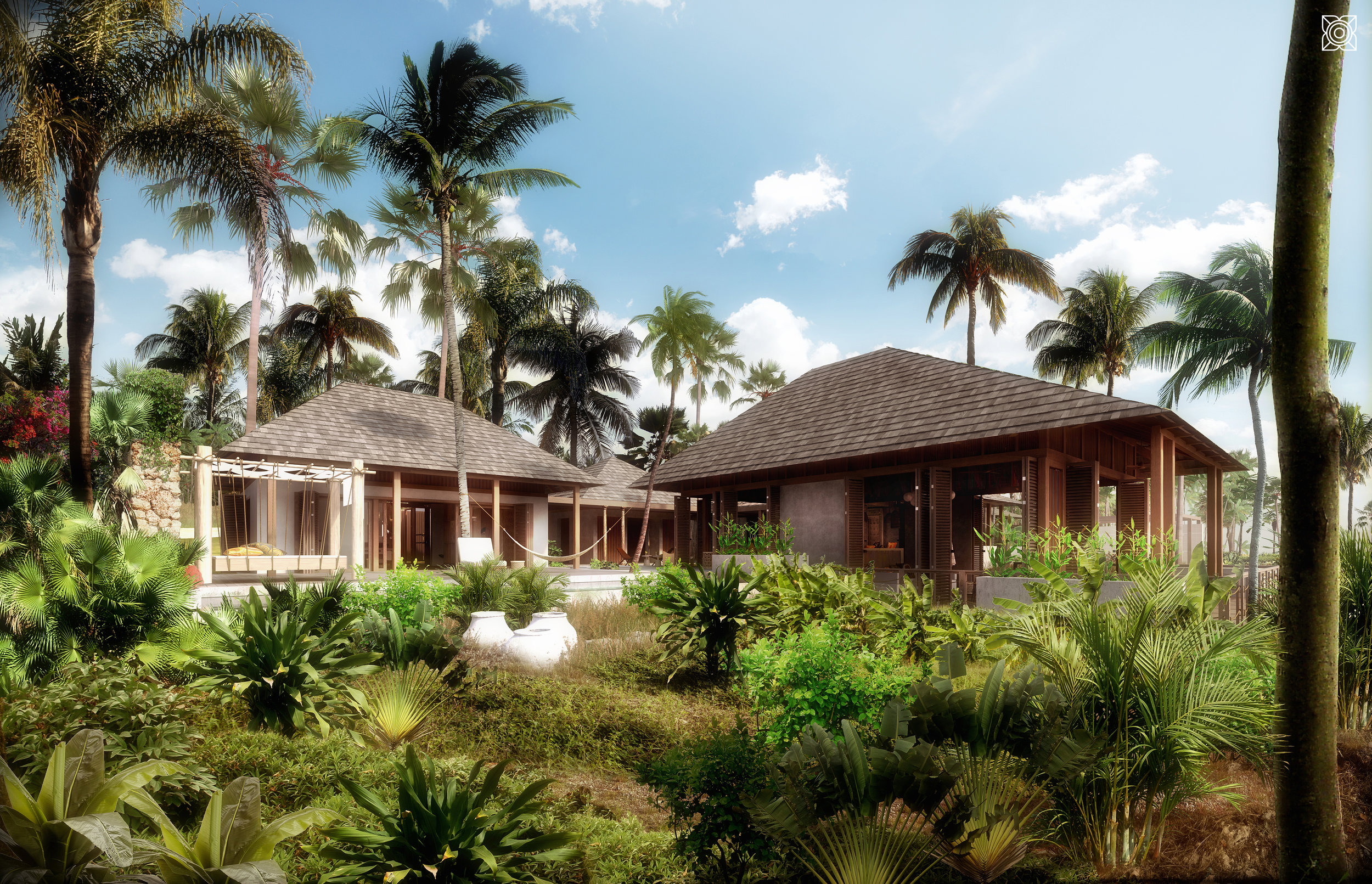
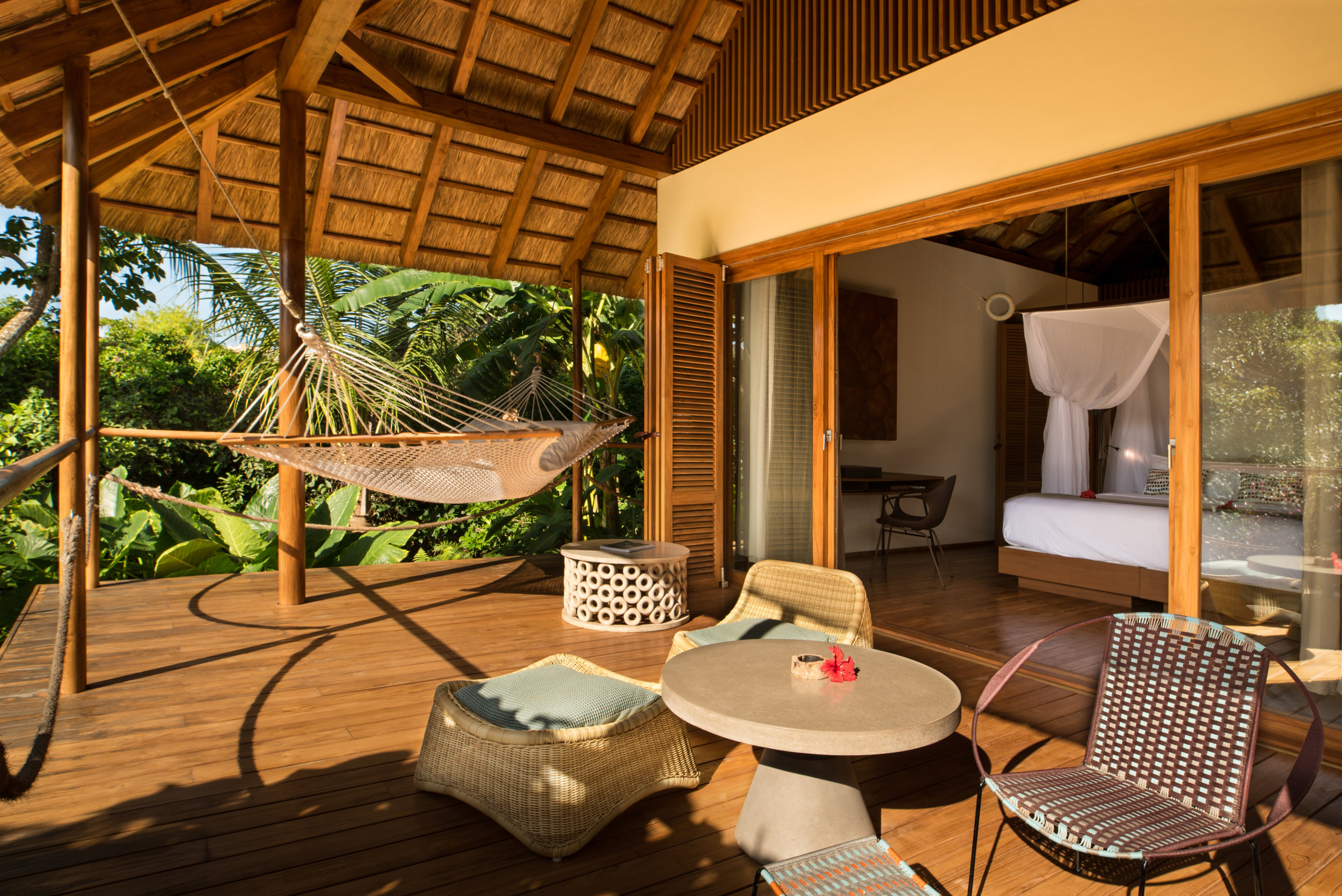
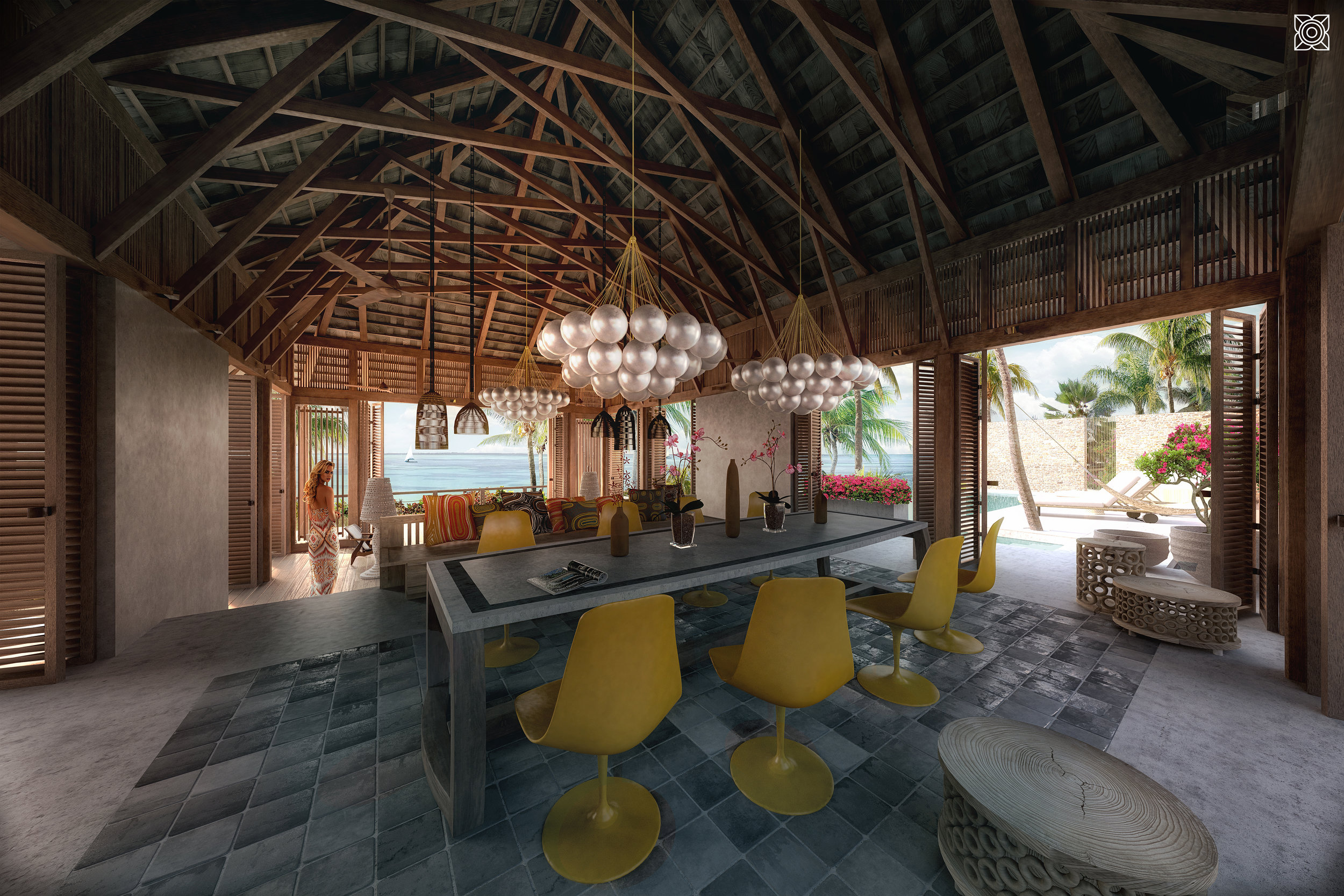

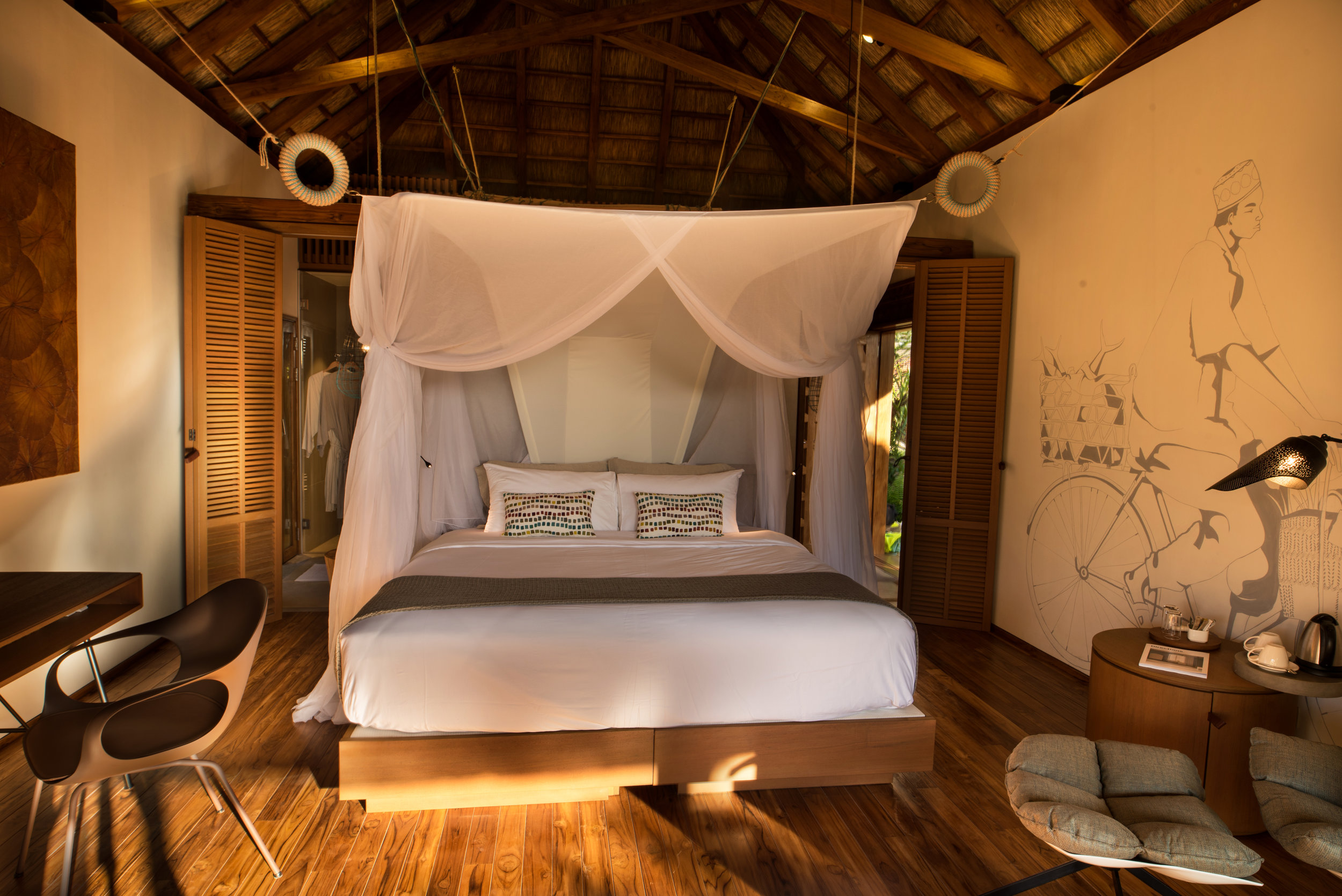
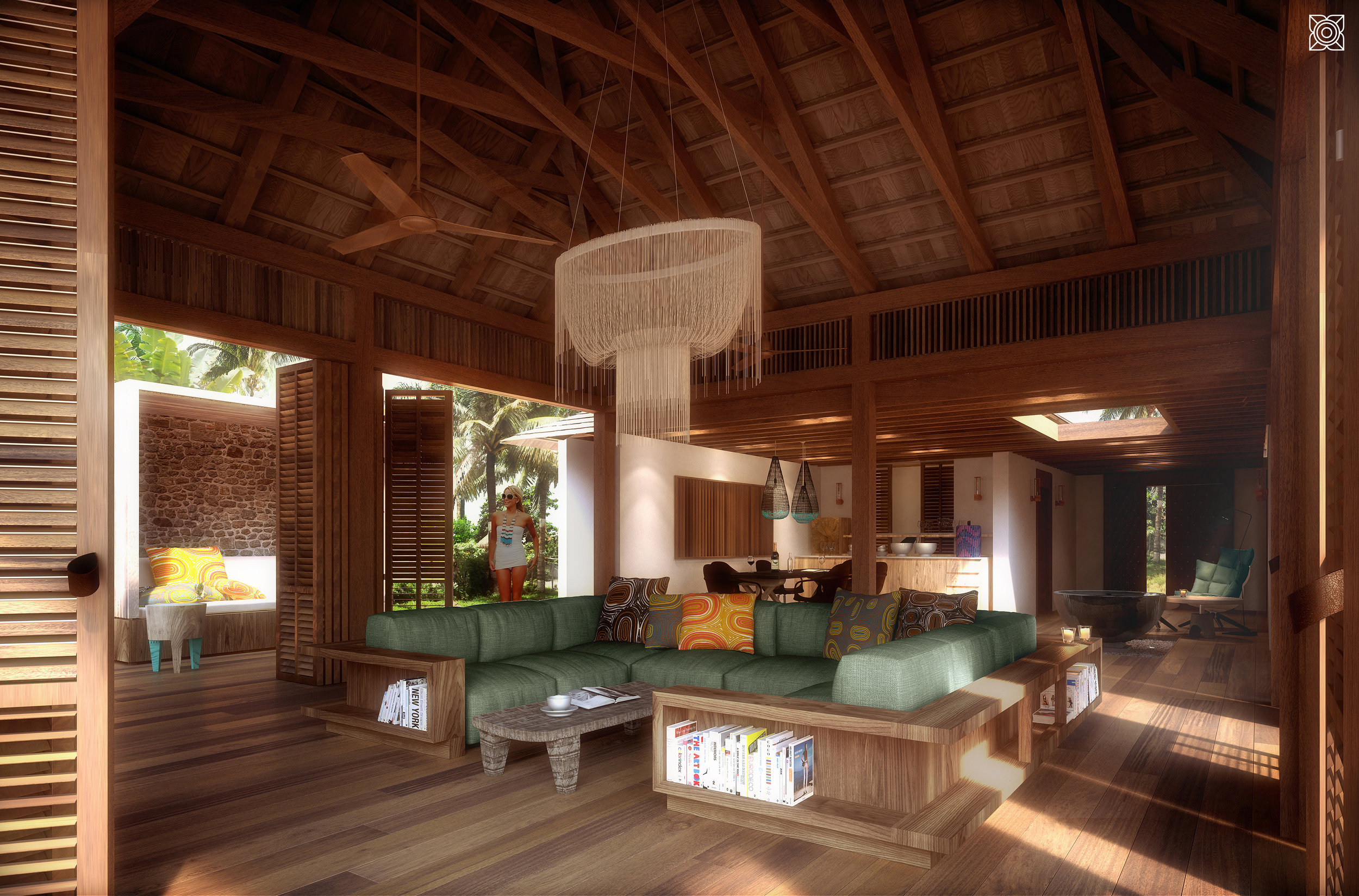
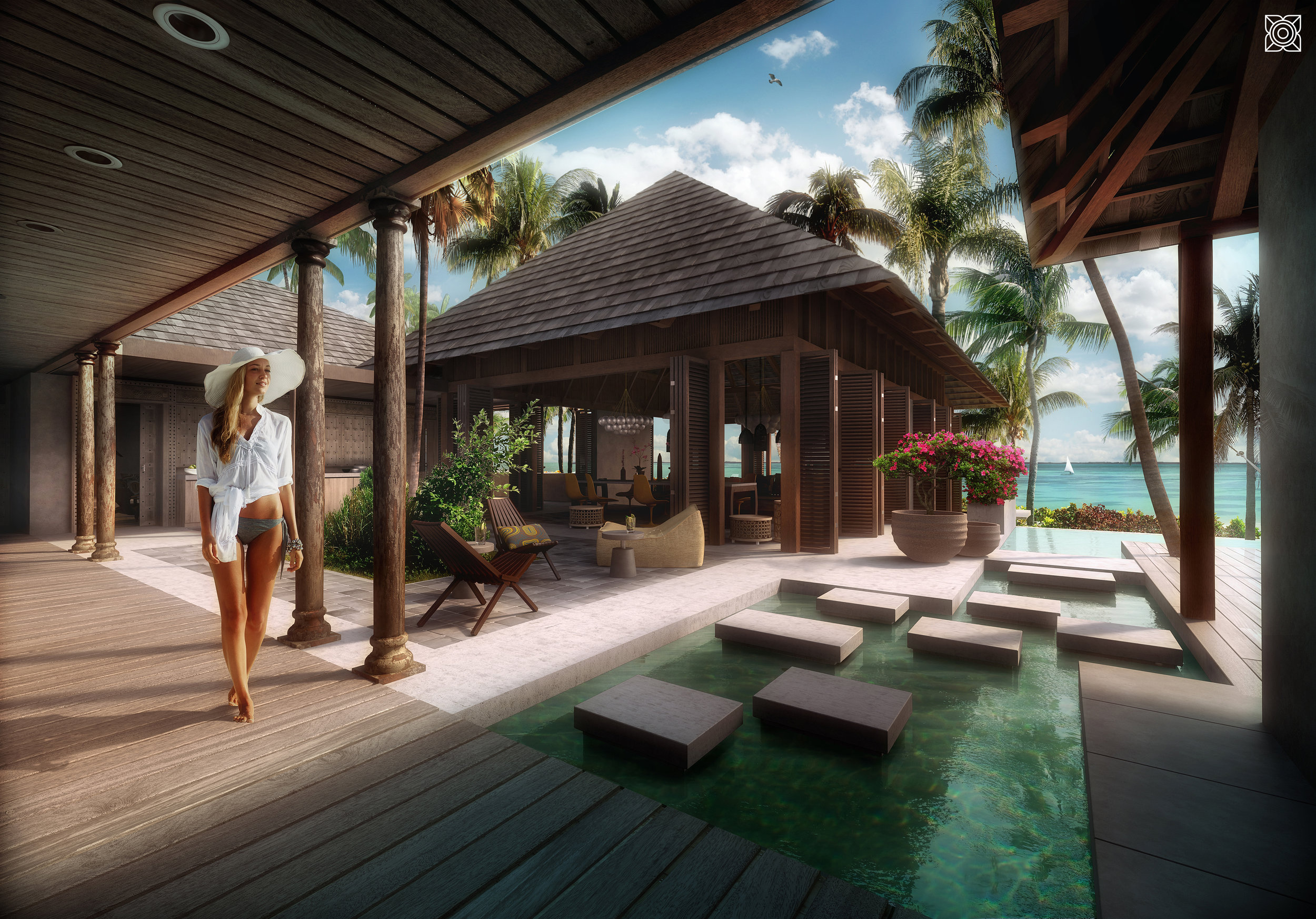

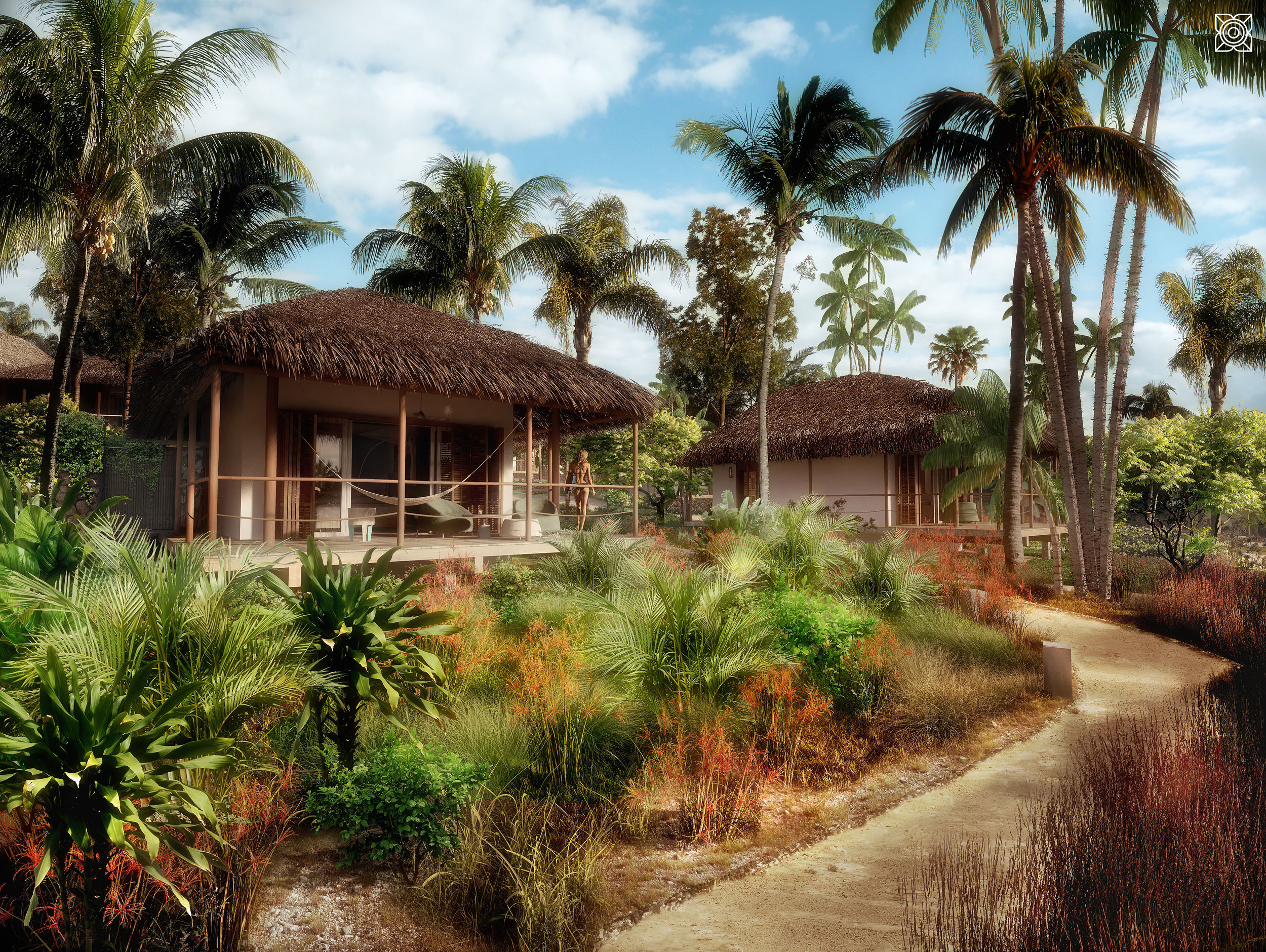
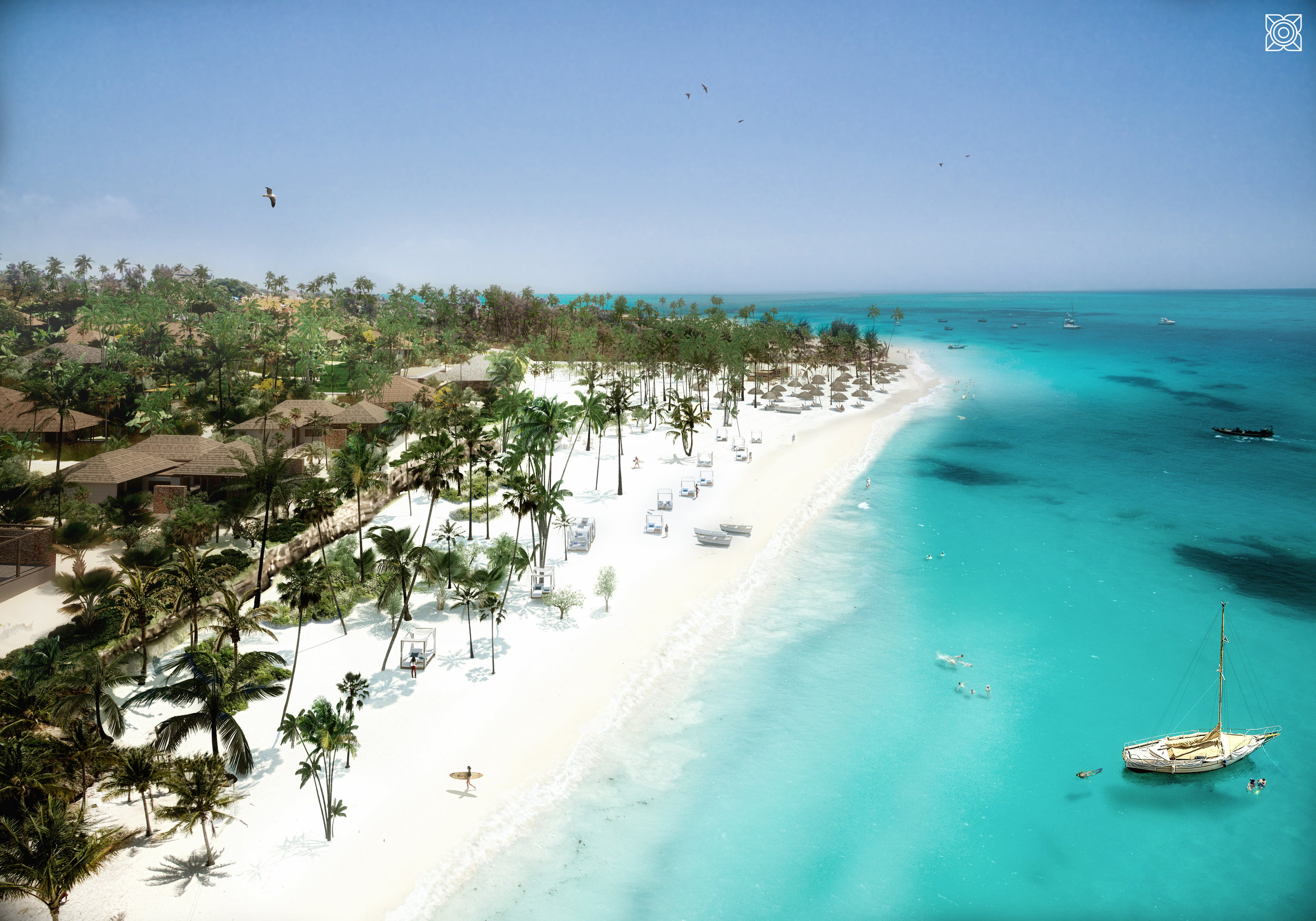
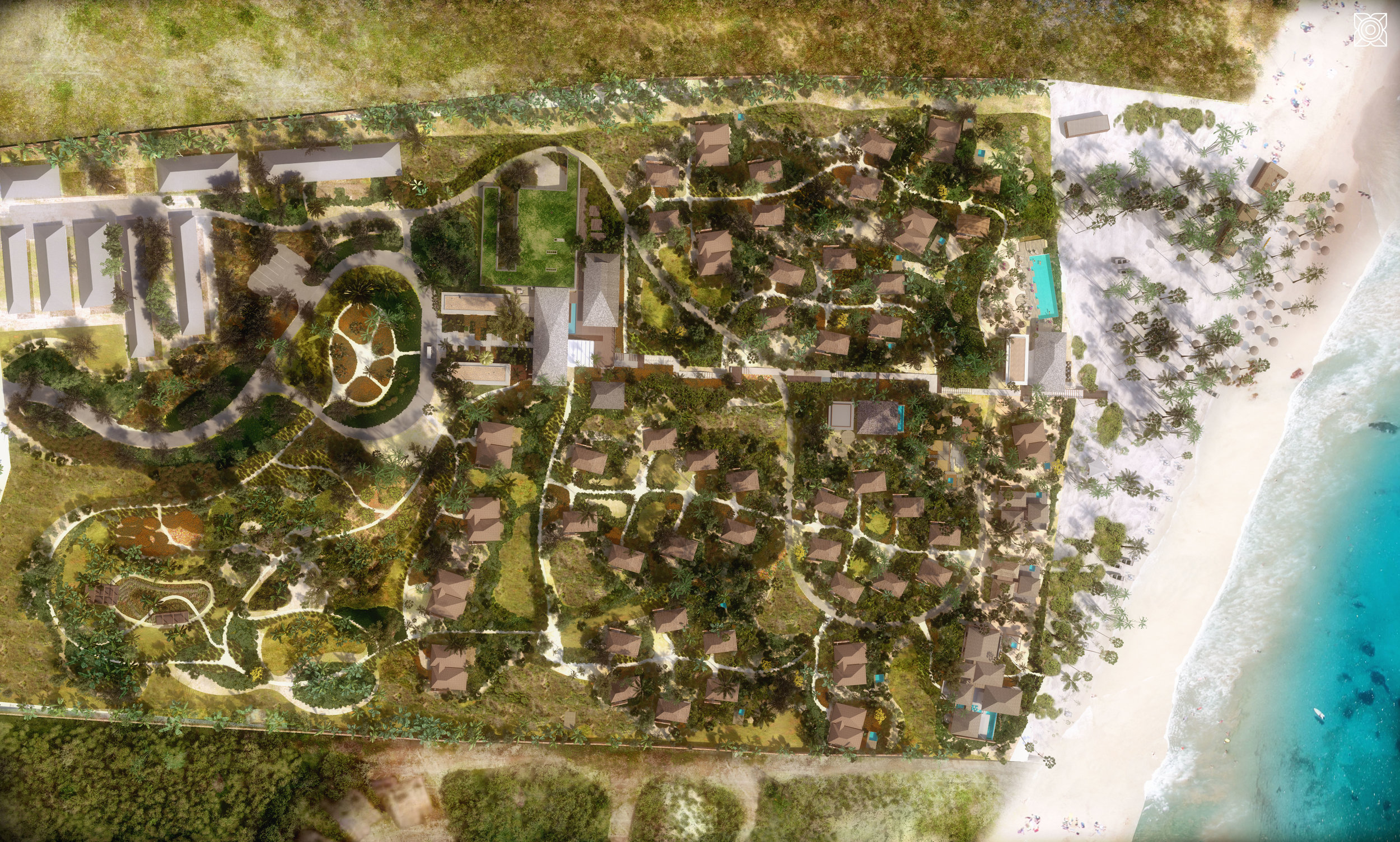
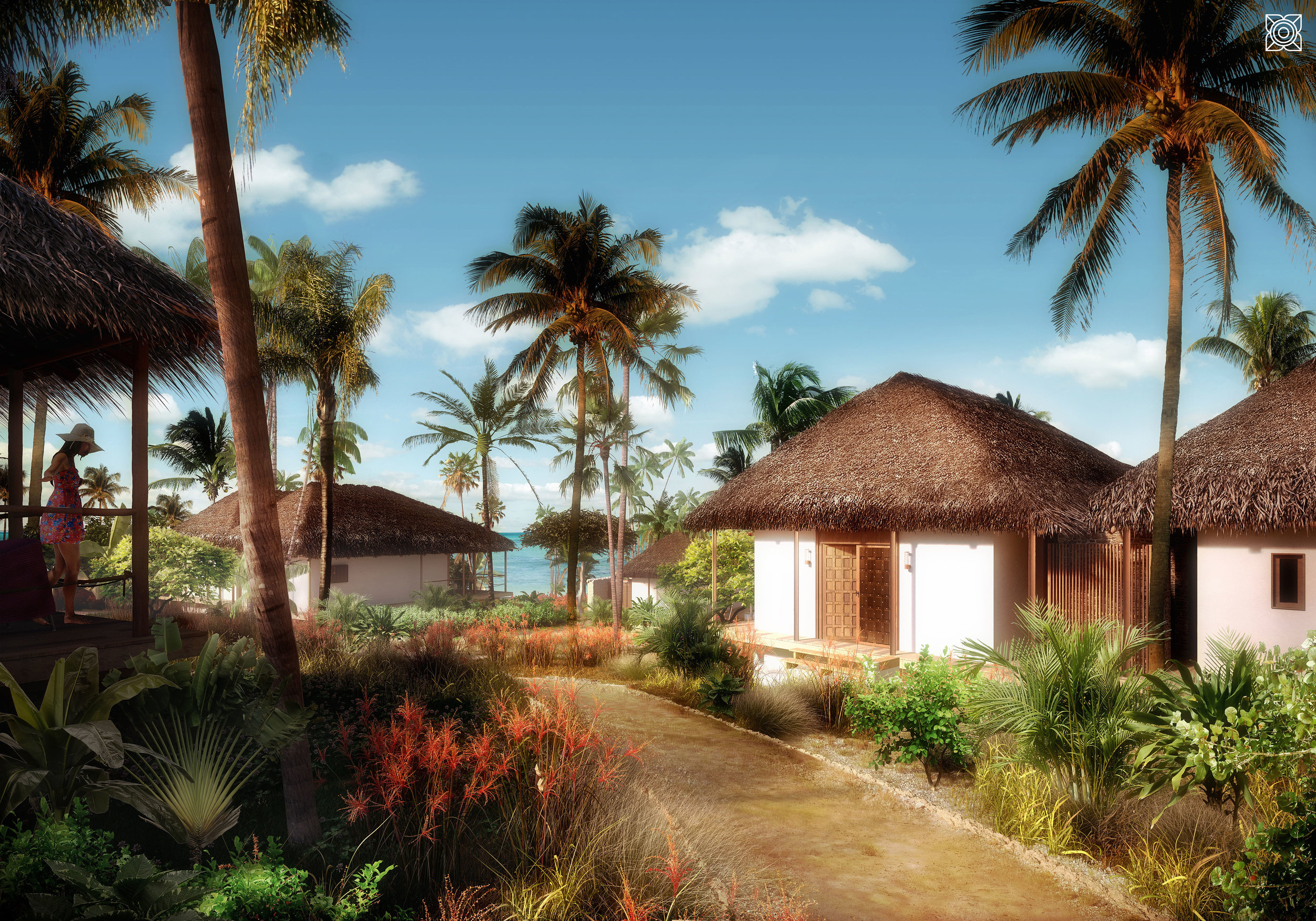
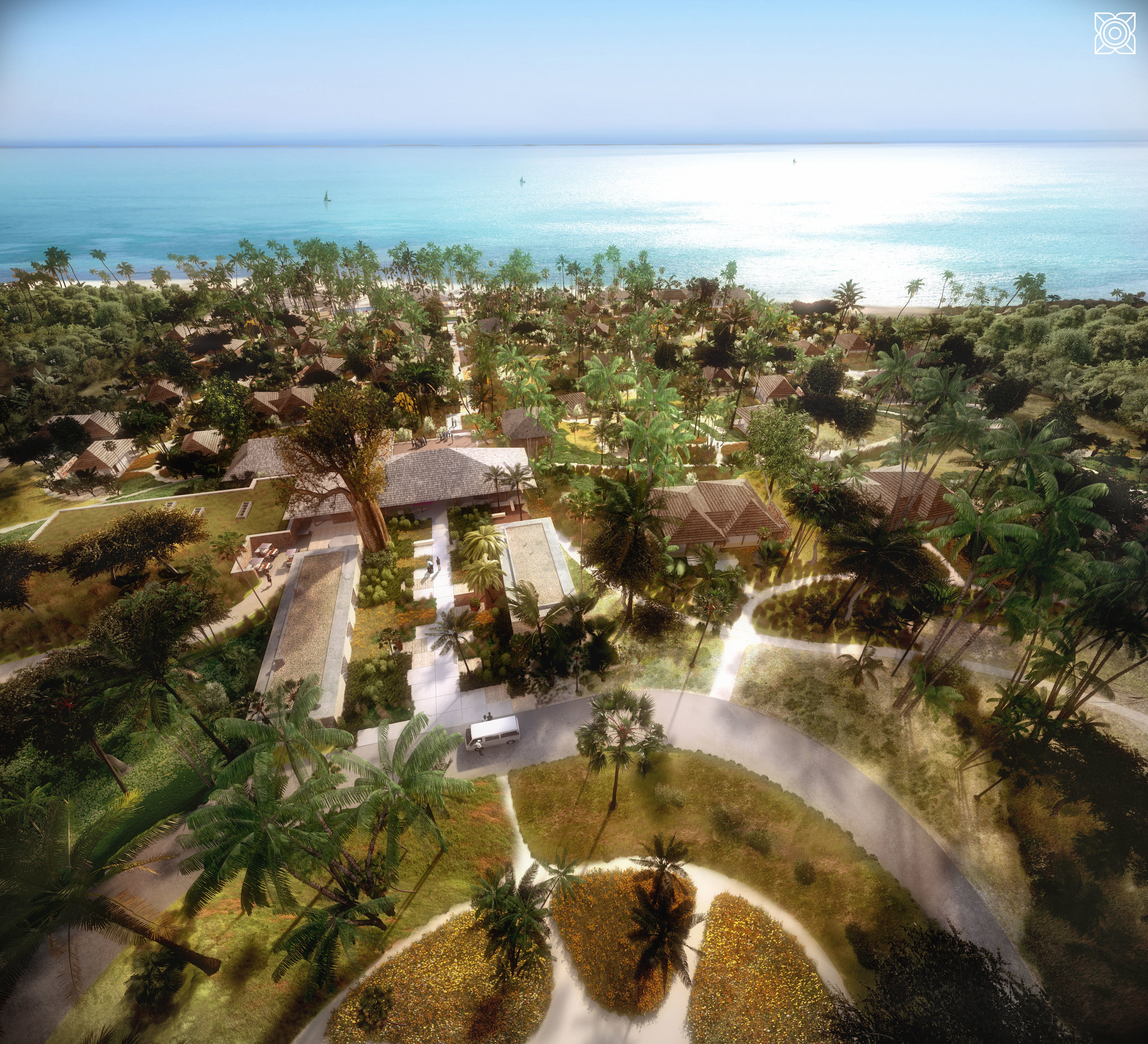
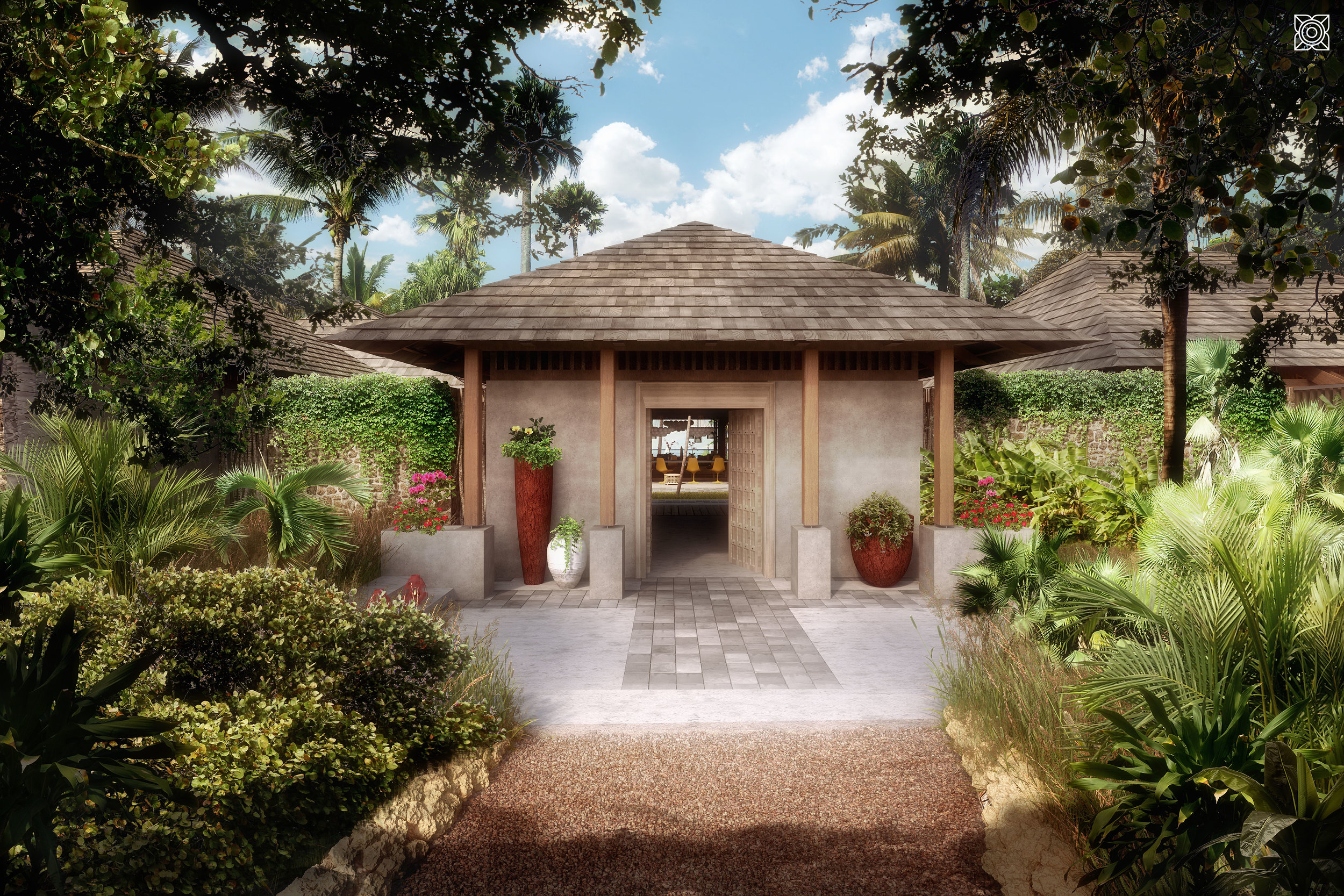
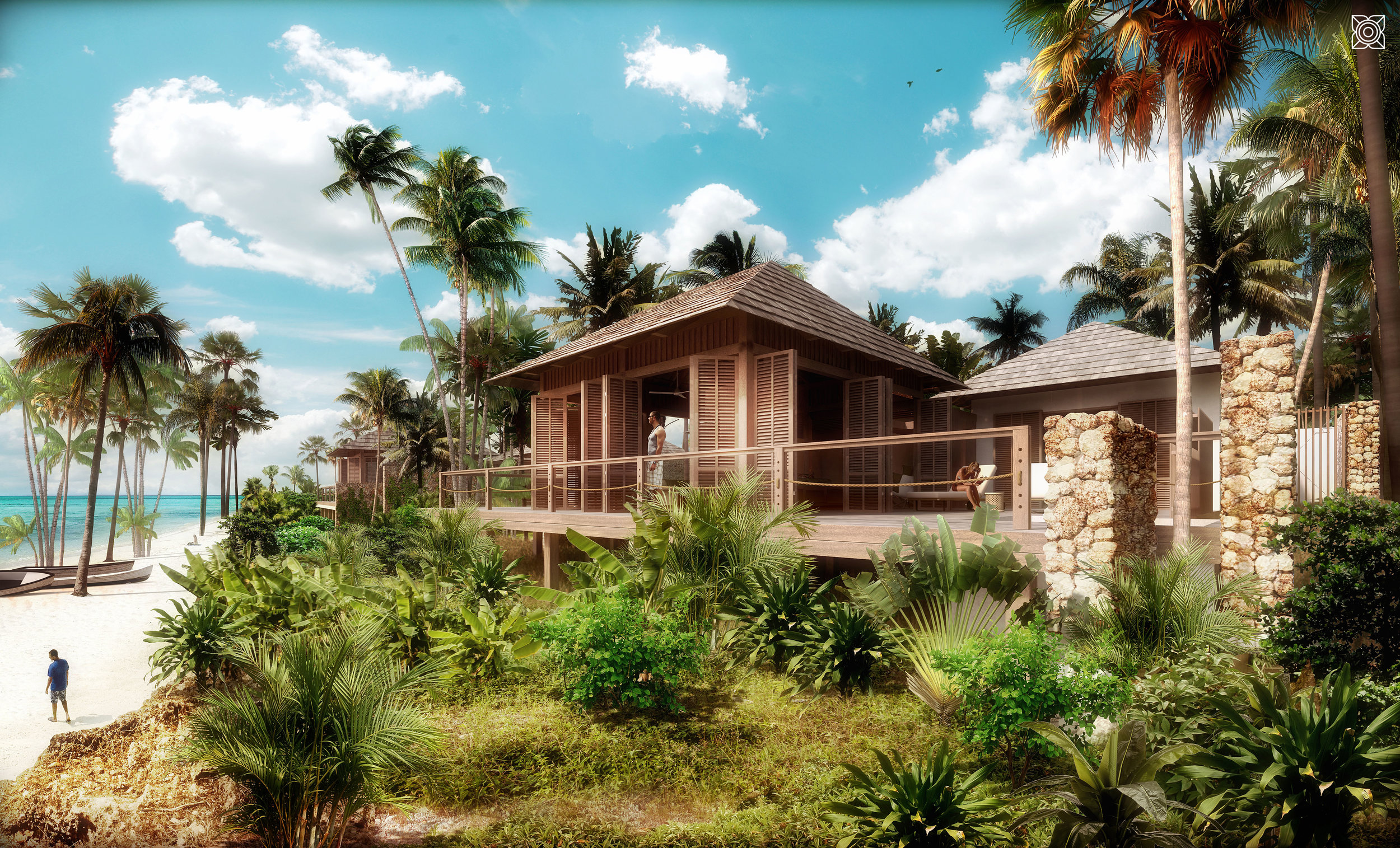
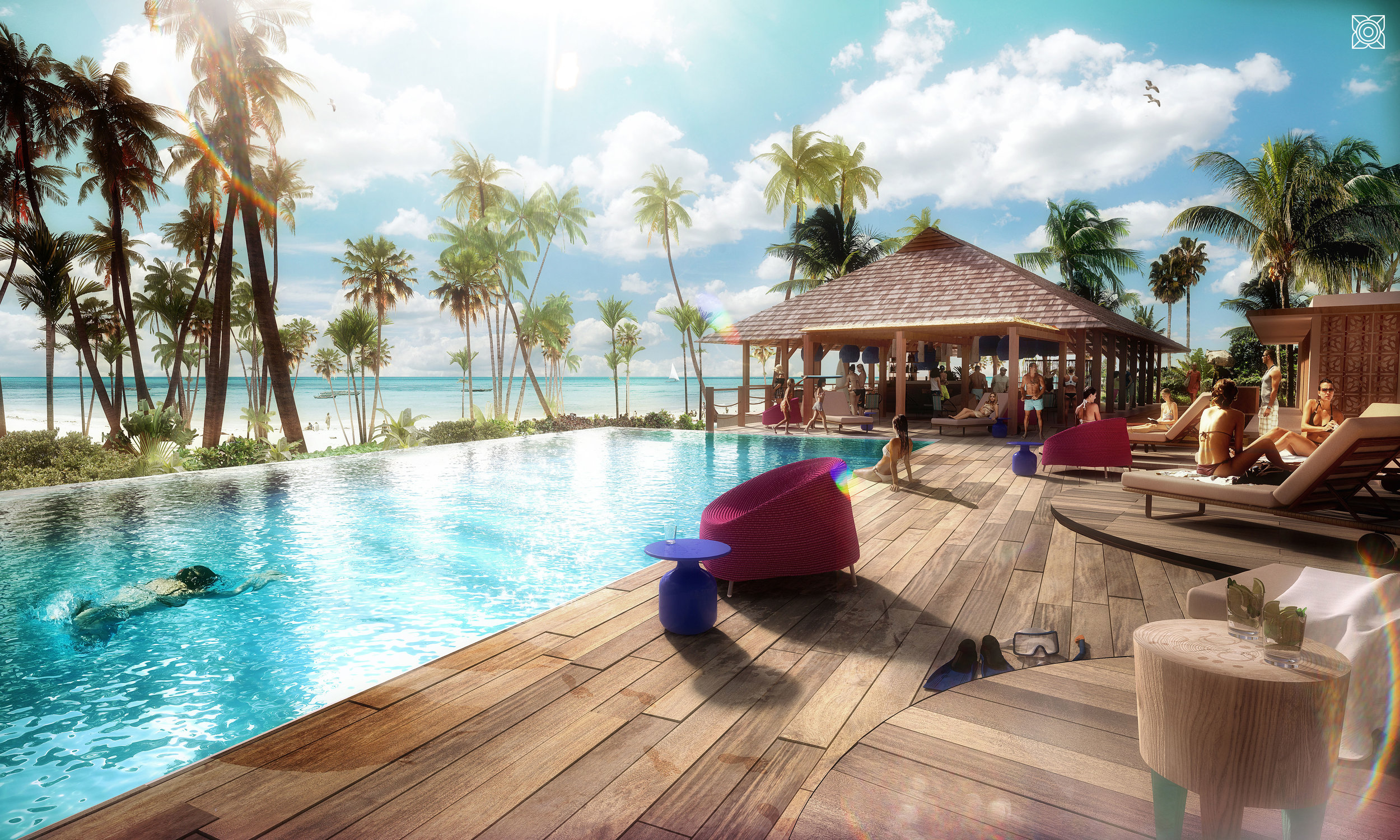
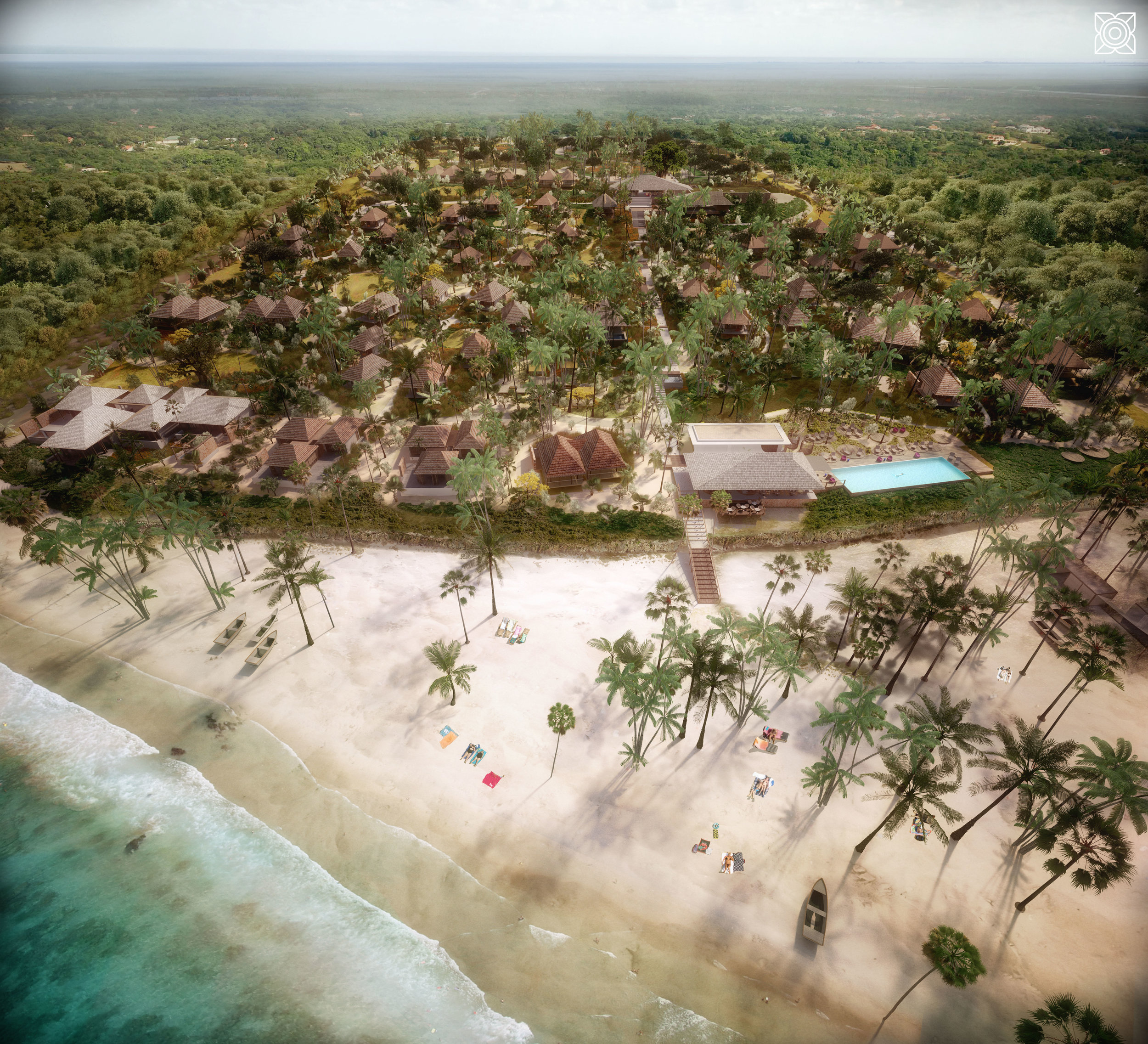
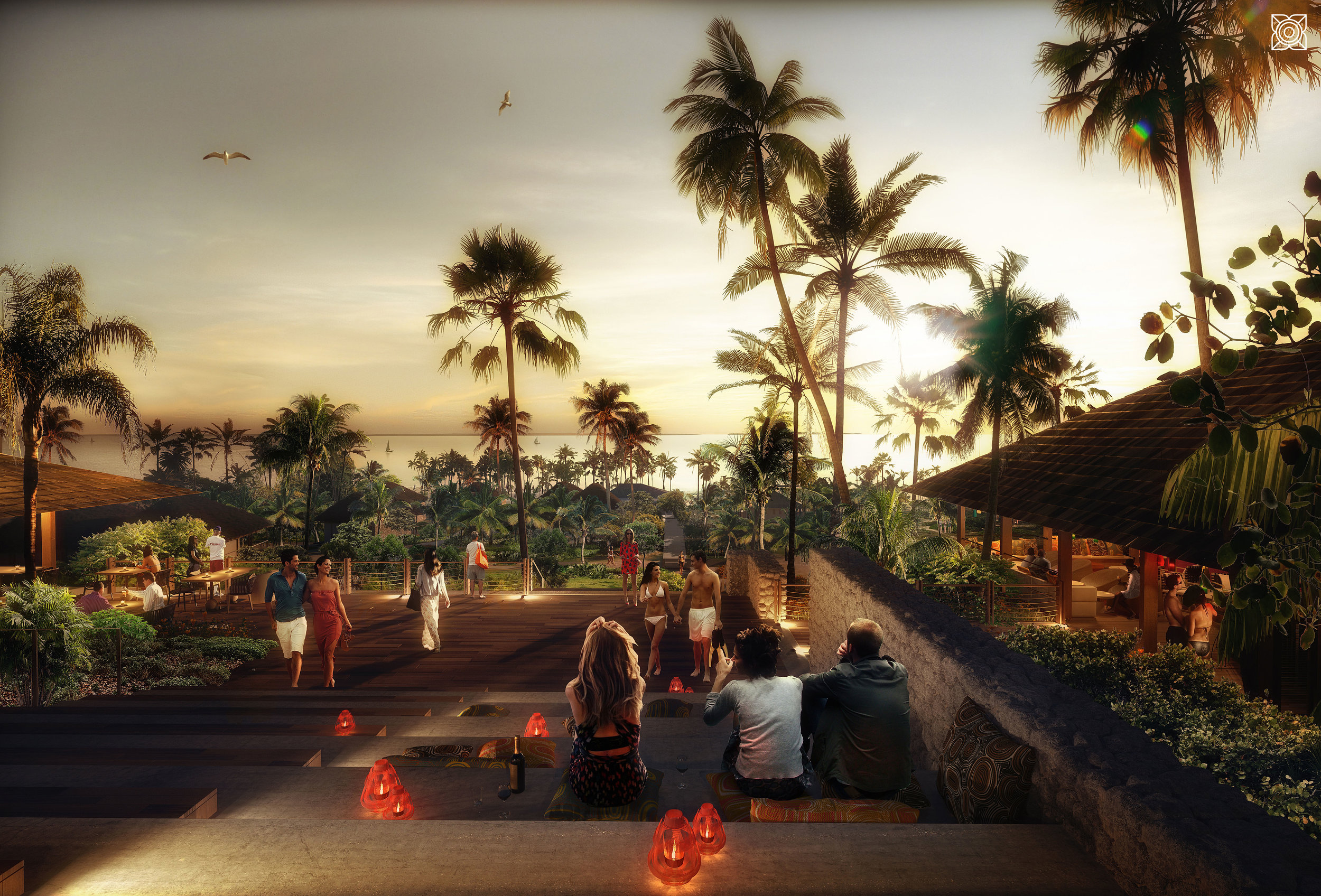
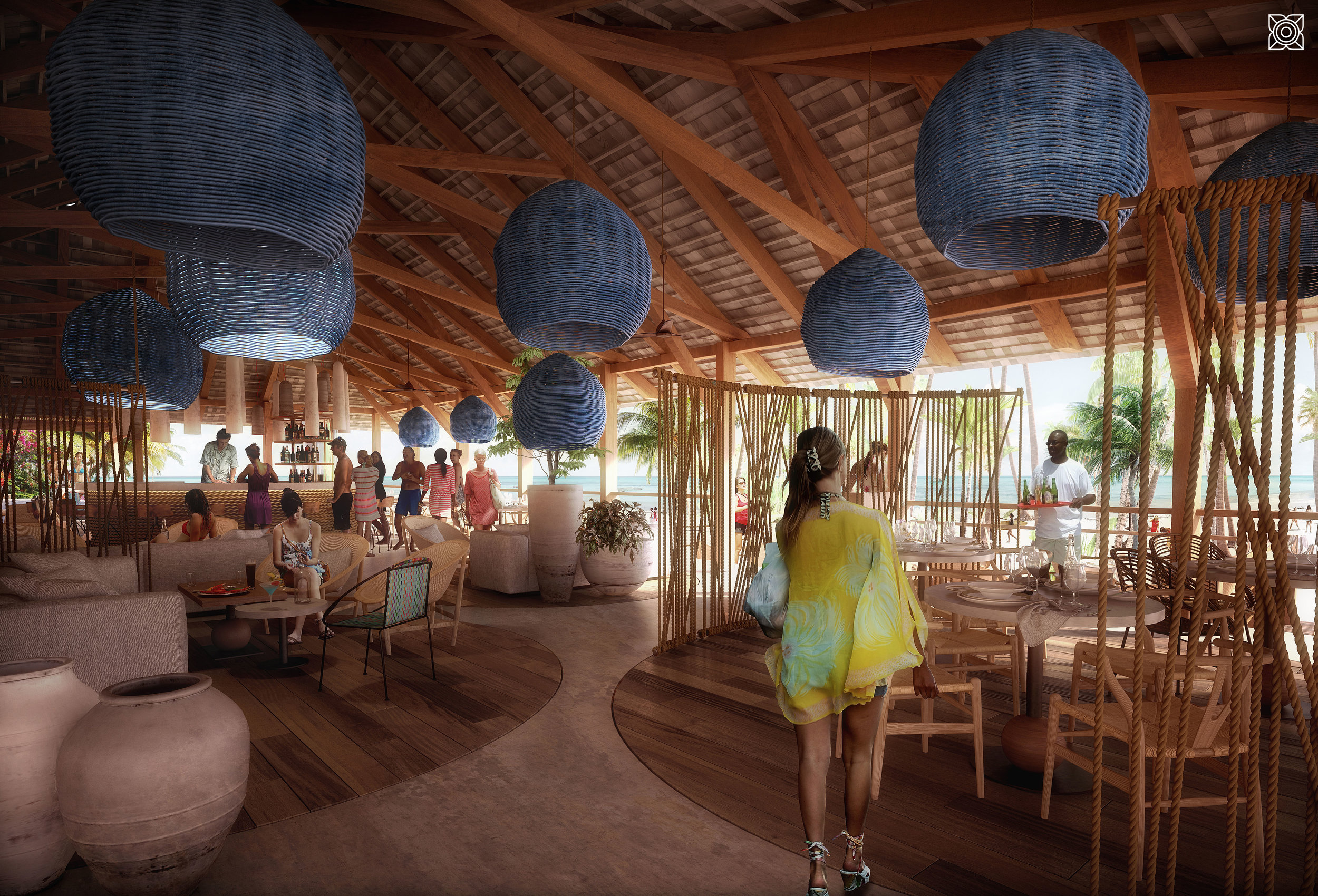

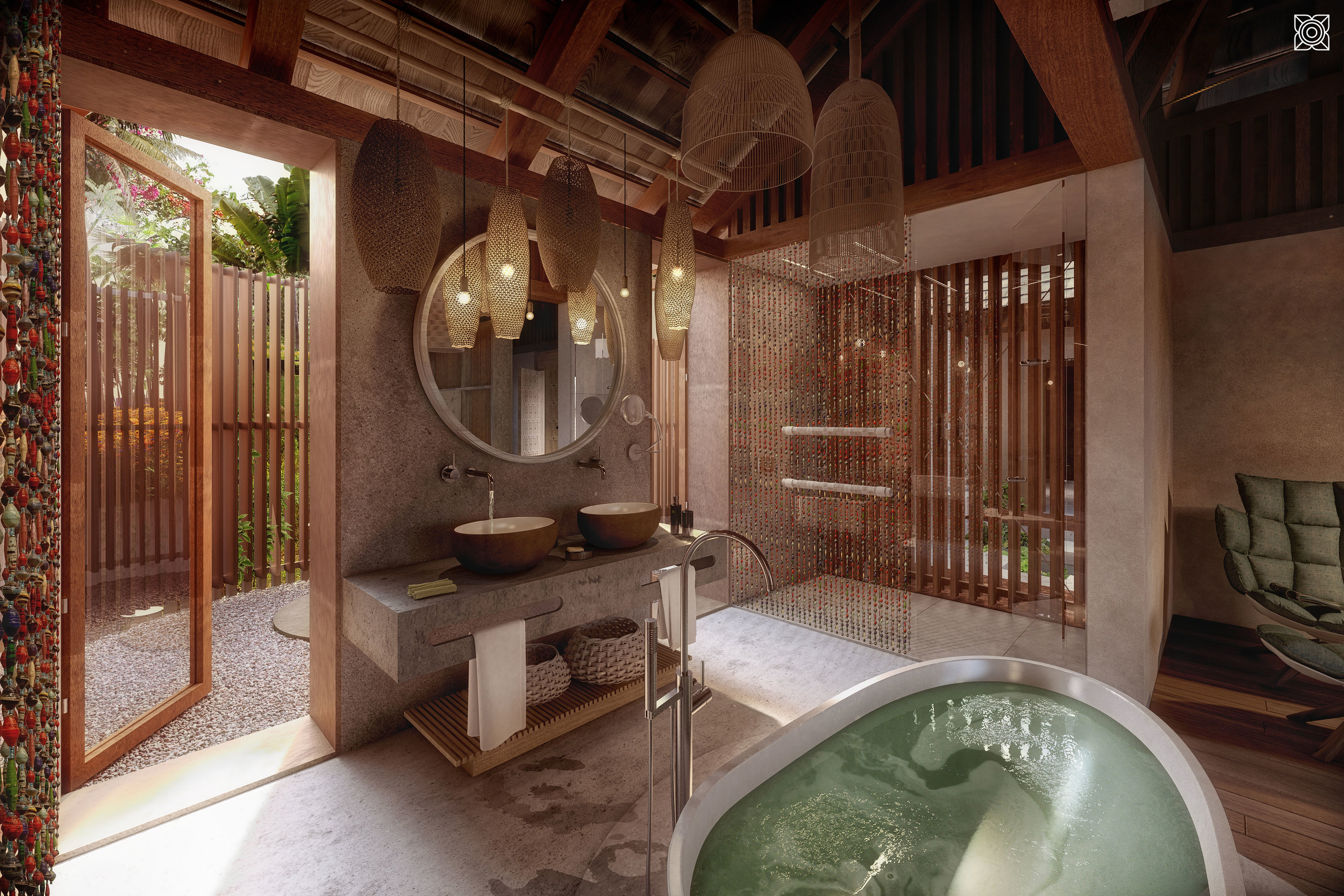
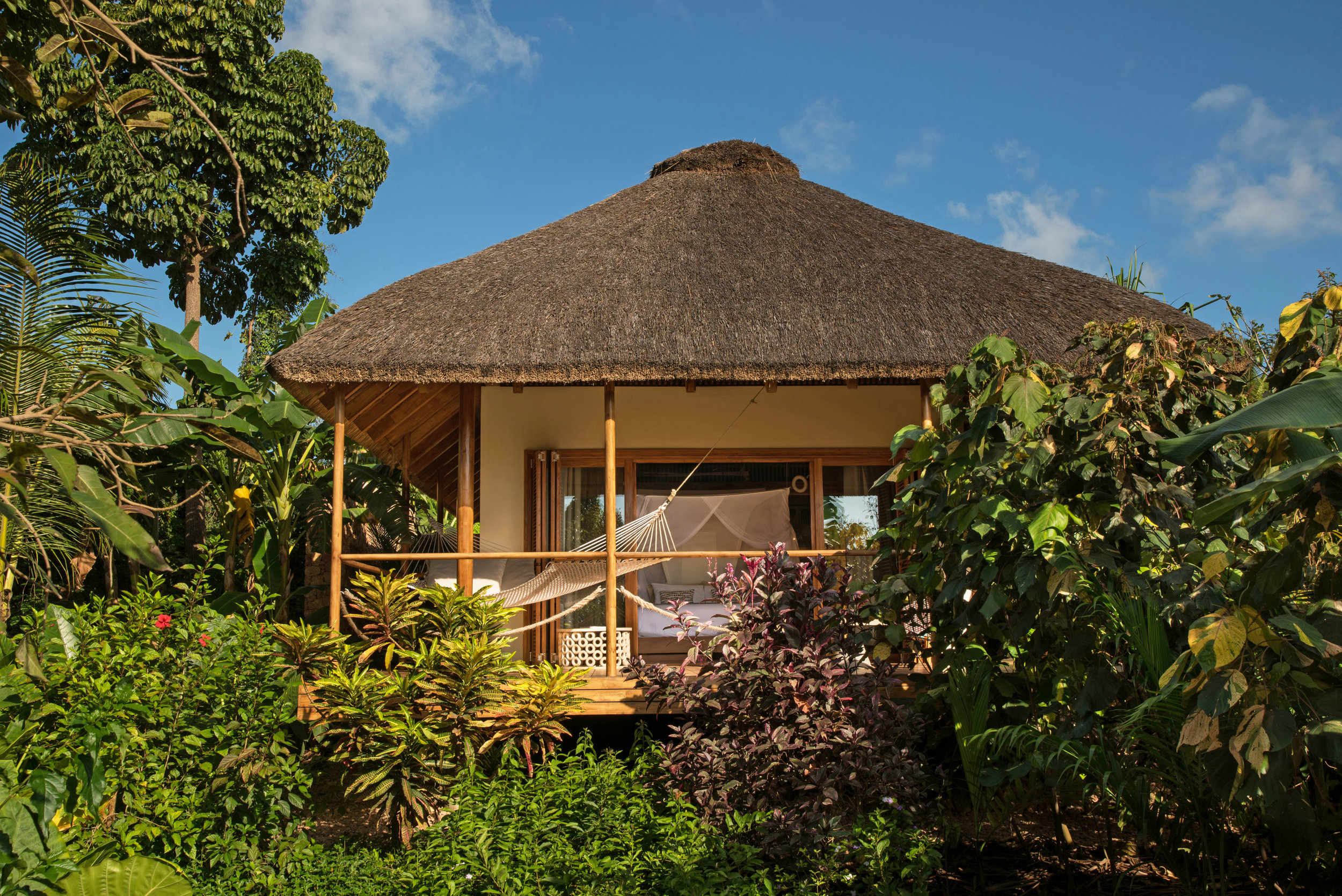
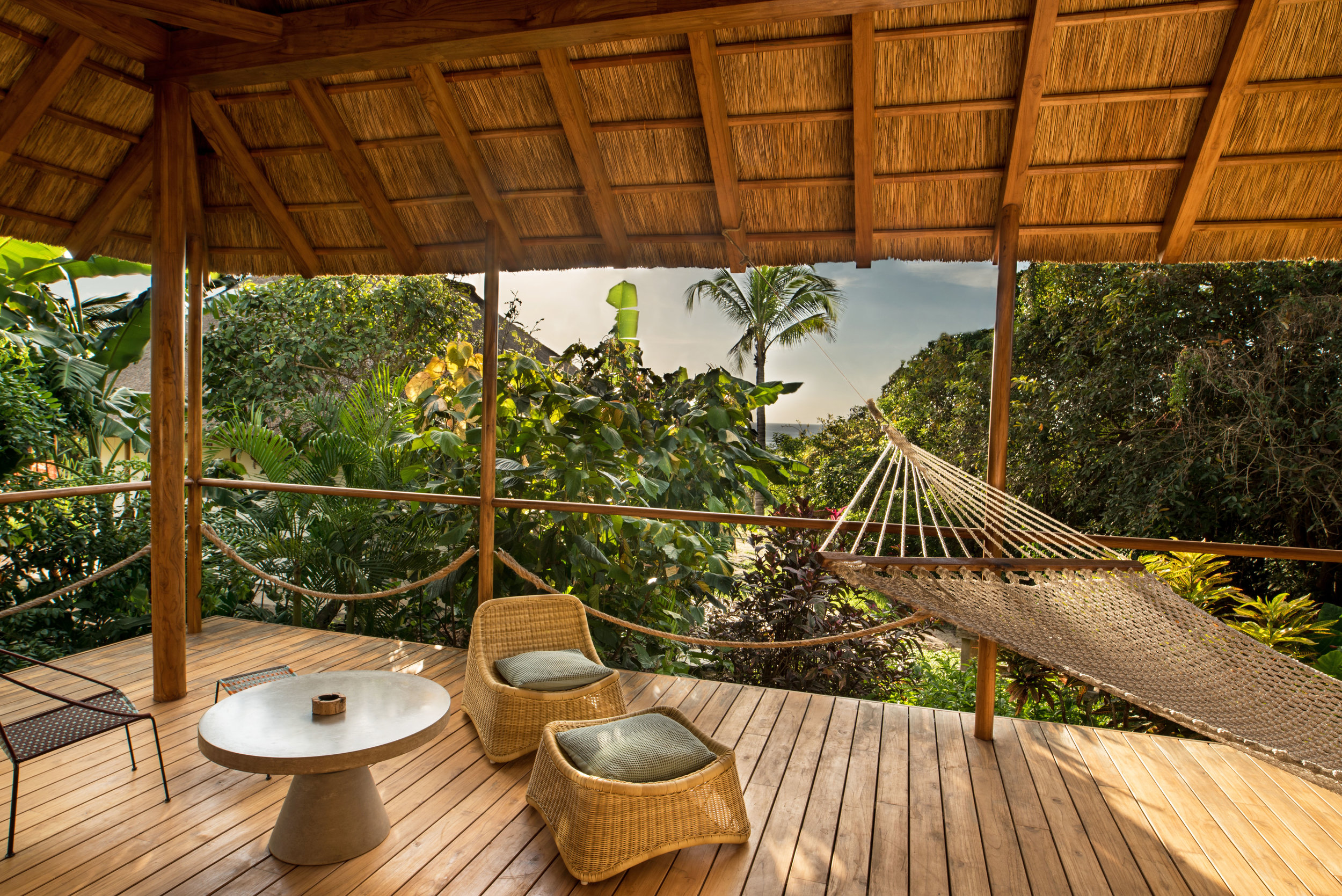
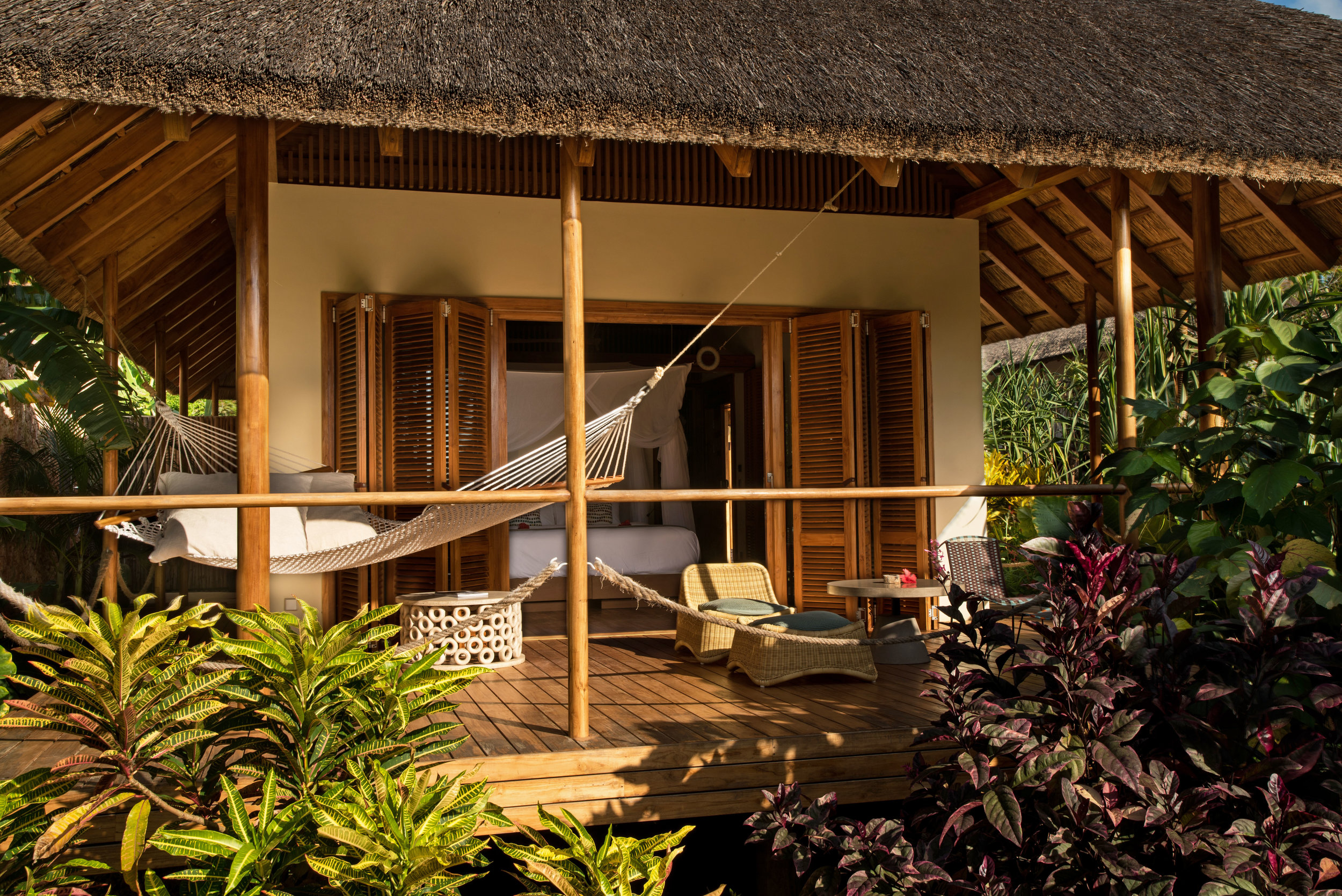
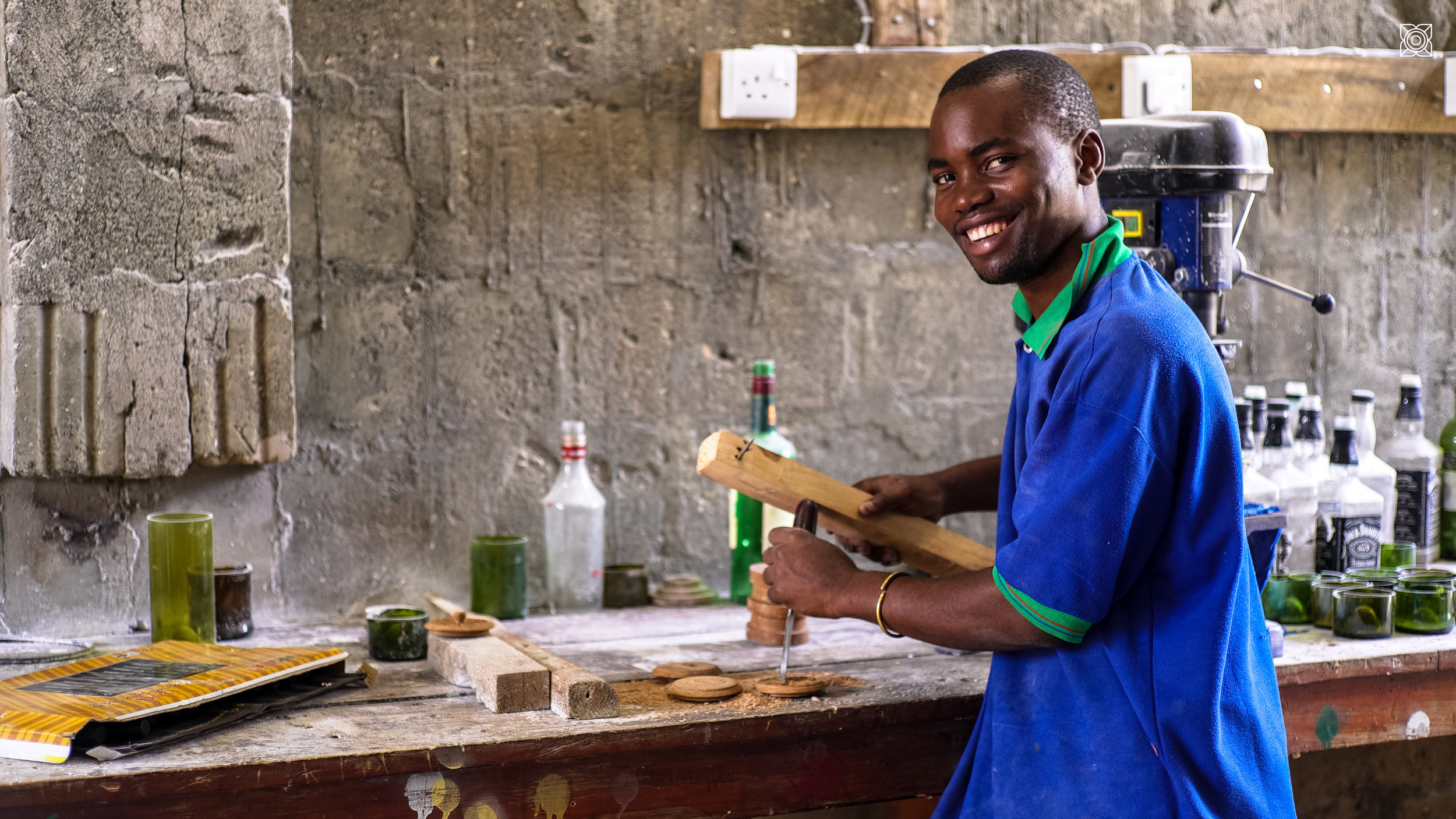
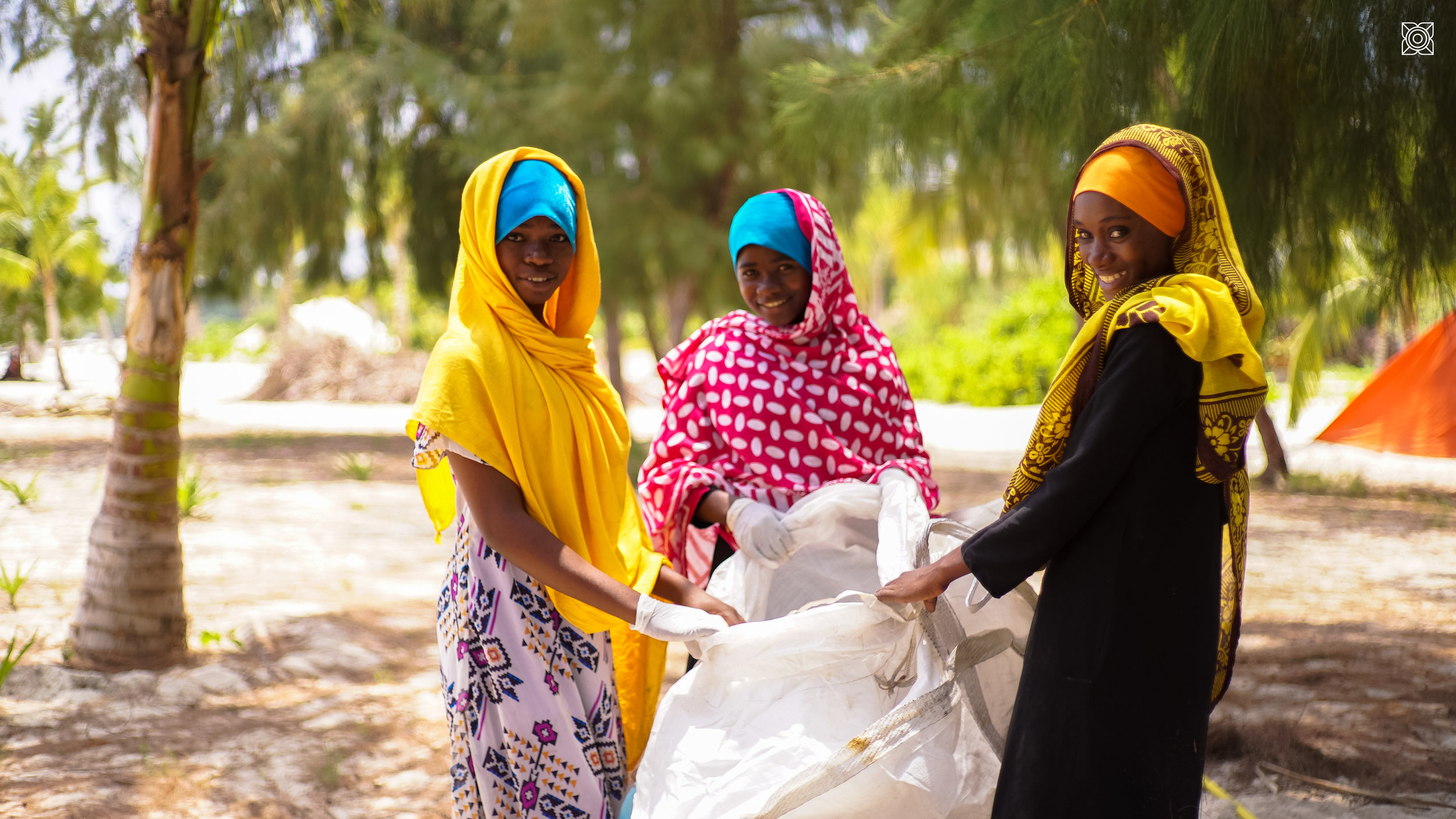
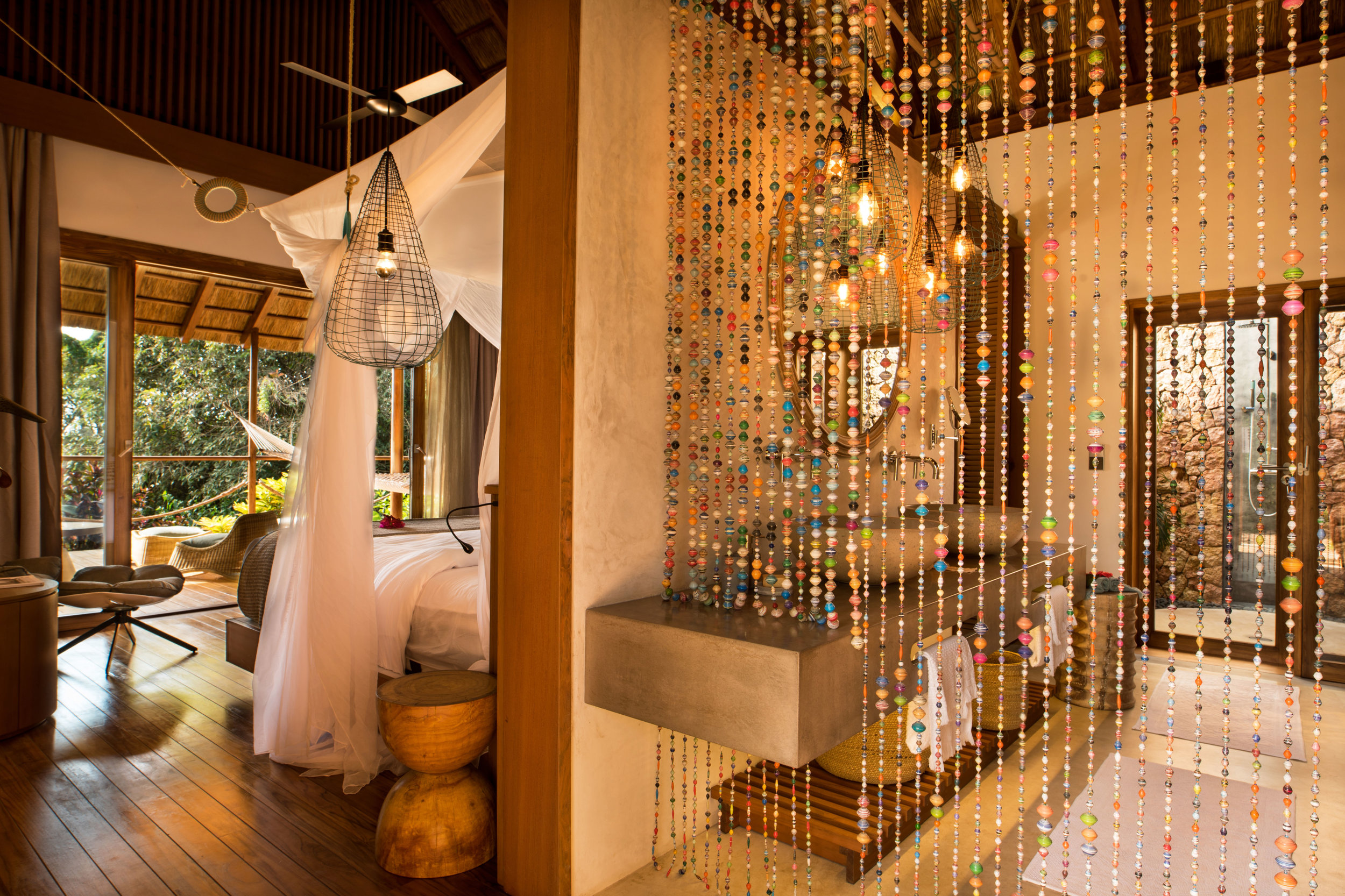
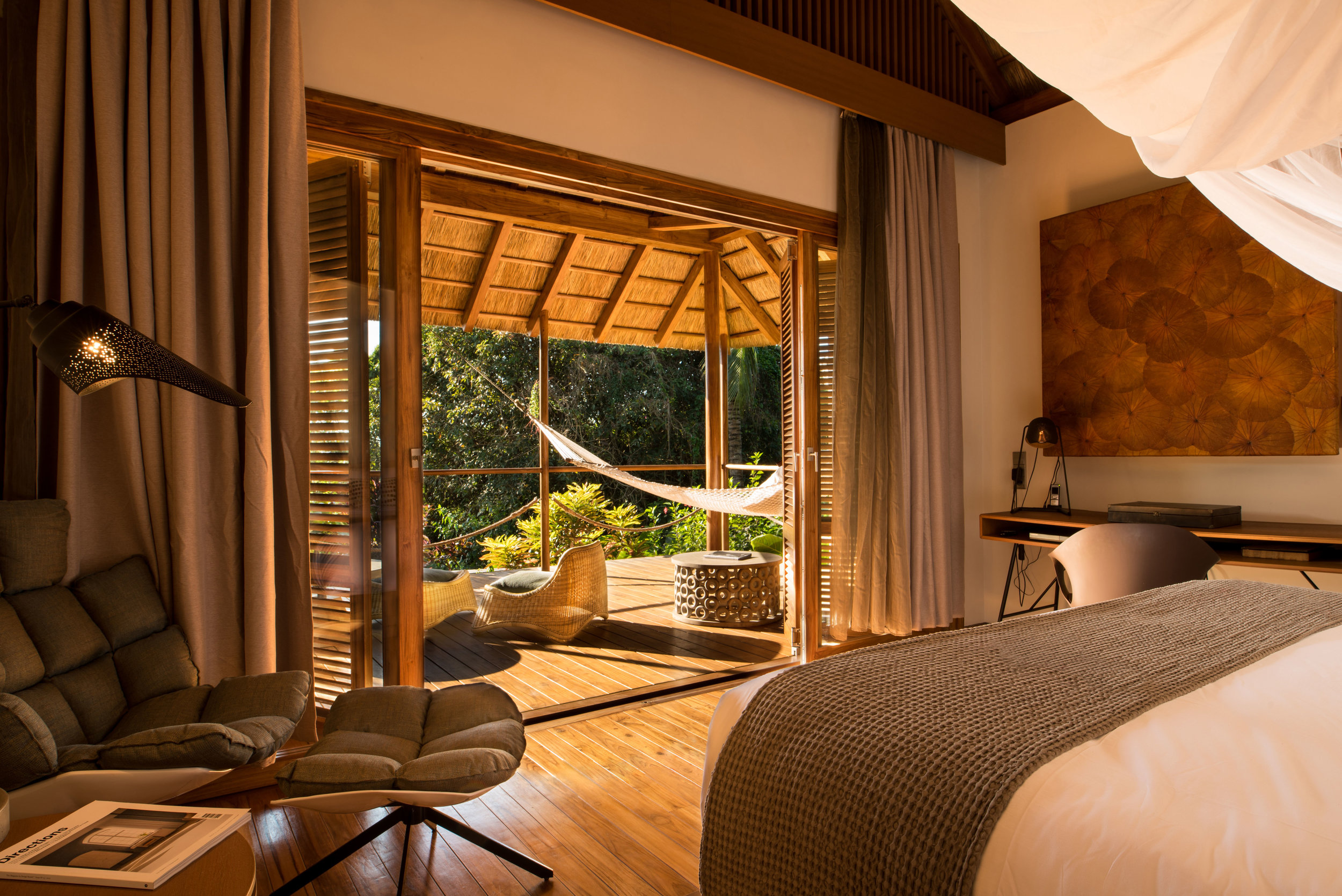
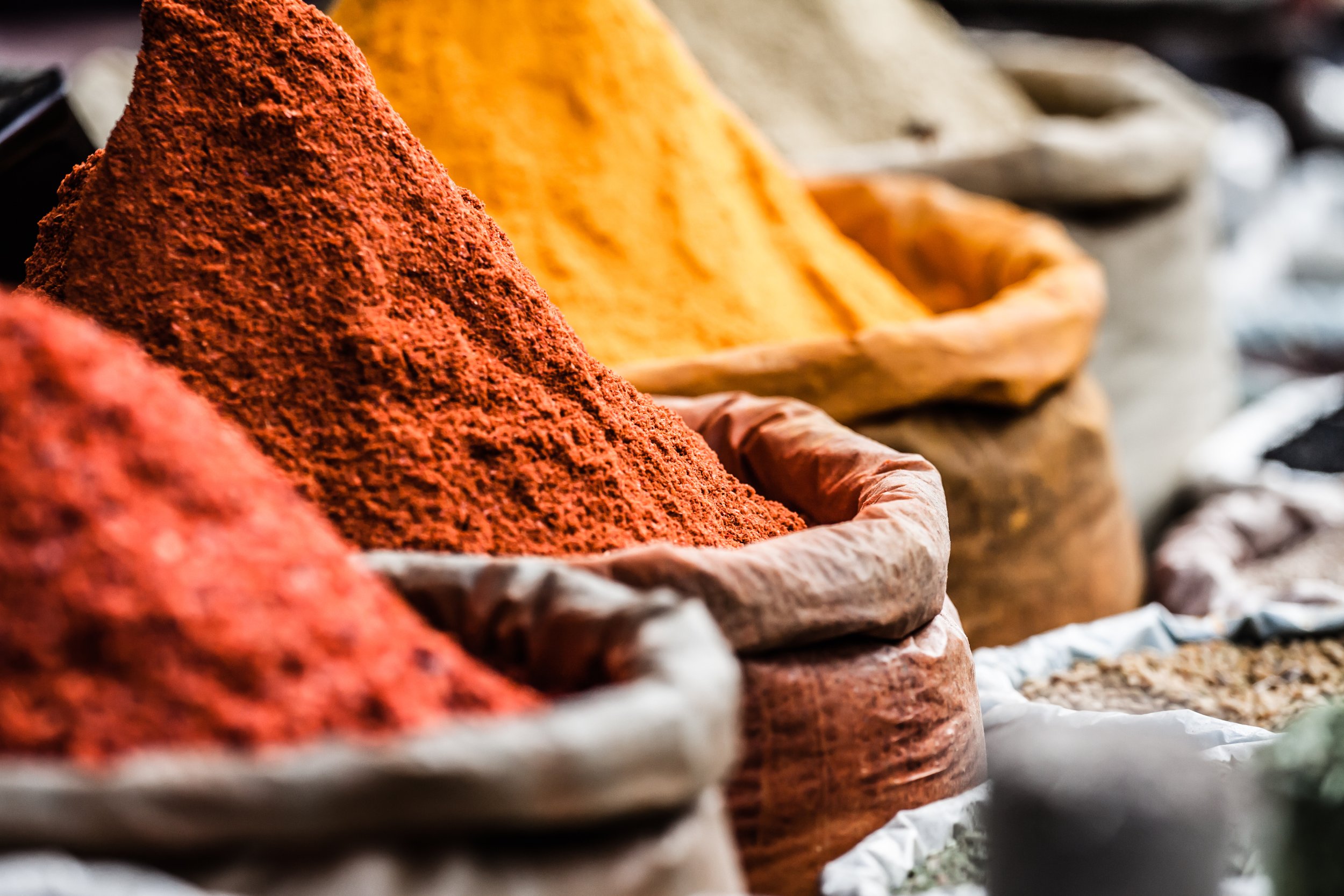
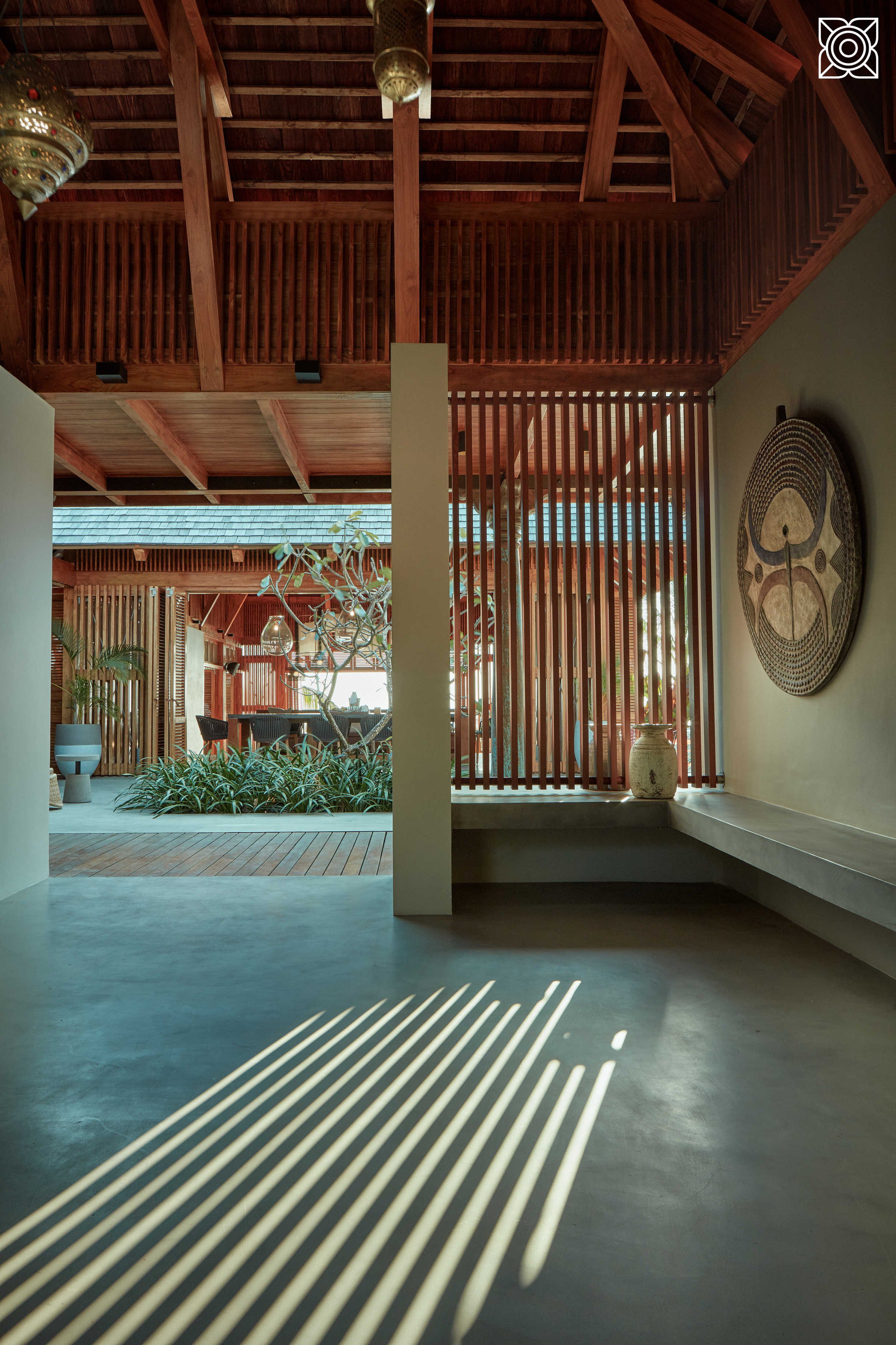
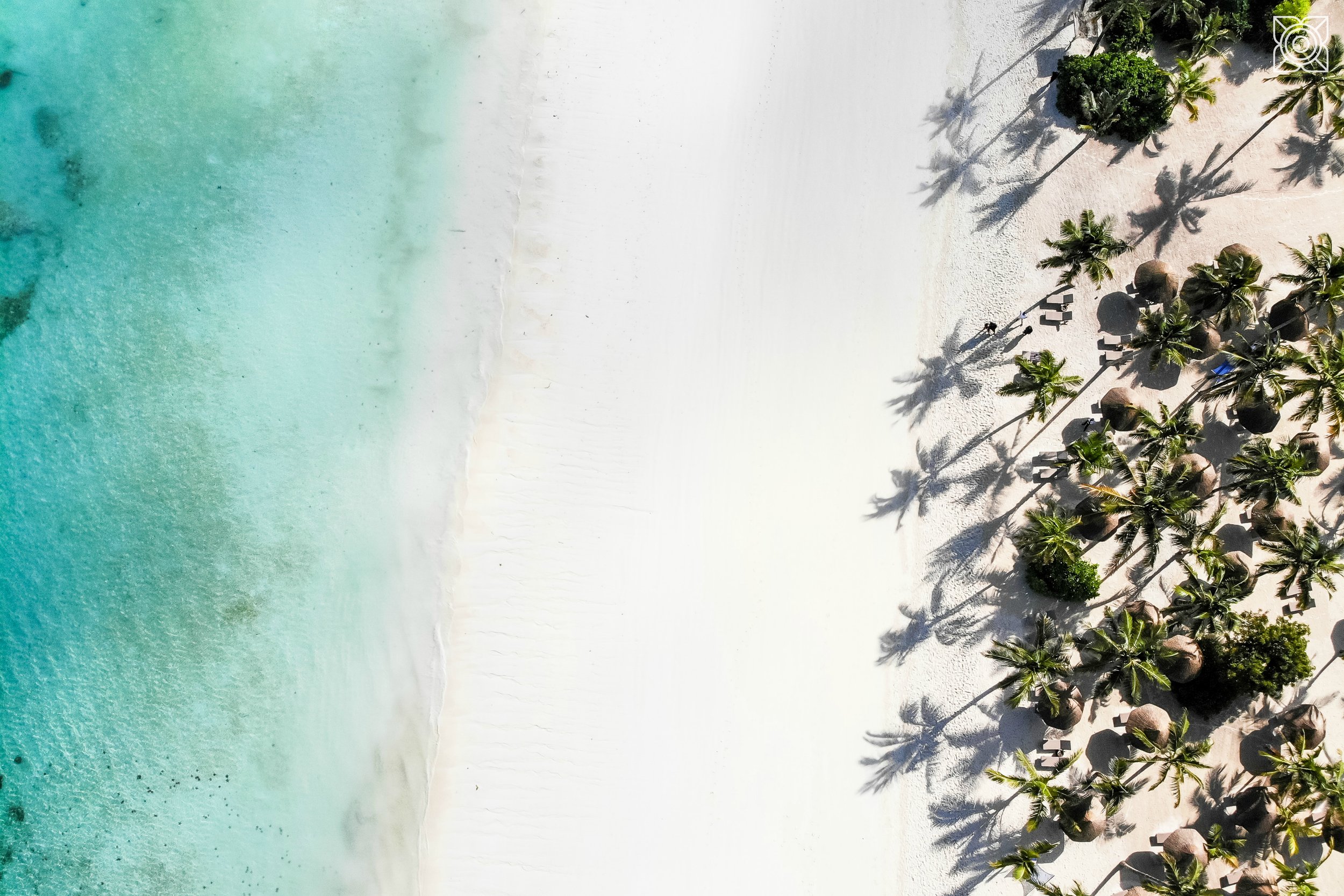
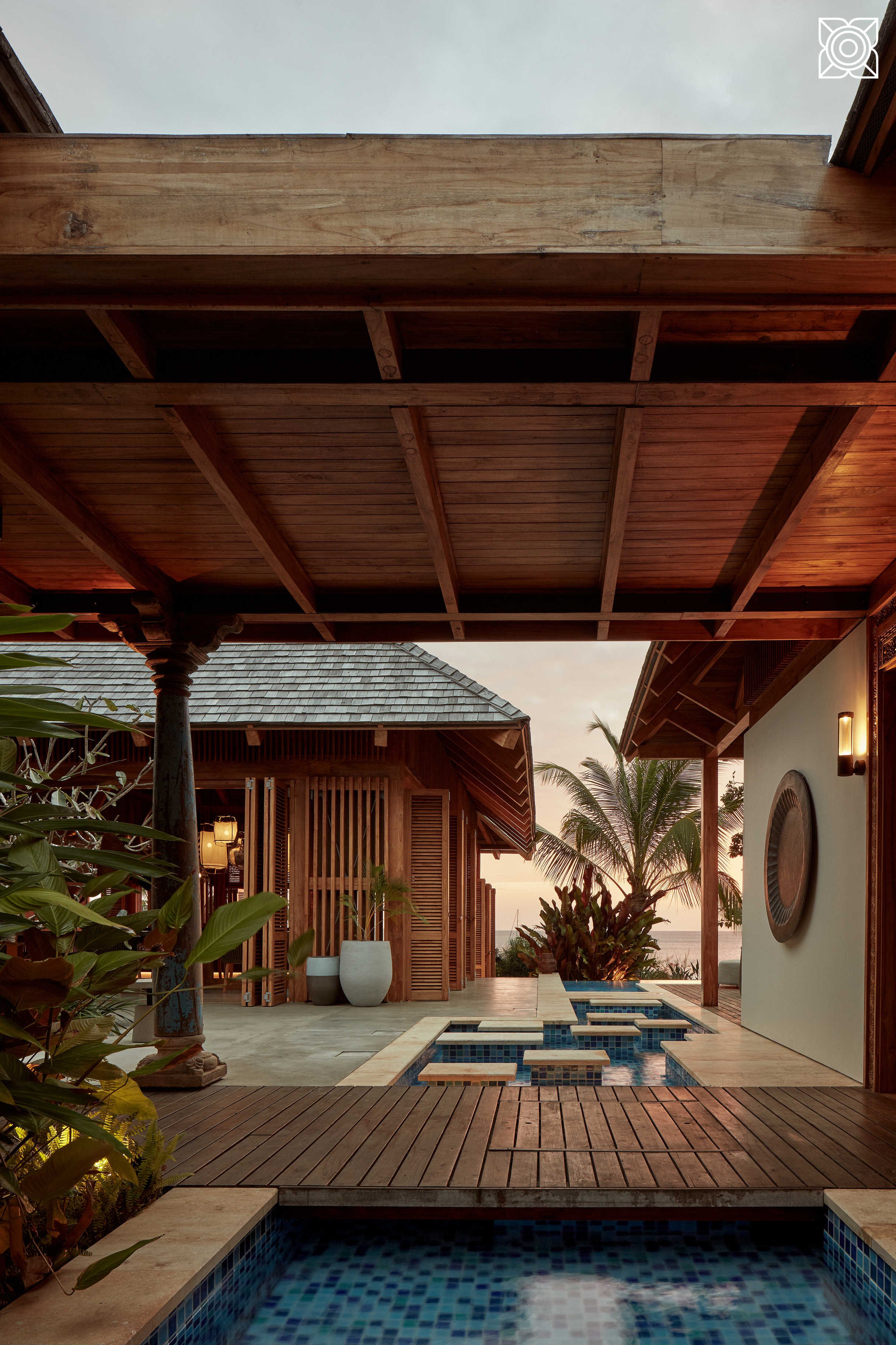
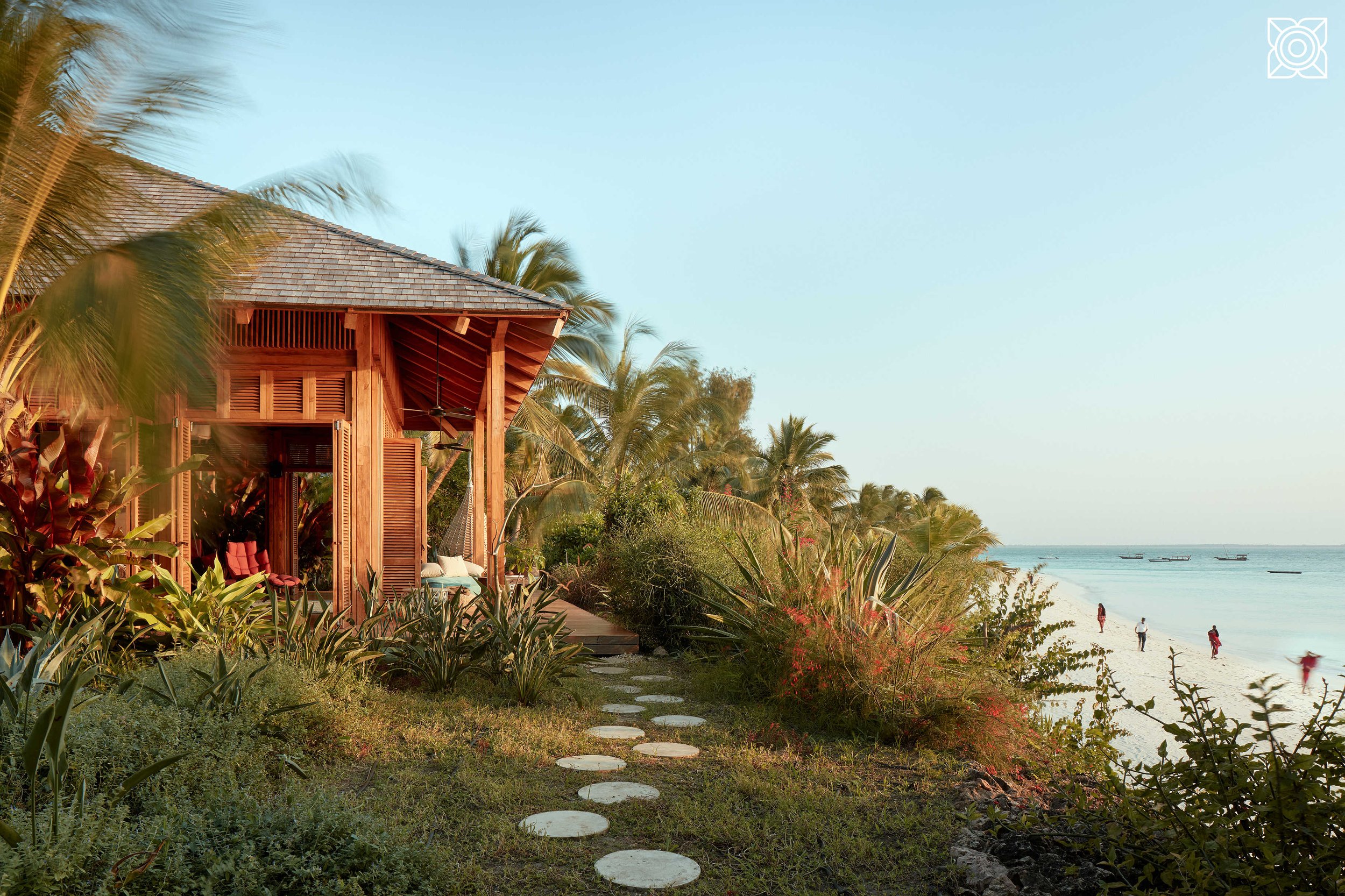
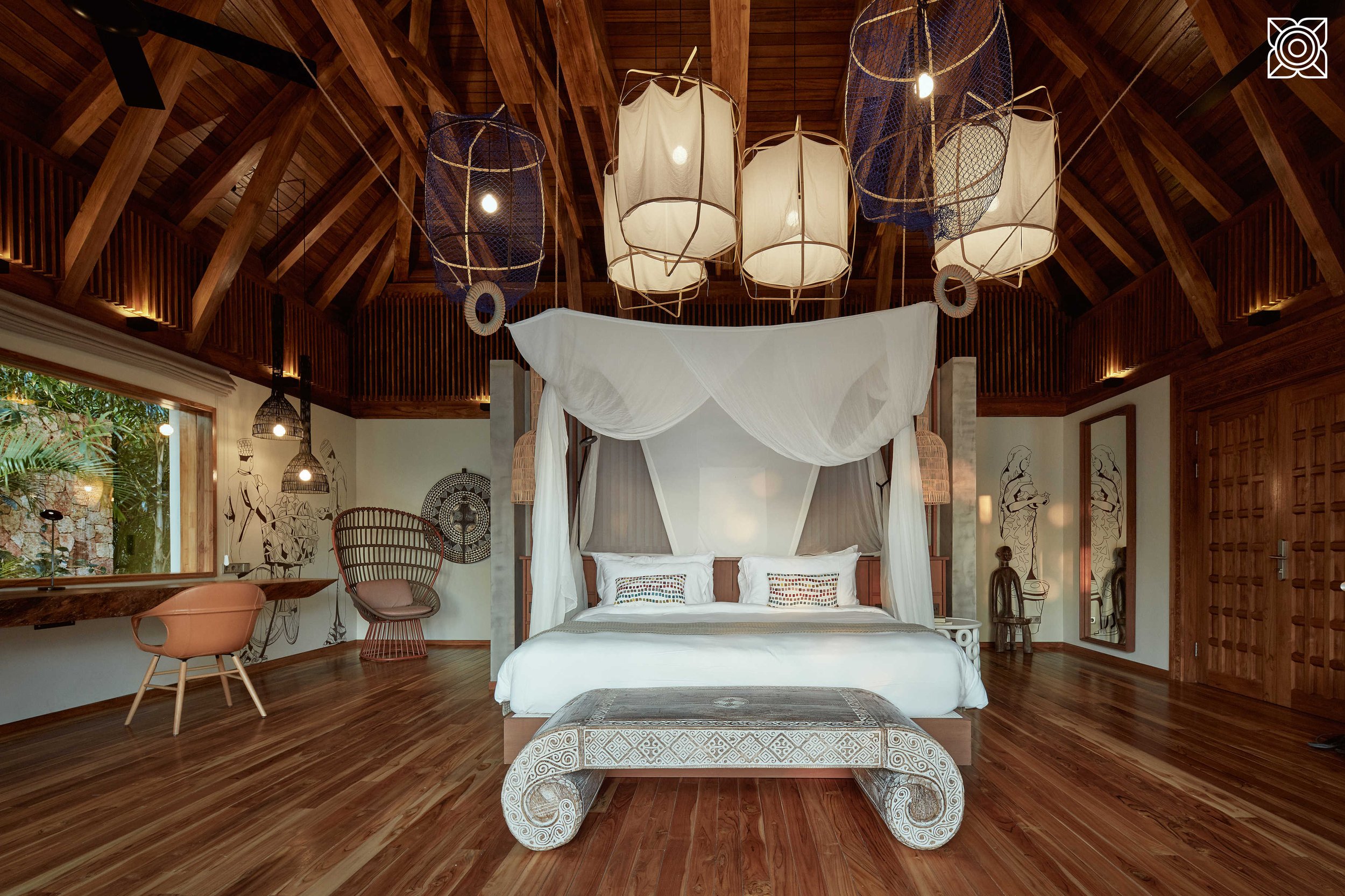
PERSONALITIES
Divers. Explorers. Lovers of spice.
MOMENTS
Shades of blue of the endless Indian Ocean. Zanzibar's vibrant colours, exotic spices and sunsets. A unique mix African, Indian, Arab and European cultures. Lemongrass and vanilla in the air. Forgetting old routines and creating new moments.
BEST VISITING MONTHS
Tropical climate with dry season from June to October and from January and February. The green season from April to June.
COST
WHY STAY
Zuri Zanzibar is a boutique design hotel on the Unguja island of the Zanzibar archipelago in Tanzania, just a few degrees away from the equator. With 300 metres of private beach, a stunning cliff backdrop, and a spice garden, you will find a truly unique escape.
Stay in one of 55 Jestico + Whiles-designed bungalows, suites and beach villas, complete with thatched roofs, private terraces, hammocks, and modern-meets-traditional African design. Take an outdoor shower with nothing but the ocean in your view for a true inside/outside living experience.
Relax and take in Zanzibar's unique atmosphere from Zuri's own Spice Garden - a lush oasis for your senses, which took over two years to create.
WHY WANDER
Zanzibar is perfect for diving and snorkeling with its endless coral reefs and clear blue water. Zuri benefits from a perfect location - close to Tumbatu Island and Mnemba Atoll marine park. Visit the Jozani Forest and spot the Red Colubus Monkey. Take a trip into Stone Town, a UNESCO protected area, where you will discover mosques, markets and local delicacies. Watch the sun go down from a traditional Dhow boat. Go kite-surfing. Take the Undiscovered Zanzibar tour to really see the ins and outs of the island - visit Michiamvi village, go fishing with the locals, tour the Paje Seaweed Farm. Don't leave without a trip to the remote Prison Island - home to the Giant Aldabran Tortoise colony, peacocks and butterflies.
INDULGE IN
Just caught seafood. Local spices.
GETTING THERE
Fly into Abeid Amani Karume International Airport and arrange the short transfer with the hotel.
*Images property of Zuri Zanzibar
BOOKING INFO

The Highlands
TANZANIA
The Highlands
TANZANIA
The Highlands
tanzania
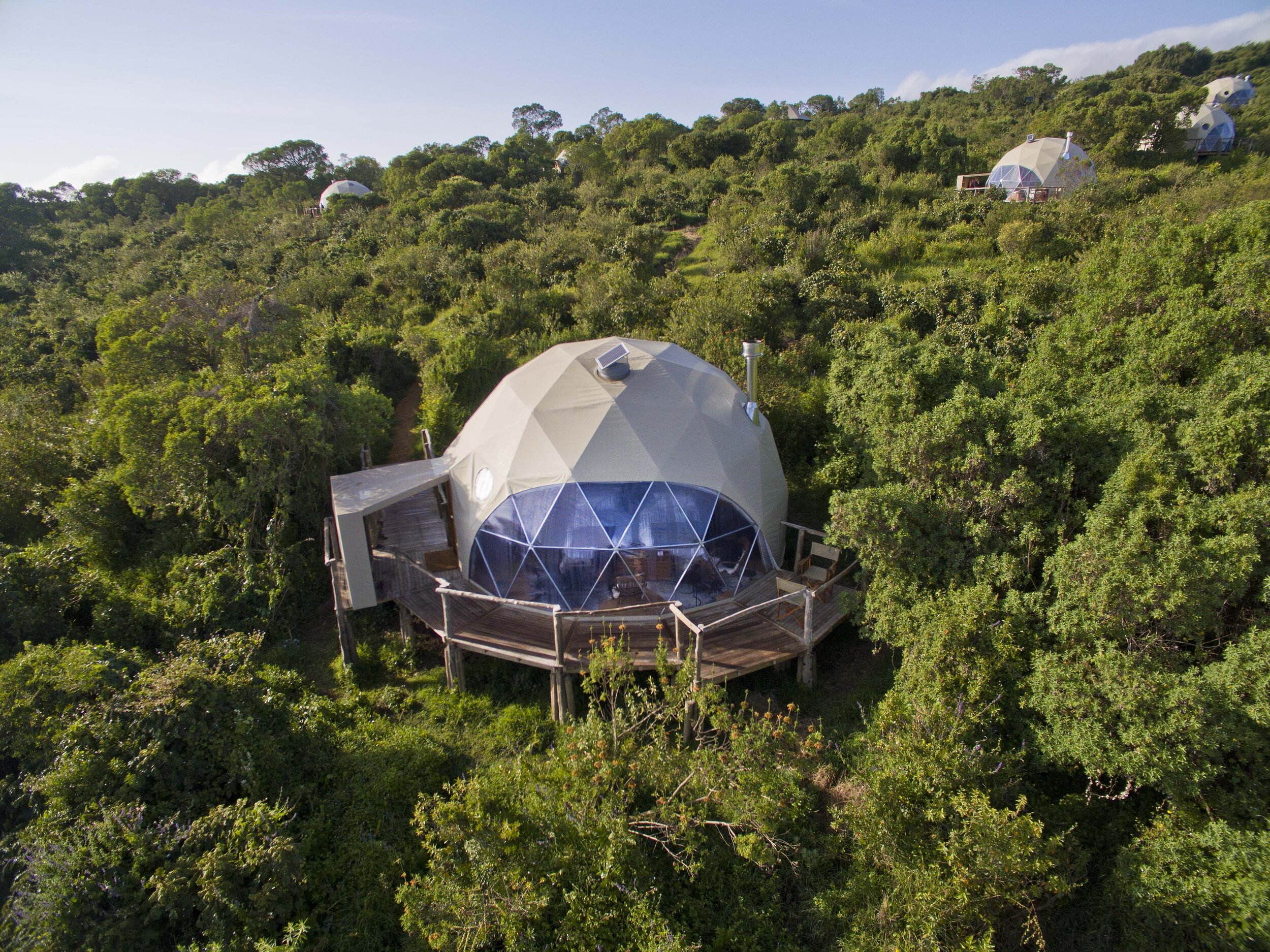

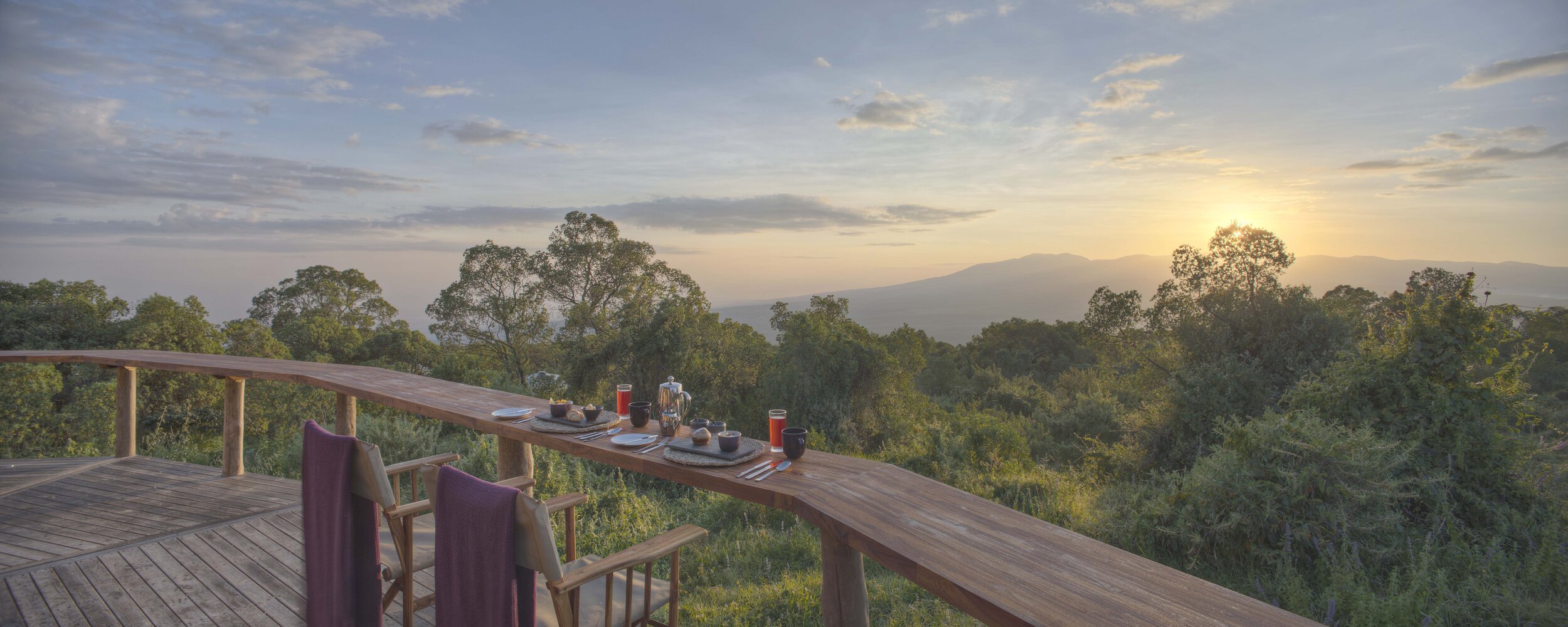
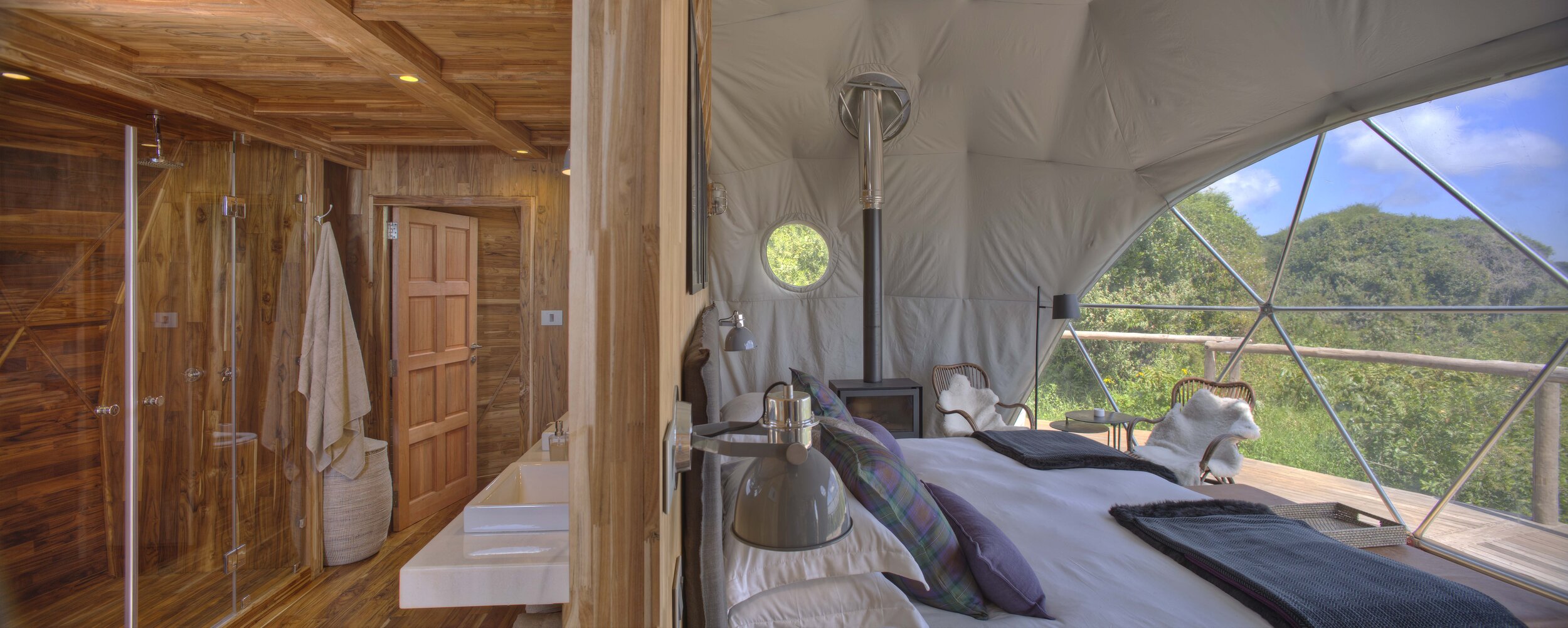

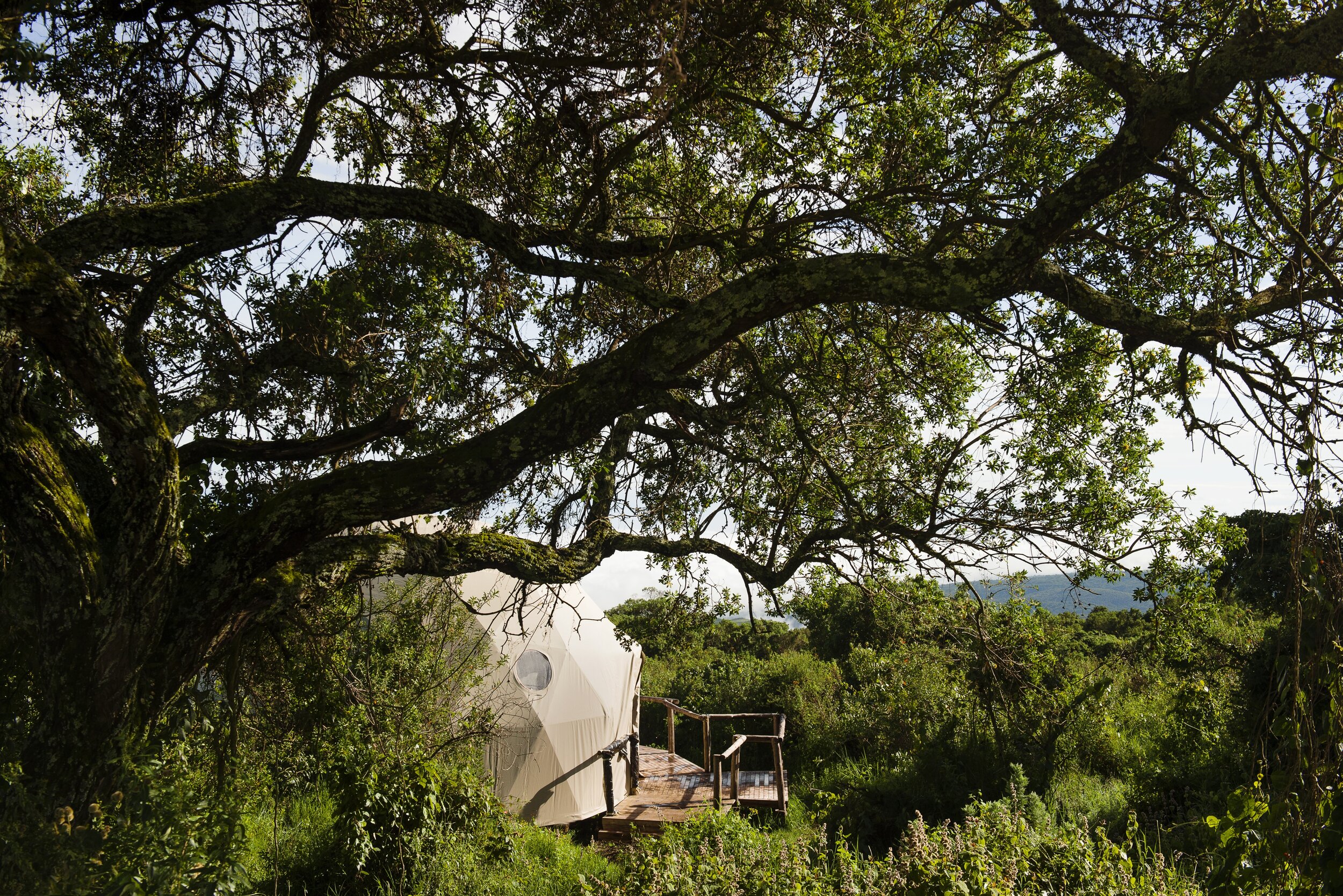
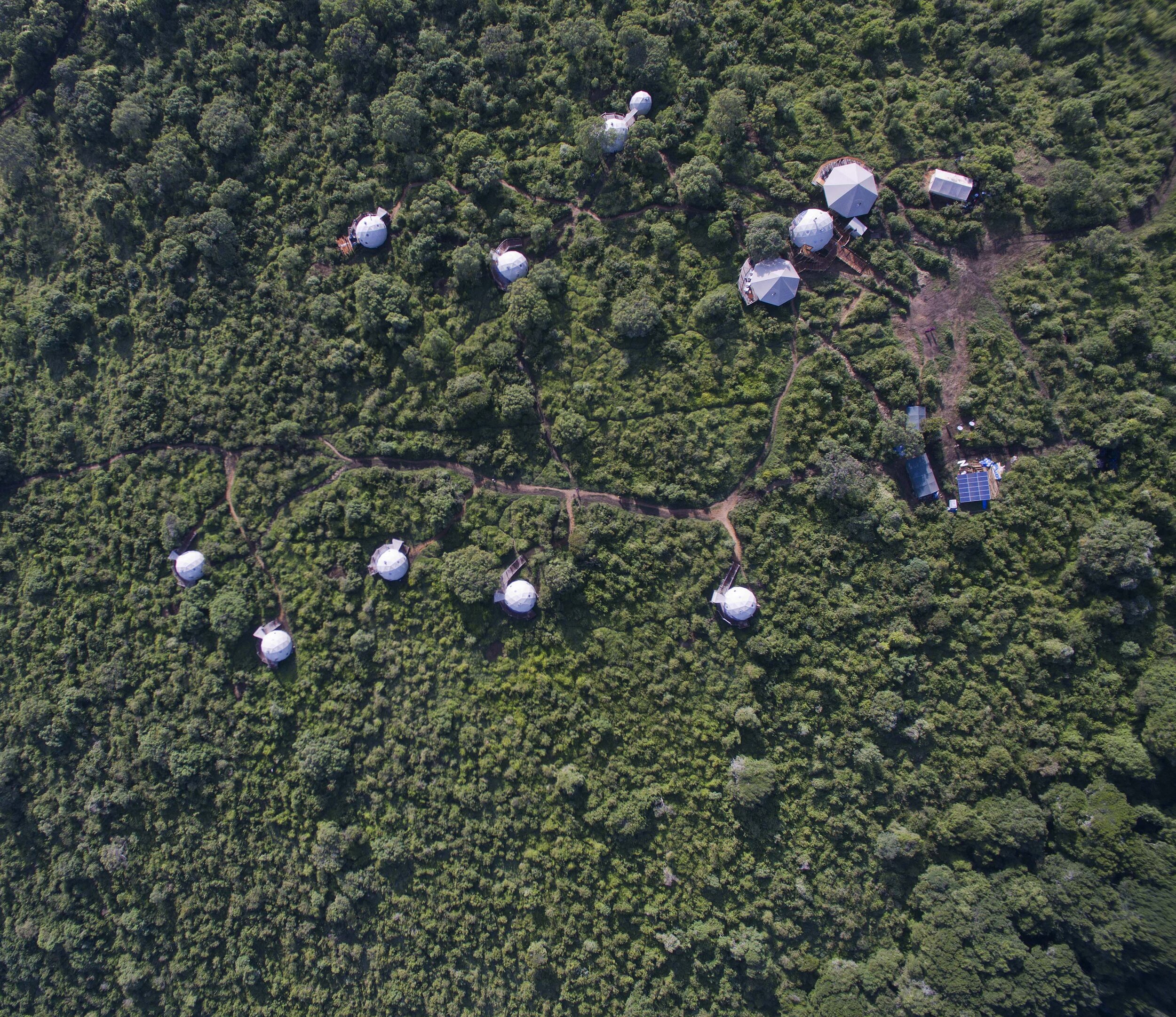
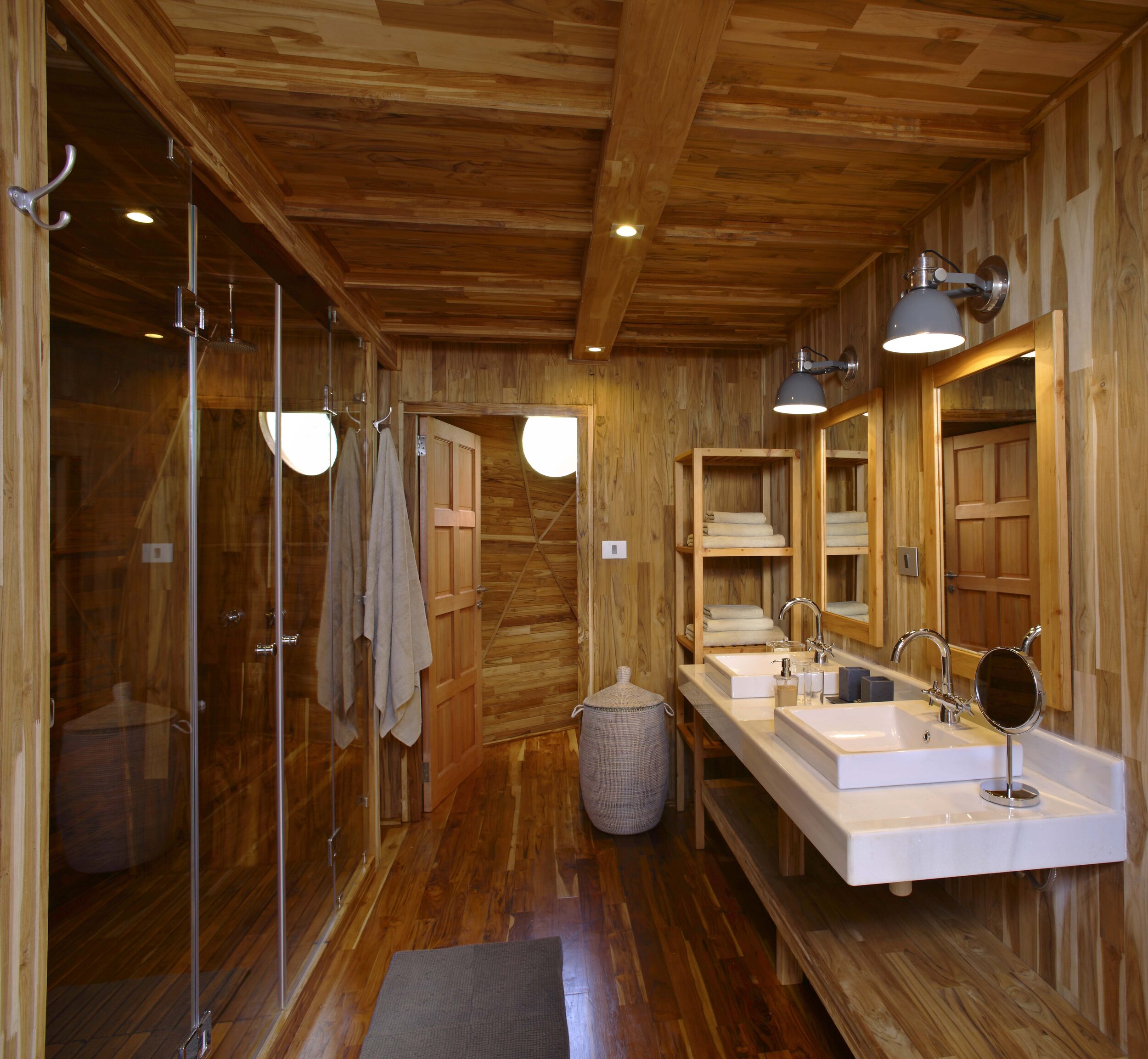
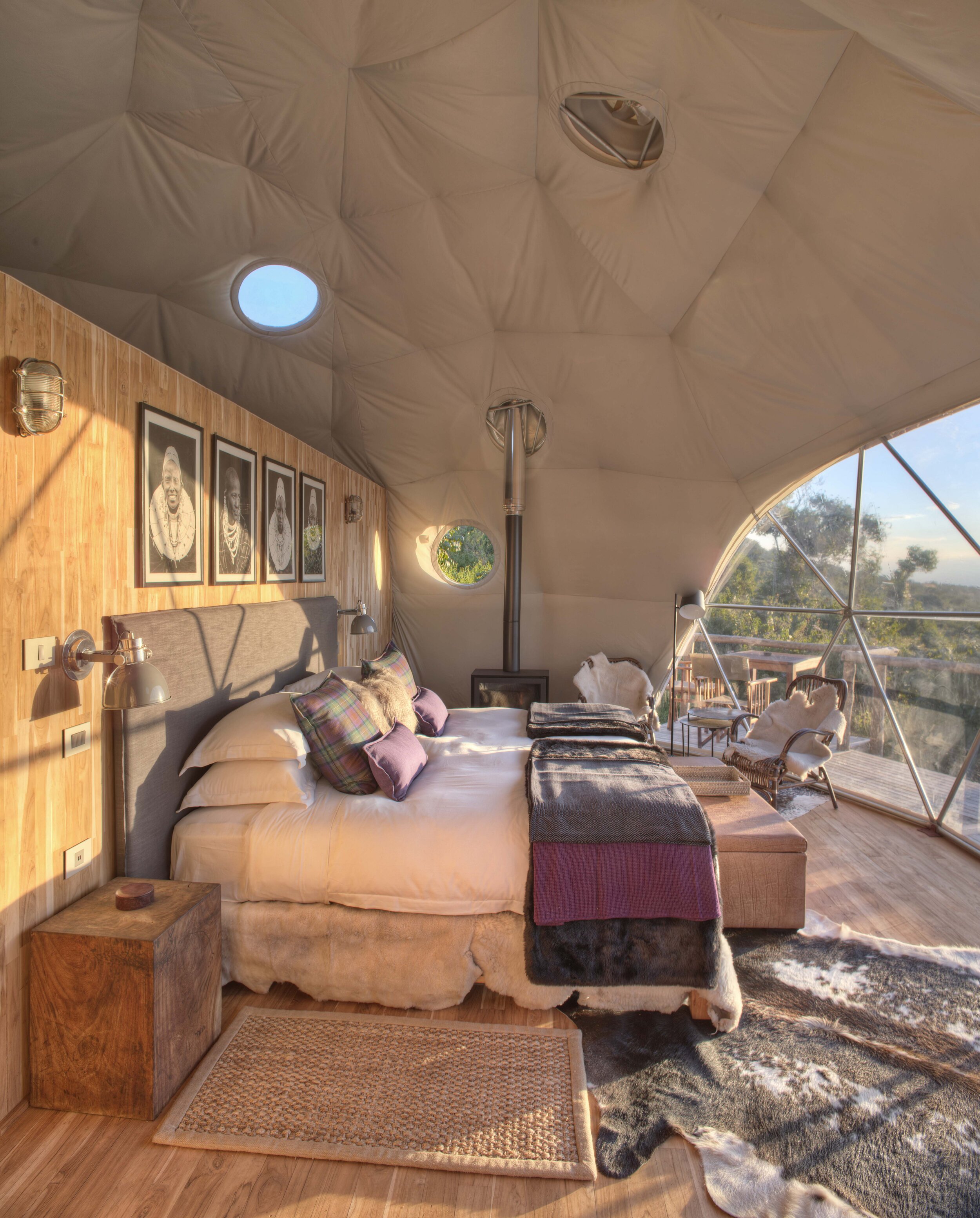
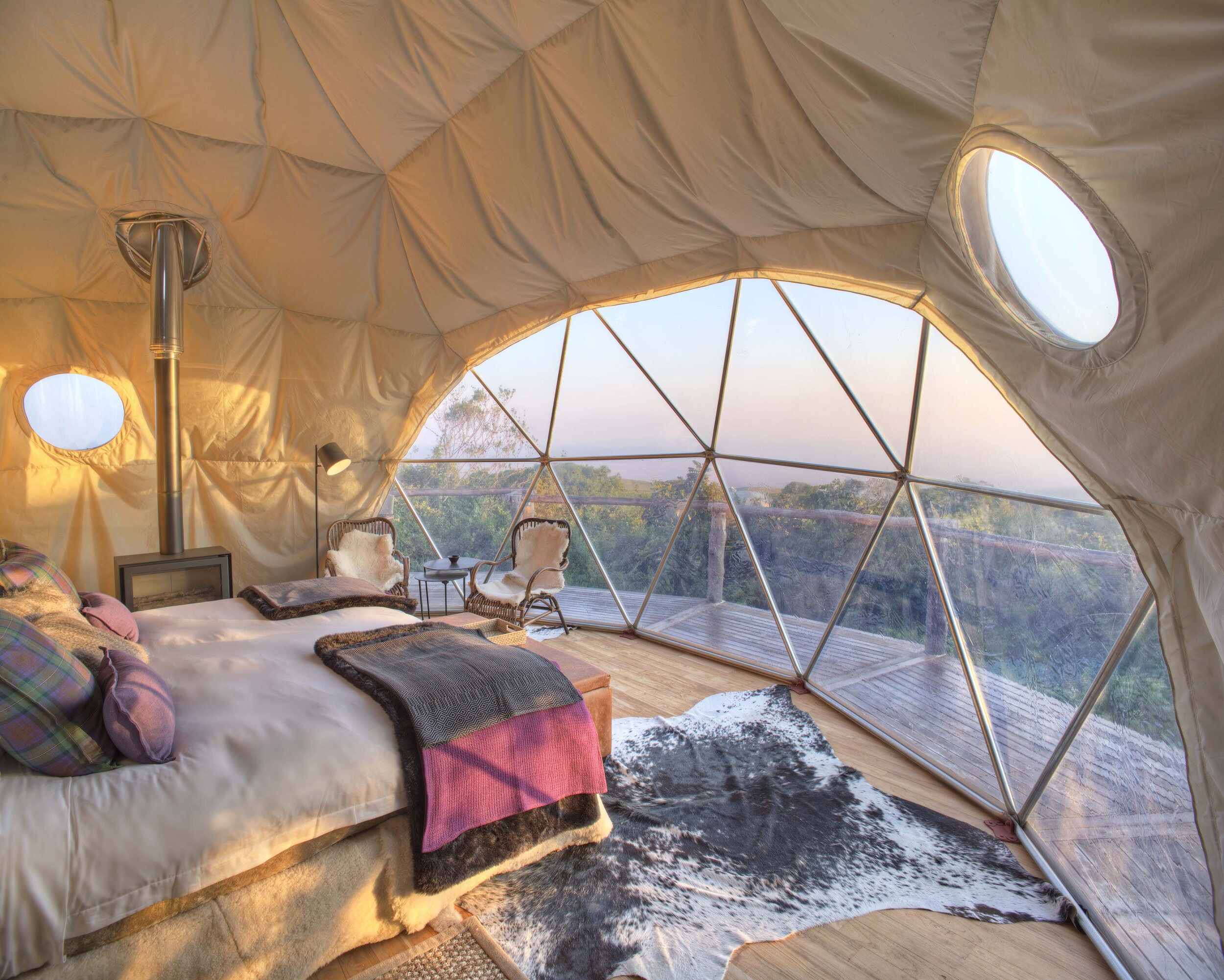
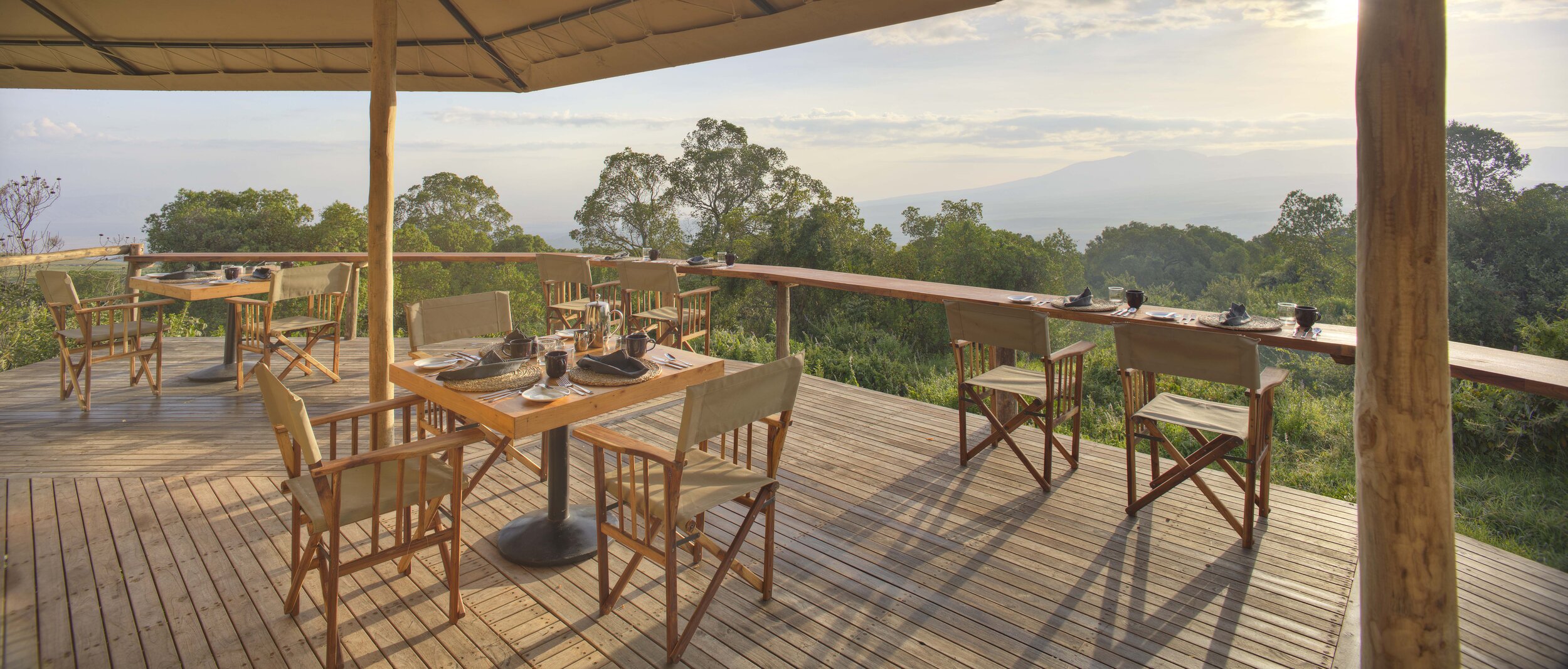
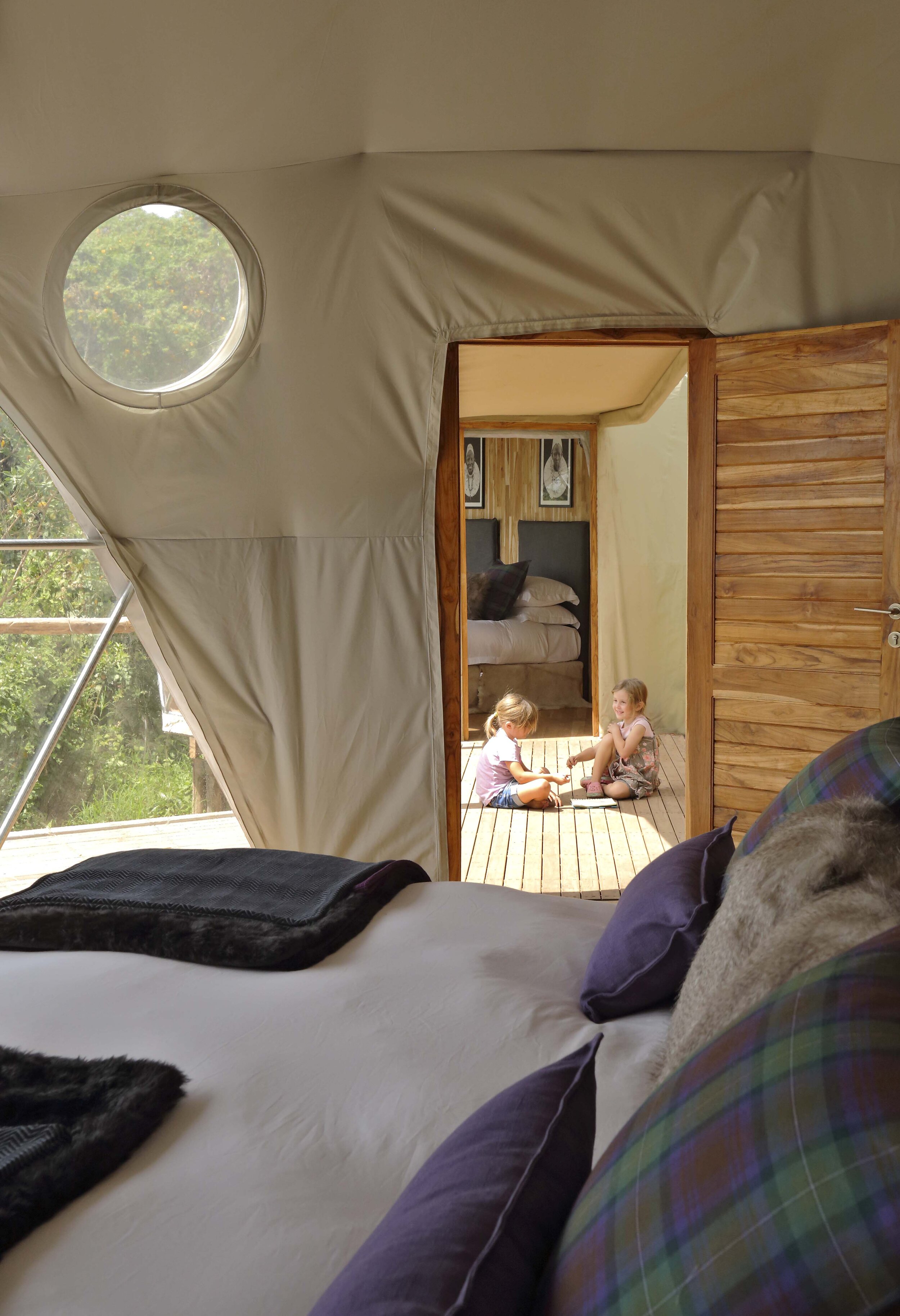
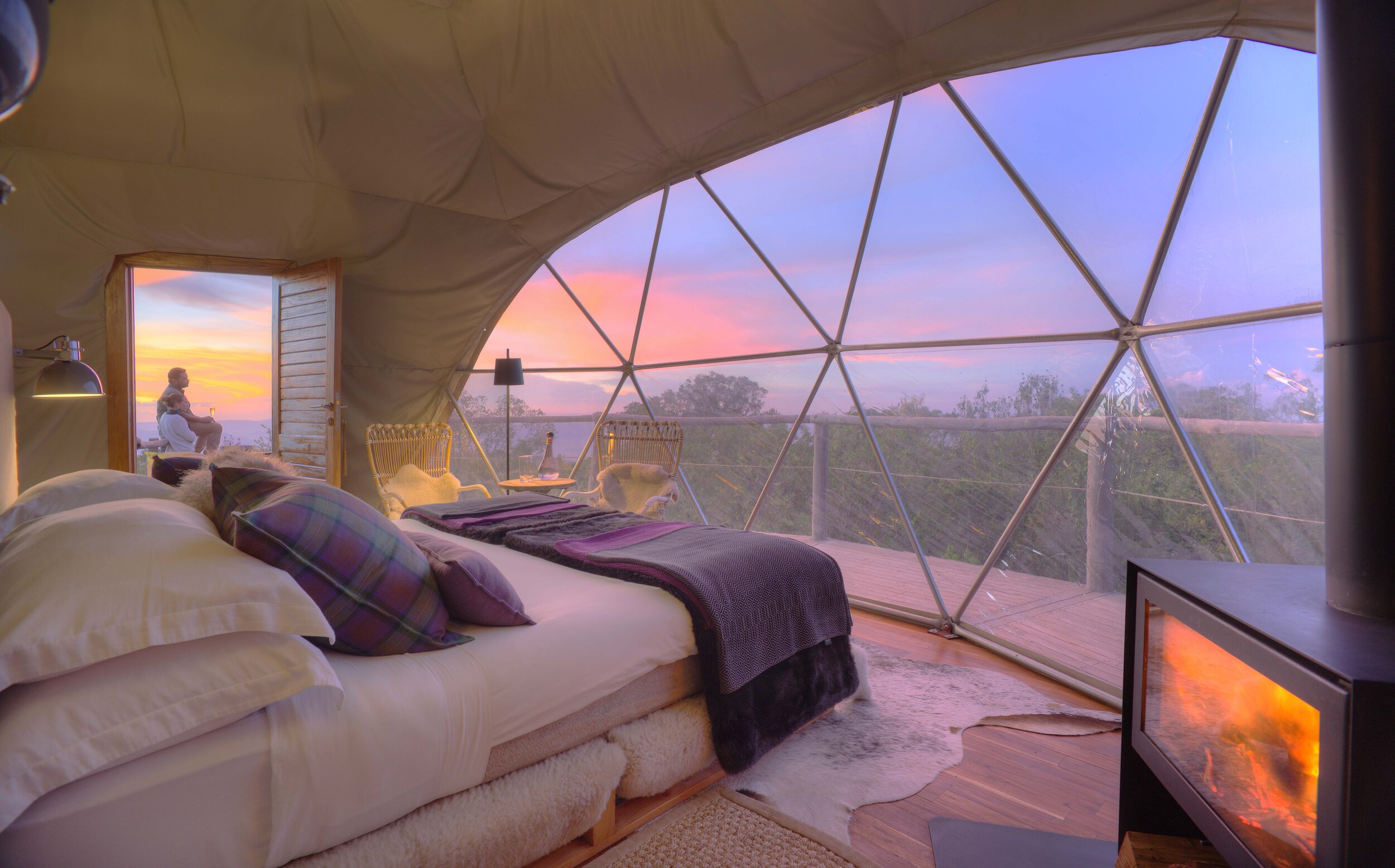
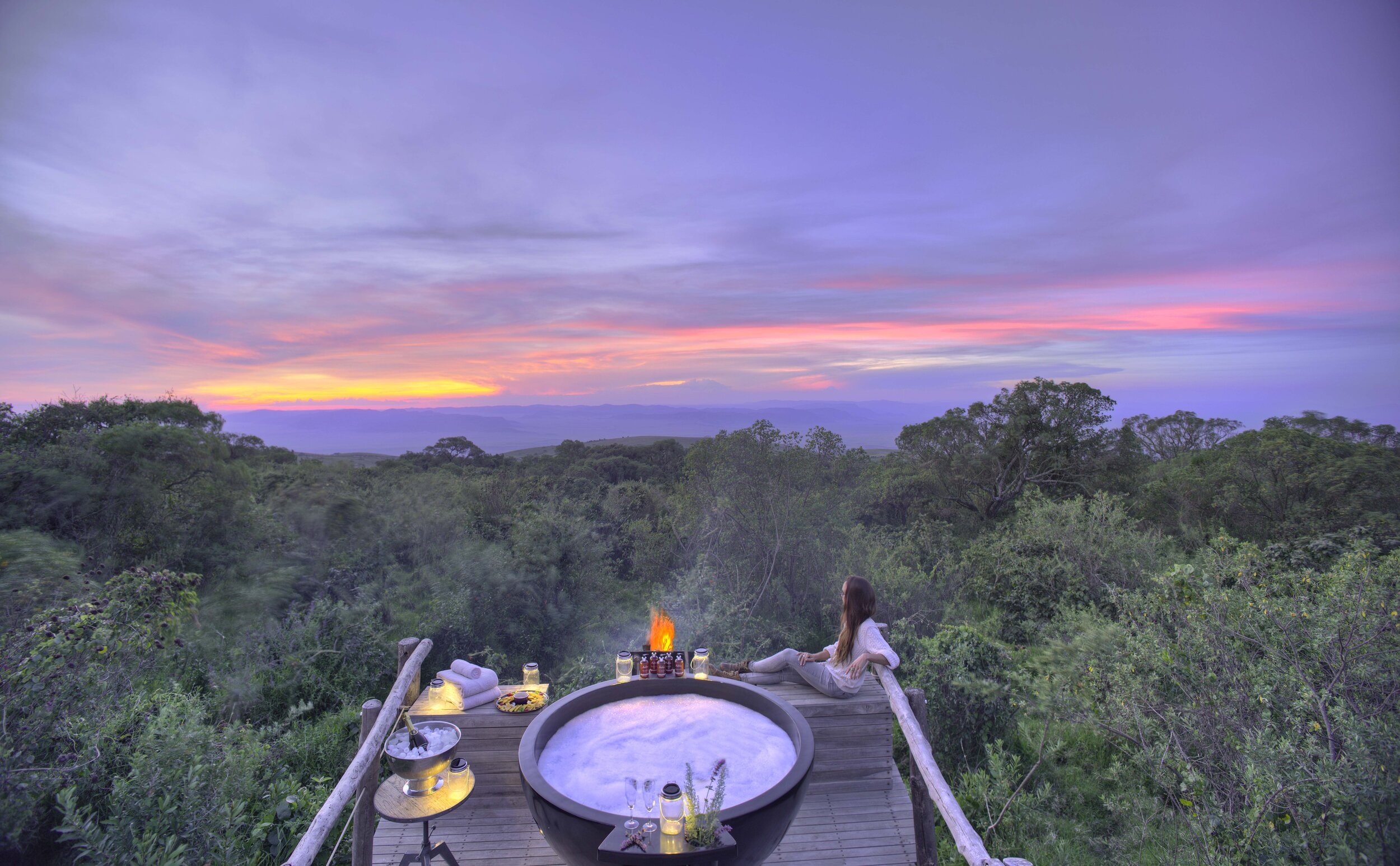

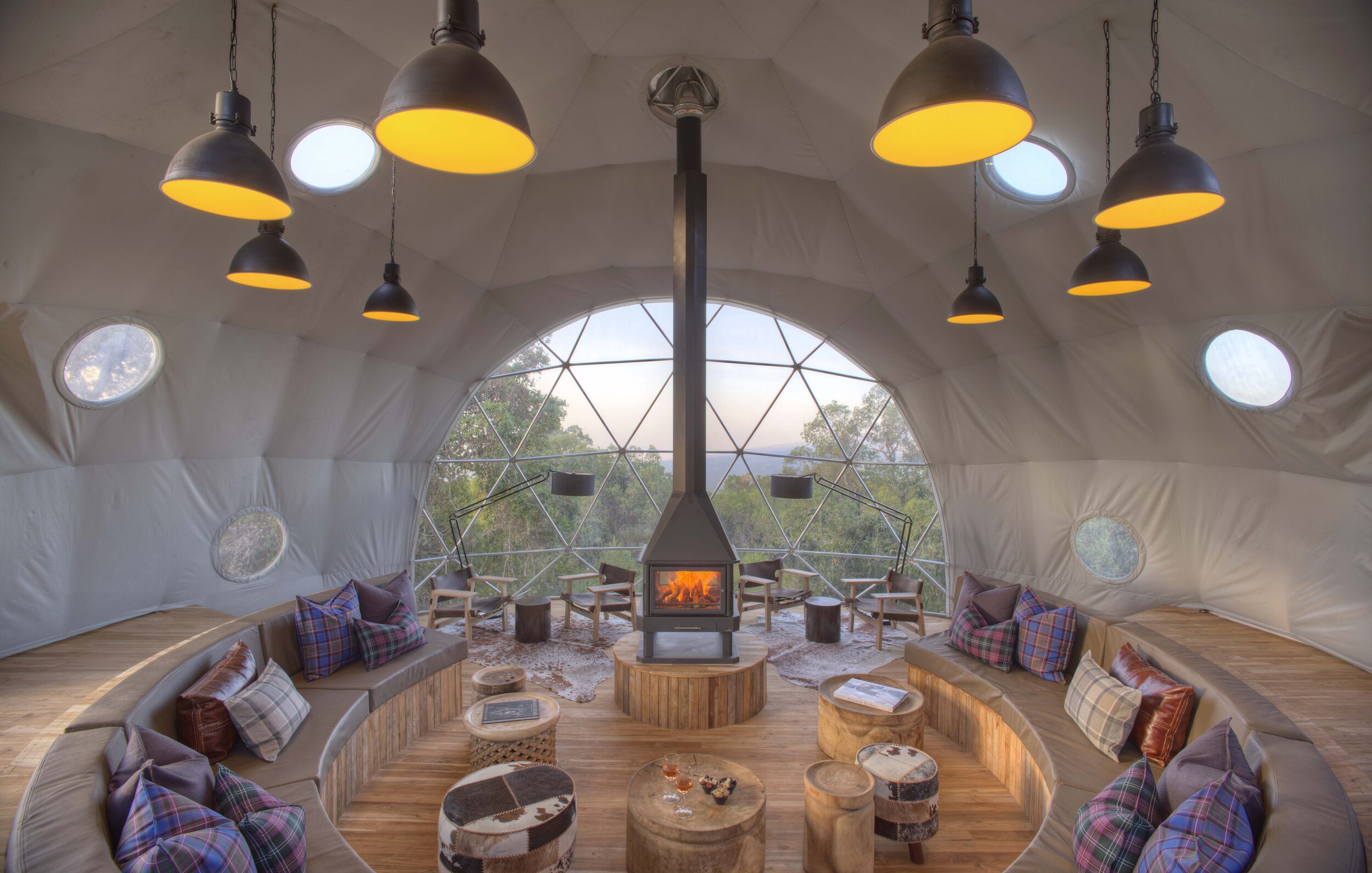
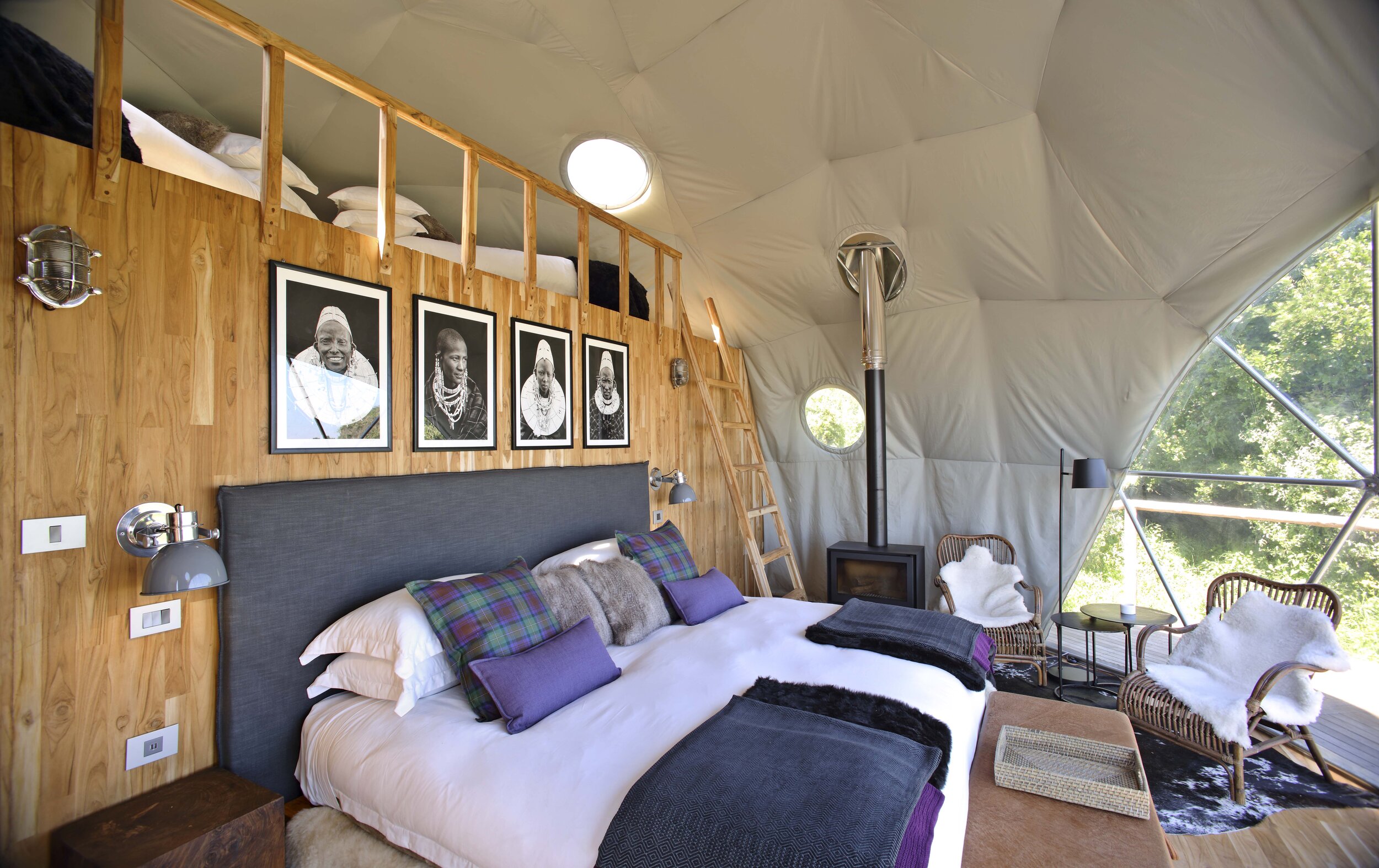
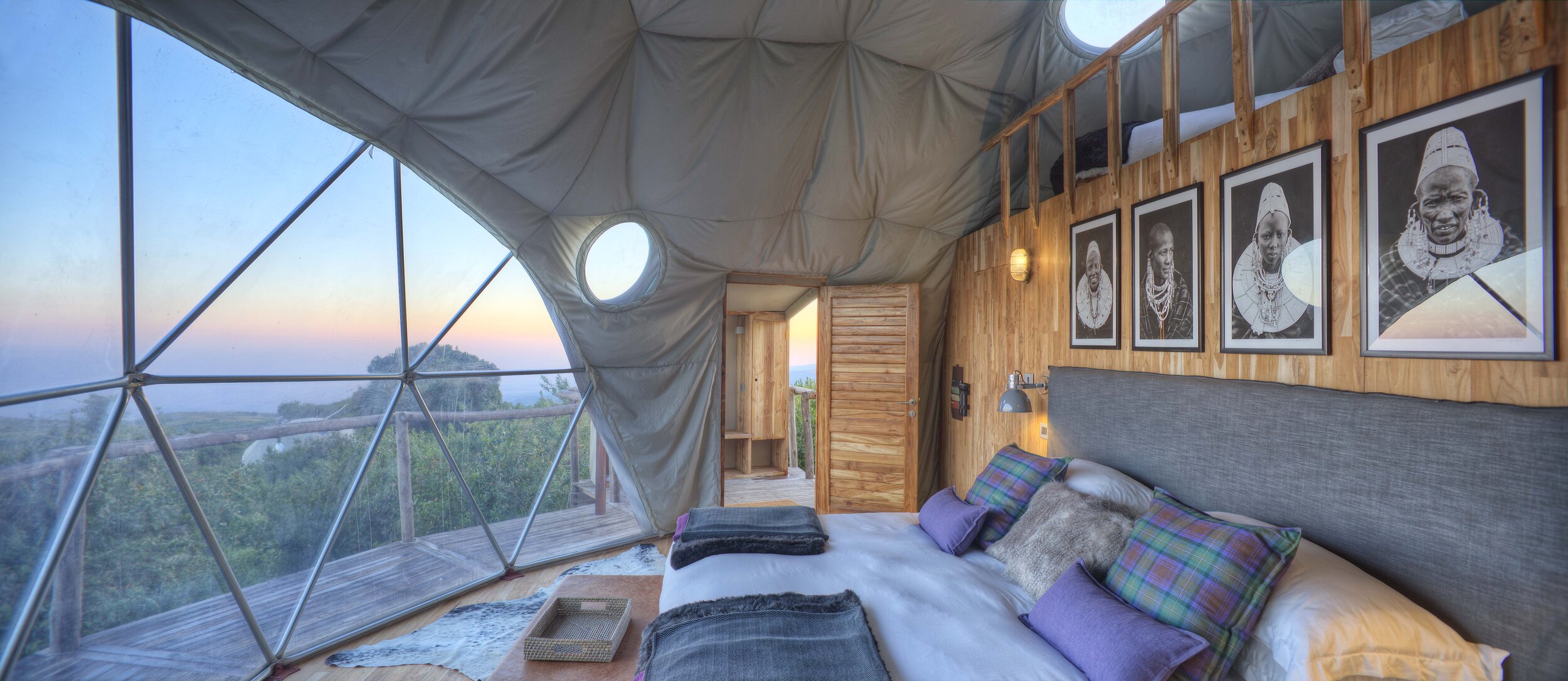
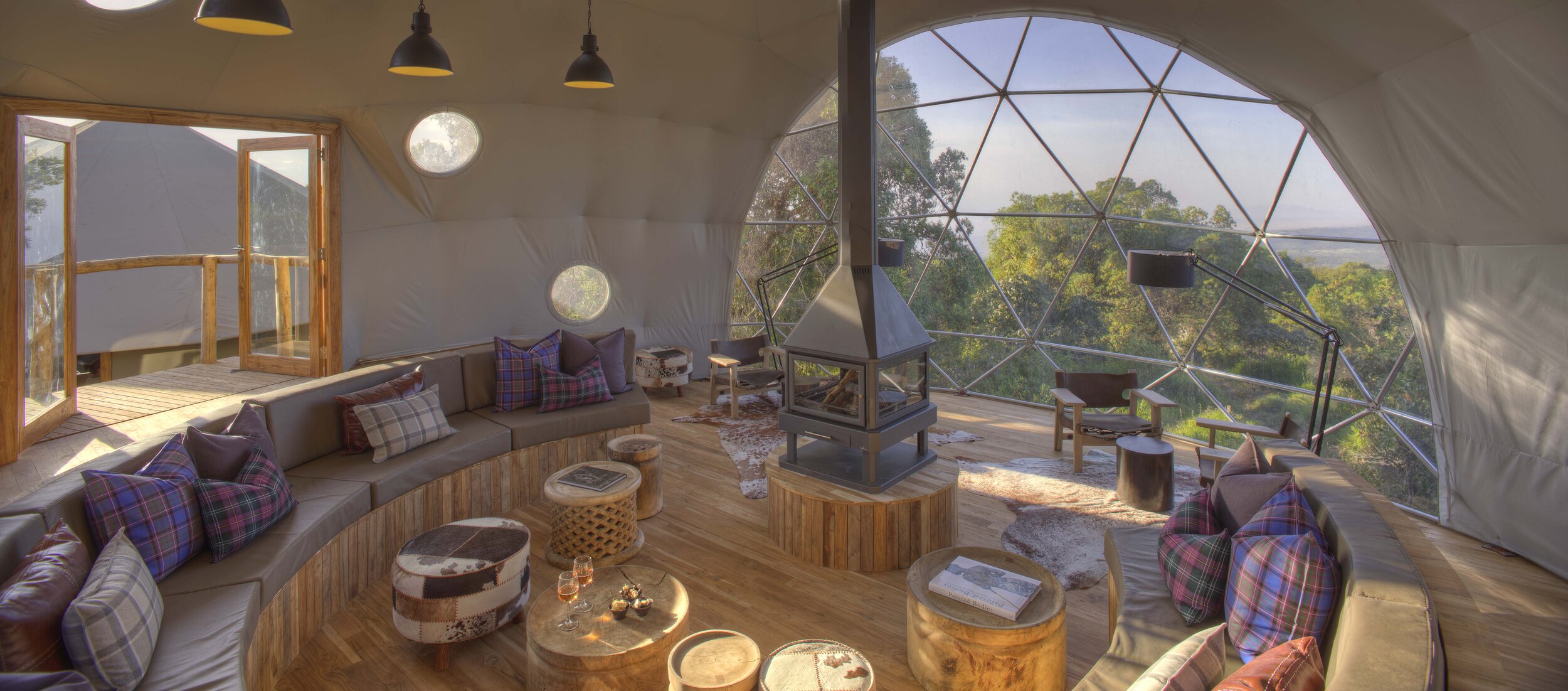
PERSONALITIES
Wildlife lovers. Photographers.
MOMENTS
Surreal views. Thousands of pink flamingos. Picnic breaks. Crackling fireplace. Stargazing from your bed.
BEST VISITING MONTHS
June to September is the dry season. Ngorongoro Crater is at a higher altitude than the Conservation Area, with the temperatures dropping to freezing at night.
COST
WHY STAY
The Highlands is an award-winning camp on the outskirts of Olmoti Volcano, in the Ngorongoro Conservation Area (NCA), a UNESCO World Heritage Site in Tanzania.
The camp consists of eight glass-and-canvas geodesic dome tents, with floor-to-ceiling windows and a deck with unparalleled views across the Serengeti and the surrounding mountainous forests and grassy plains. The design is inspired by traditional Maasai bomas, and includes wood-burning stoves to keep warm during the cooler nights. Take advantage of the Highlands’ unique location where you can watch both the sunrise and the sunset.
WHY WANDER
Explore the Ngorongoro Crater, the largest inactive caldera in the world, as well as one of the best places for wildlife viewing in Africa. Hike up the Olmoti Volcano to be rewarded with views of the crater below and the surrounding landscape. Take a day trip to the soda lake in the Empakaai Crater, where you can find flocks of pink flamingoes. Learn about Maasai culture but interacting with the local community.
INDULGE IN
Remote picnics. Sundowners by the fire. Three-course dinners made with fresh ingredients from the Karatu area.
GETTING THERE
Fly into Arusha Airport and arrange a private transfer to the camp, which will take about 3 hours.
GET INVOLVED
Asilia has been carbon neutral as a company since 2009. All of our camps run on solar, we recycle water, reduce plastic use and offset all unavoidable carbon usage. For example, last year offset 1,425 tonnes of CO2 in East Africa. This is the equivalent of taking about 118 mid-sized cars off the roads for one year.
AsiliaGiving is the philanthropic arm of Asilia Africa, one of East Africa’s leading travel companies with a mission to empower crucial wilderness areas in East Africa, benefitting both people and nature. By making bold, and often pioneering investments into ecologically and economically vulnerable areas, they aim to turn these regions into viable conservation economies, benefitting both the local communities as well as the environment.
By collaborating with and funding in-country NGOs that work on everything from vocational school scholarships, women’s income-generating projects, anti-poaching initiatives, wildlife conservation and land rehabilitation, AsiliaGiving is able to ensure measurable change.
By acknowledging that people and nature are inseparable partners, the organization works closely with communities, authorities, NGOs and industry partners to achieve the best possible long-term outcomes for all concerned. With the help of guest donations and conservation fees Asilia is able to make a significant Positive Impact towards their goal to empower these areas and the communities and wildlife that call them home.
Find out more at asiliagiving.org
Initiatives supported:
Usangu Wetlands. The Usangu wetlands project assesses this critical area to understand how best it can be protected through ecotourism.
Twende Porini. Our Twende Porini programme welcomes children from local communities to experience what a safari is all about and learn about conservation and tourism.
Twende Porini. Our Twende Porini programme welcomes children from local communities to experience what a safari is all about.
Maa Beadwork. Kenya Wildlife Trust & Maa Trust. Our Twende Porini programme welcomes children from local communities to experience what a safari is all about and learn about conservation and tourism.
FGM Education. The Maa Trust. Female Genital Mutilation is a traditional practice that is prohibited yet still carried out in local communities. Together with anti-FGM ambassadors, The Maa Trust has implemented education programs.
Maa Honey. The Maa Trust. Maa Honey combines the conservation of African bees with the need for sustainable income generation. Beehives are owned by a group of local women who harvest and bottle the honey
Youth Empowerment. The Maa Trust Through this programme, The Maa Trust offers career guidance and scholarships to the youth in the Mara.
Mau Eburu Forest Project, Mount Kenya And Abedare Fencing Projects
Rhino Ark. Rhino Ark develops and implements practical solutions to the challenges affecting Kenya’s mountain forests, Mount Kenya, The Abedares and Mau/Eburu Forests.
Mara Predator Conservation Programme. Kenya Wildlife Trust. The Mara Predator Conservation Programme’s efforts span three primary areas with robust carnivore populations in Kenya – The Greater Mara, Amboseli/Tsavo, and Laikipia/Samburu.
Elephant Research, Wildlife Conflict Mitigation
Pardamat Conservation Area (PCA). Masai Mara Wildlife Conservancies Association (MMWCA). The Wildlife Tourism College of Maasai Mara was started out of necessity to expand the current Koiyaki Guiding School.
The Lionscape Coalition is a new initiative of the Lion Recovery Fund. It enables Africa’s top tourism operators to take action in the recovery of lion populations and their landscapes
The Ngorongoro Human-Wildlife Conflict Project aims to reduce livestock predation by carnivores and the retaliatory killing of carnivores.
The Tarangire-Manyara ecosystem harbours one of the major lion populations remaining on the African continent.
Simanjiro Easement Project. Dorobo Fund. Critical grazing areas for wildlife are quickly disappearing in Tarangire which has resulted in a severe decline in wildlife numbers and an increase in pressures on Maasai livelihoods
The Southern Tanzania Elephant Project is an elephant conservation programme that aims to protect elephants and enhance human-elephant coexistence.
The Serengeti Cheetah Project monitors changes in birth and survival rates of cheetahs
Frankfurt Zoological Society. The Eastern Serengeti Livestock Encroachment Unit aims to protect vital wilderness areas and create sustainable practices to ensure these areas are continuously monitored and cared for.
Chimpanzee Habituation Project. Honeyguide Foundation. The unique Chimpanzee Habituation Project on Rubondo Island focuses on introducing the current group of chimpanzees to the presence of humans
K9 Unit. Honeyguide Foundation. Honeyguide’s K9 Unit is the only unit of its kind in the field of anti-poaching in Tanzania. Specially trained dogs are used to track and capture poachers in several regions across Tanzania.
Asilia Scholarship Fund. Asilia Trust. Every year, Asilia identifies promising students who don’t have the means to further their education and supports them with scholarships to do so.
*Images property of The Highlands





